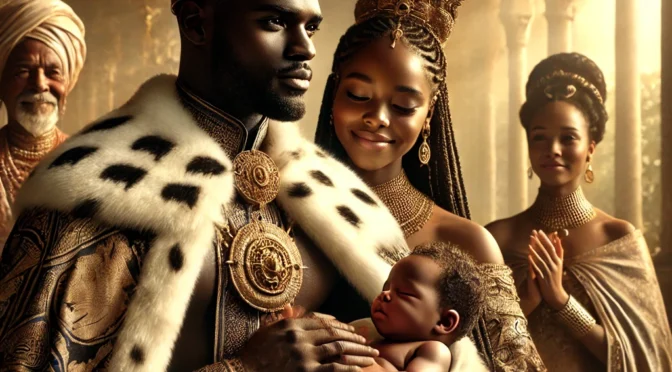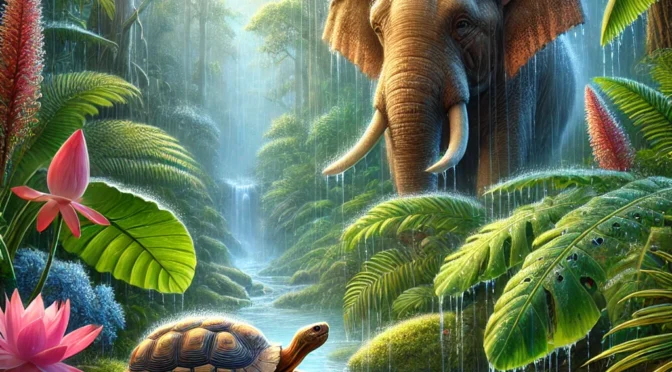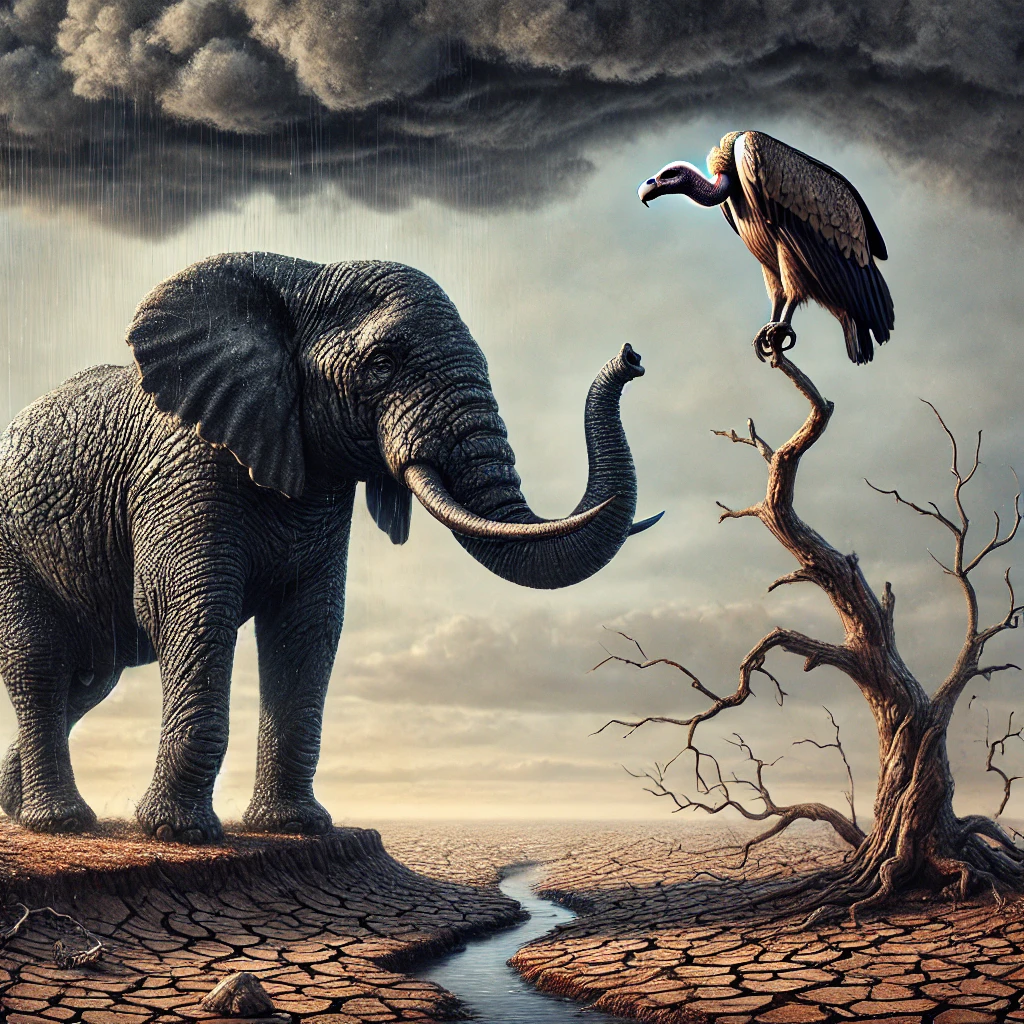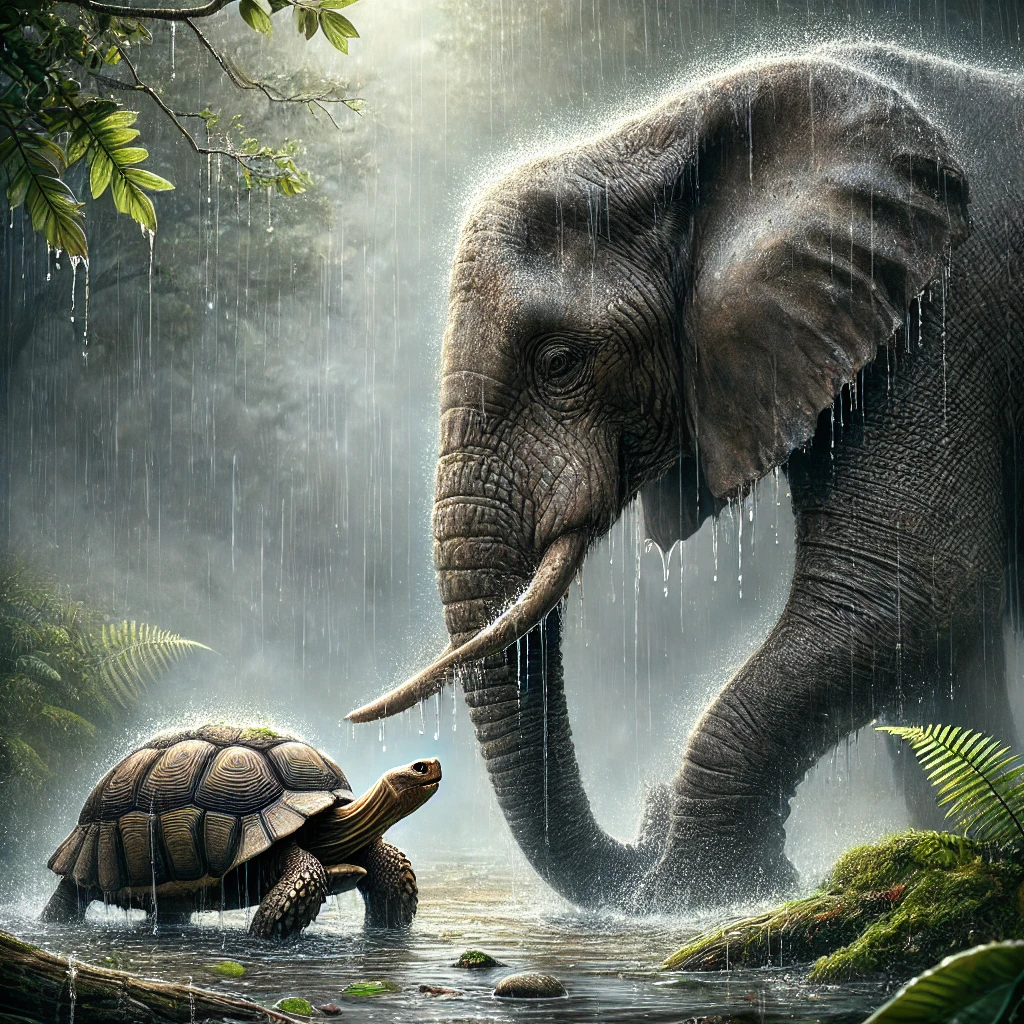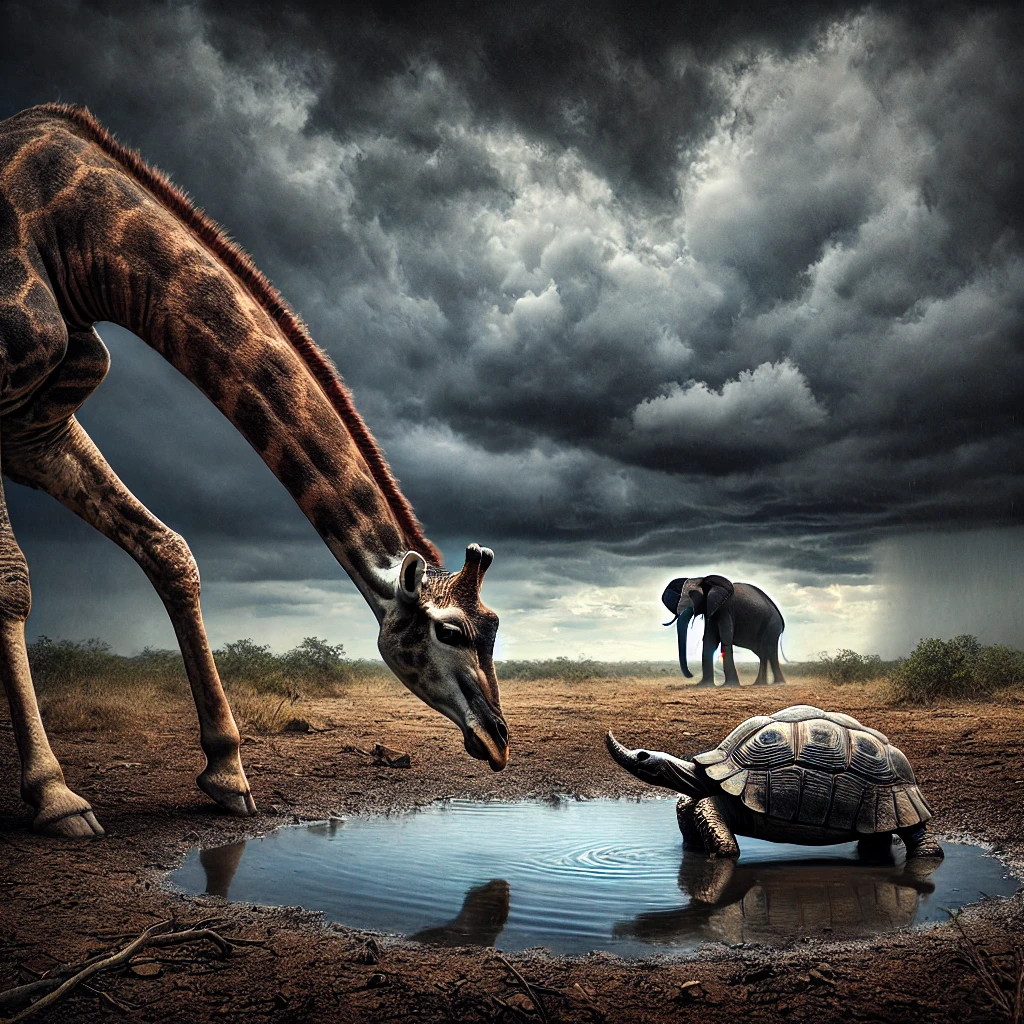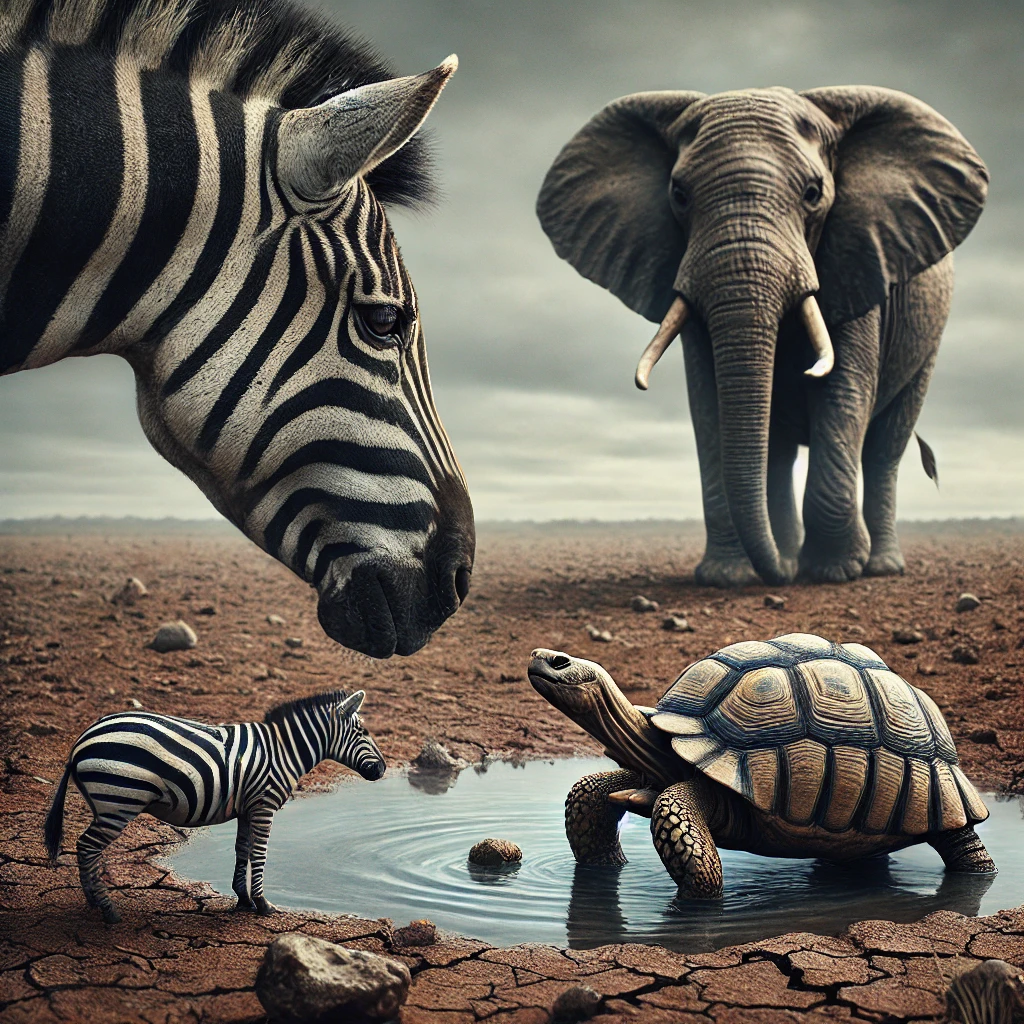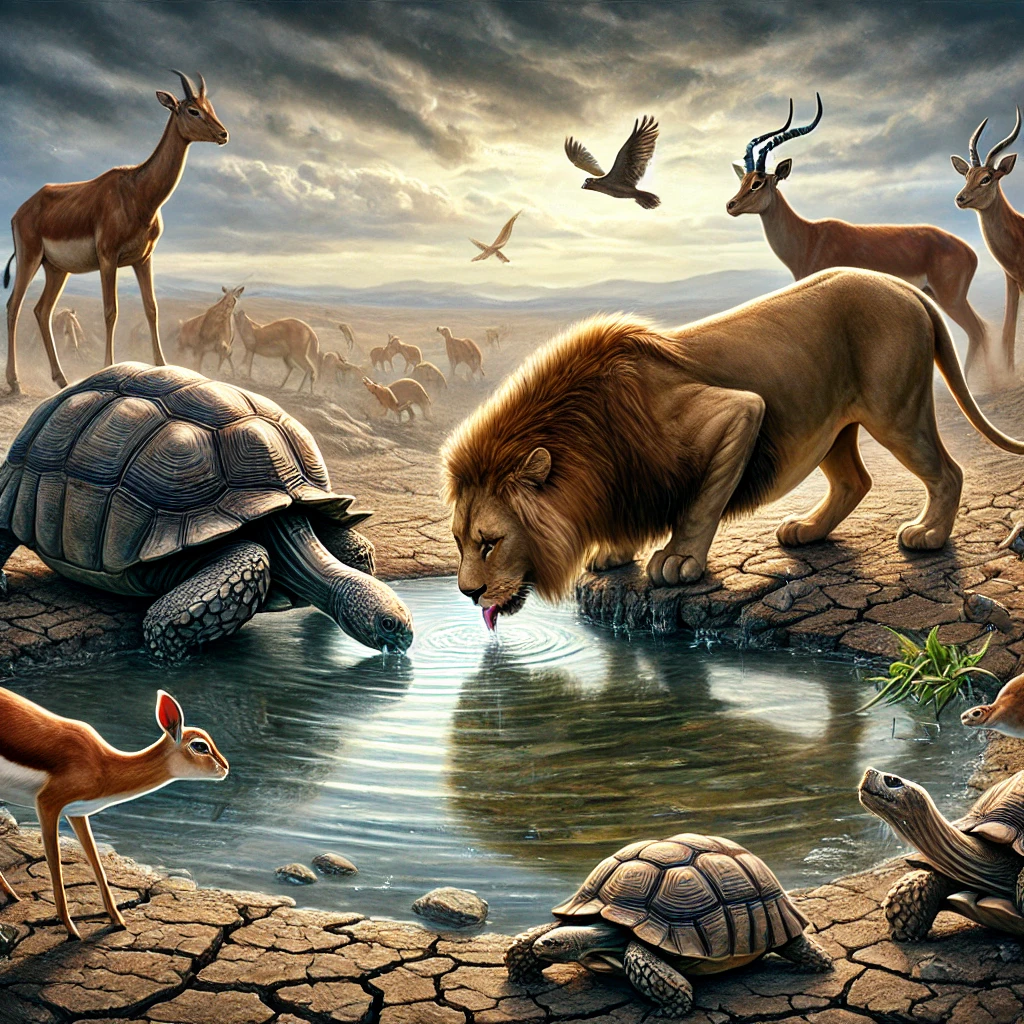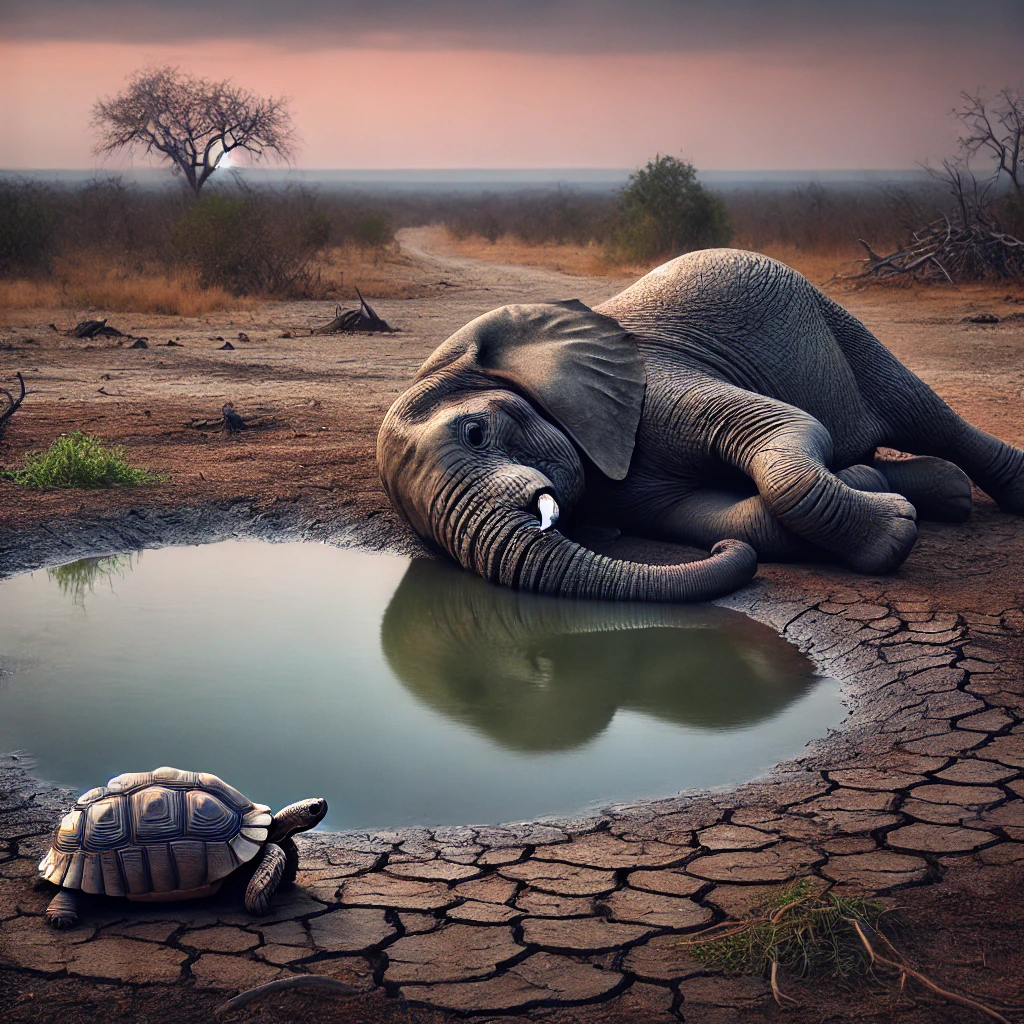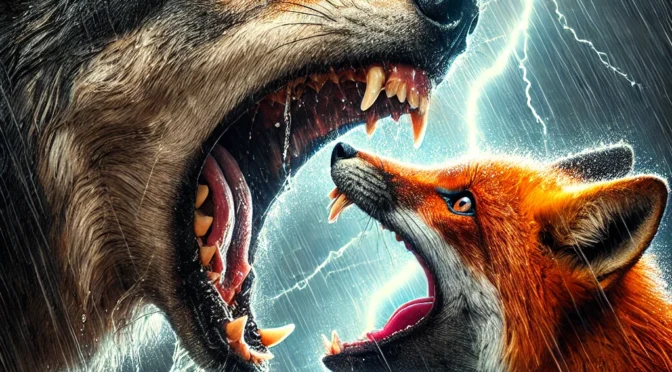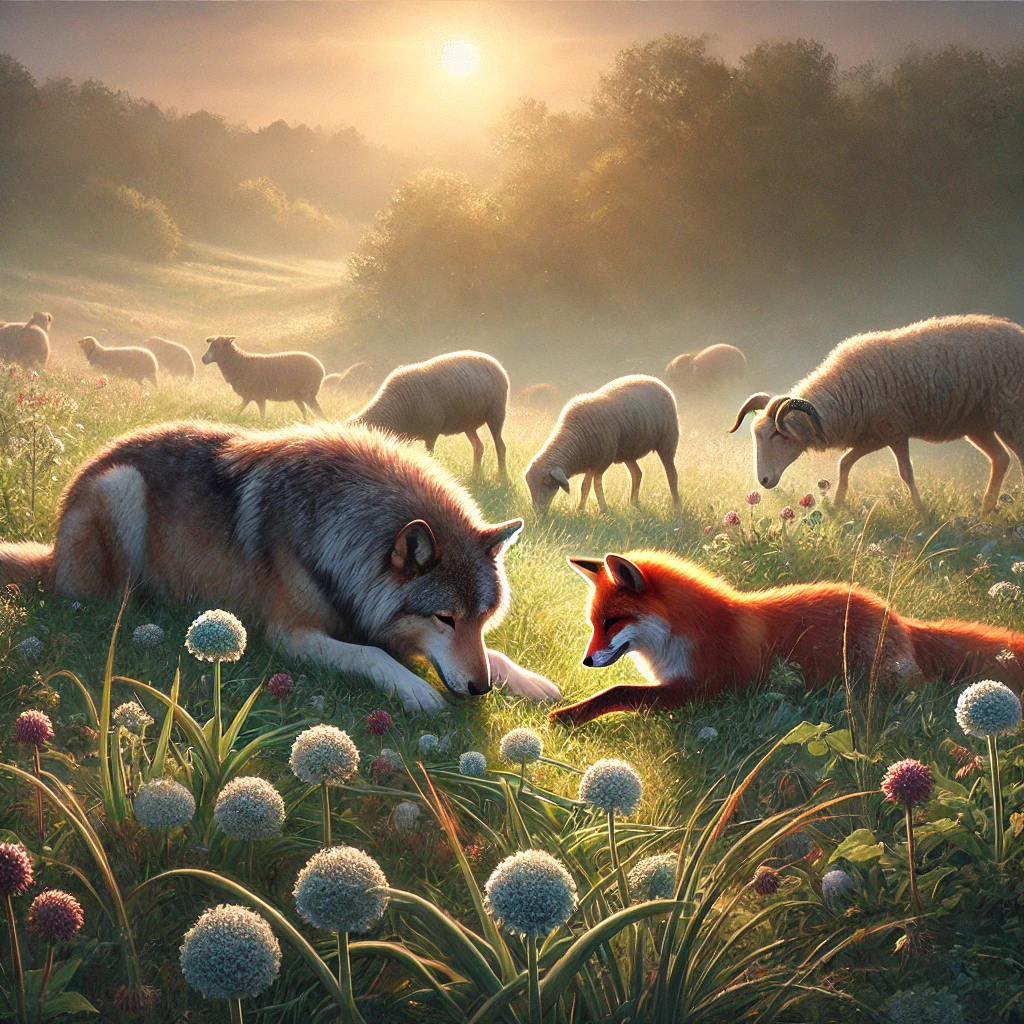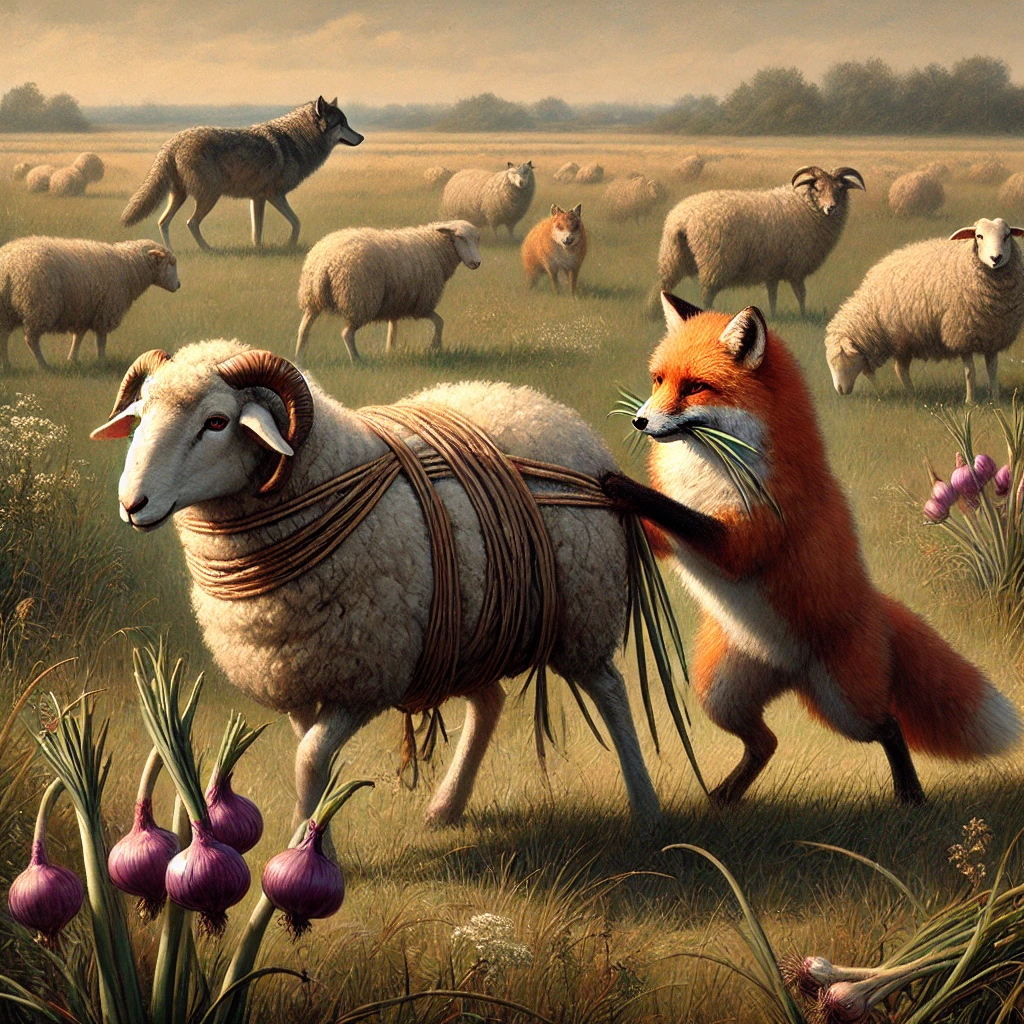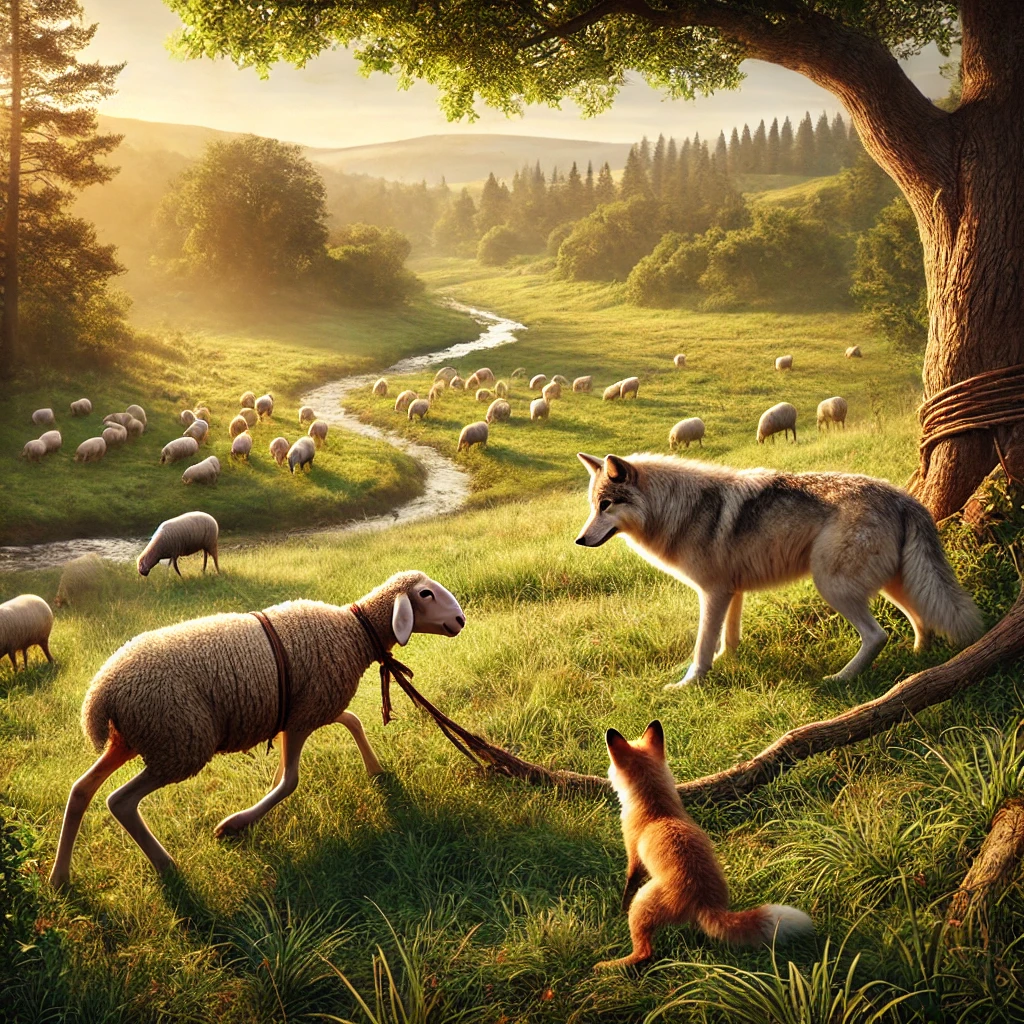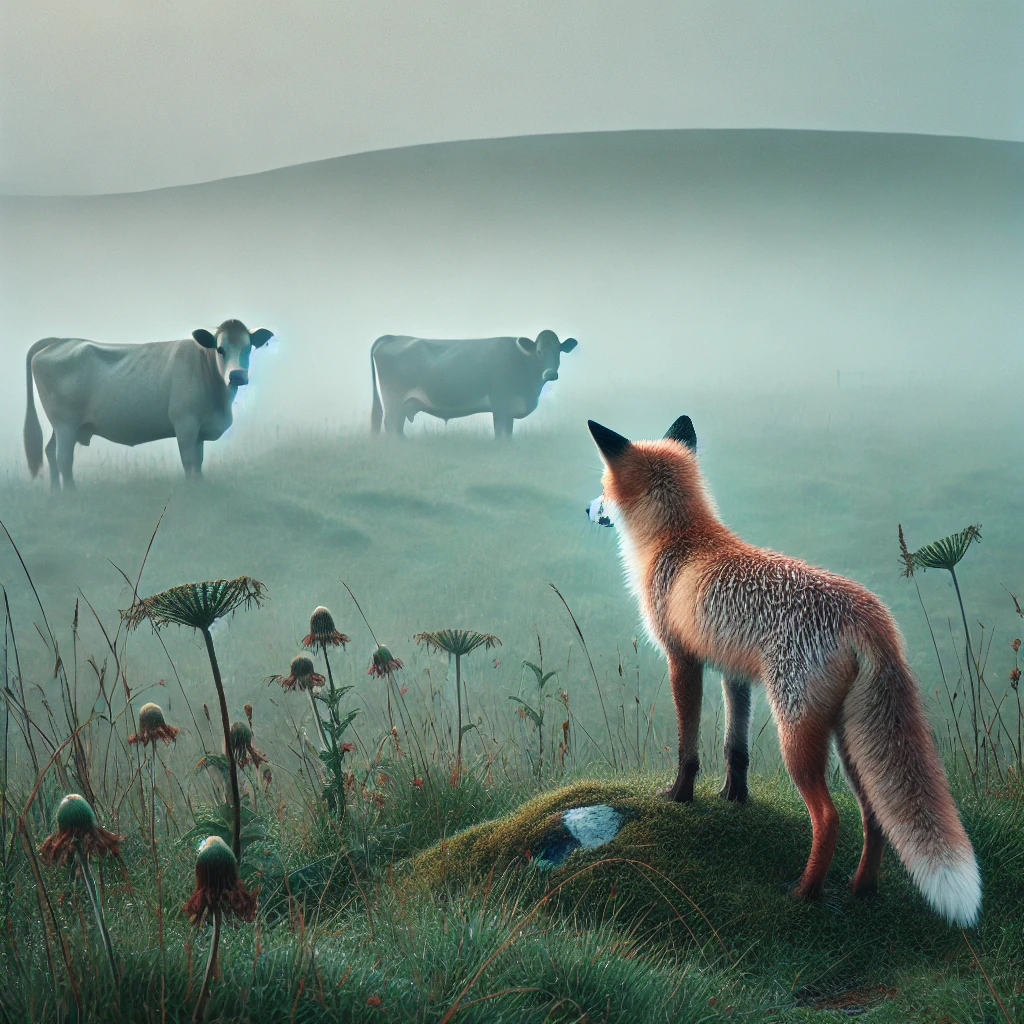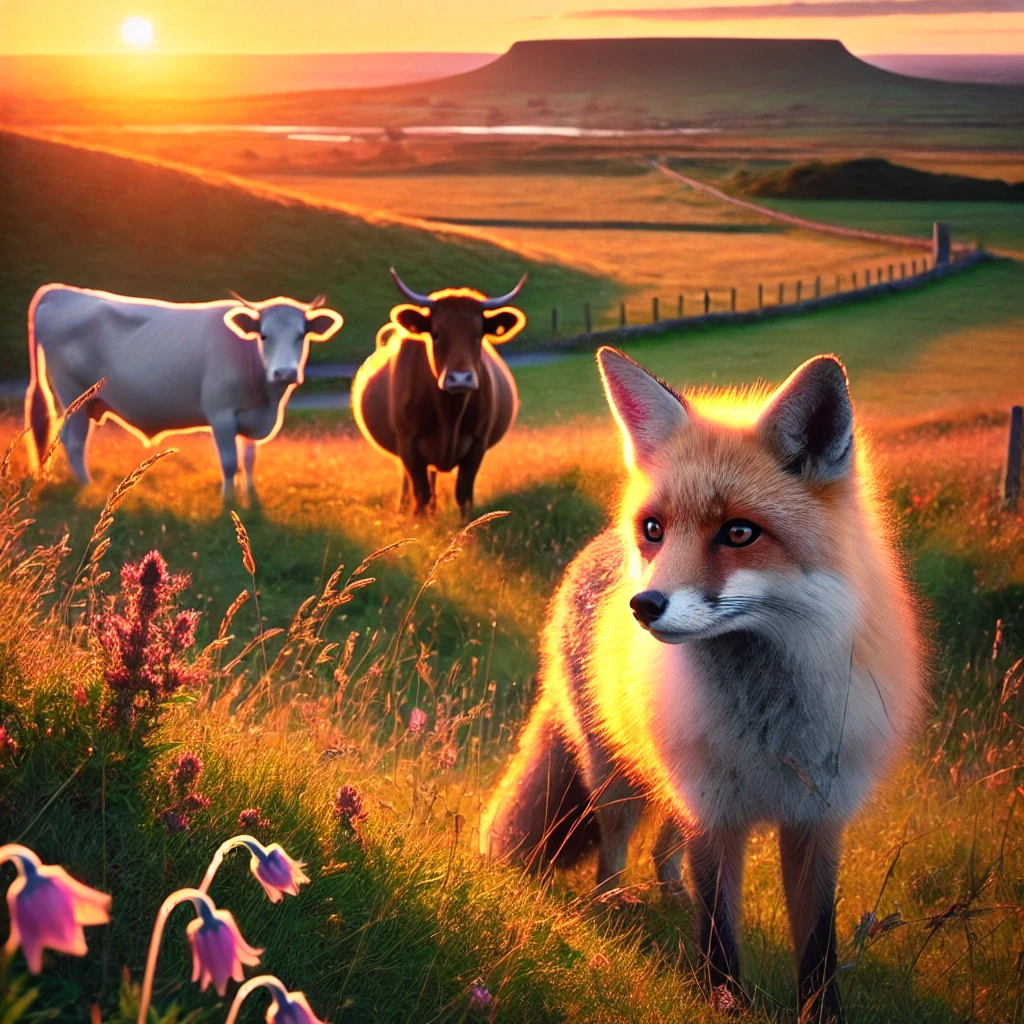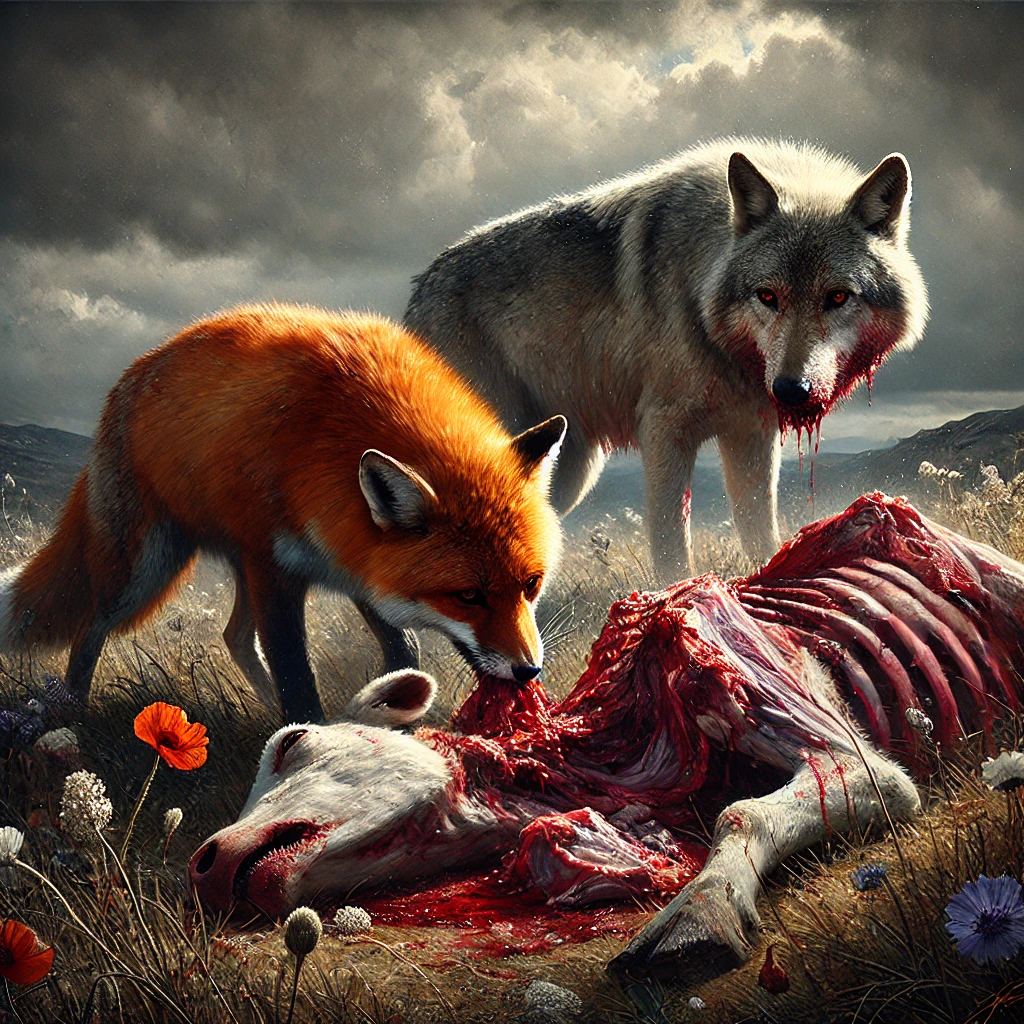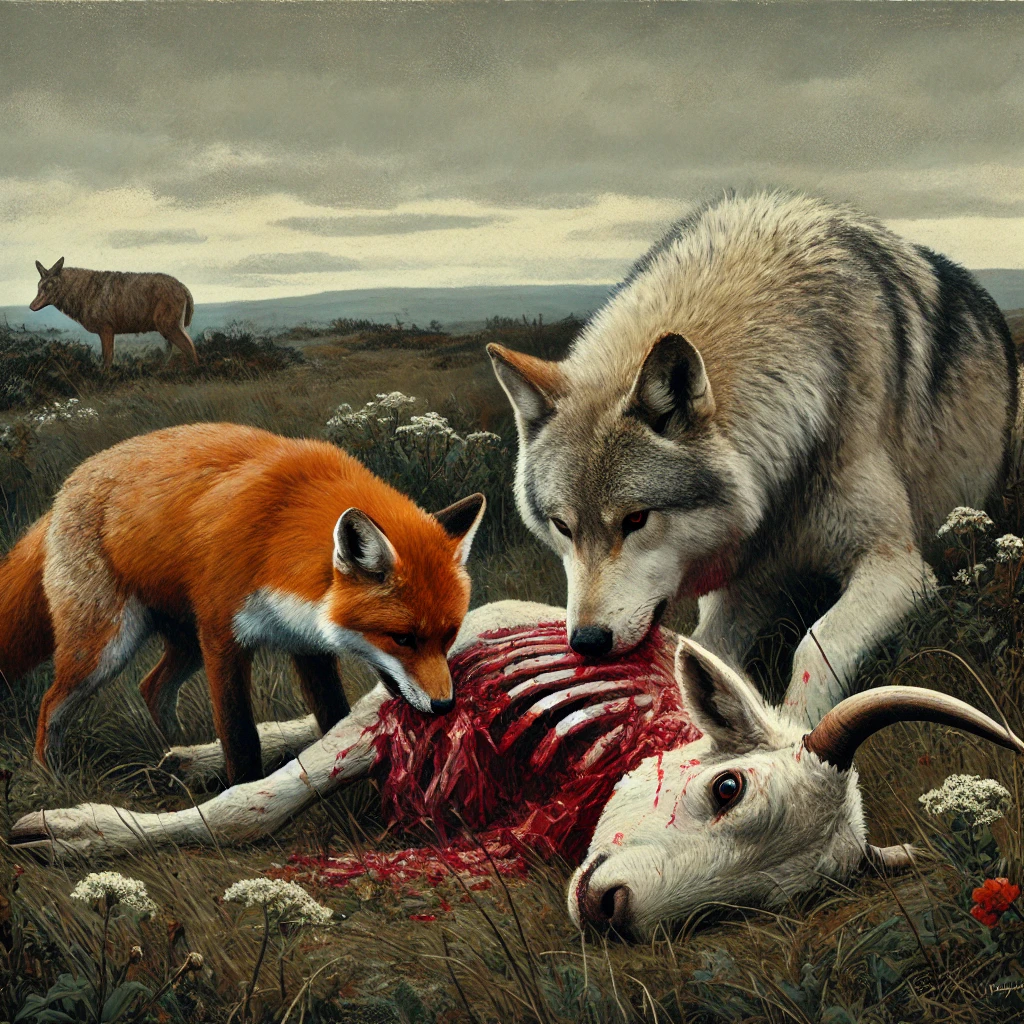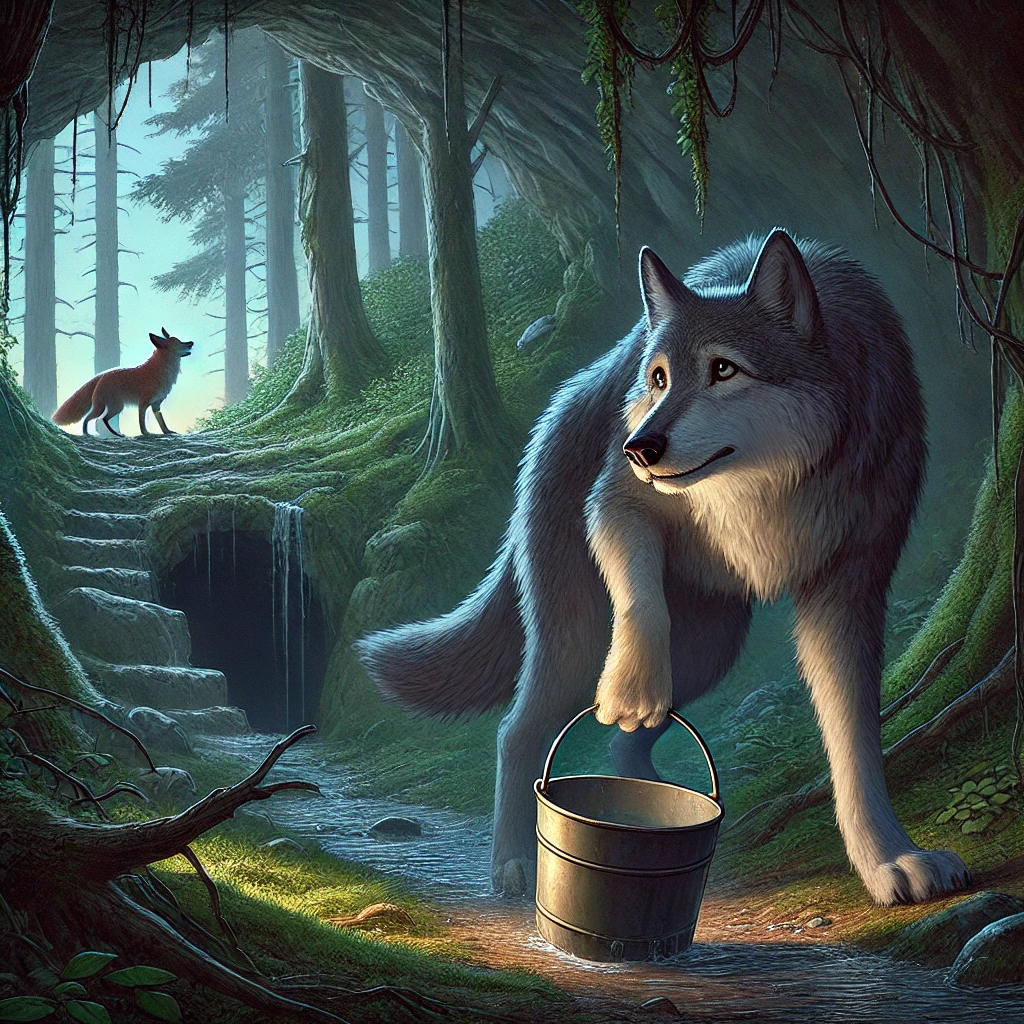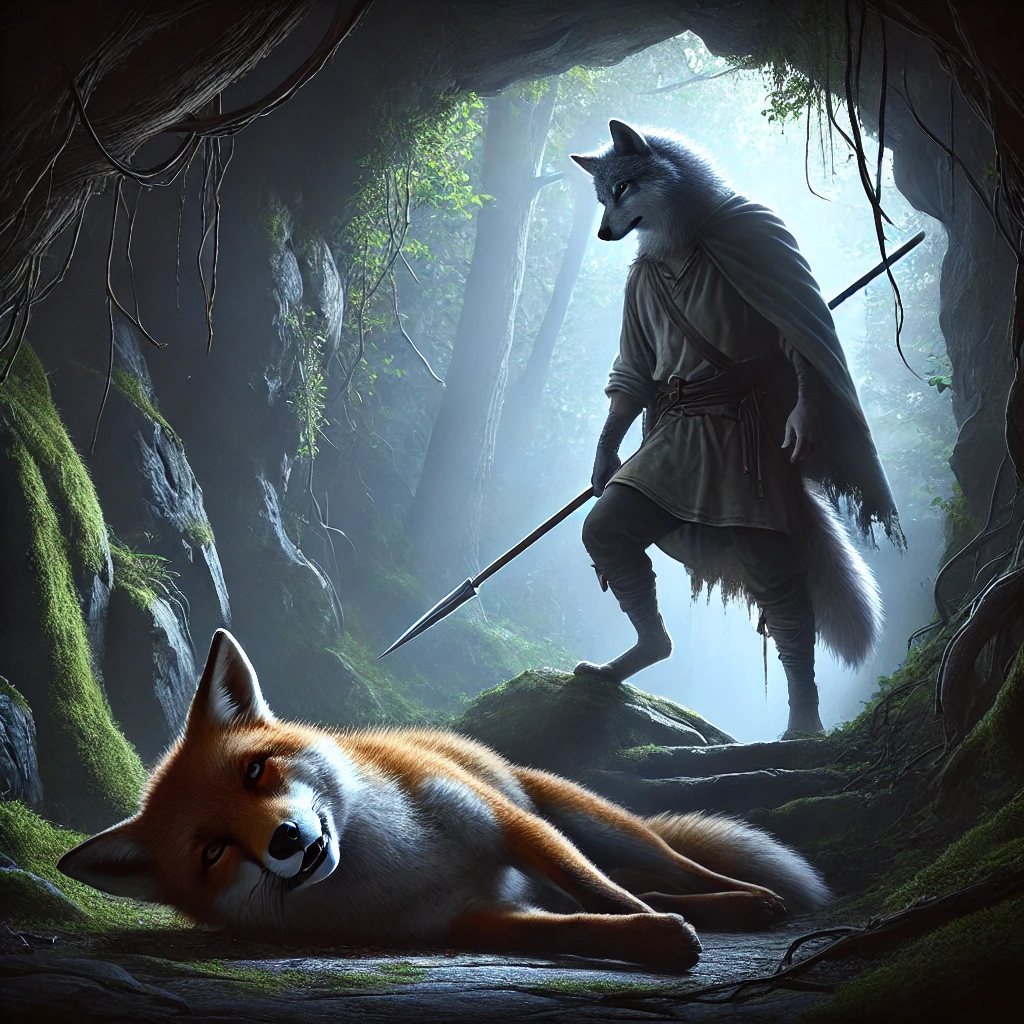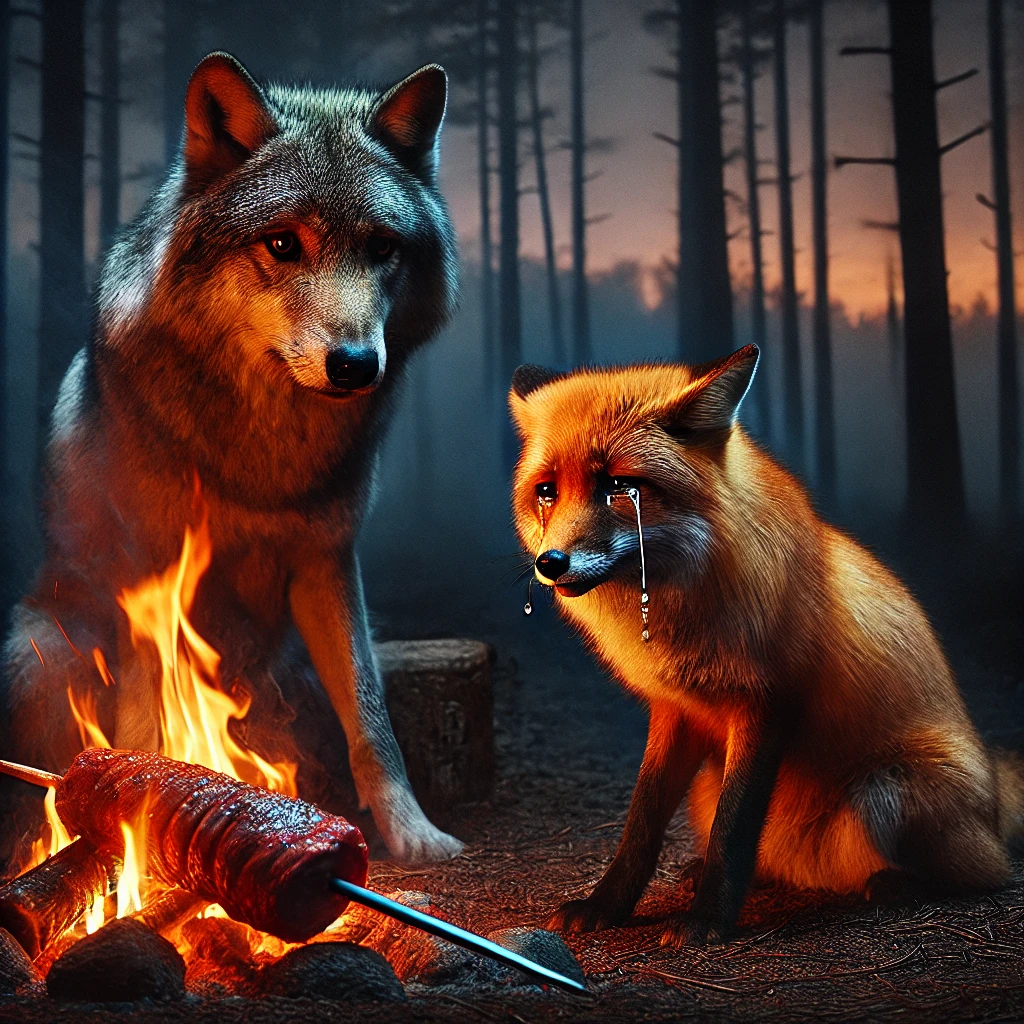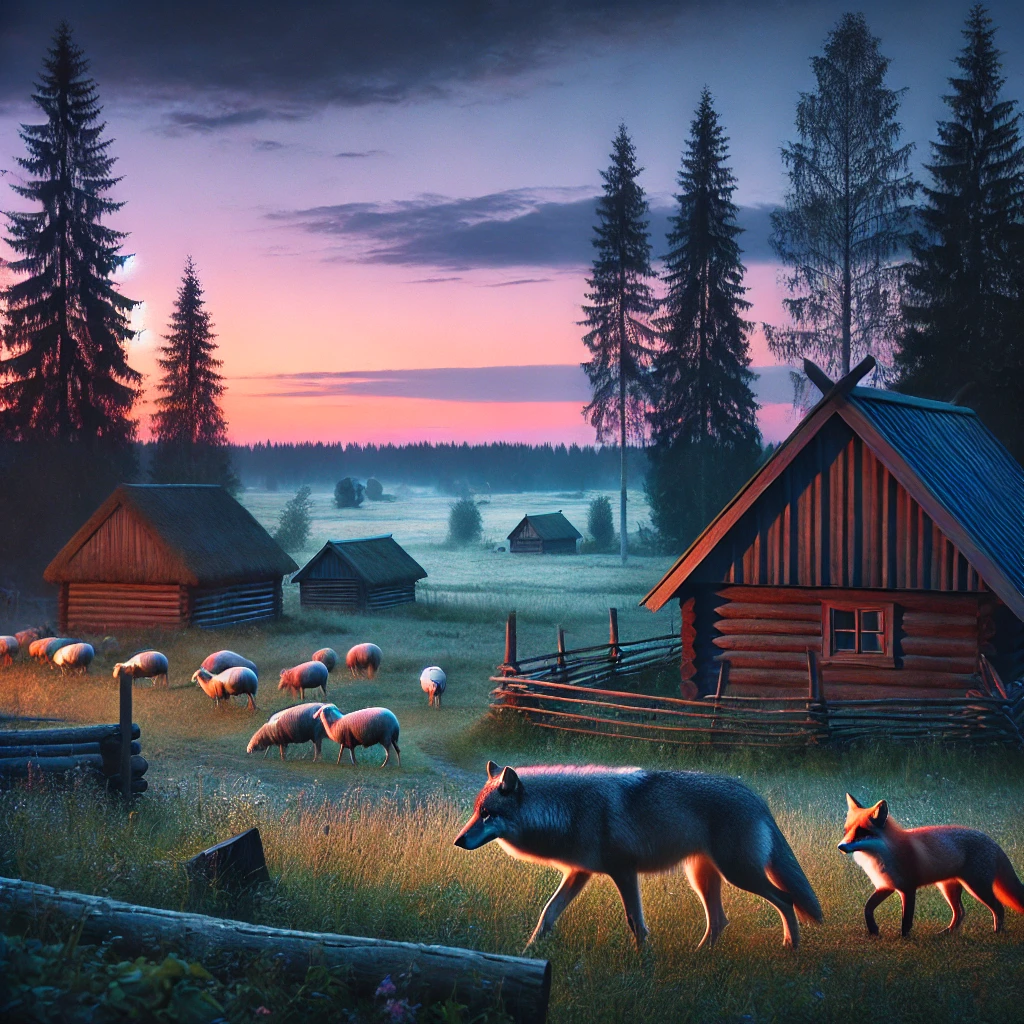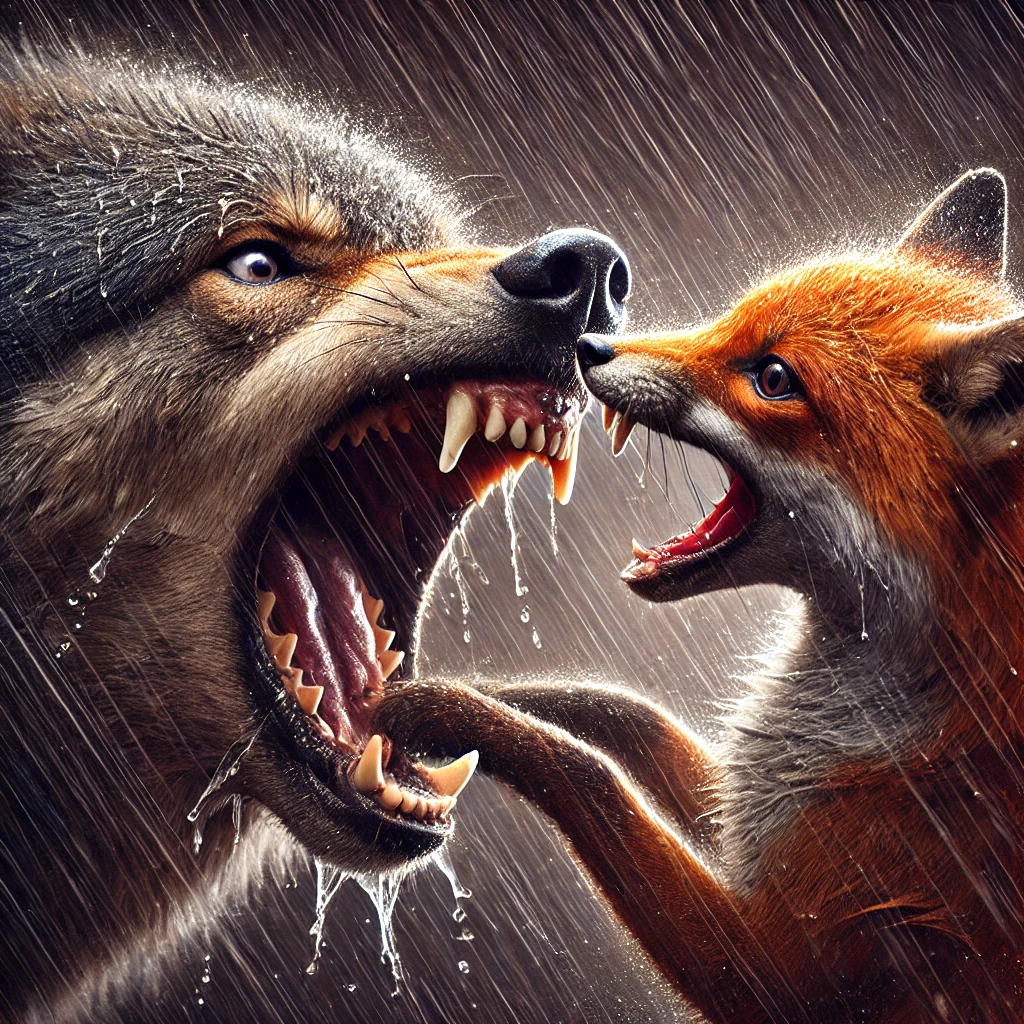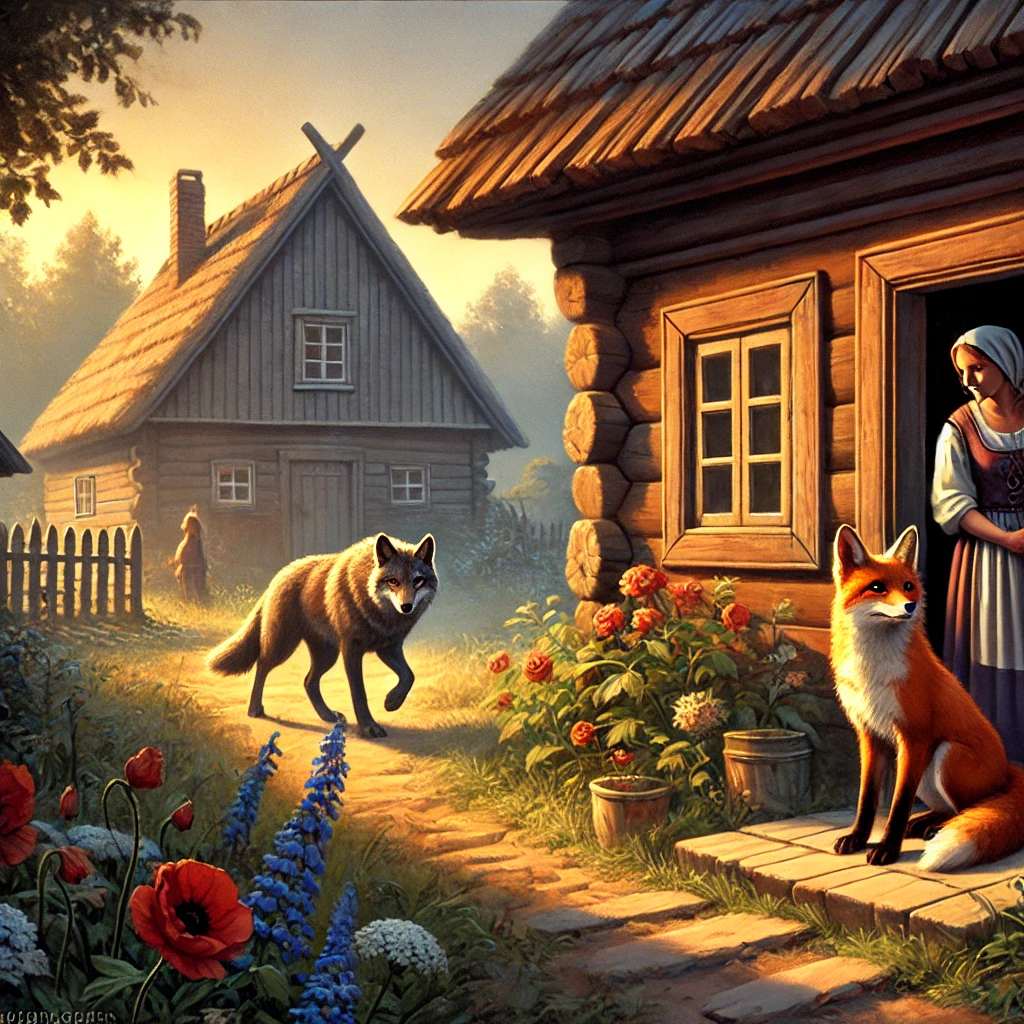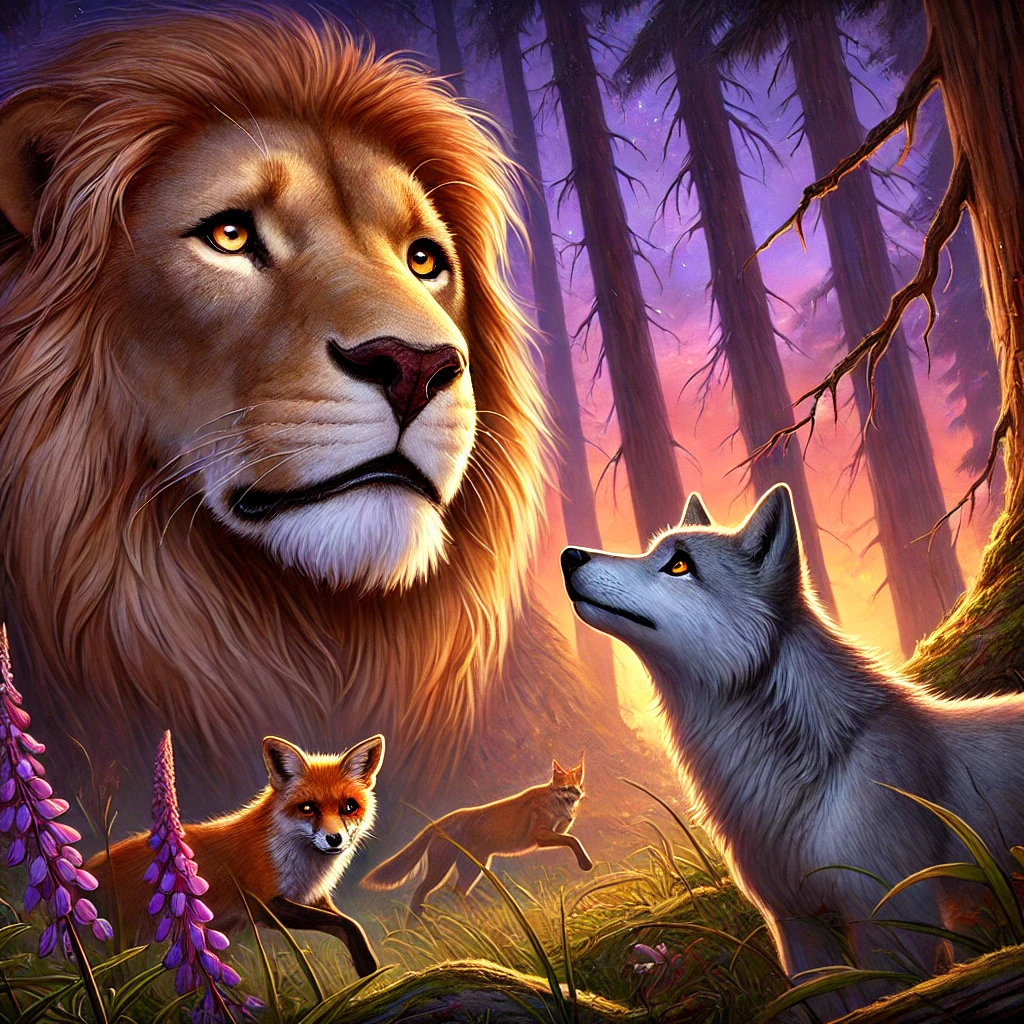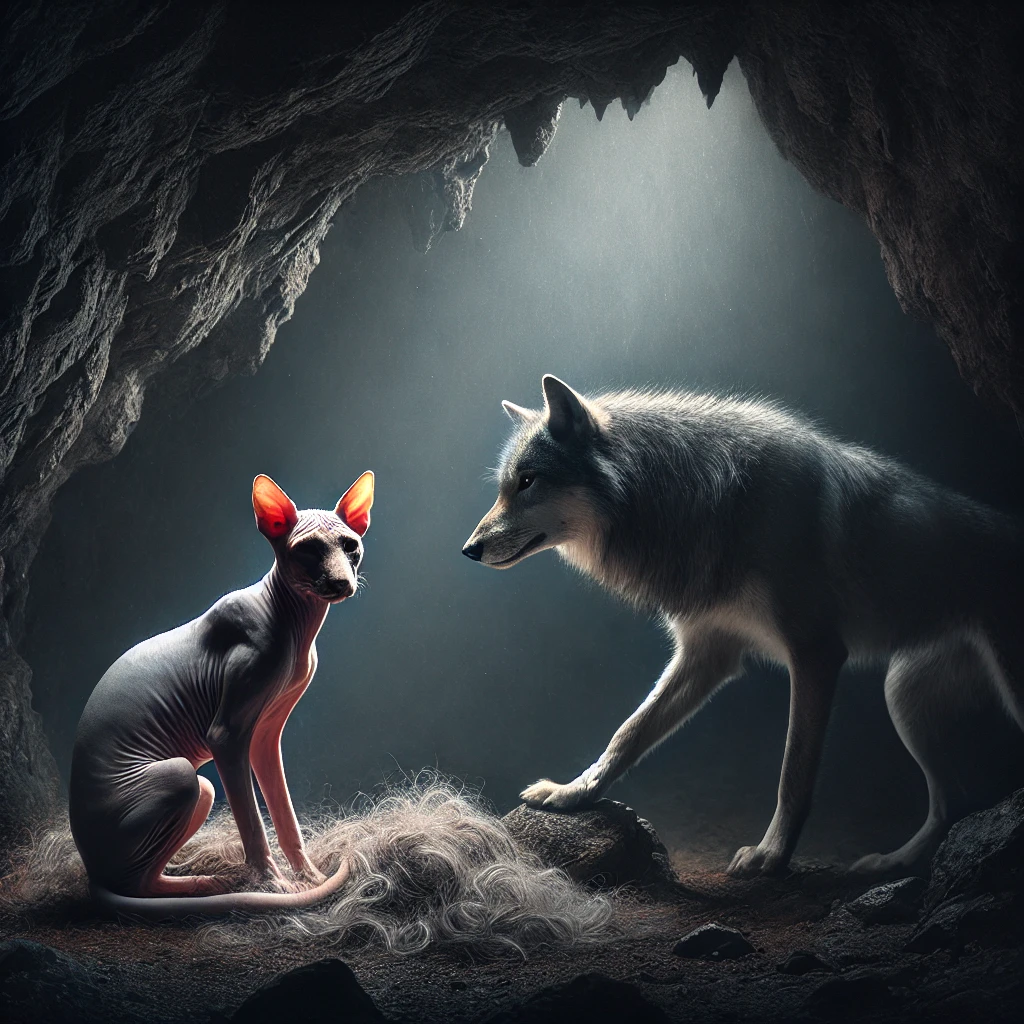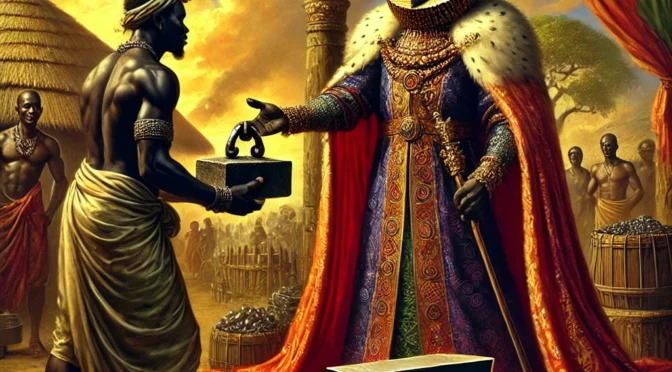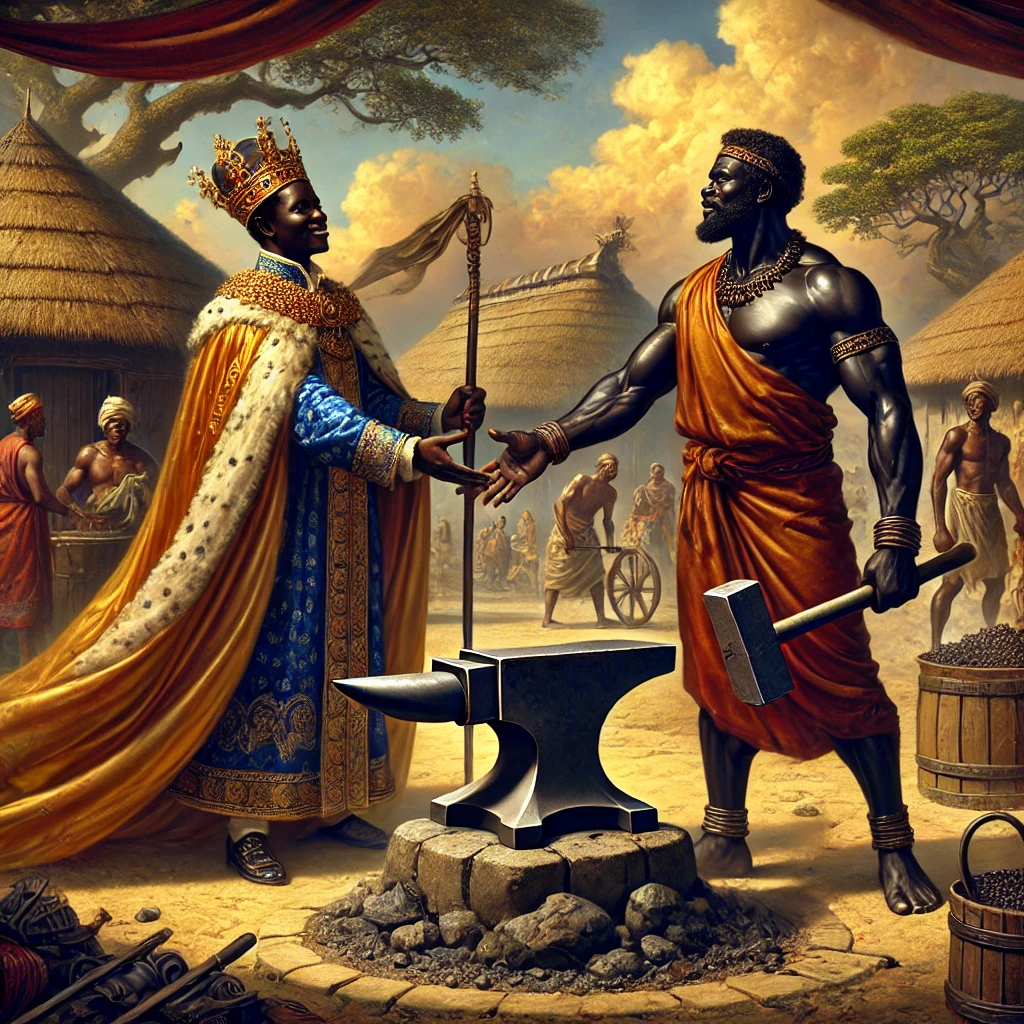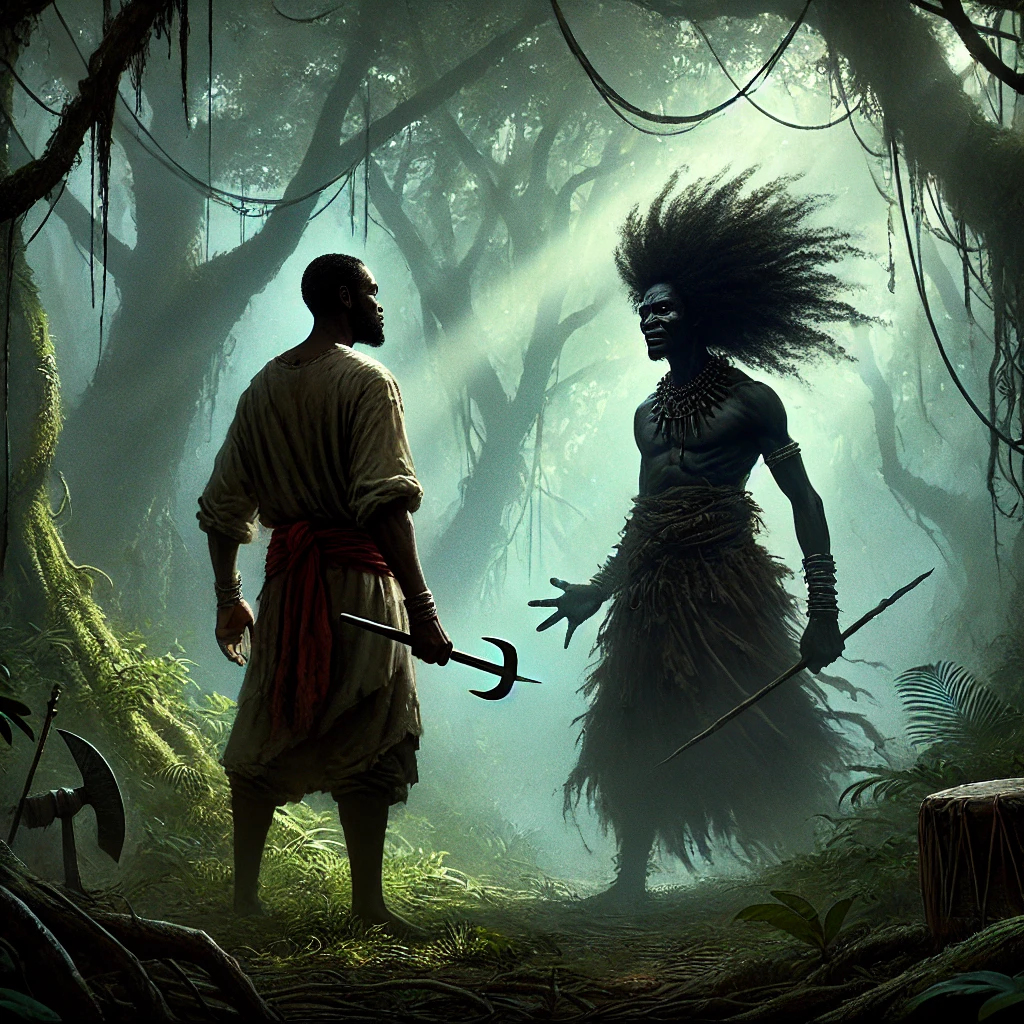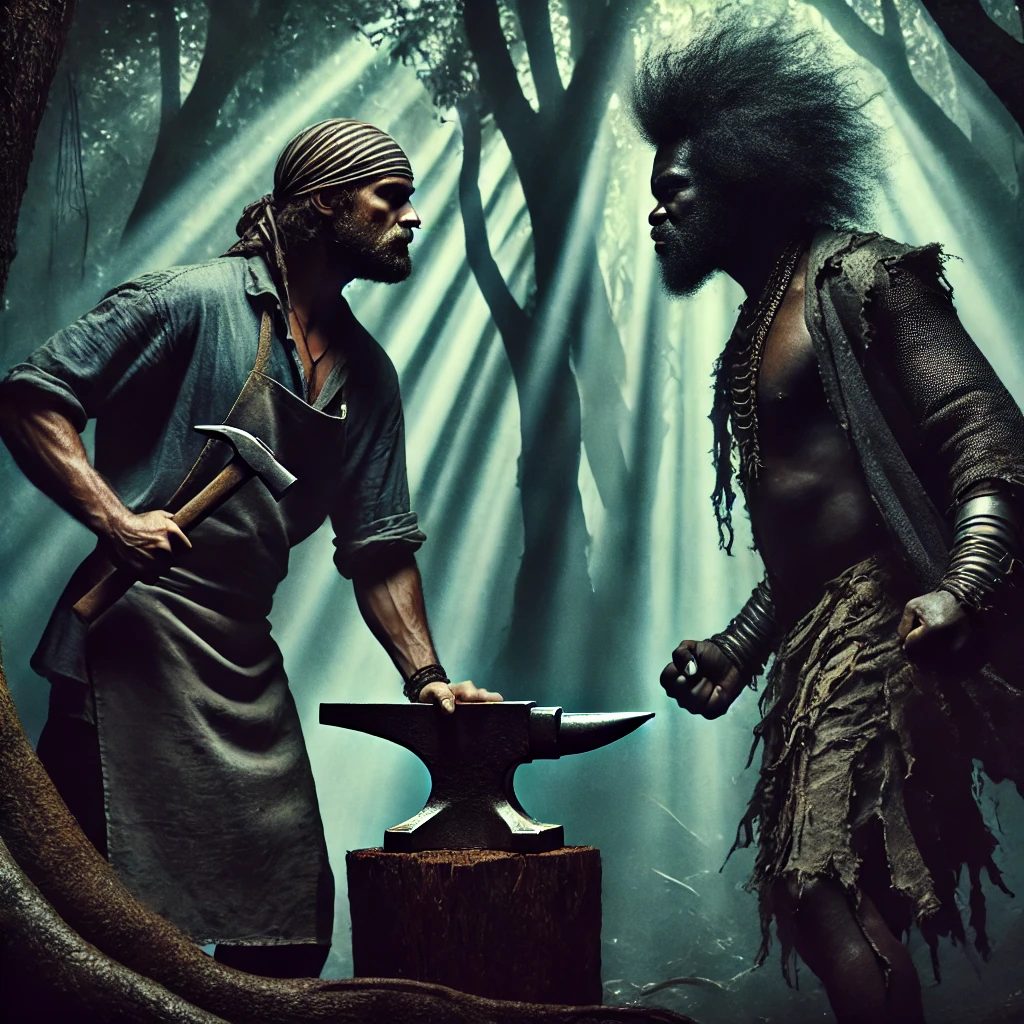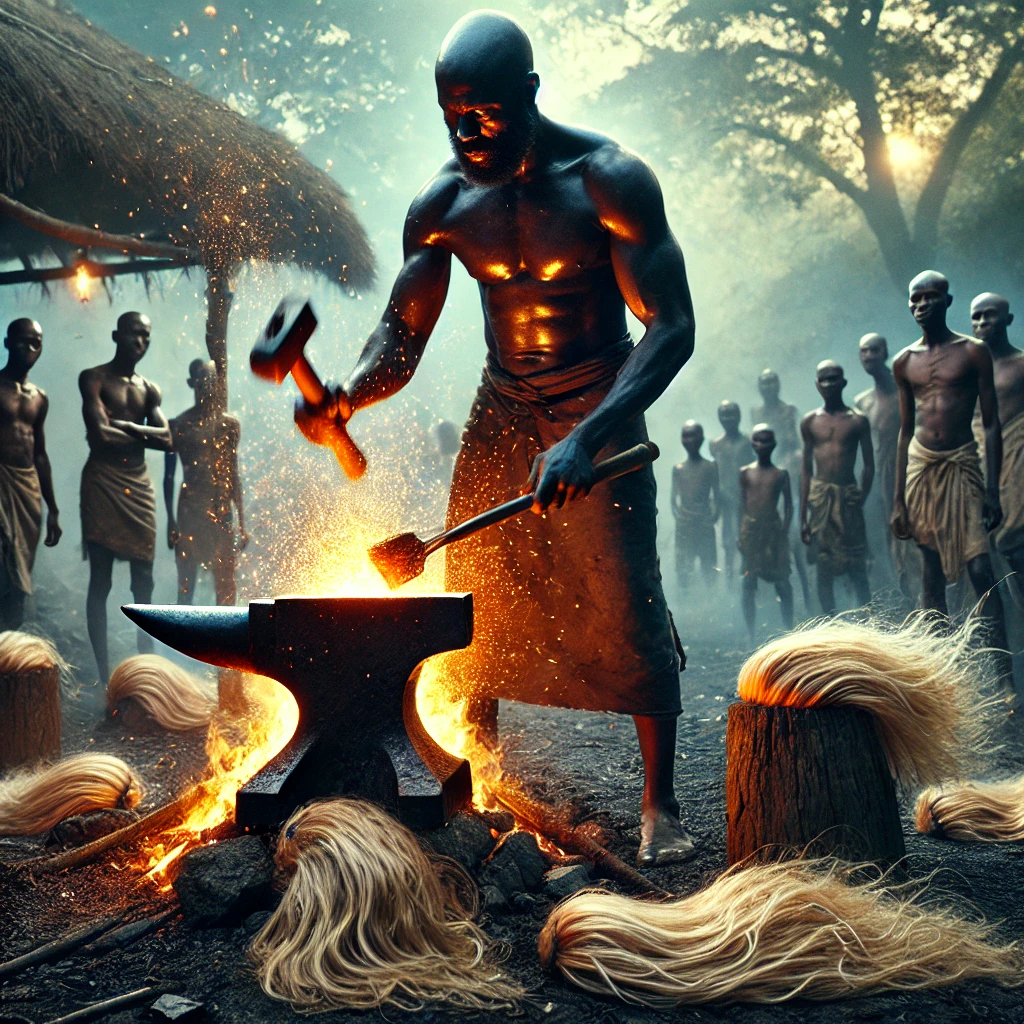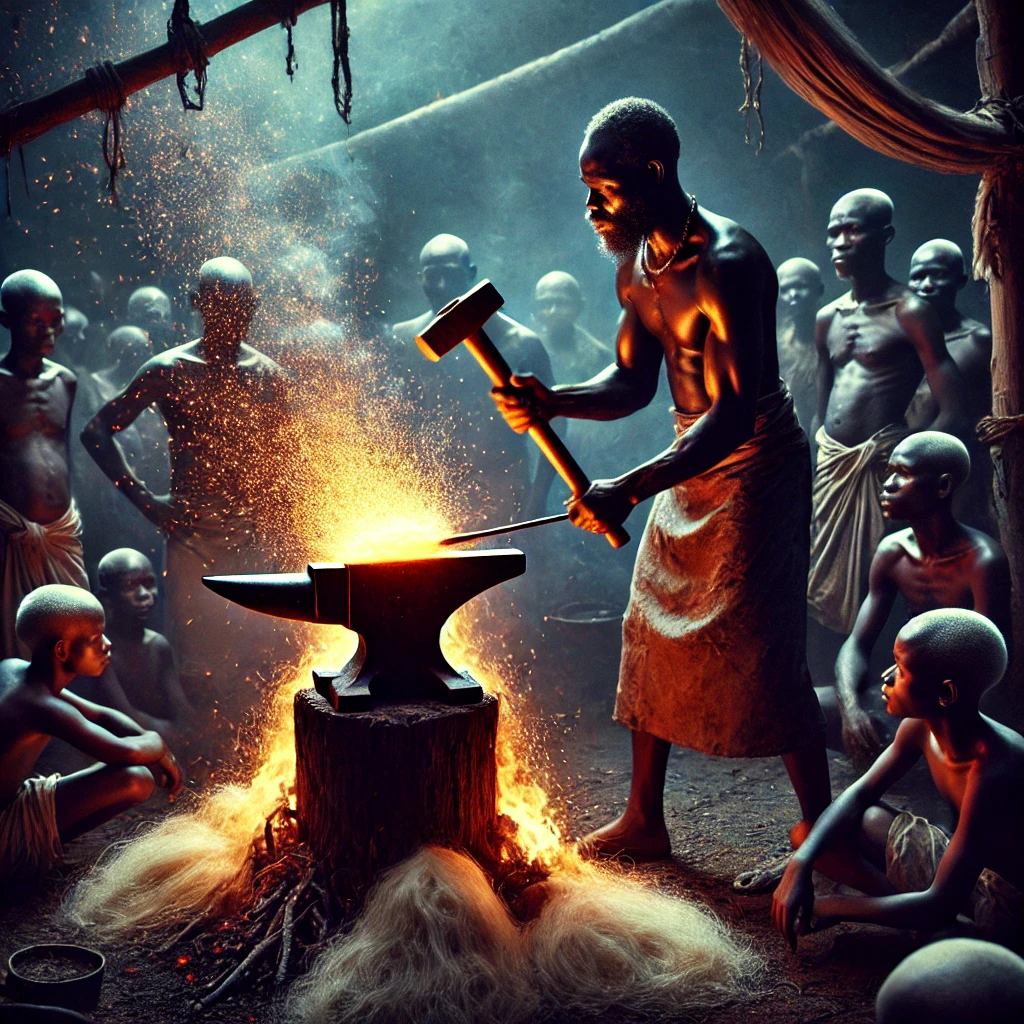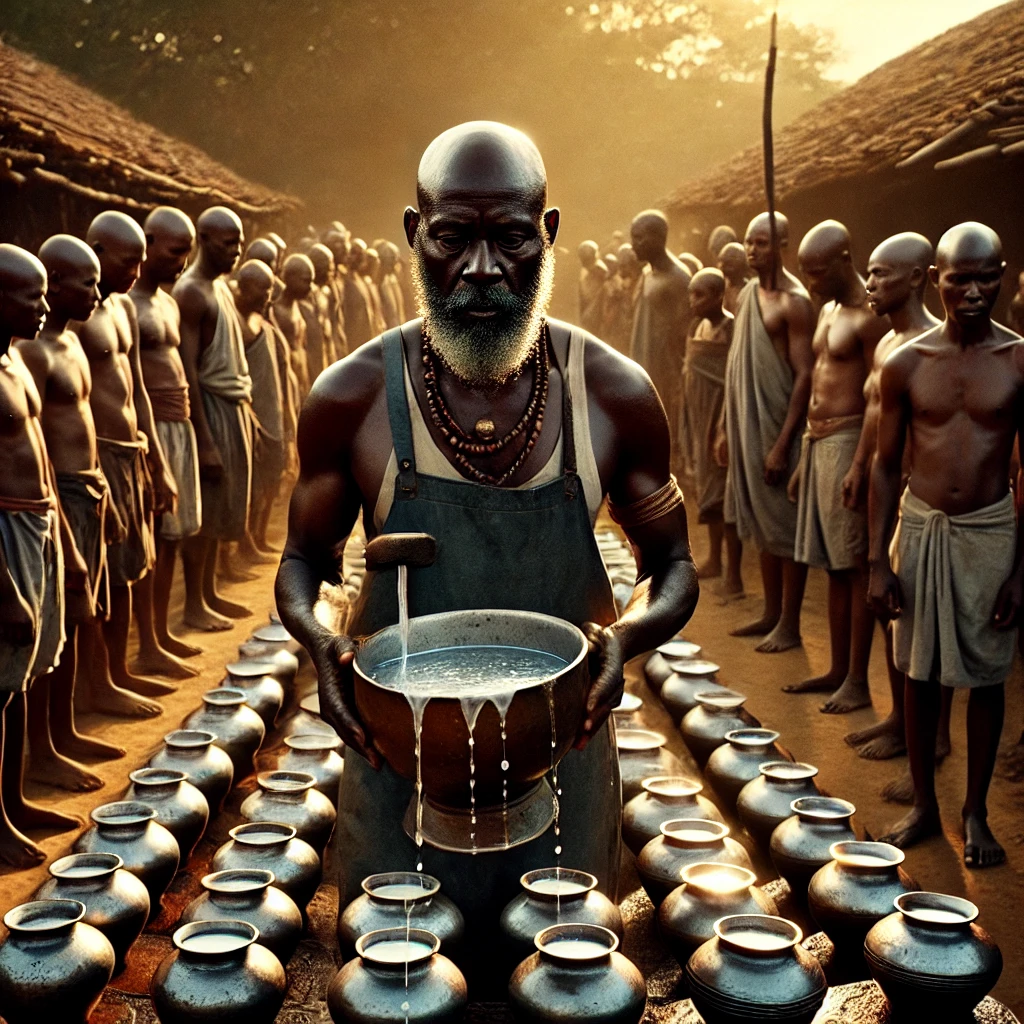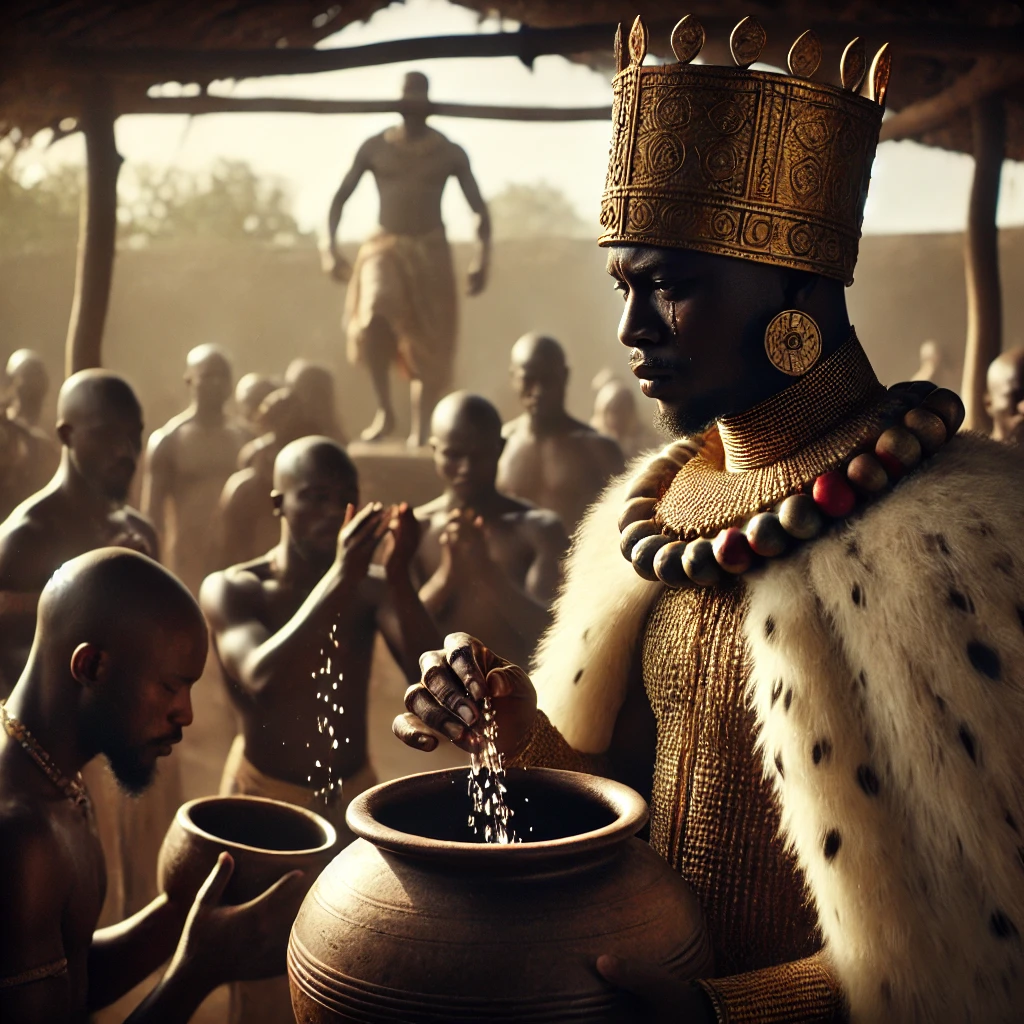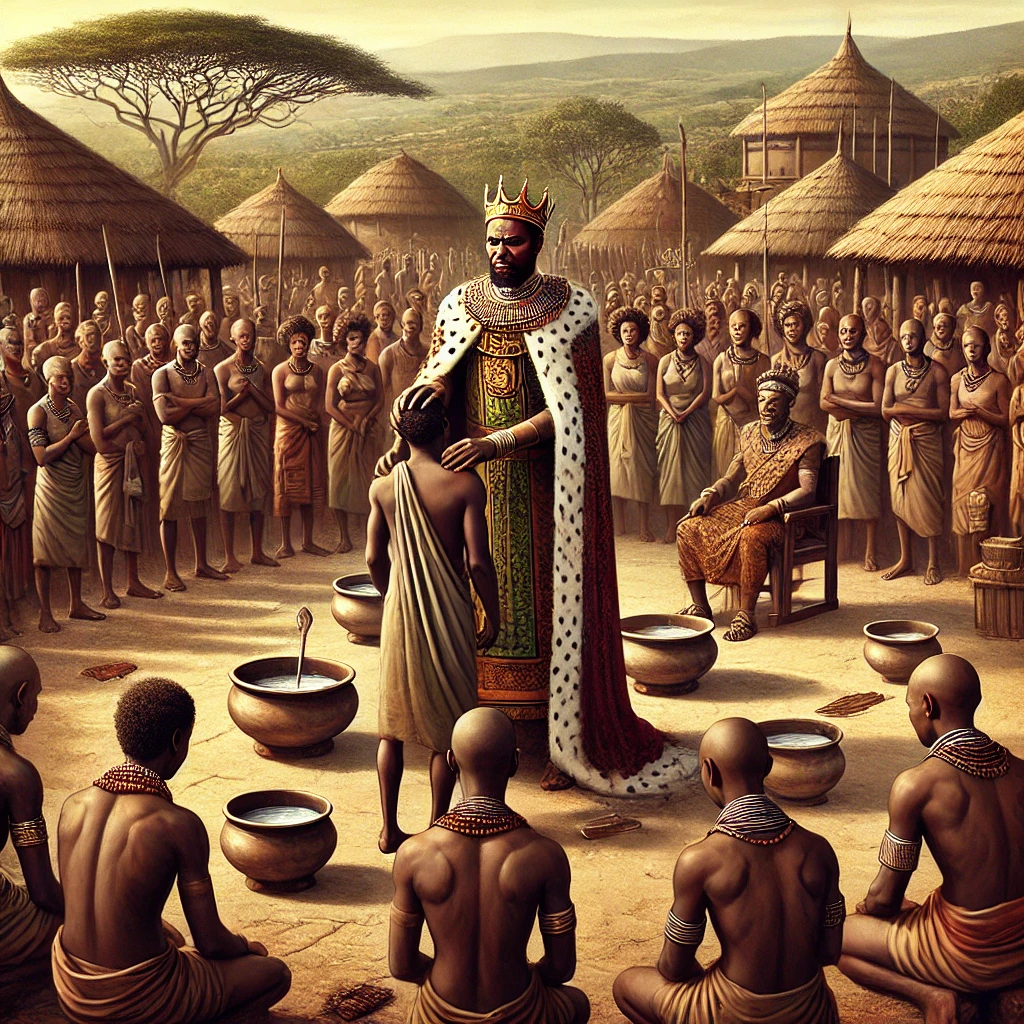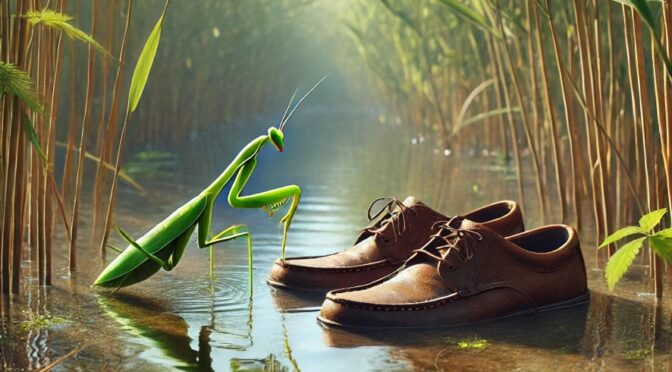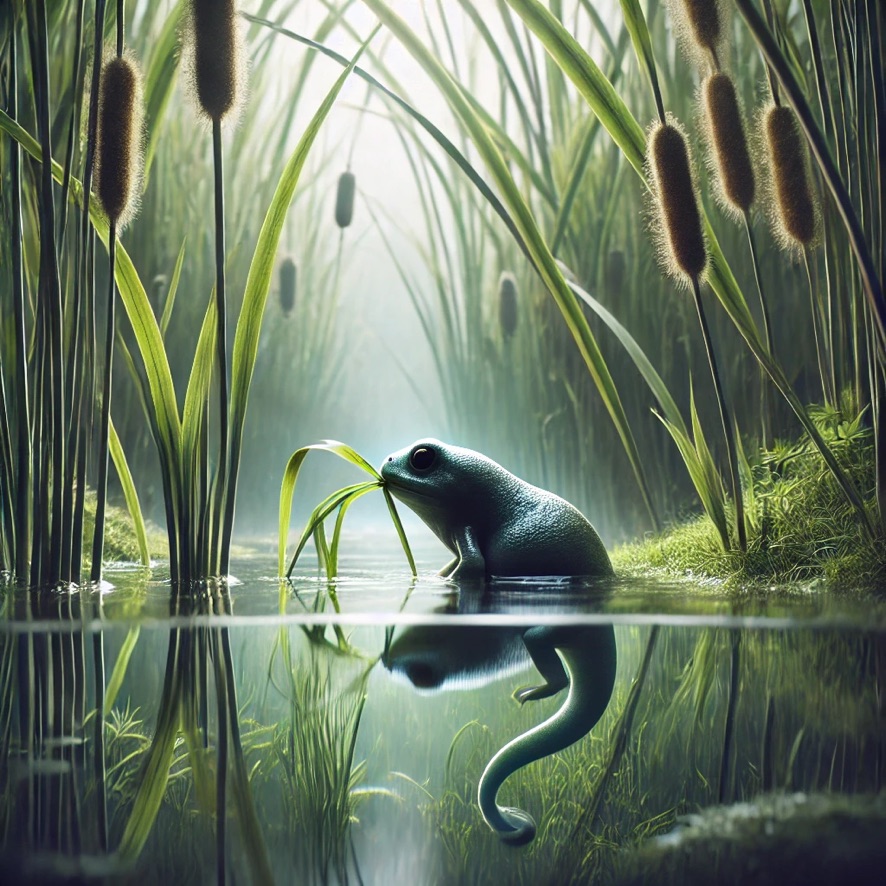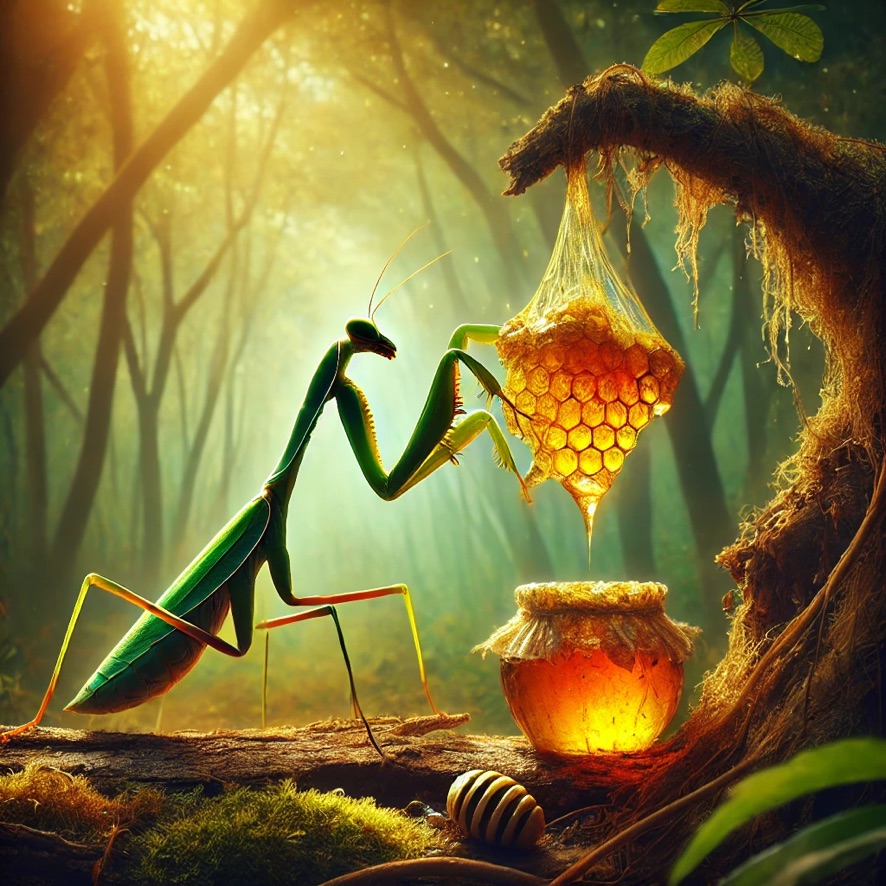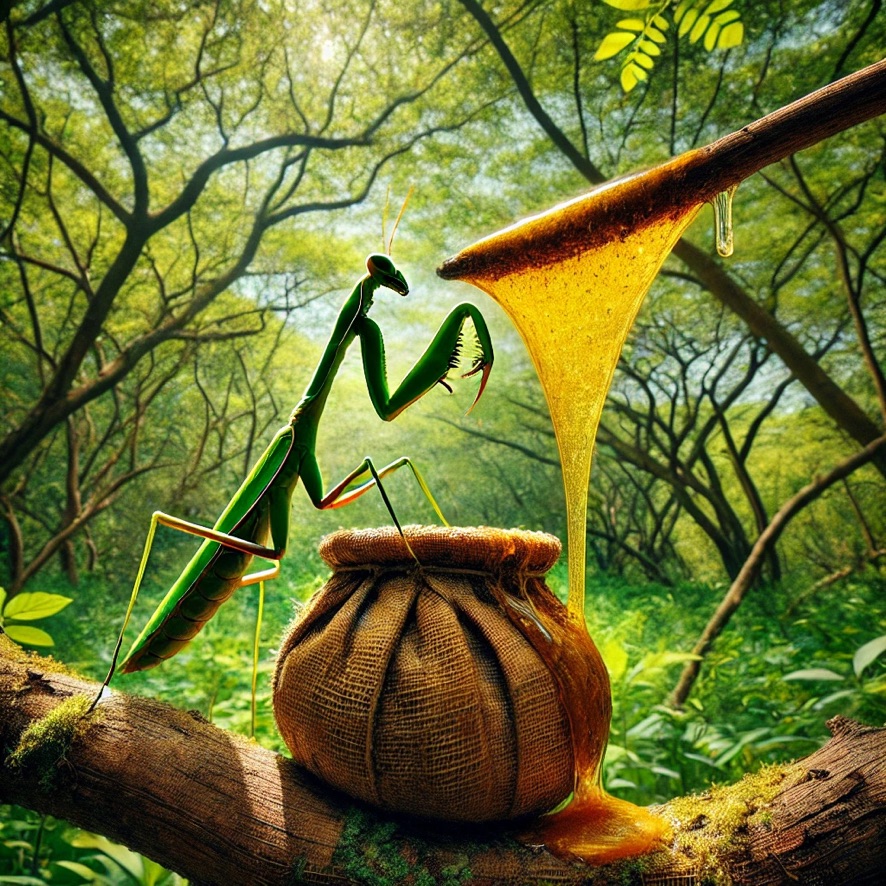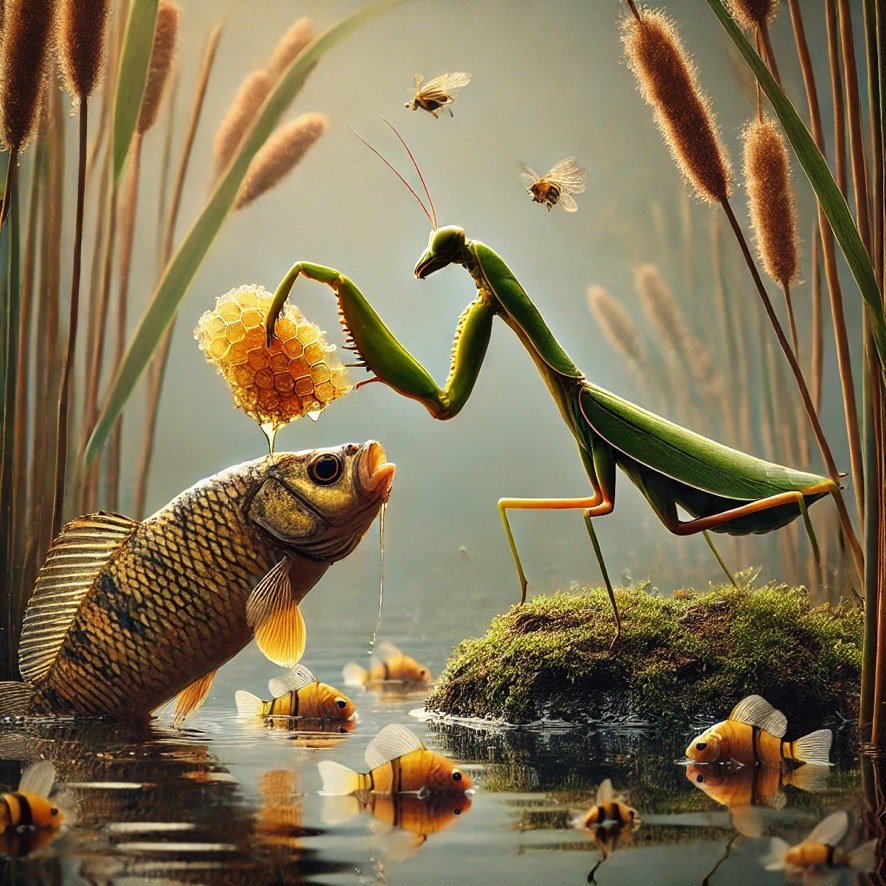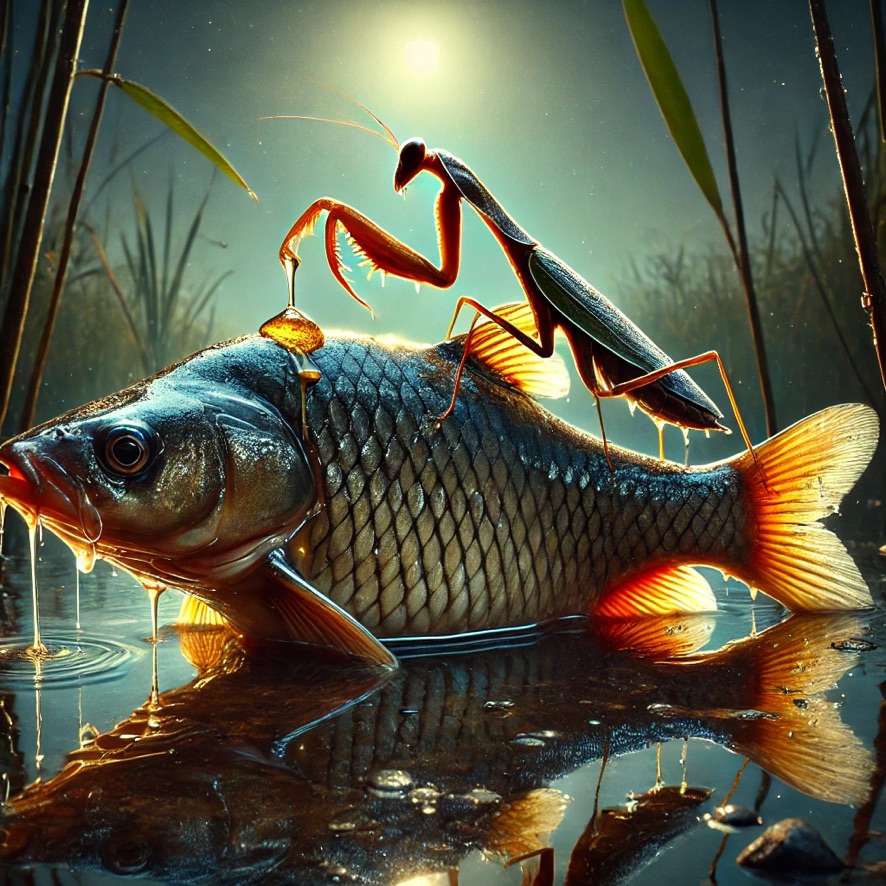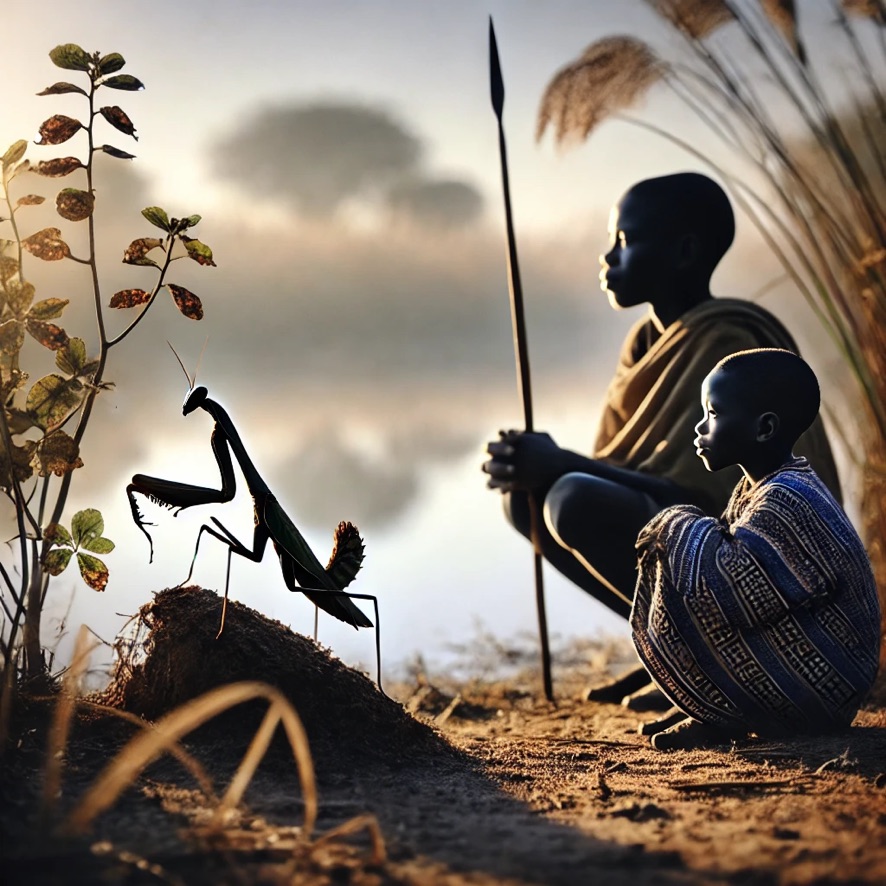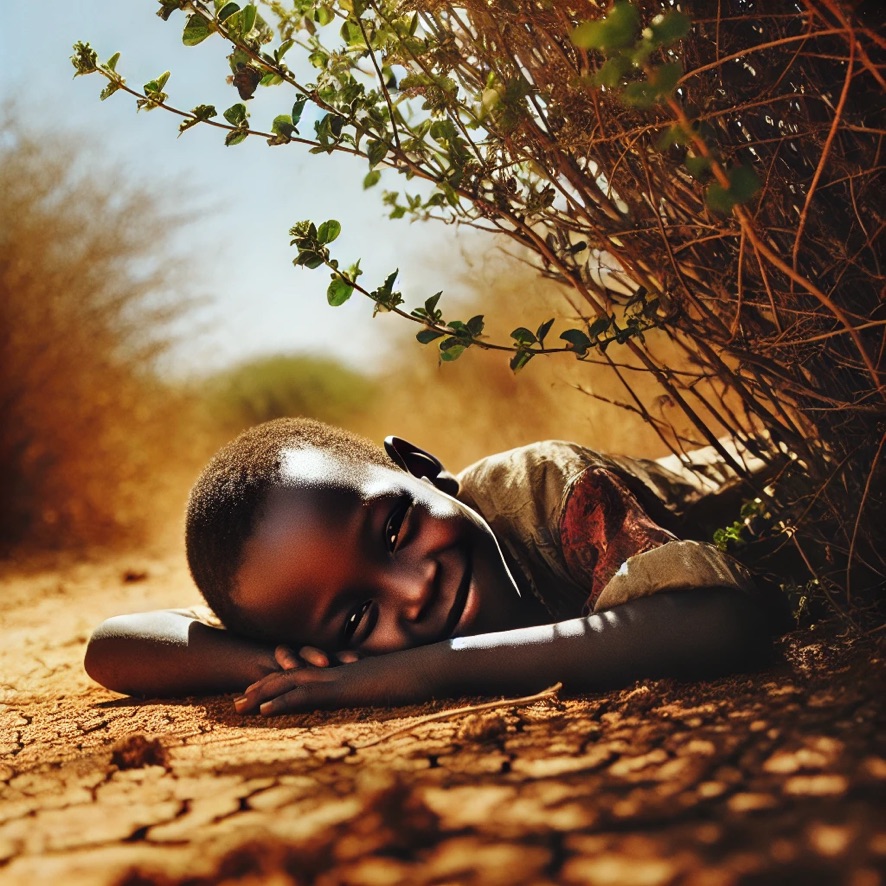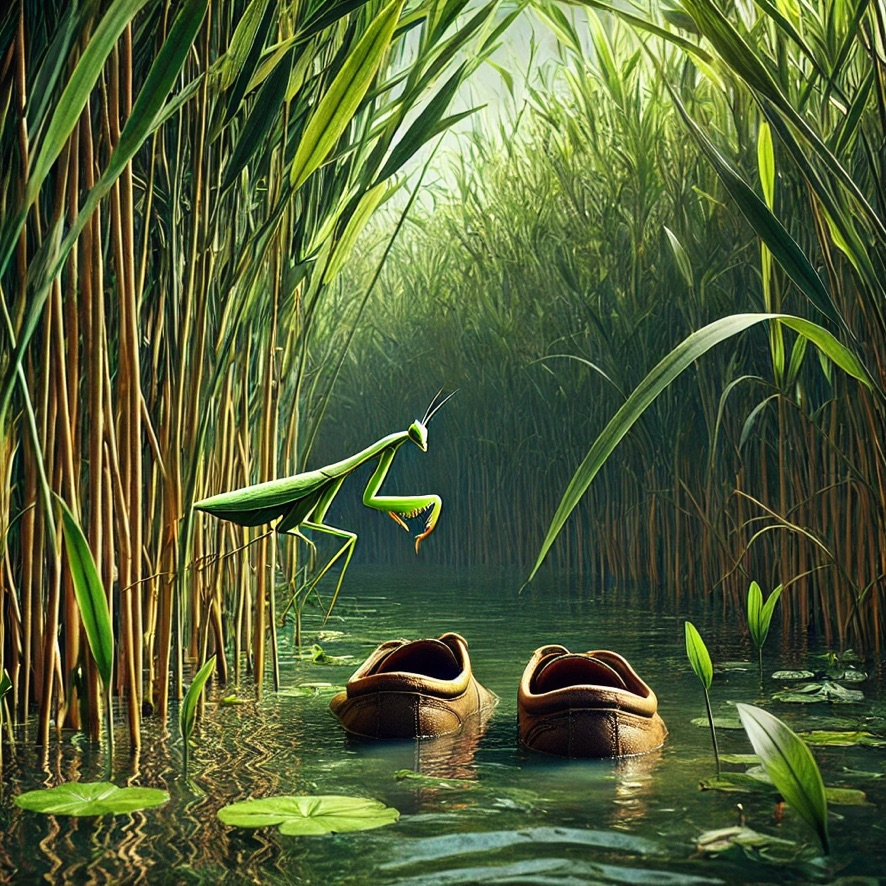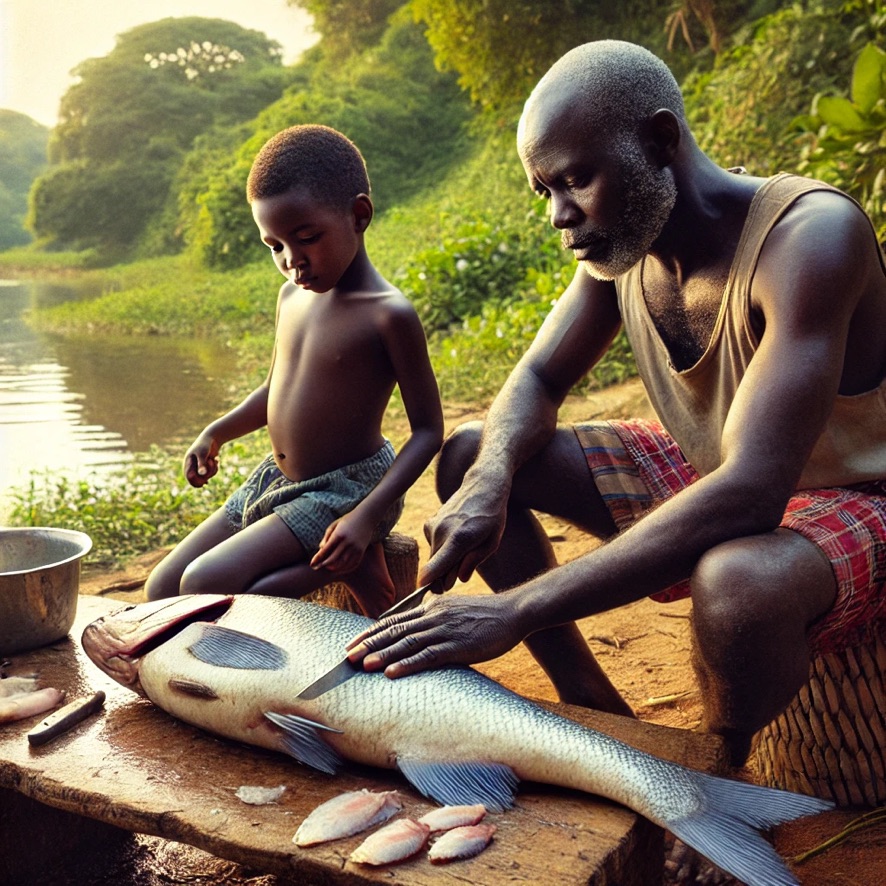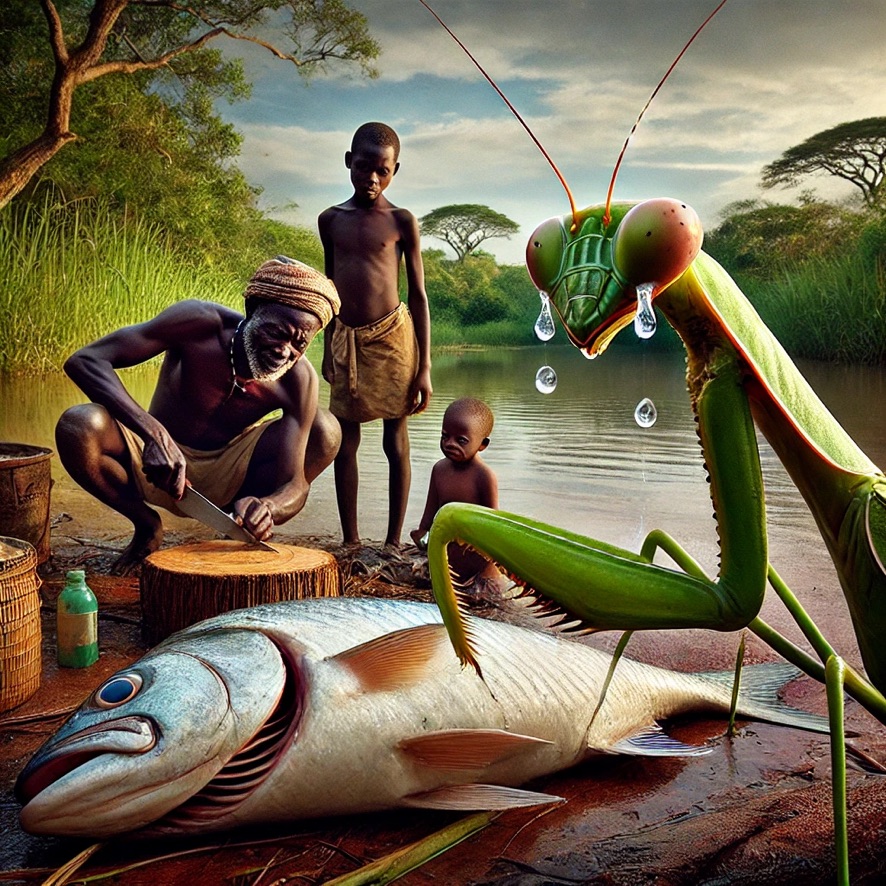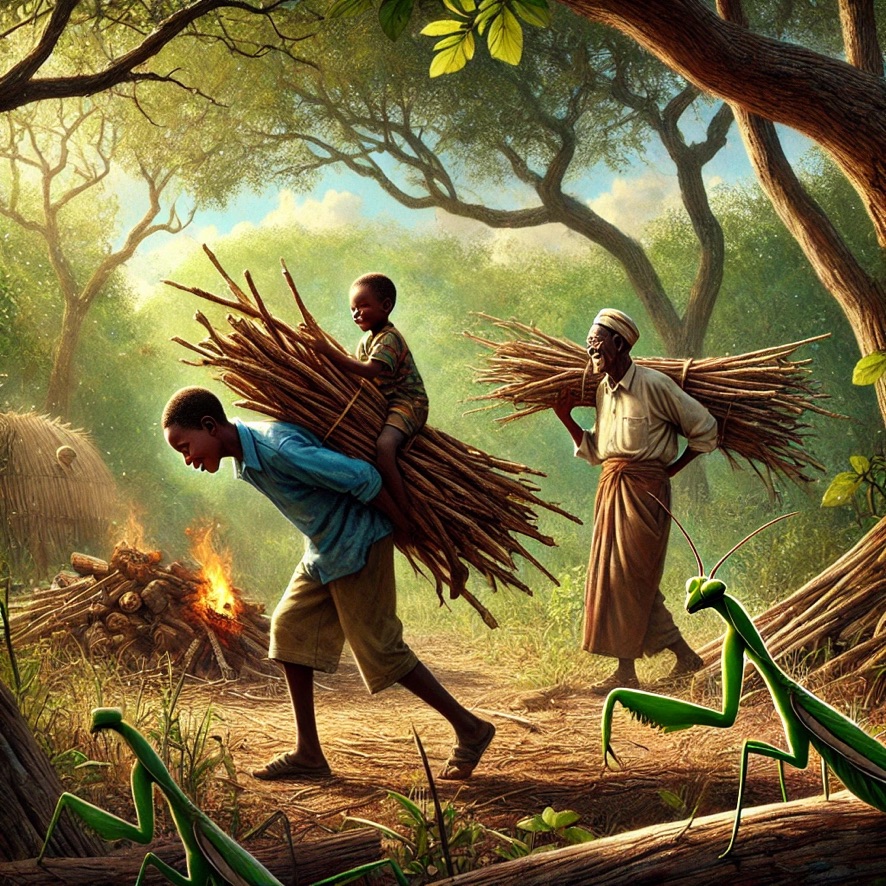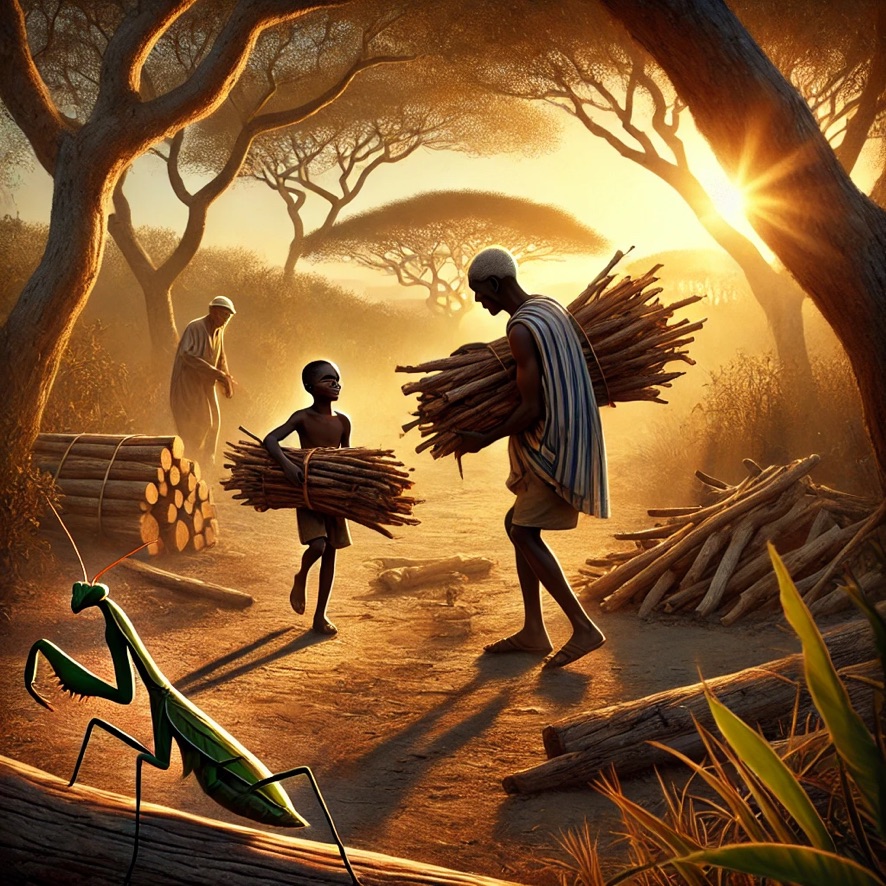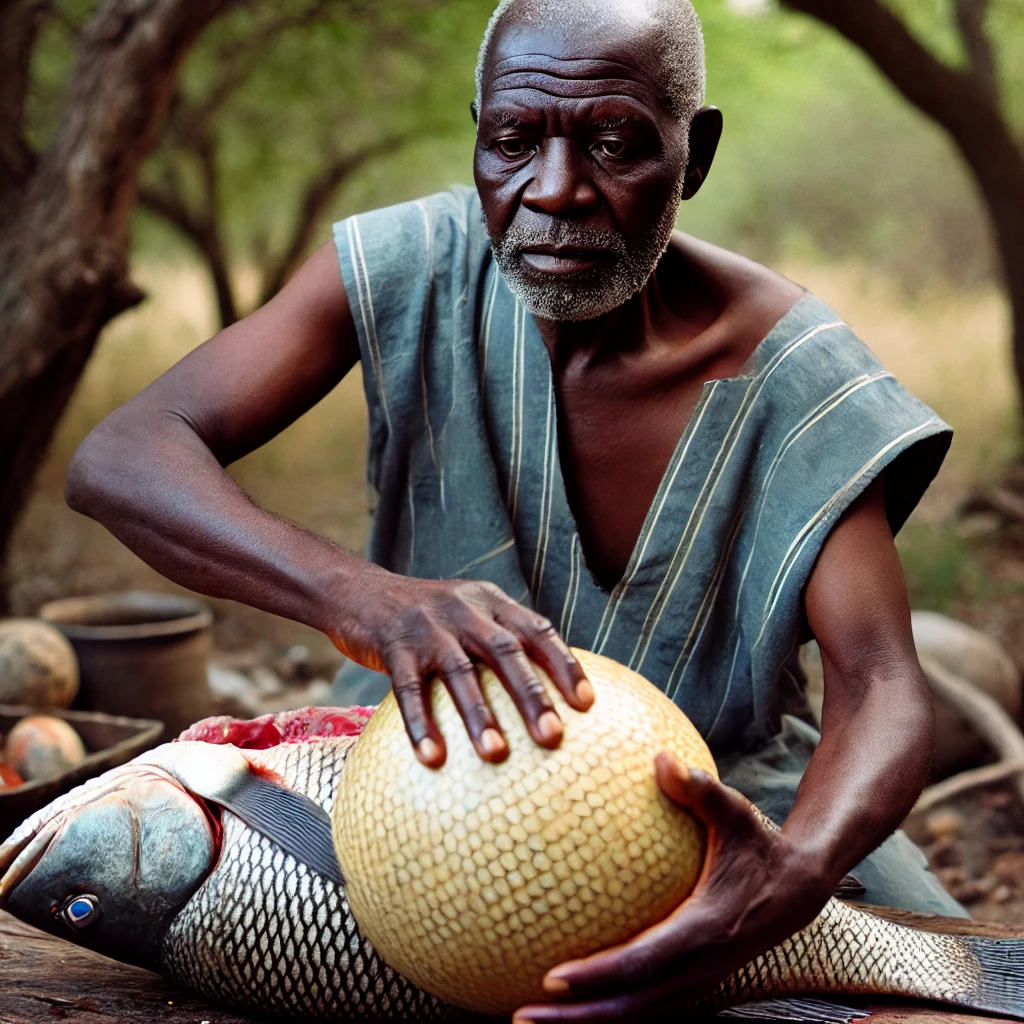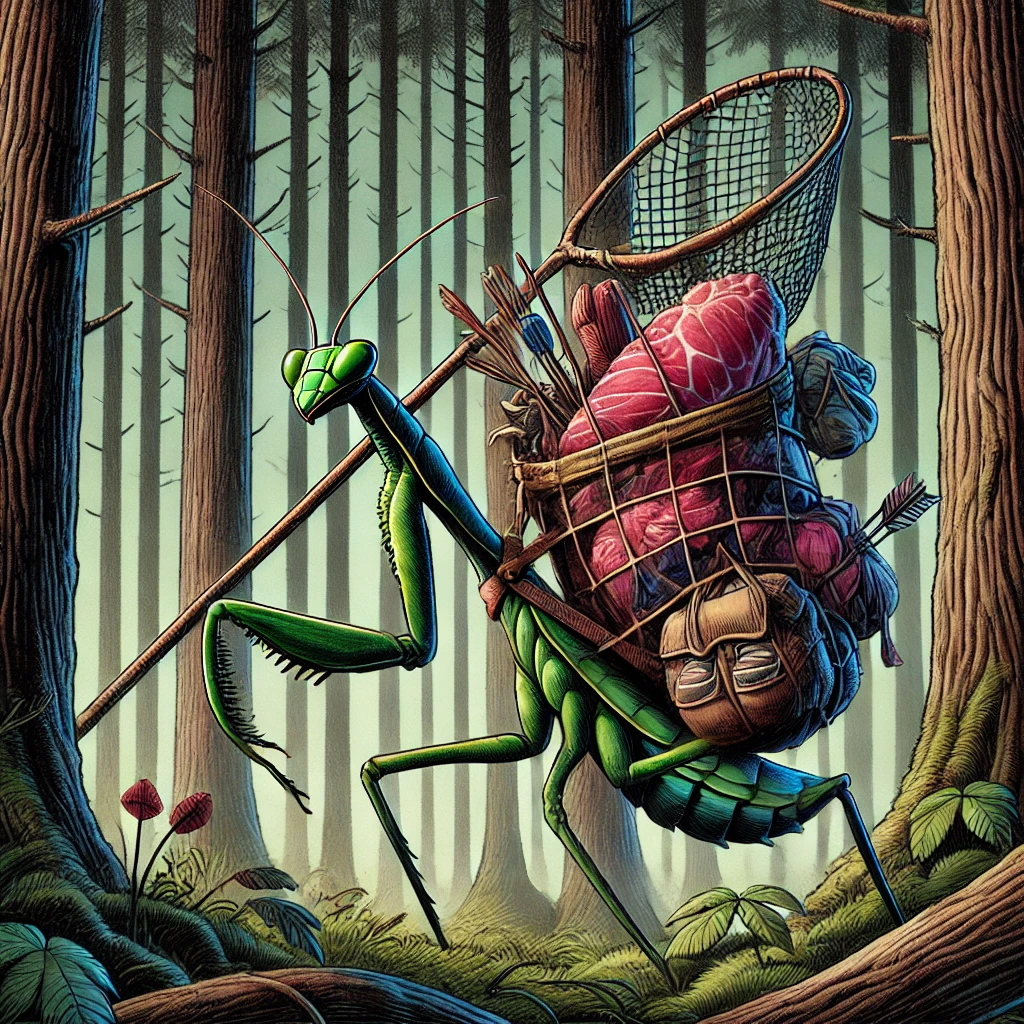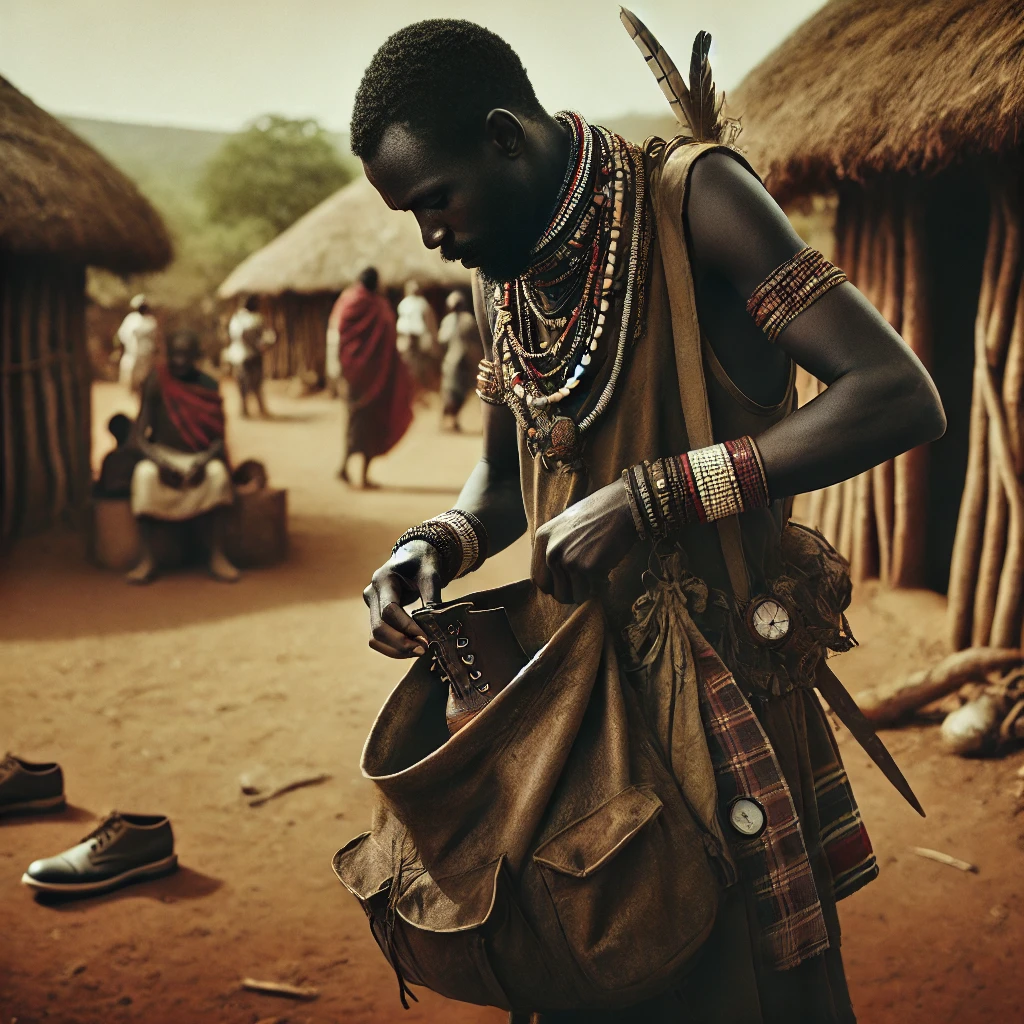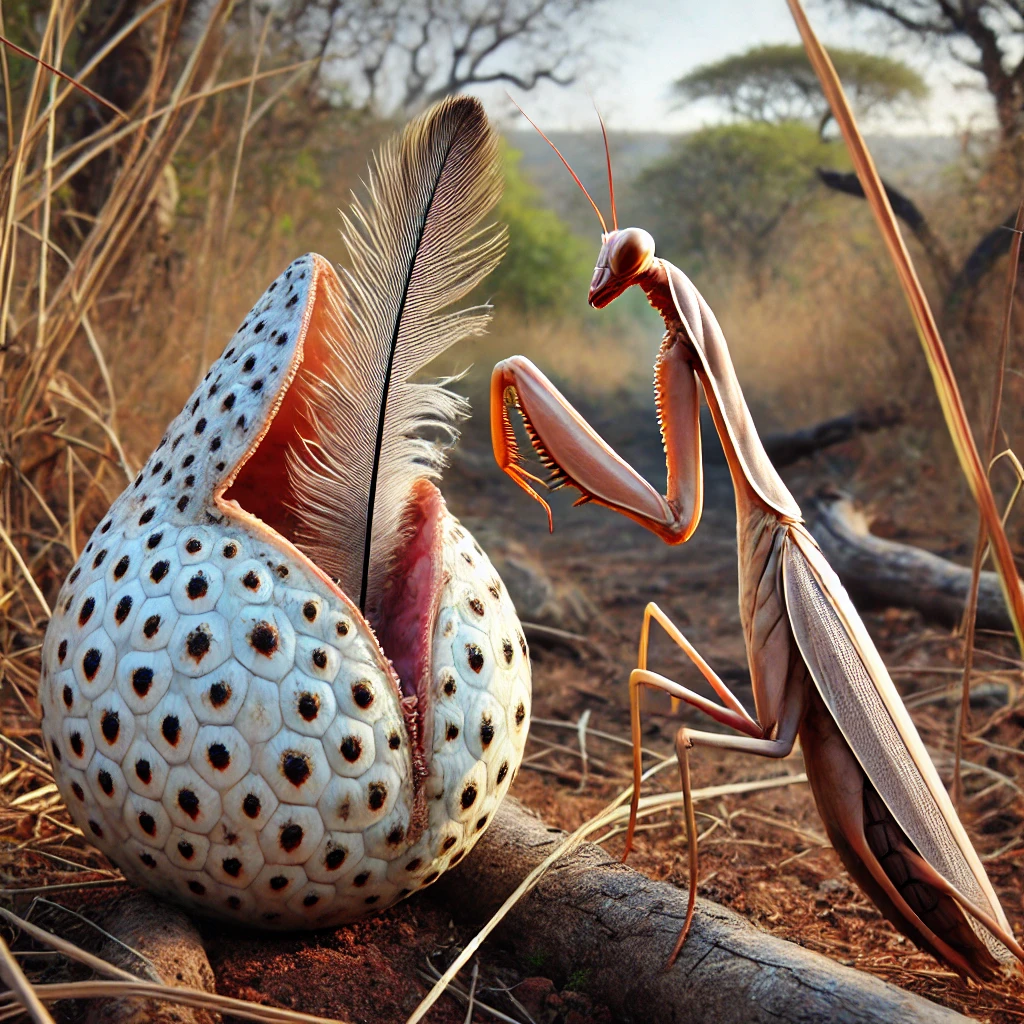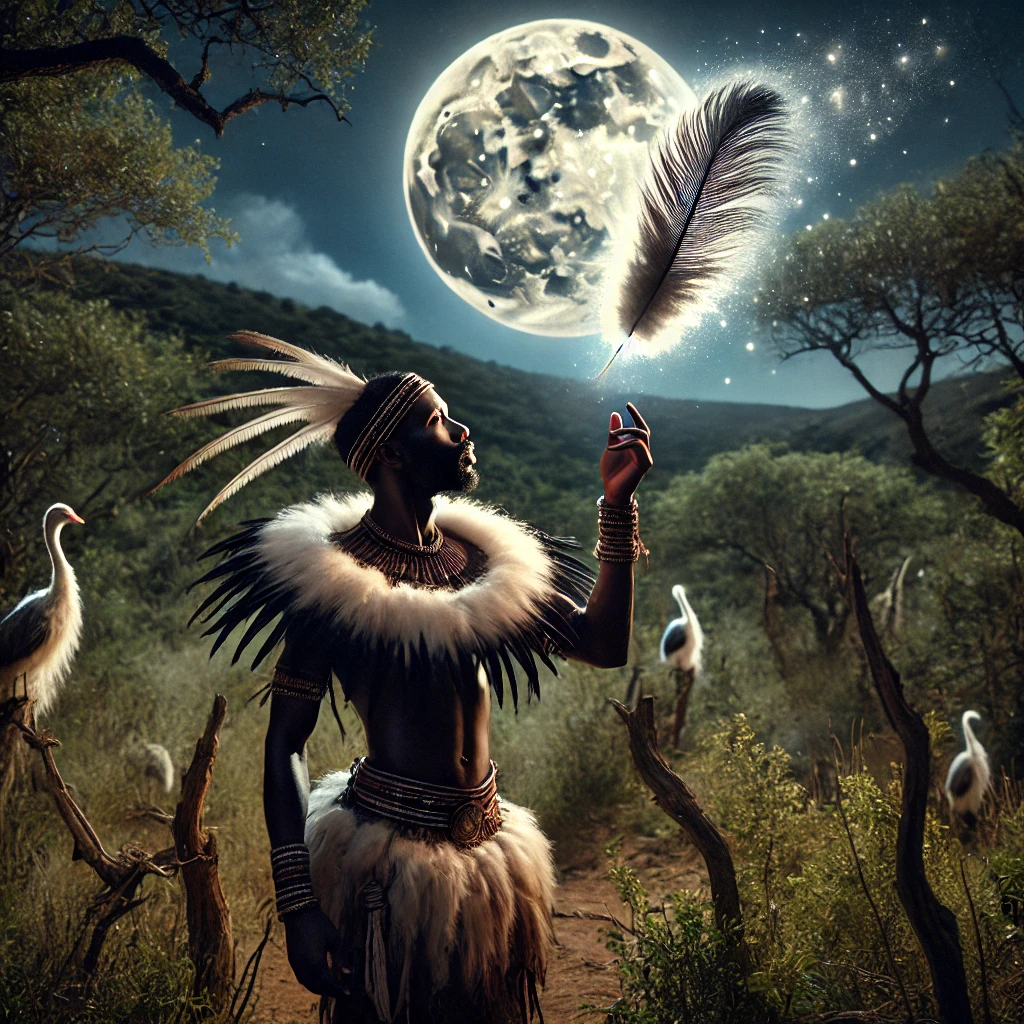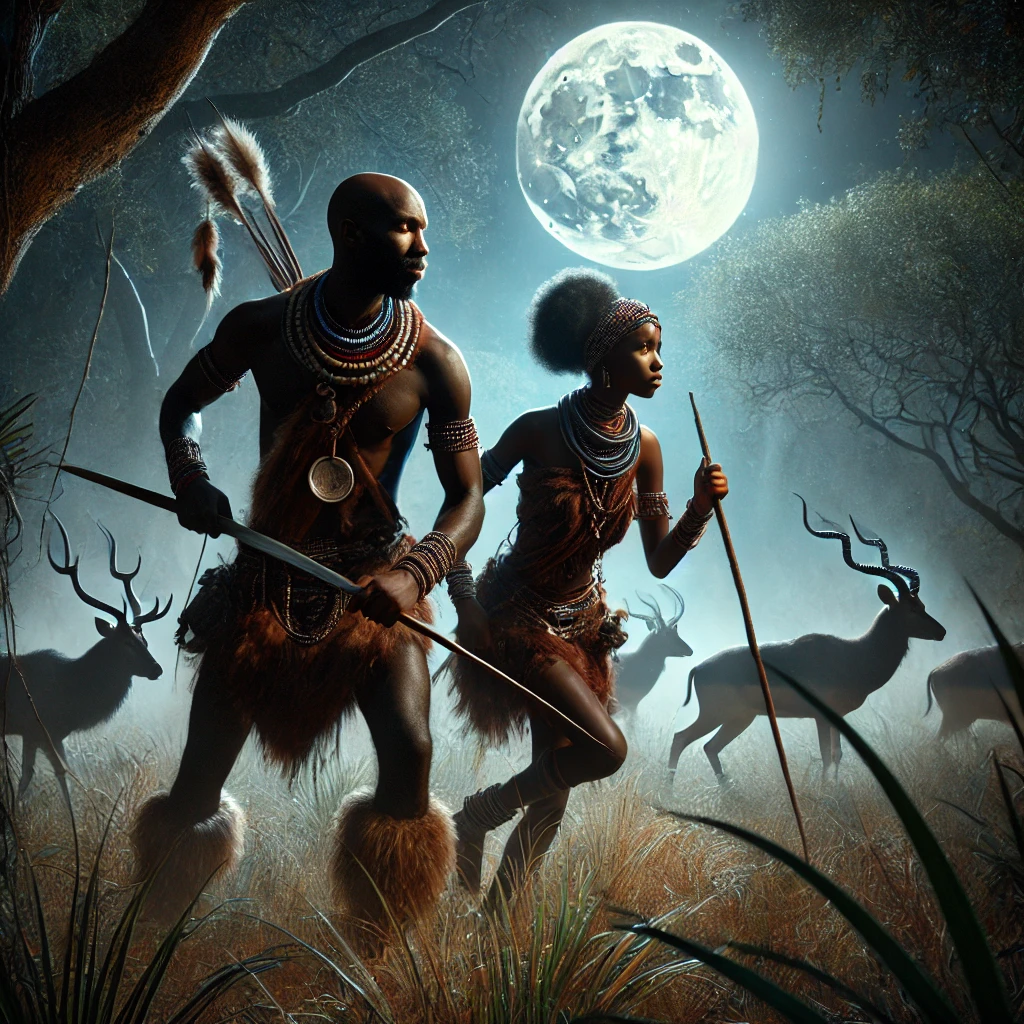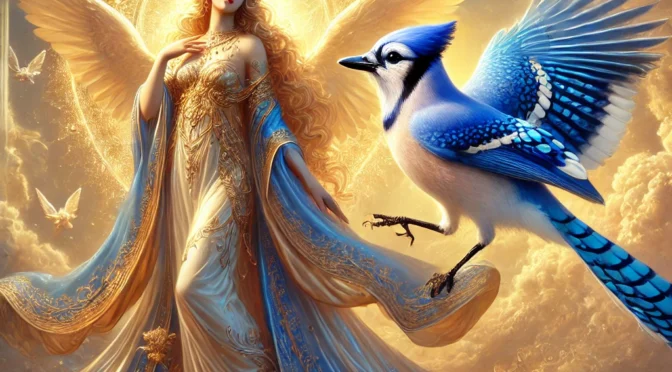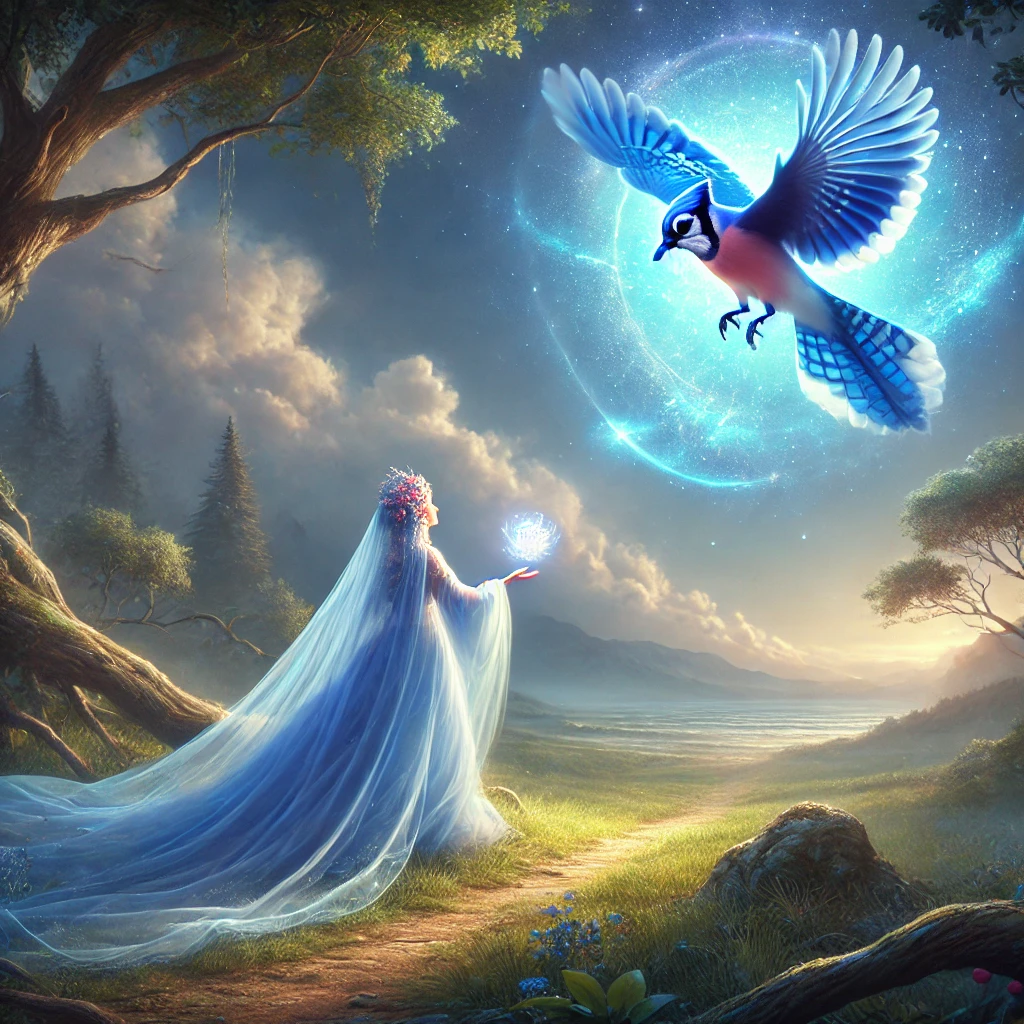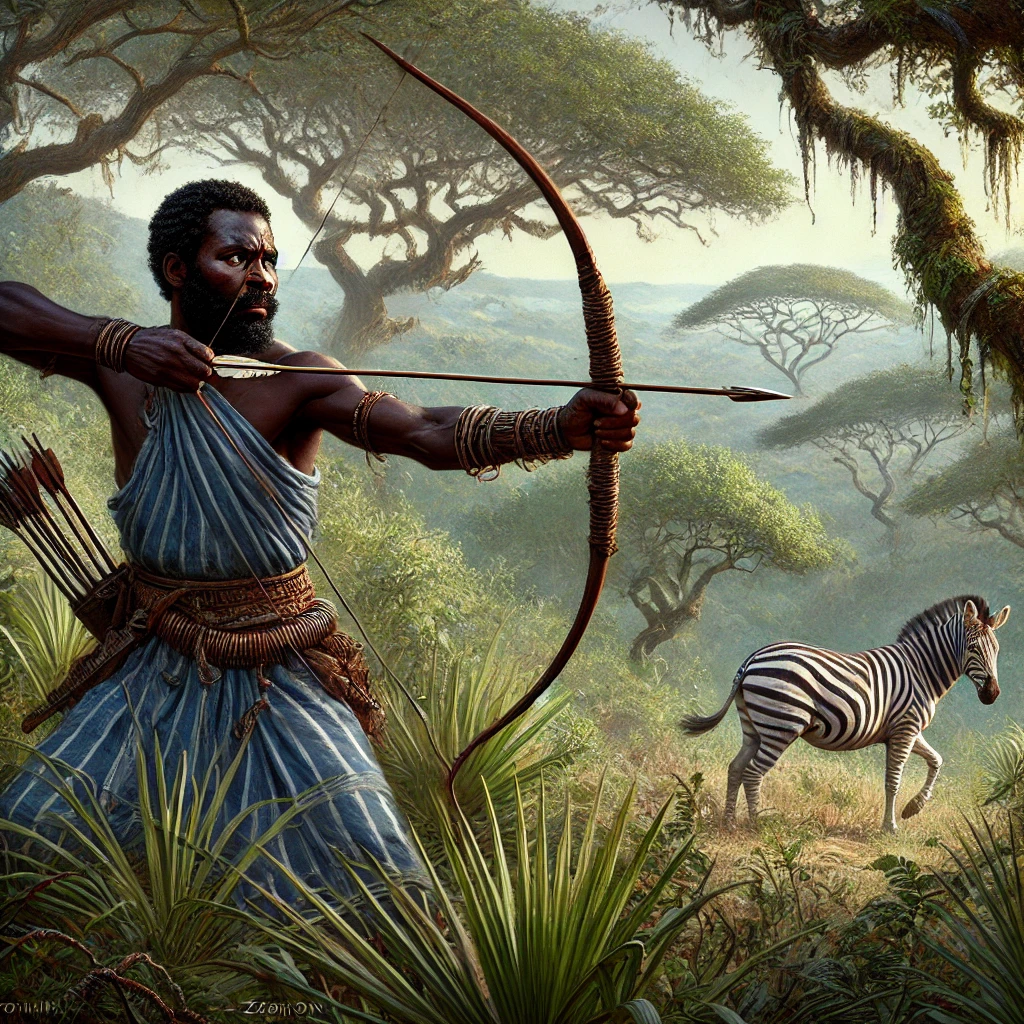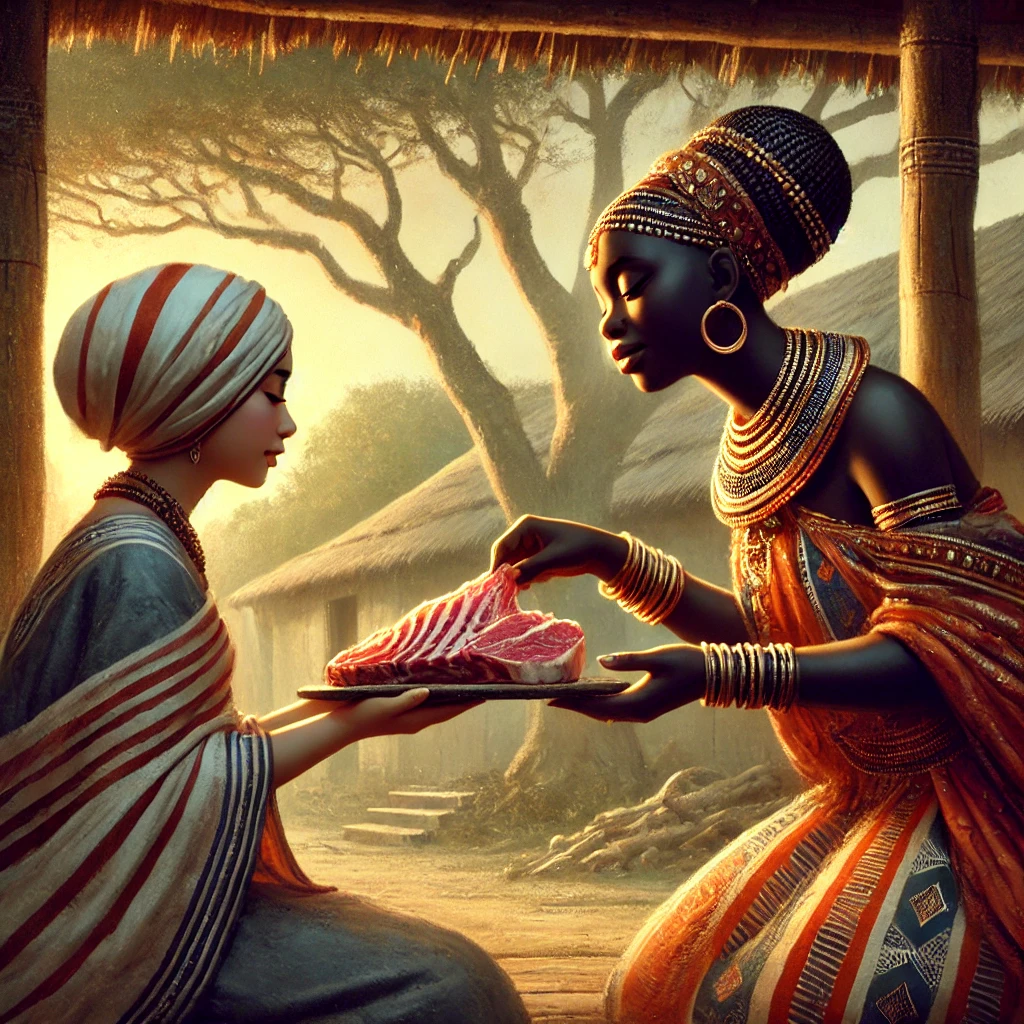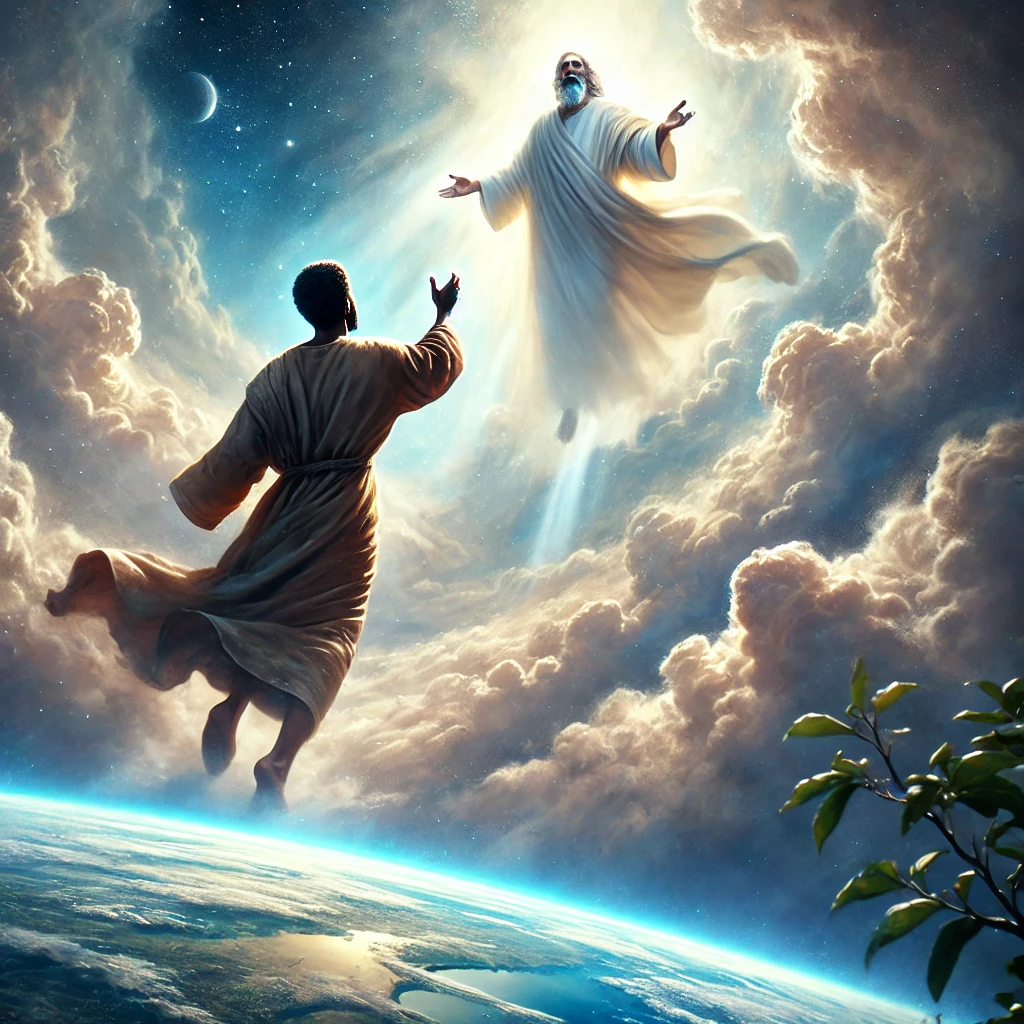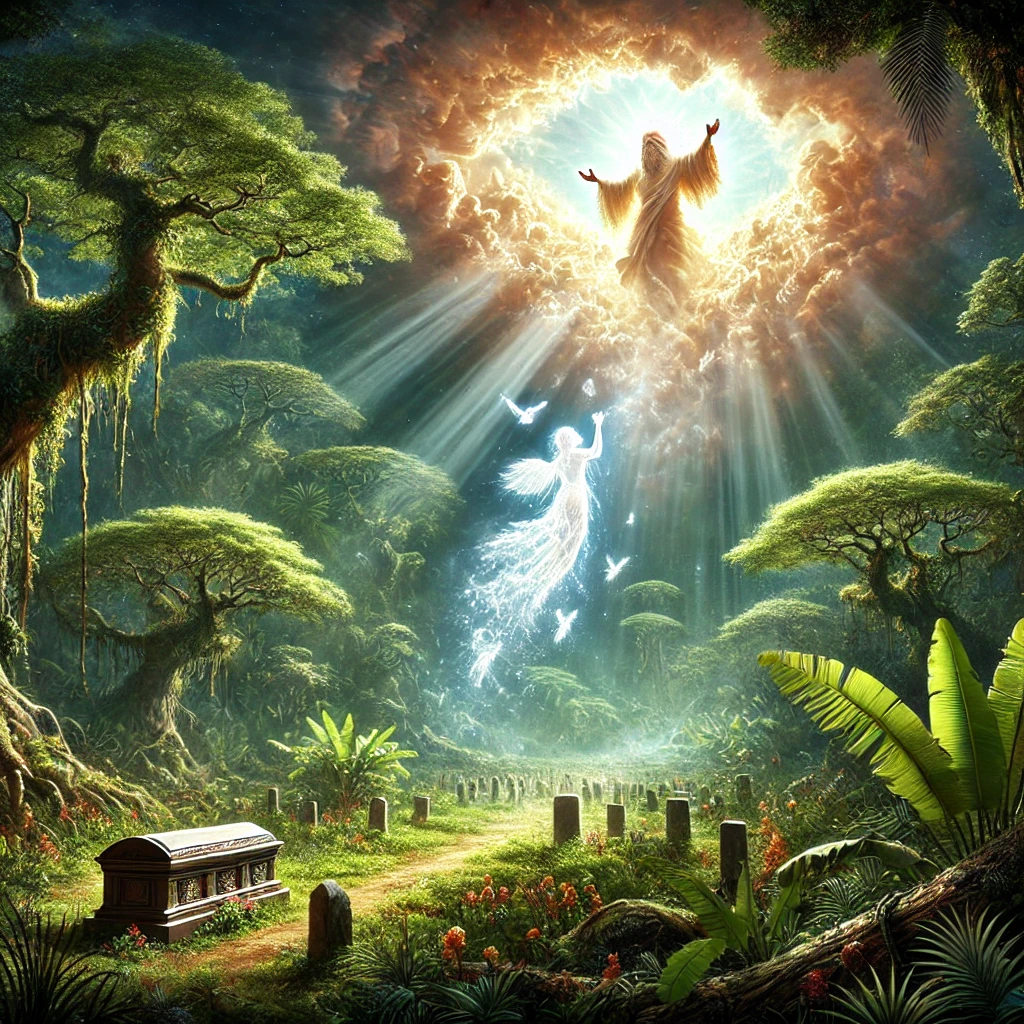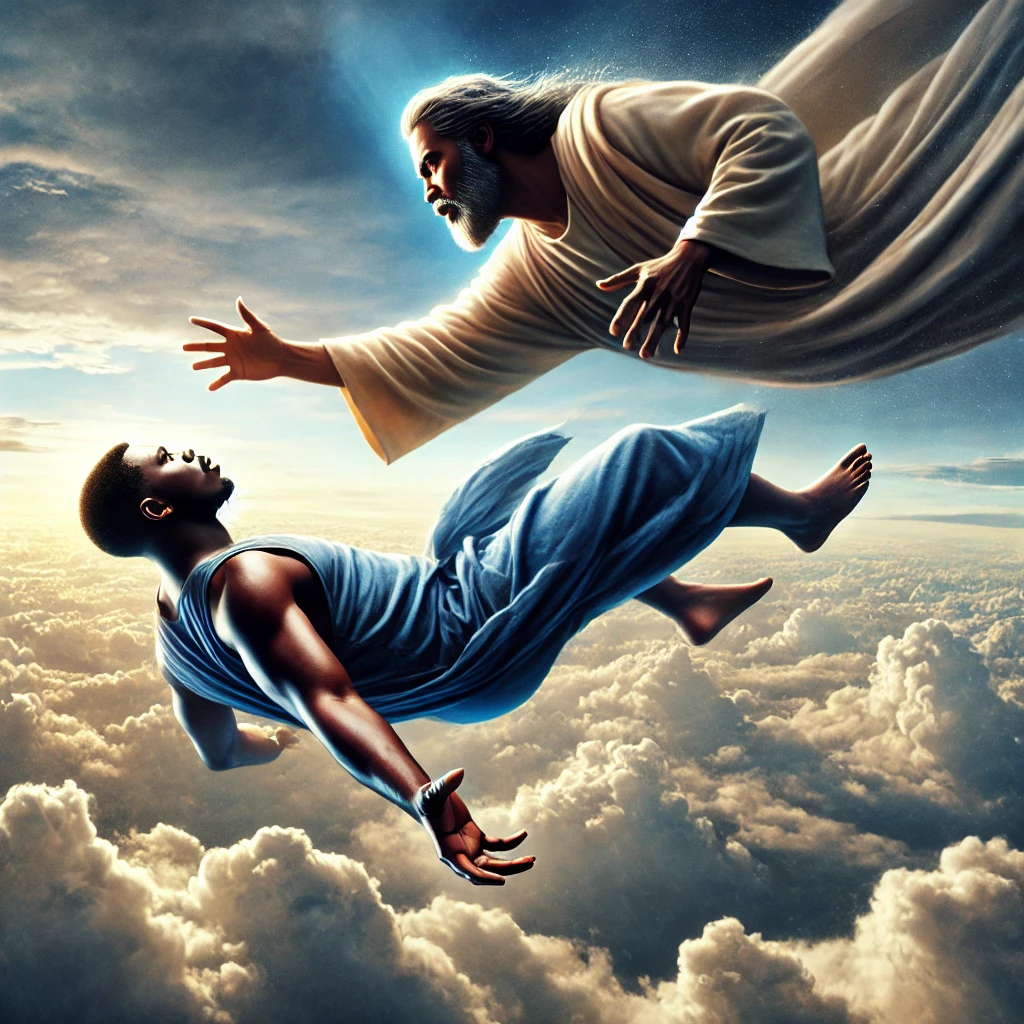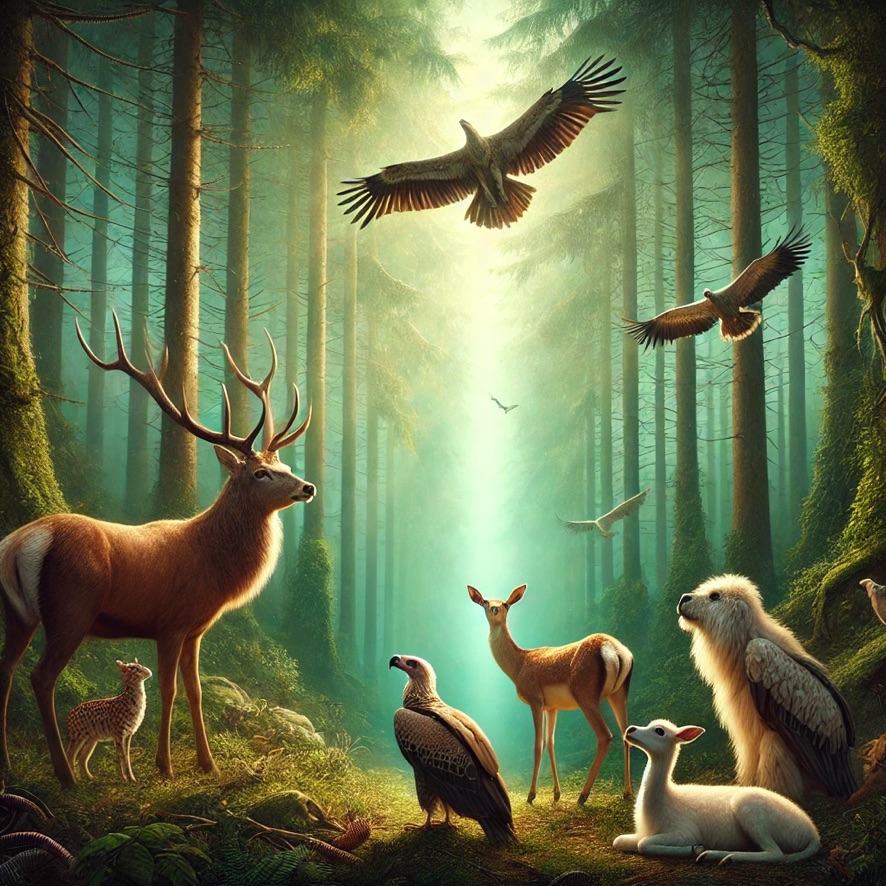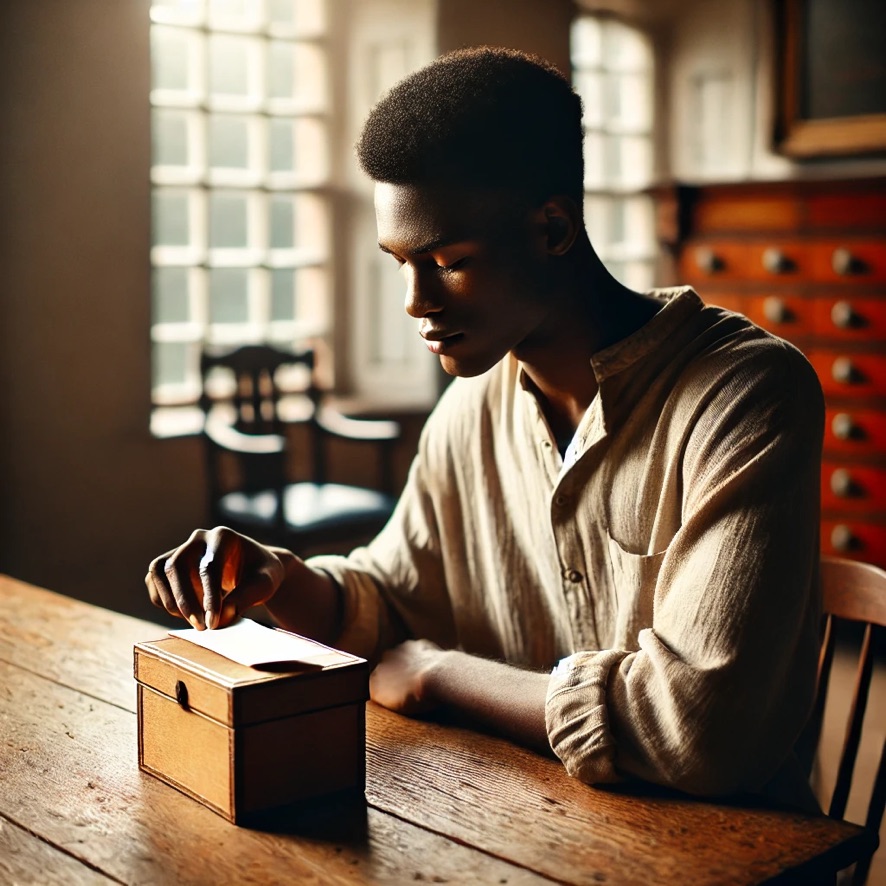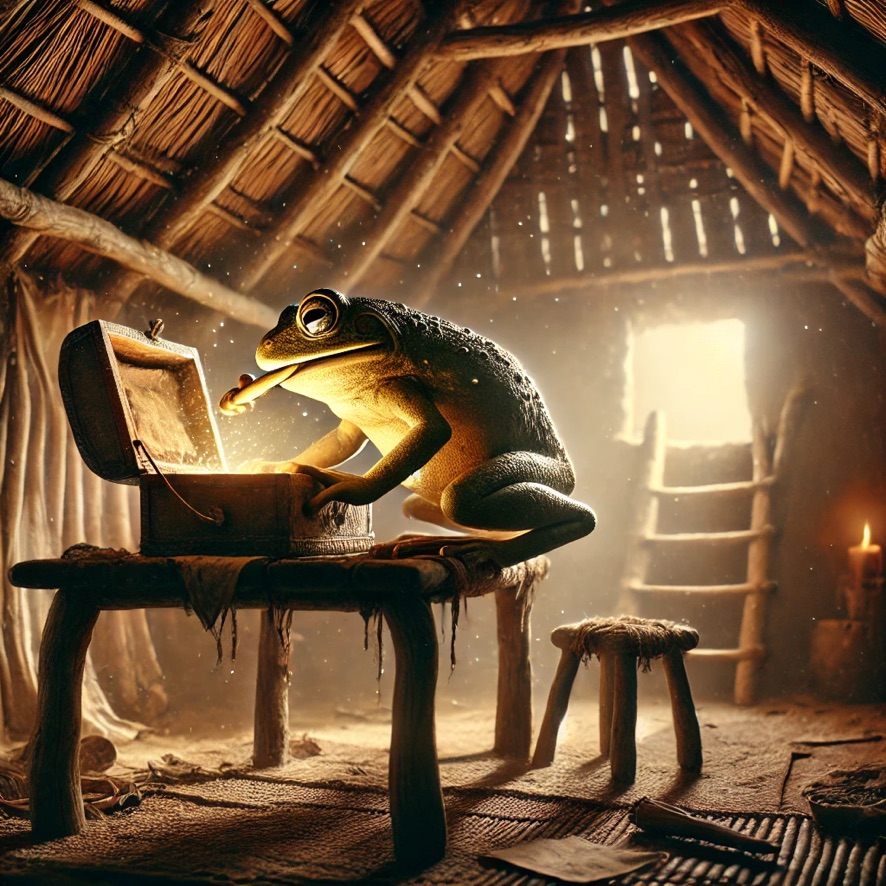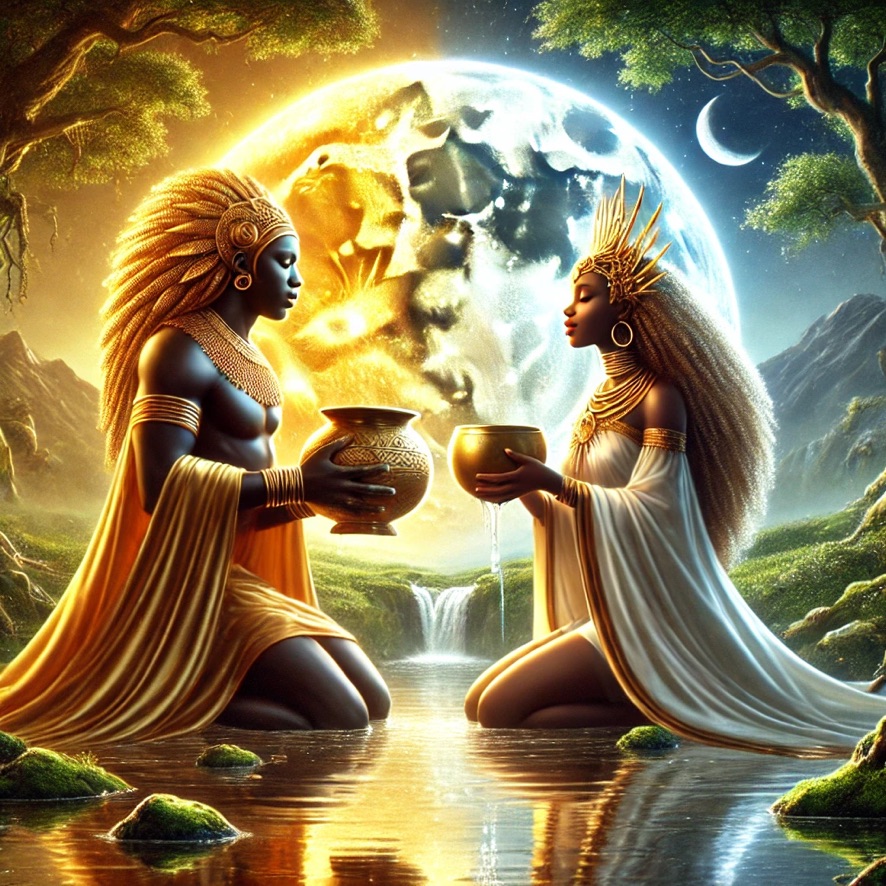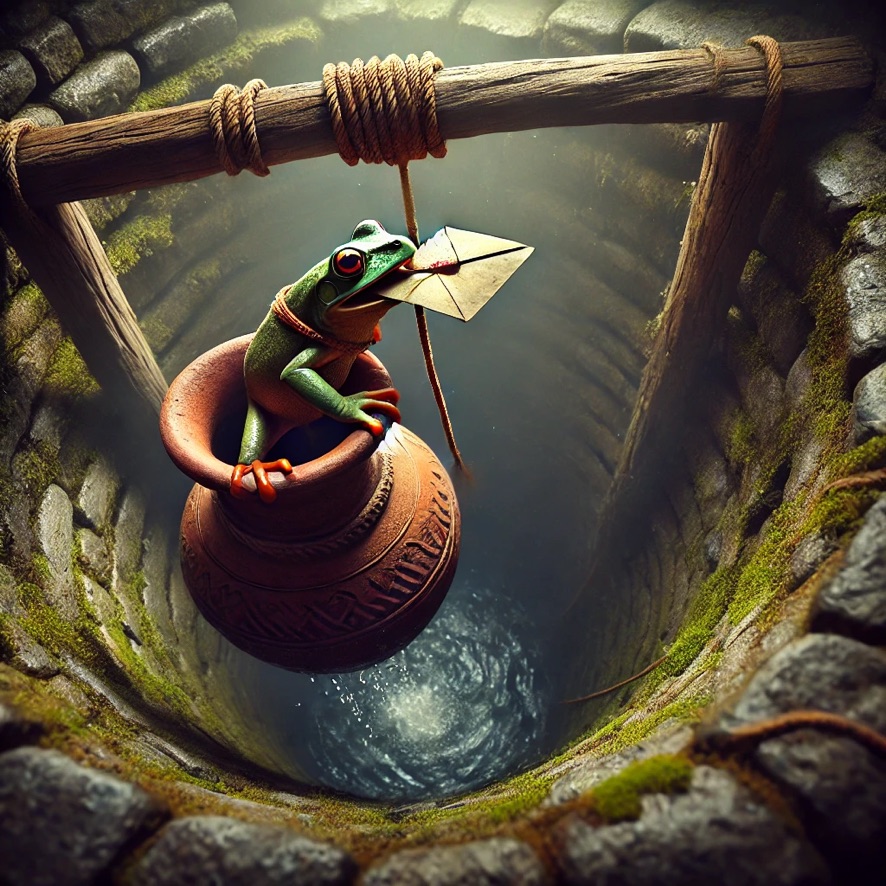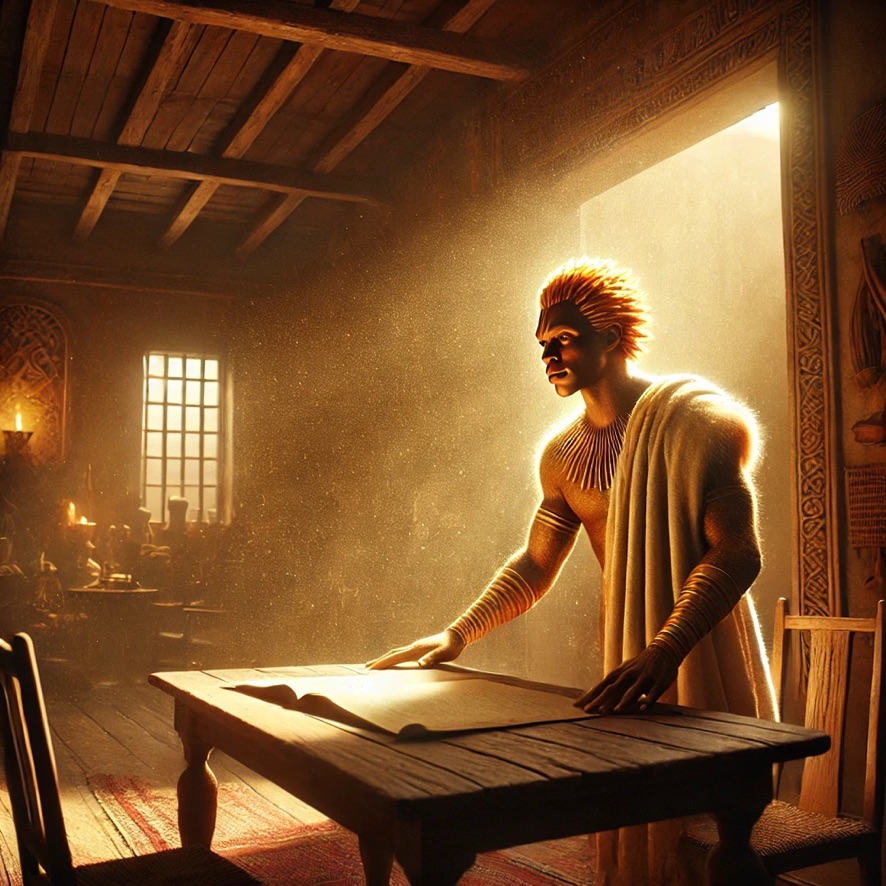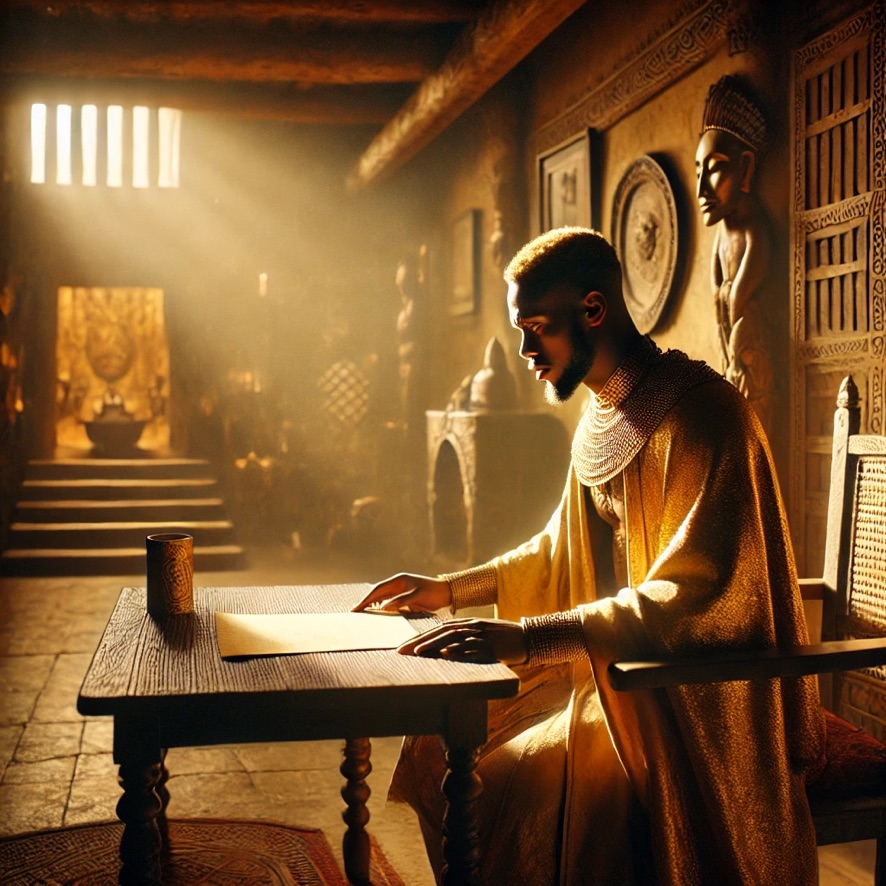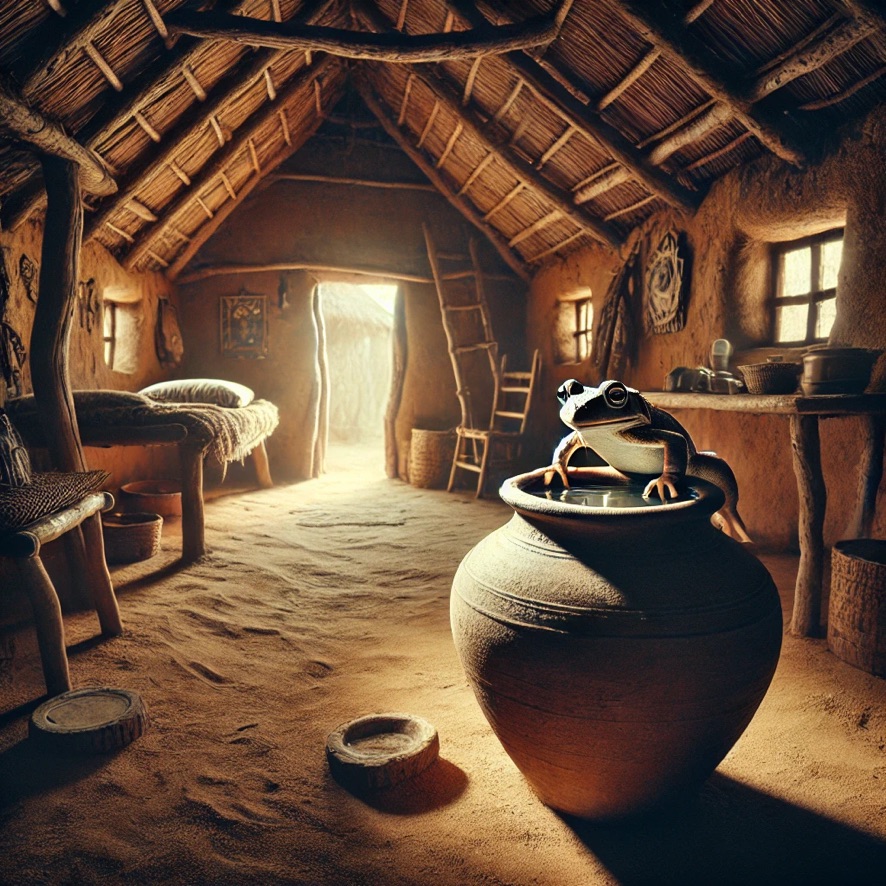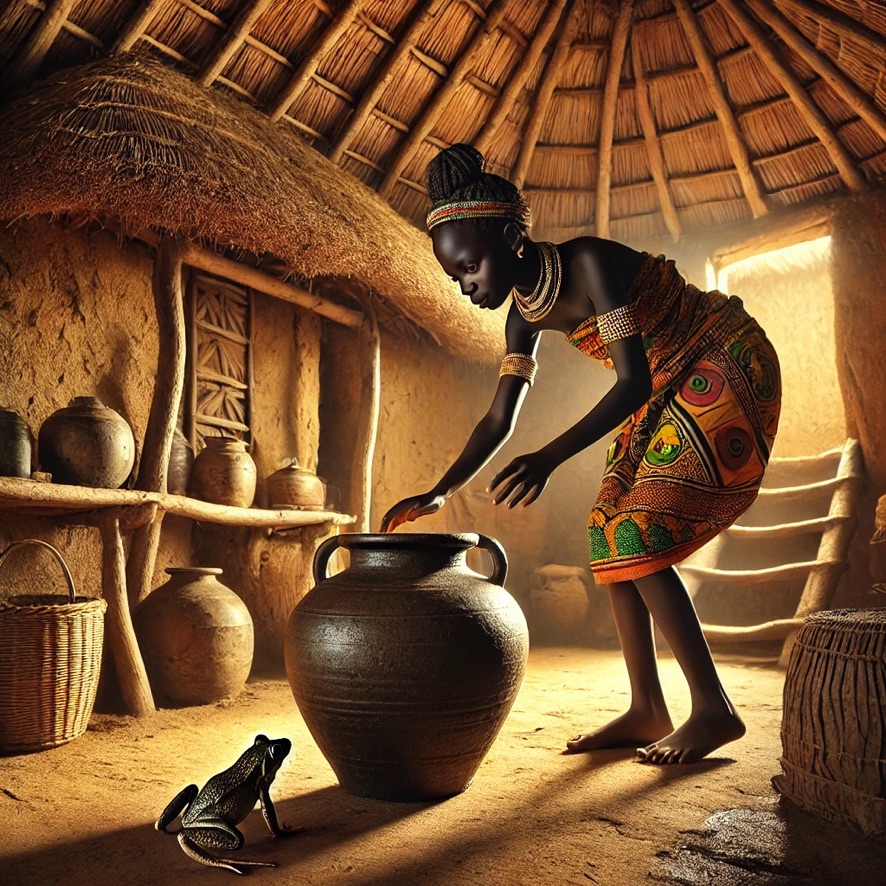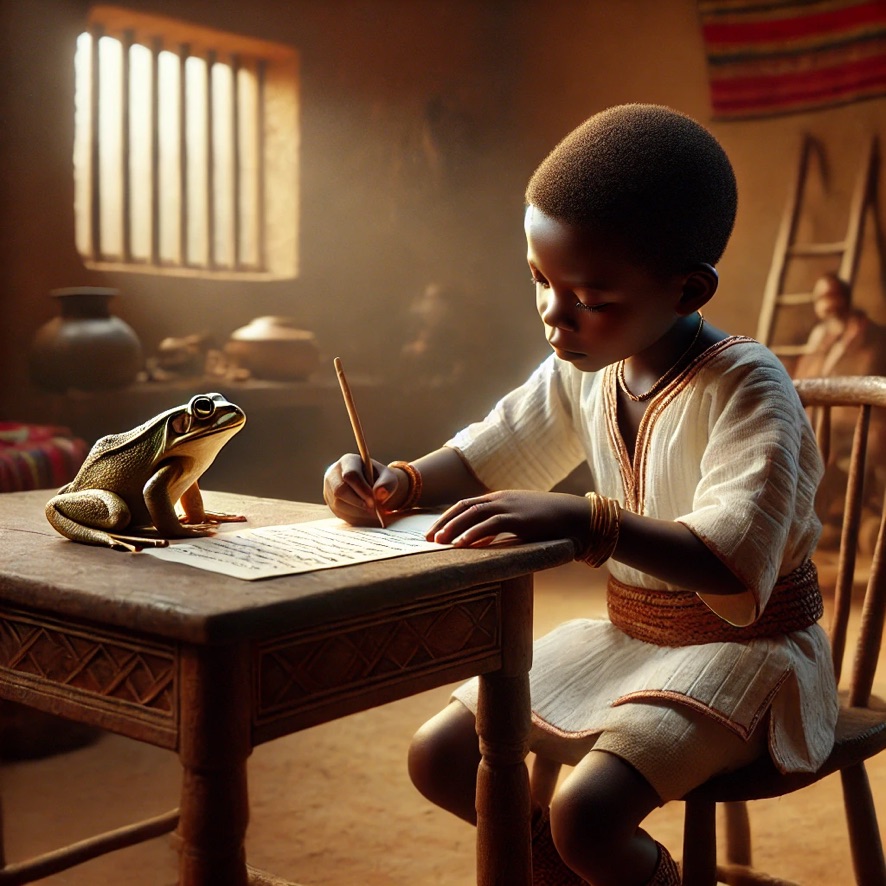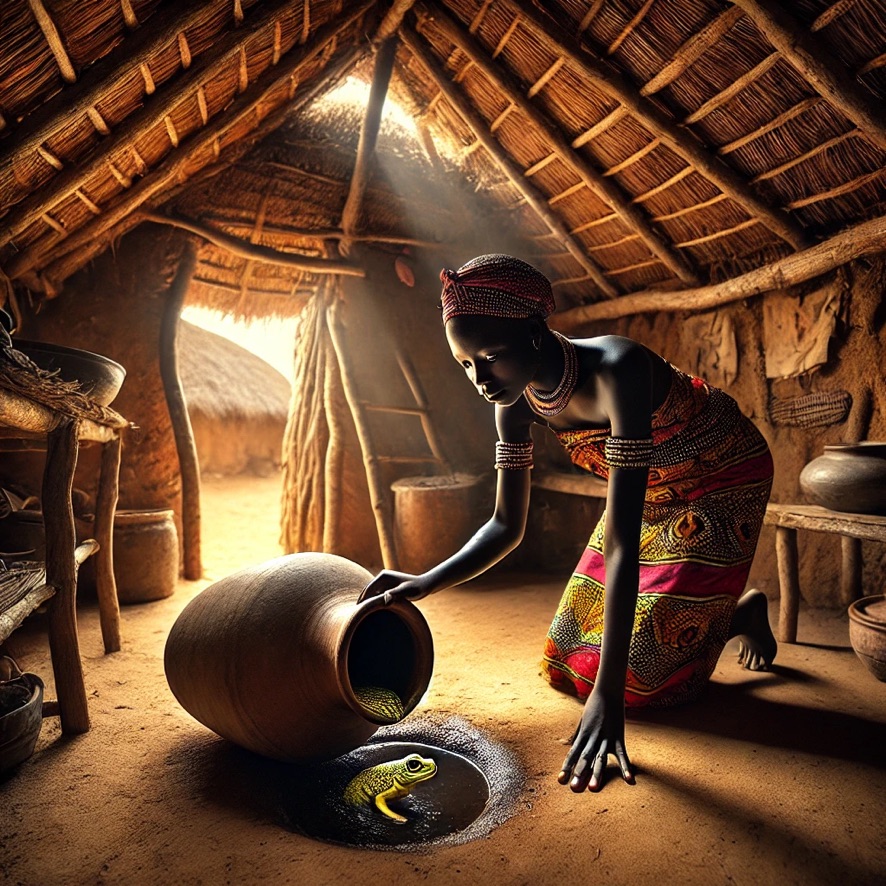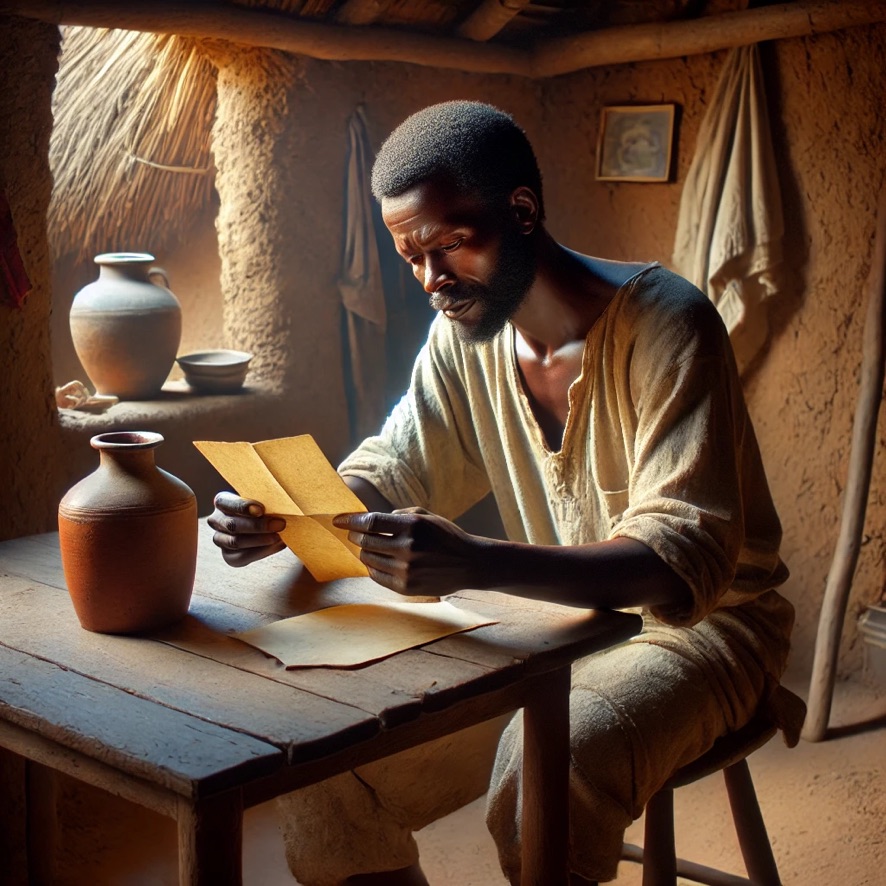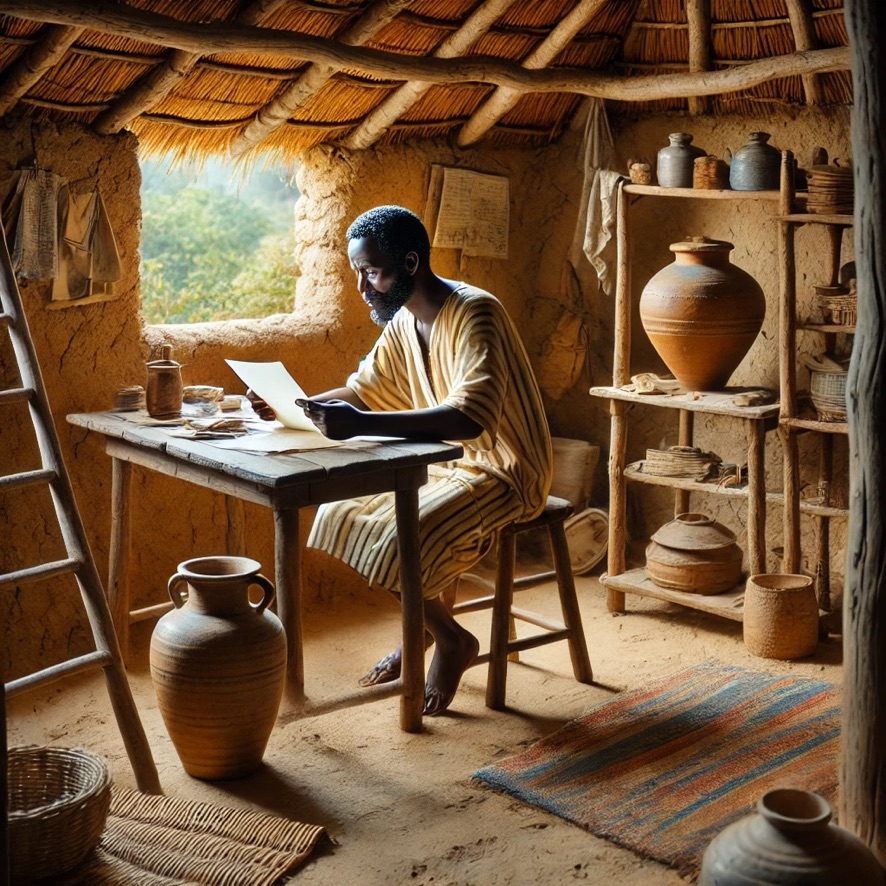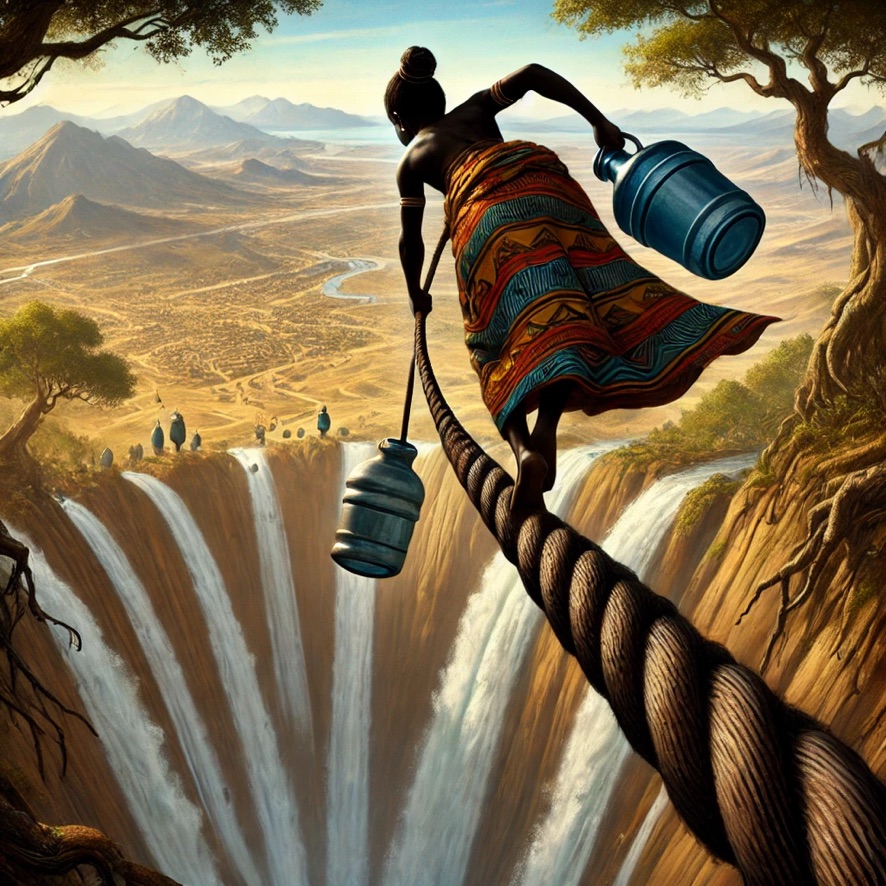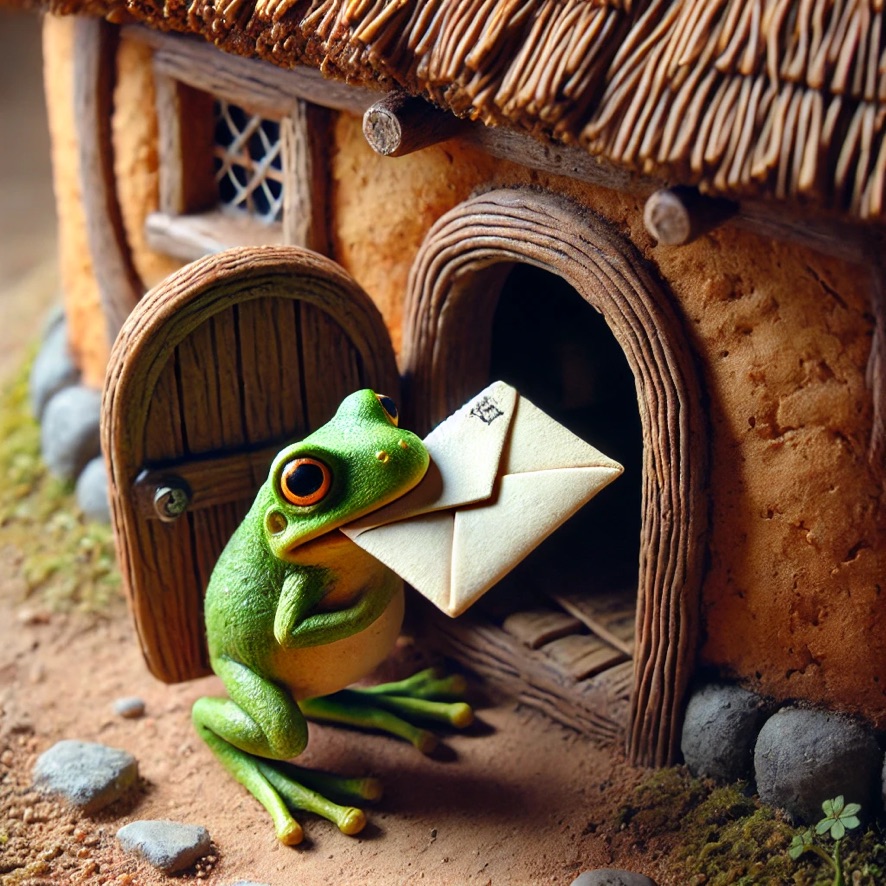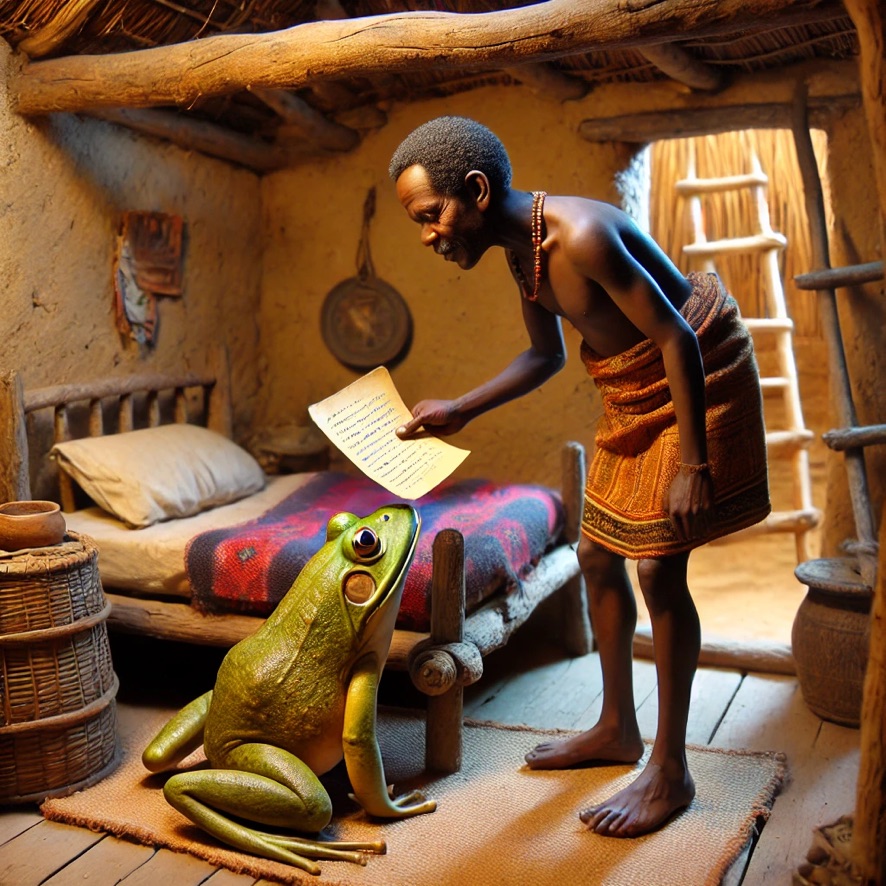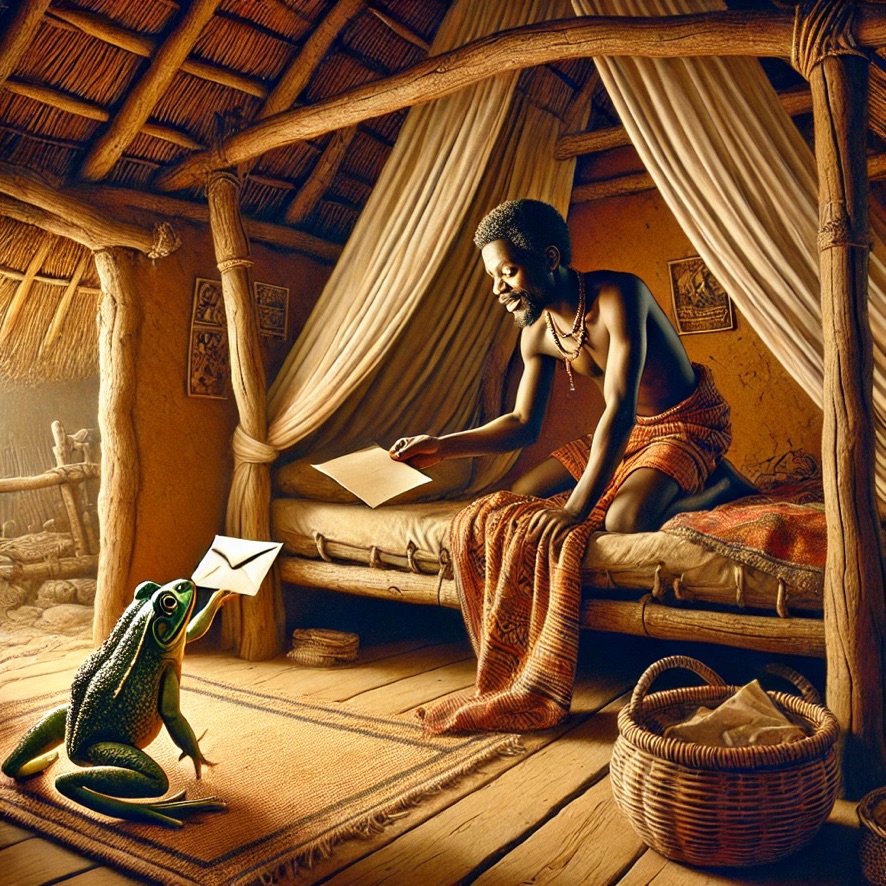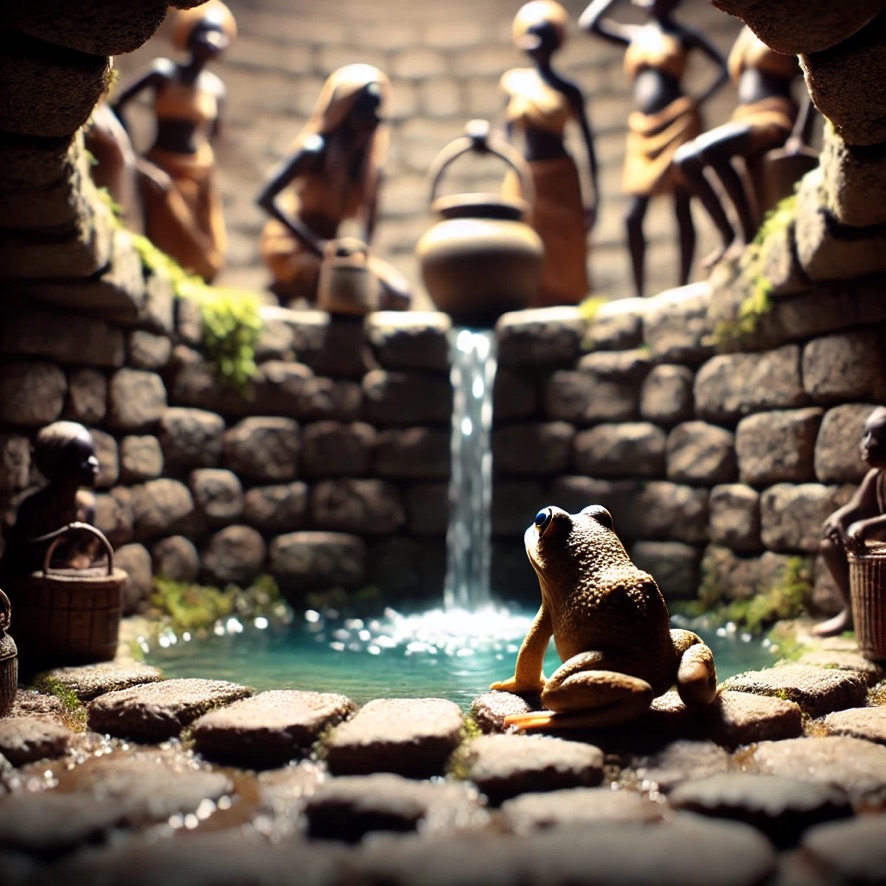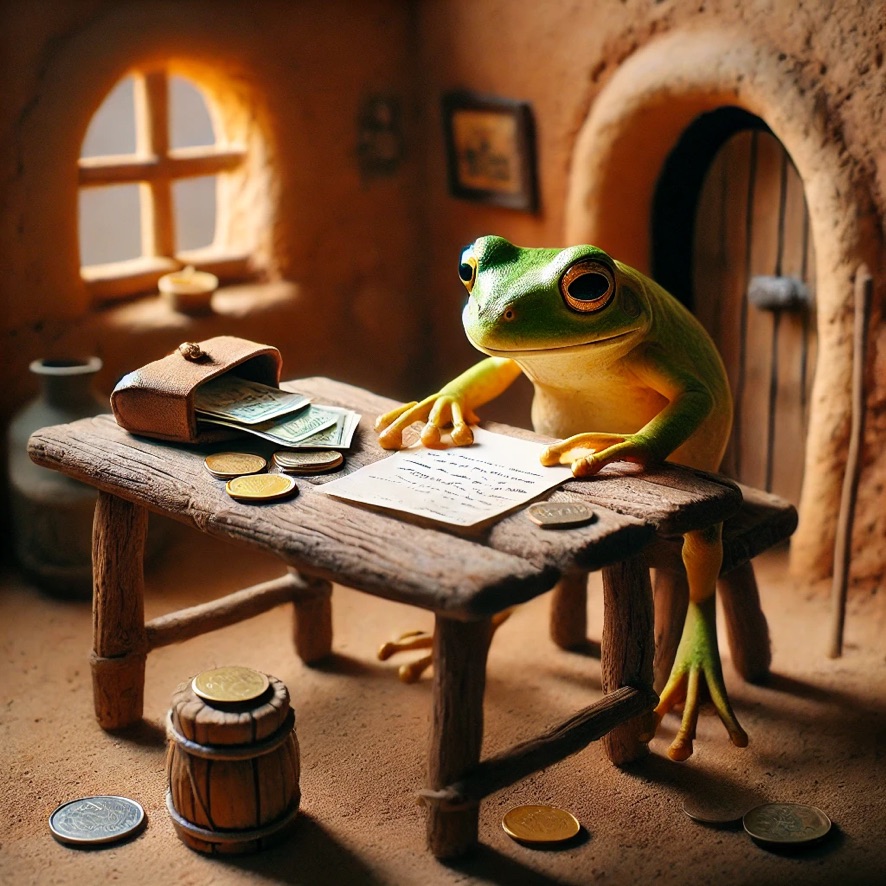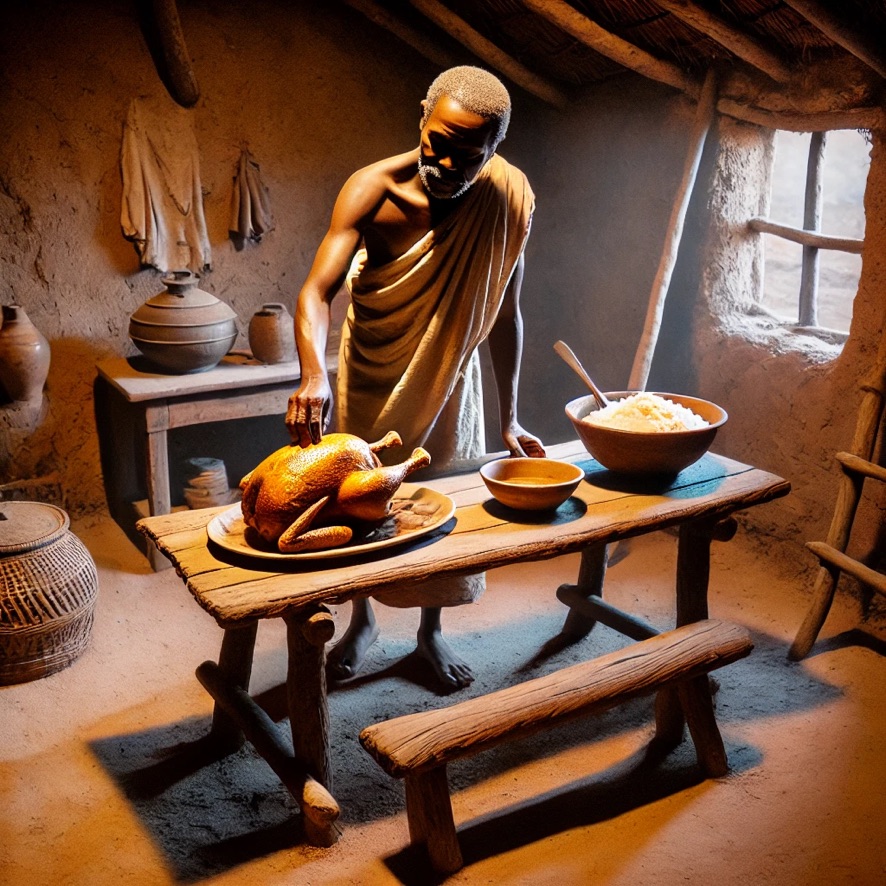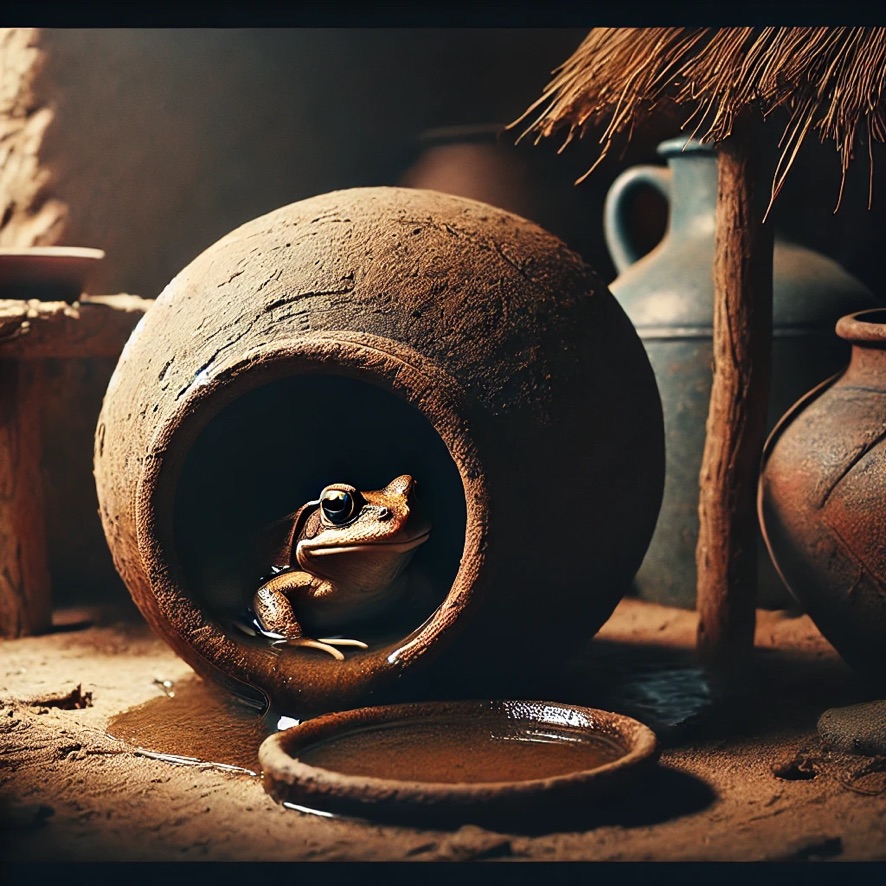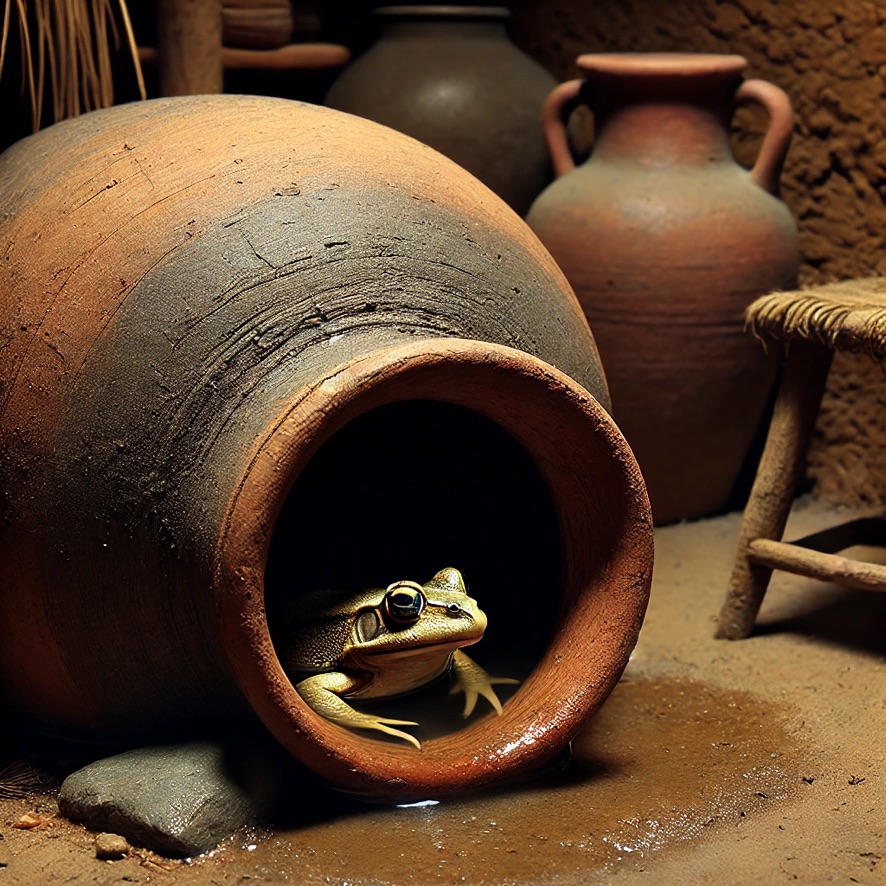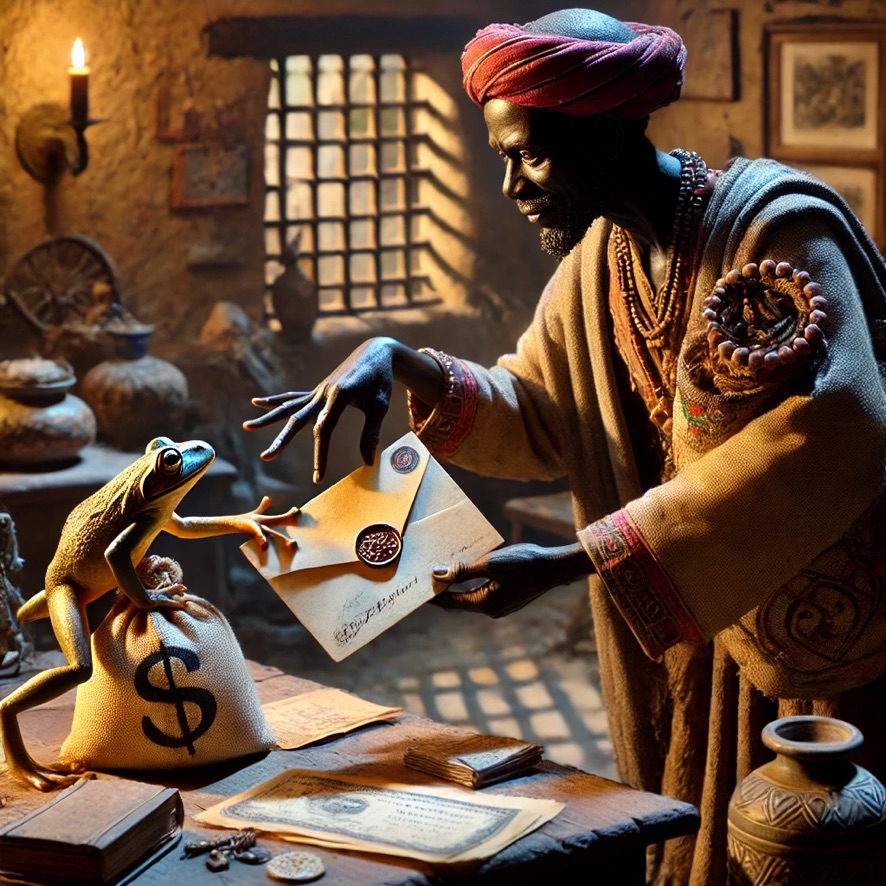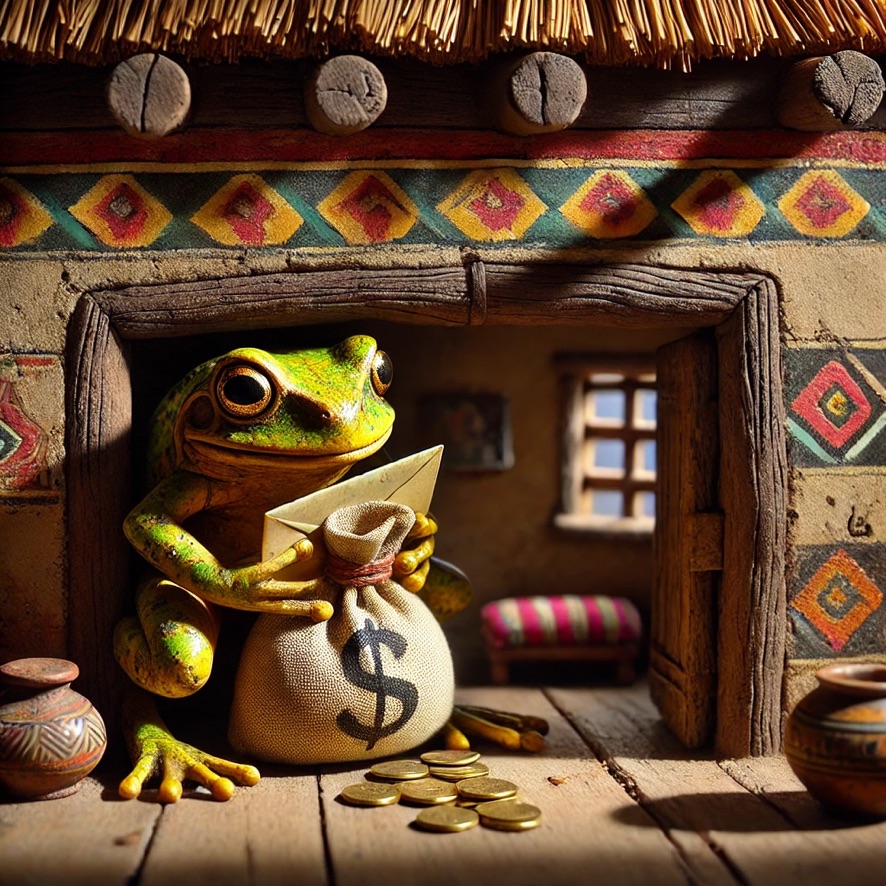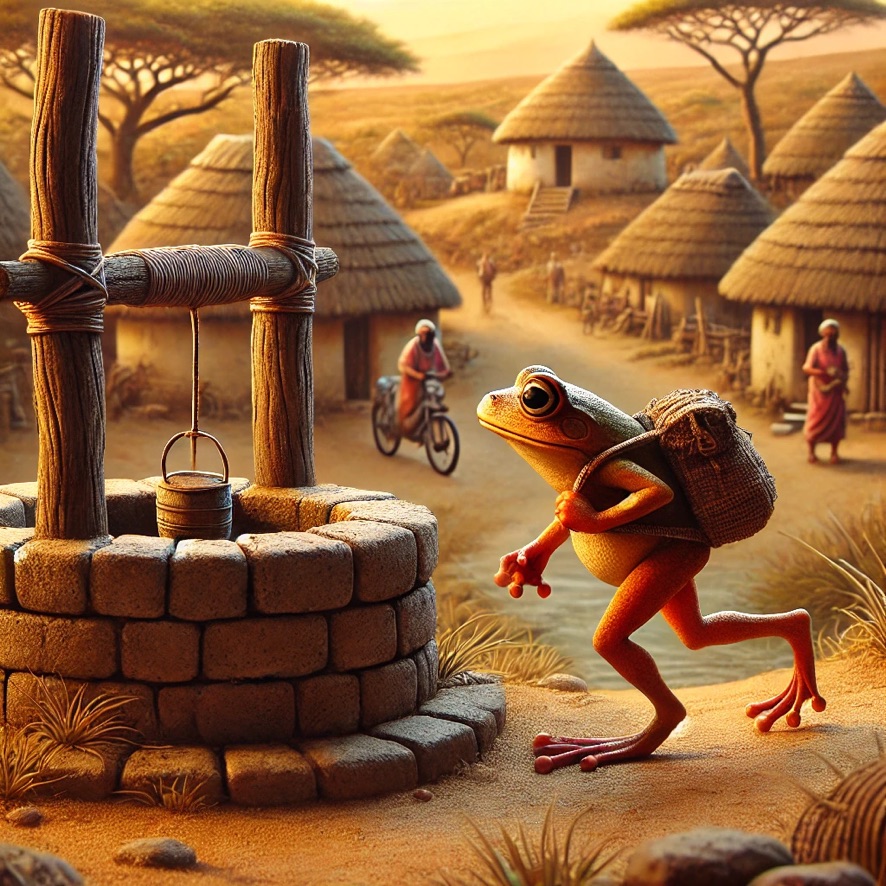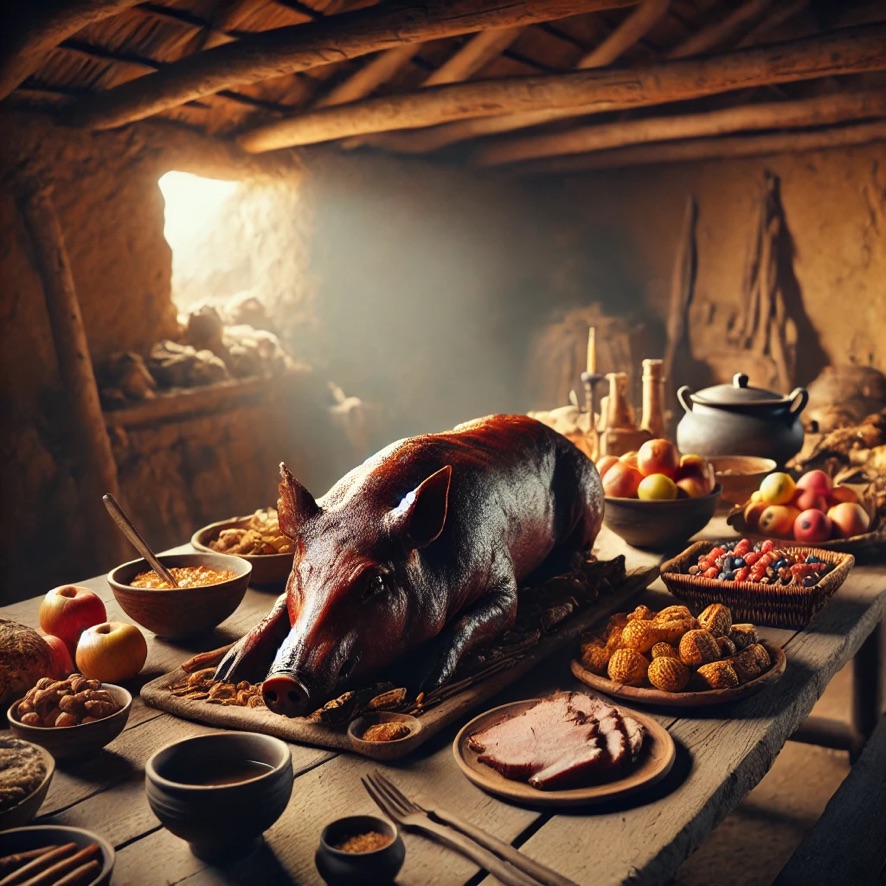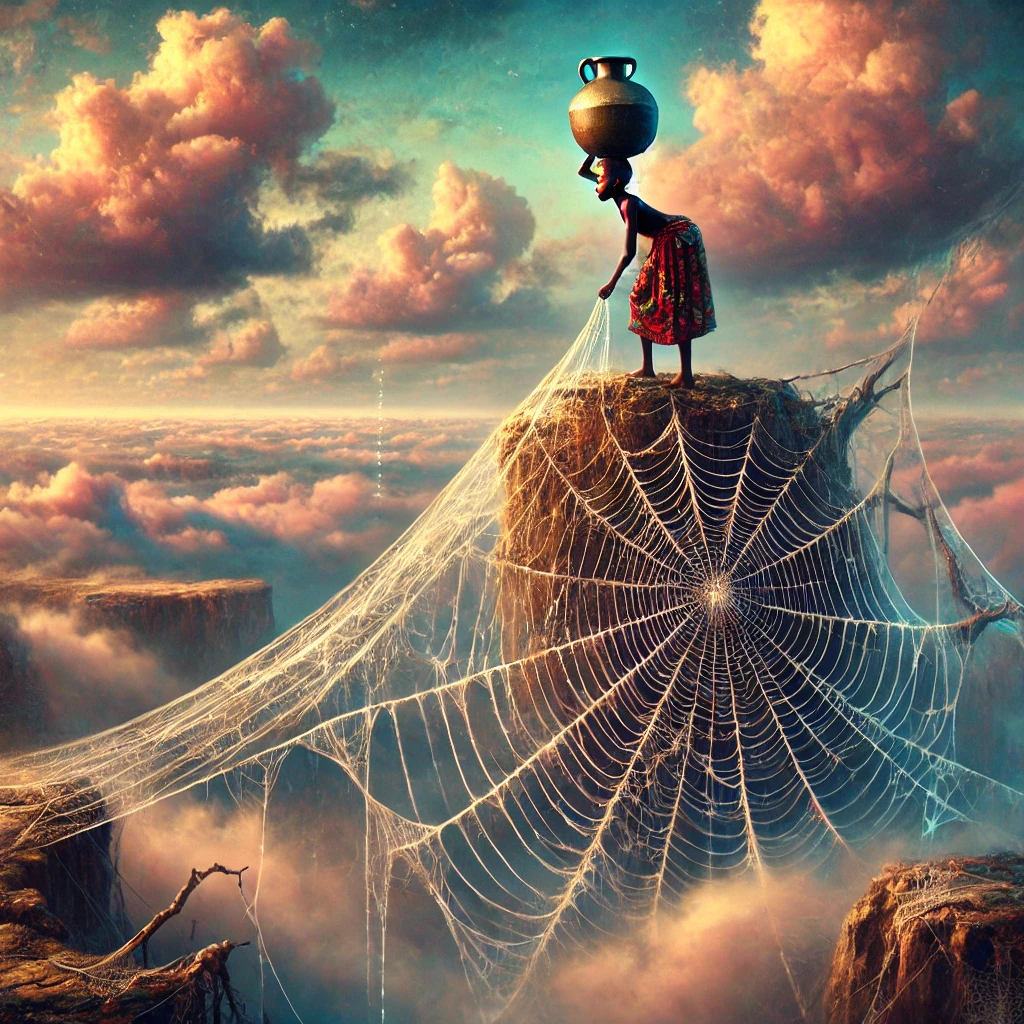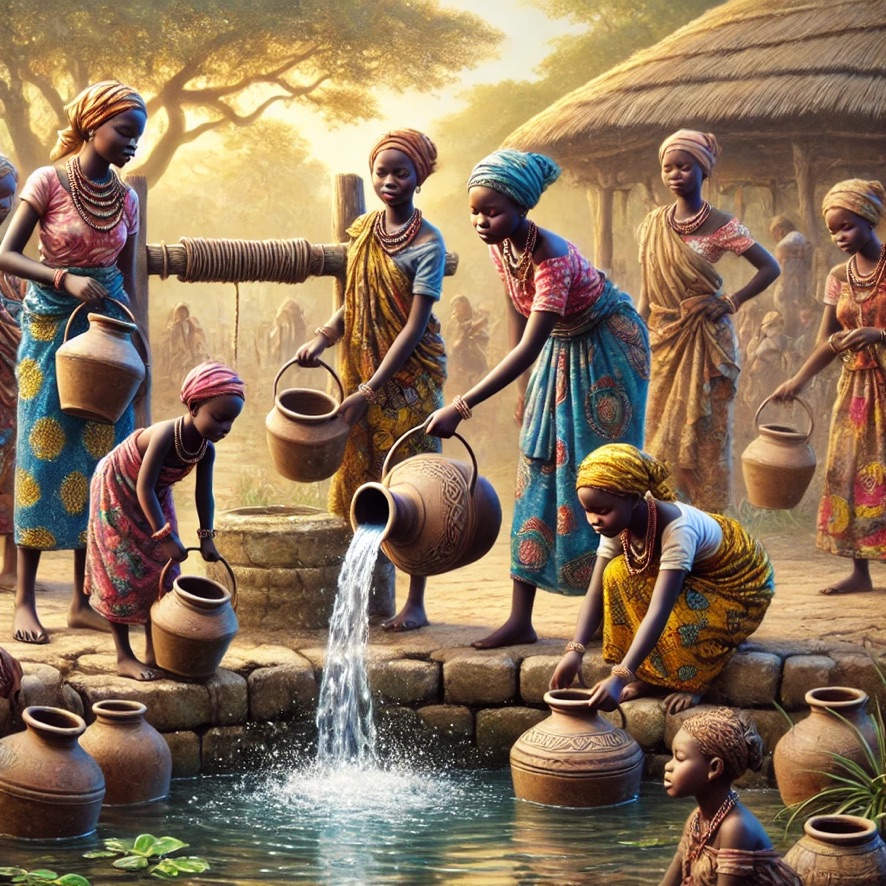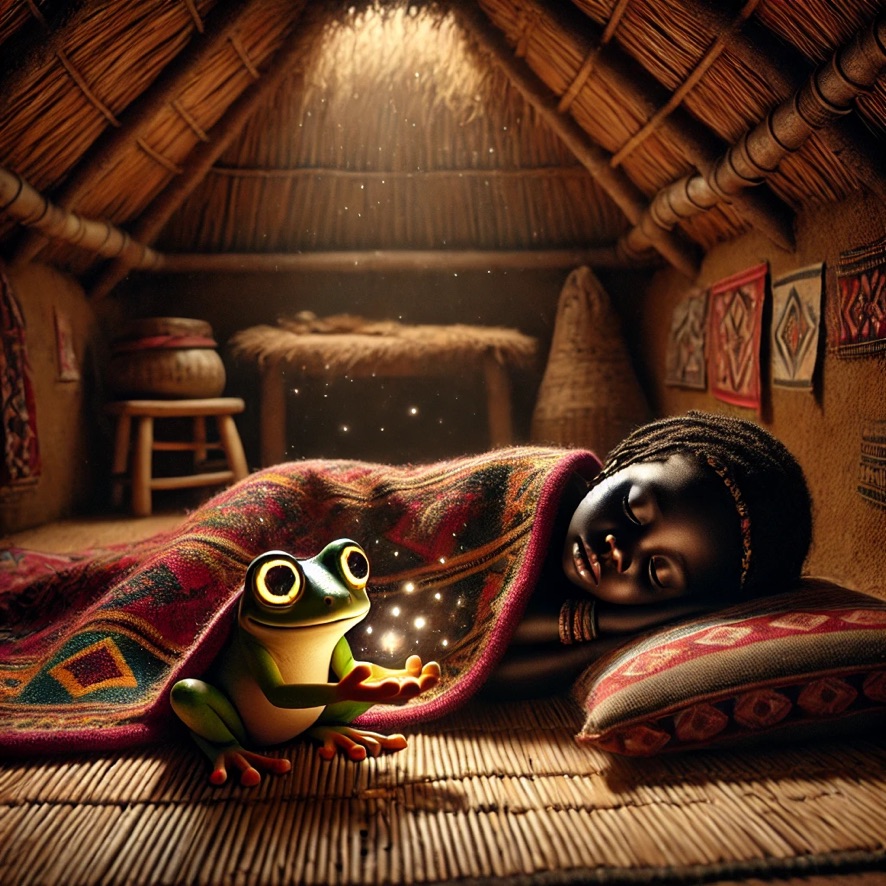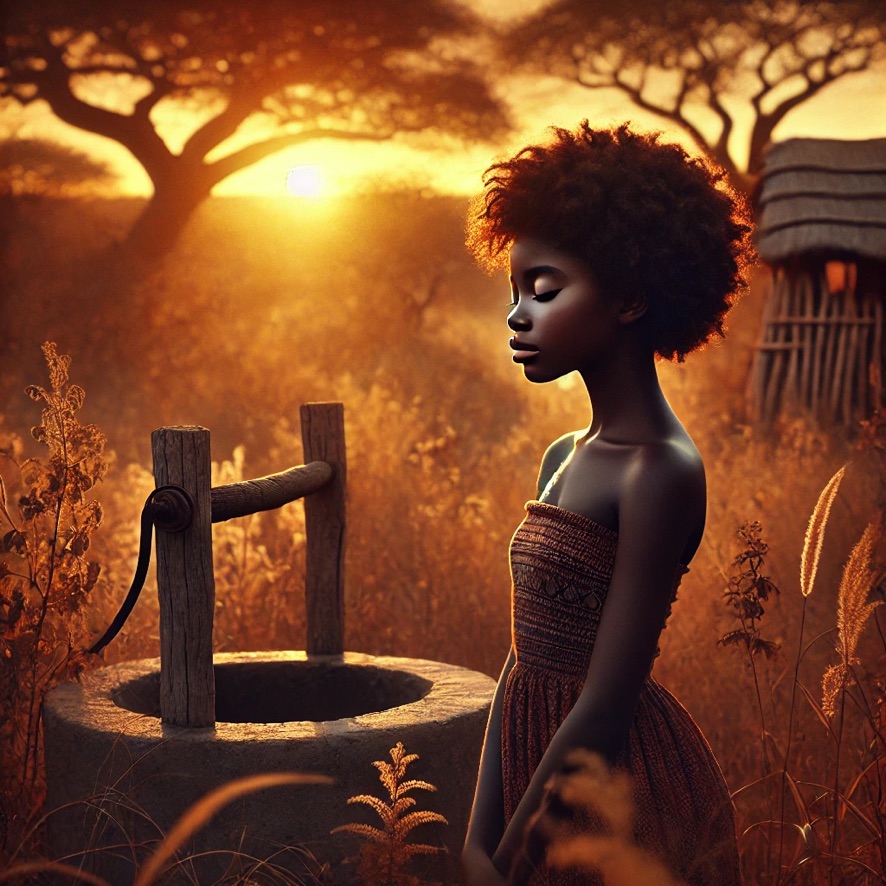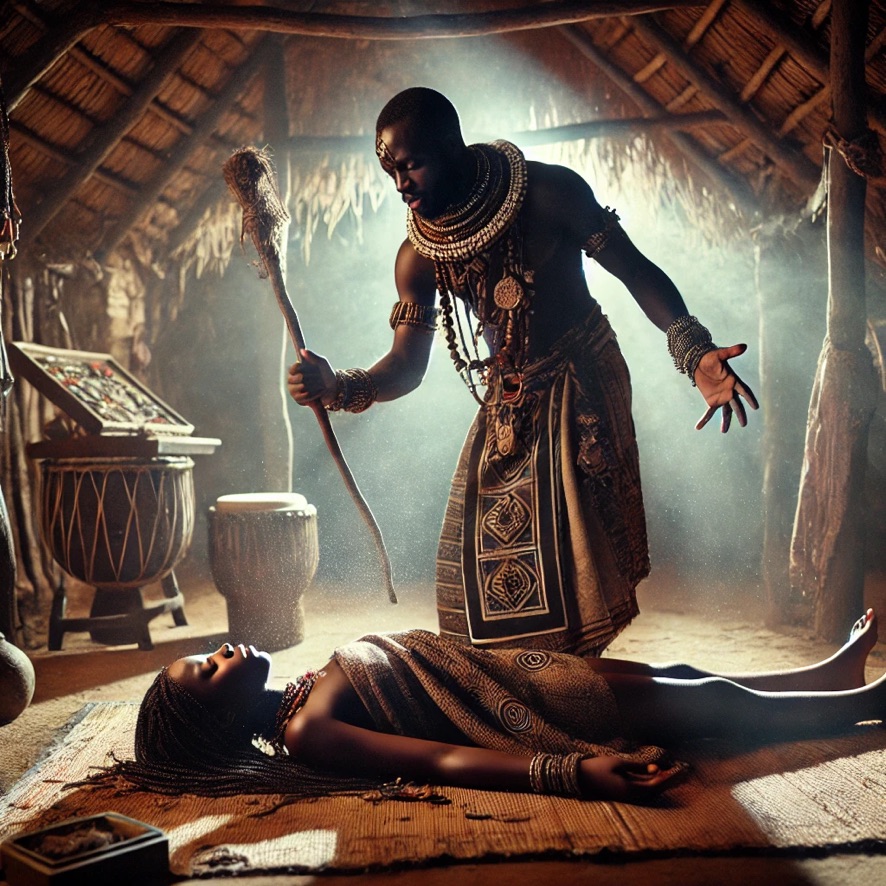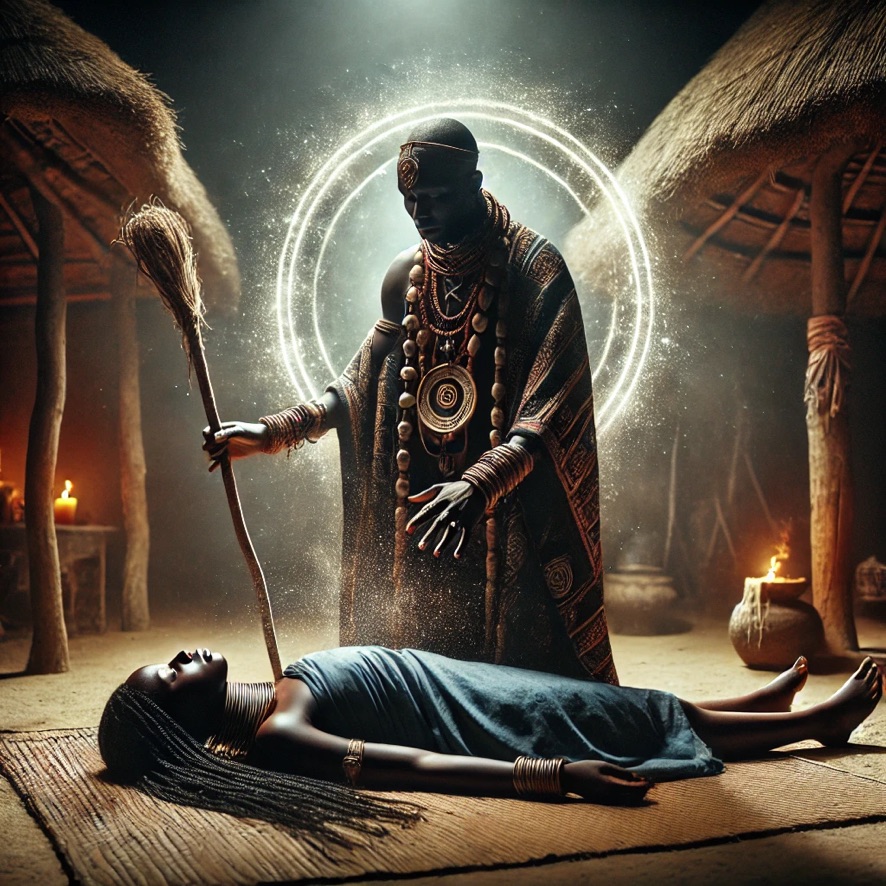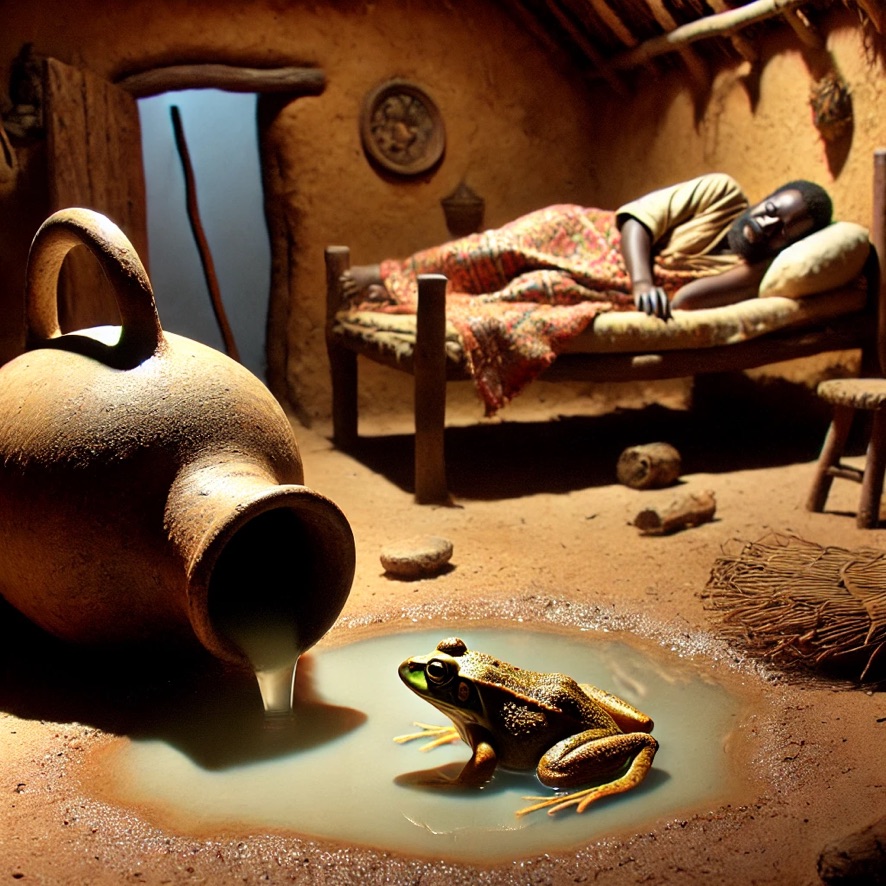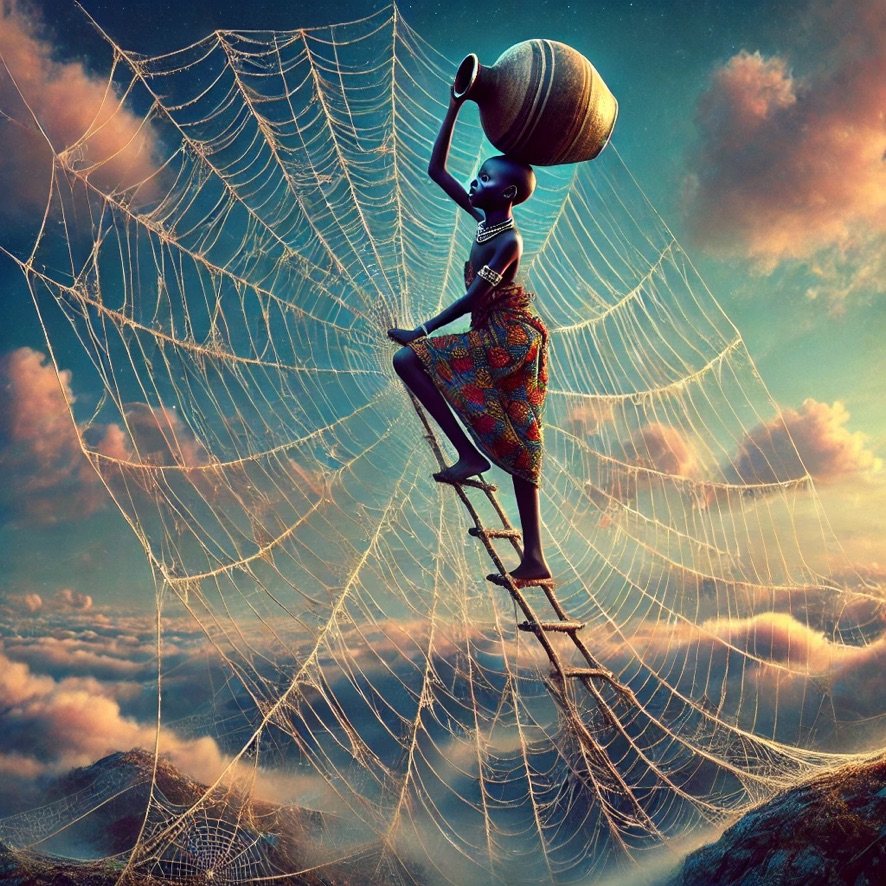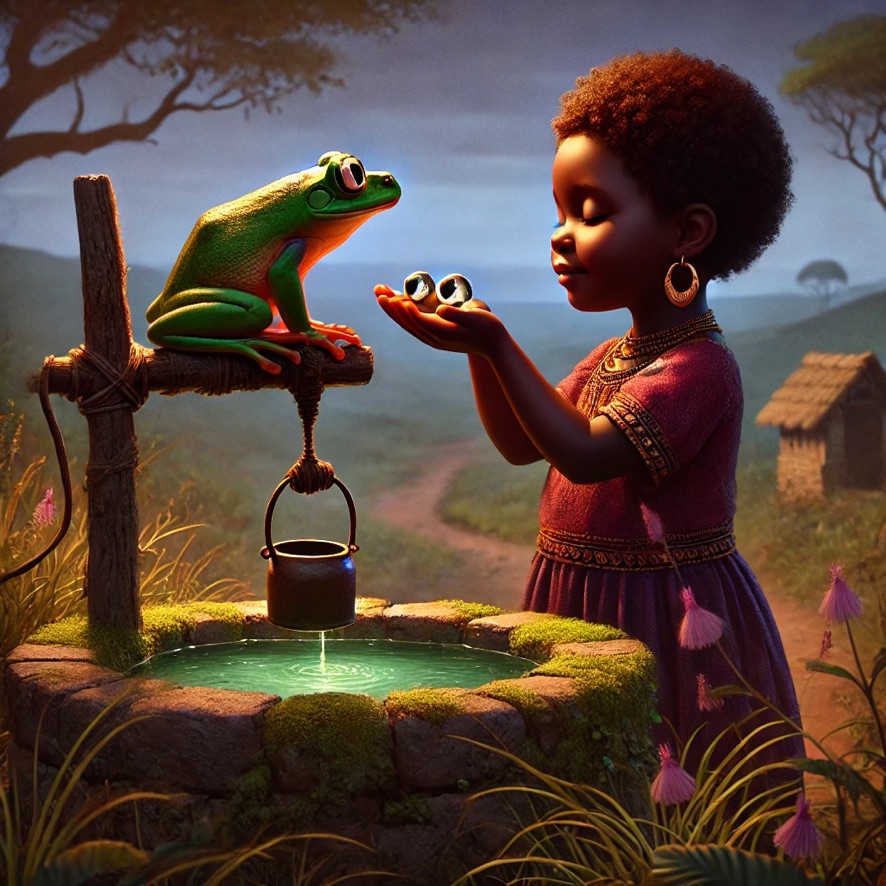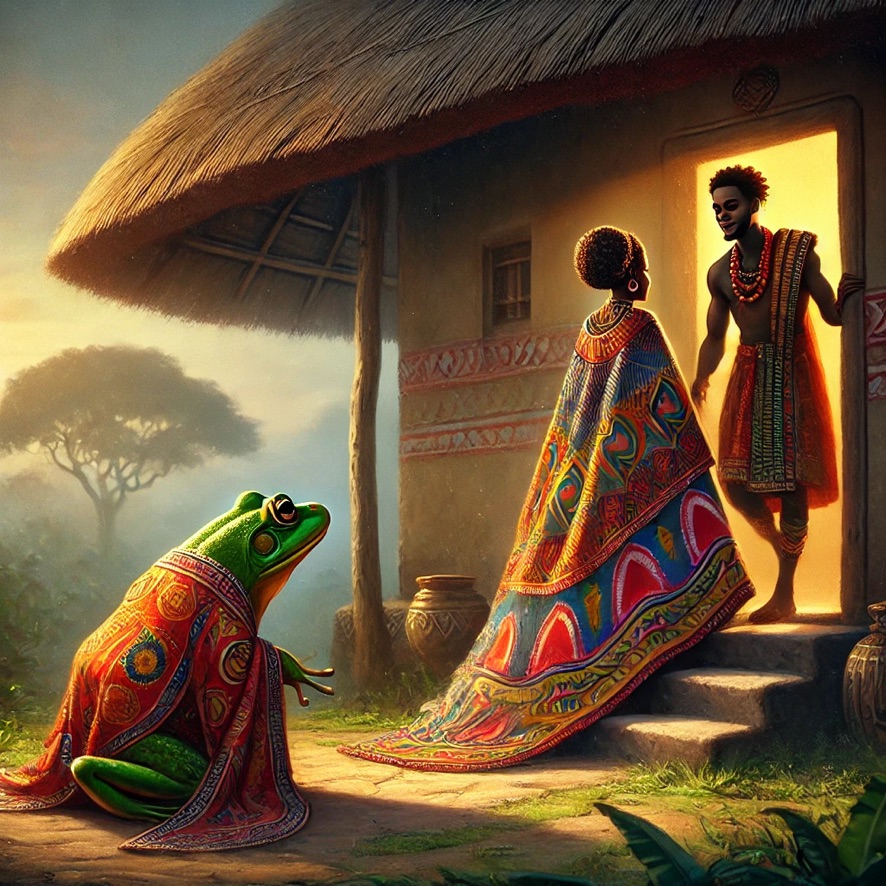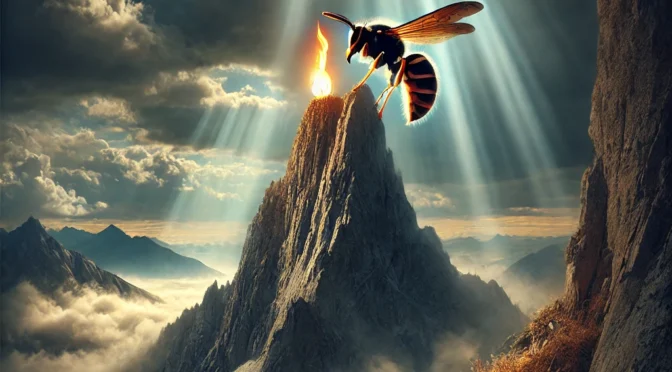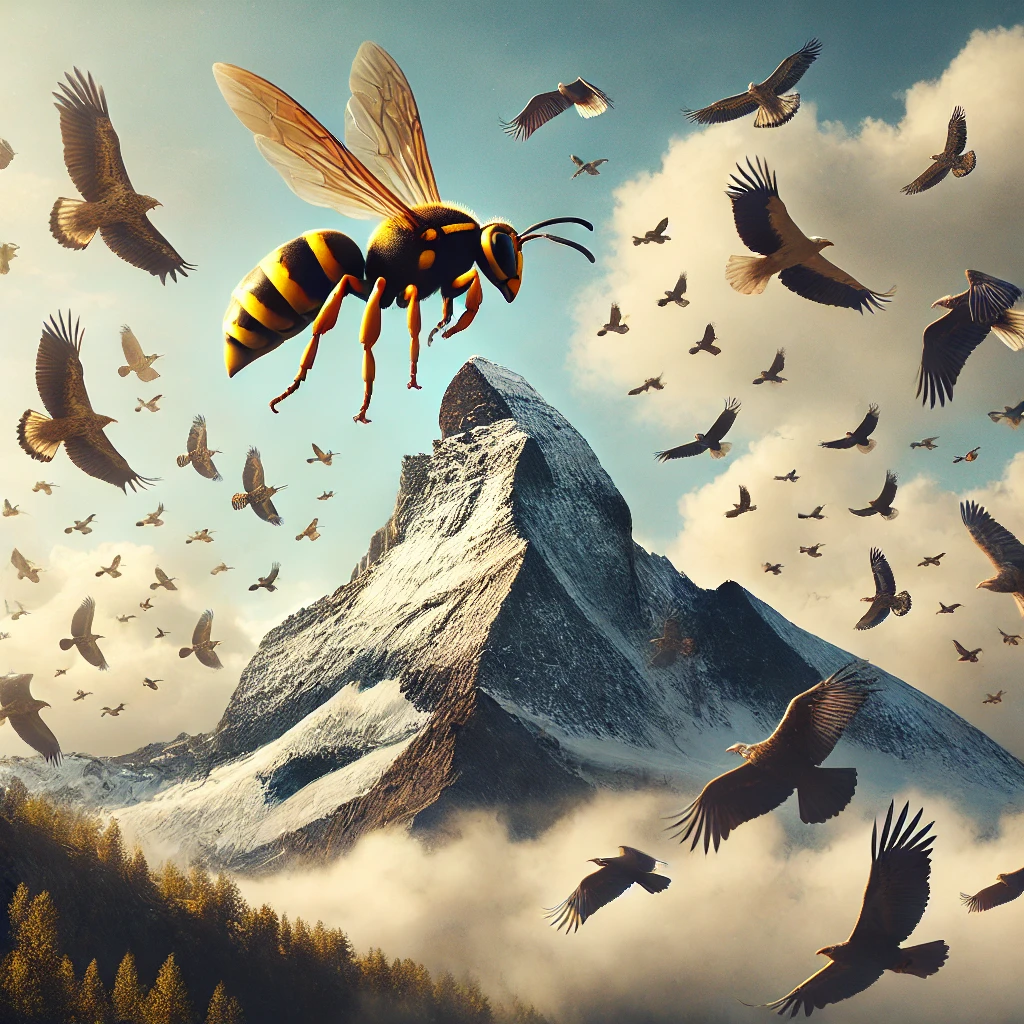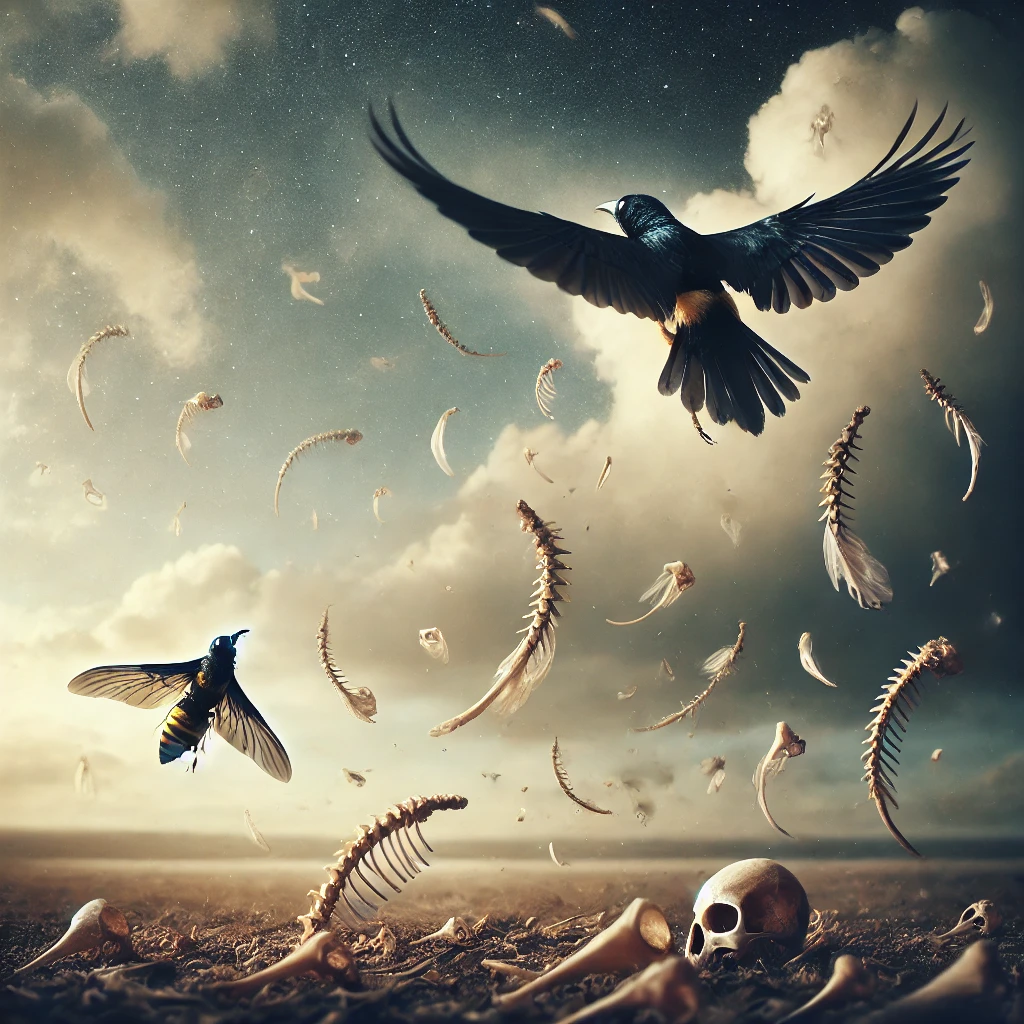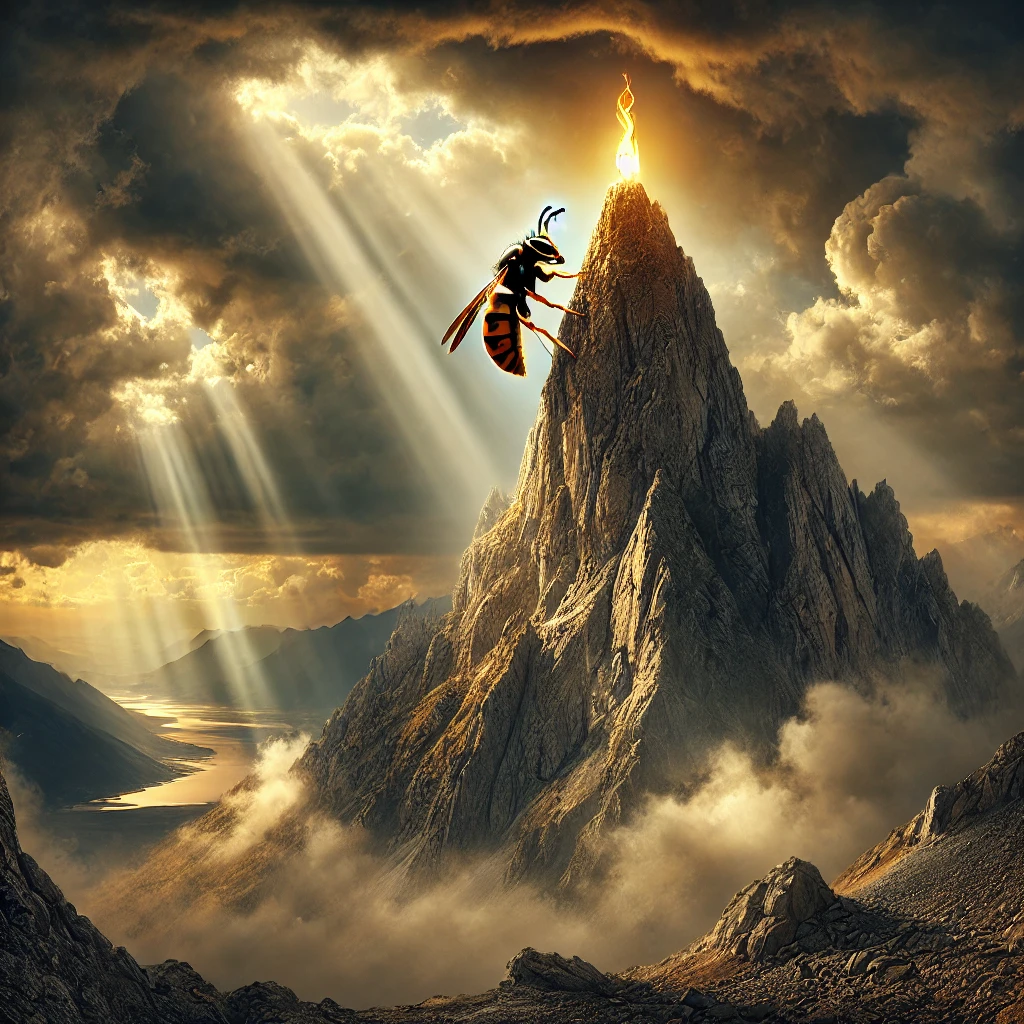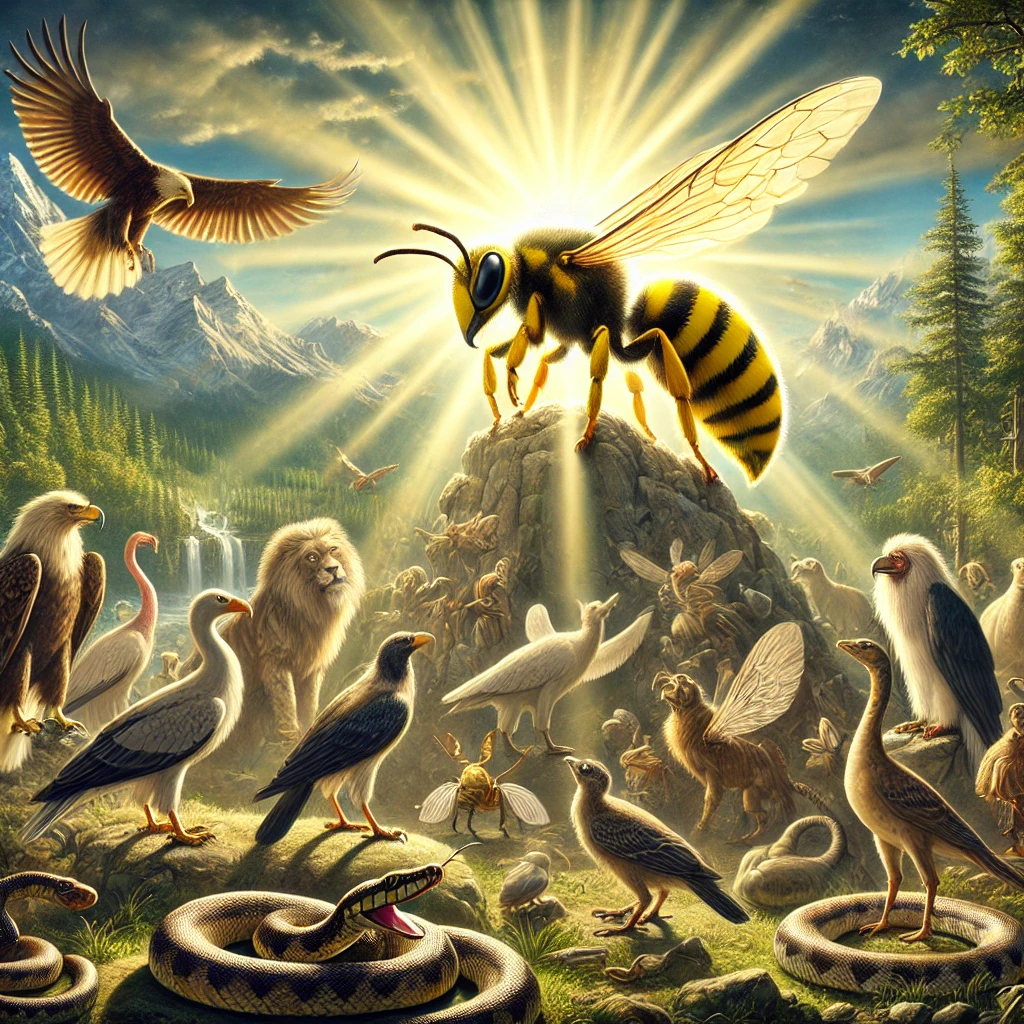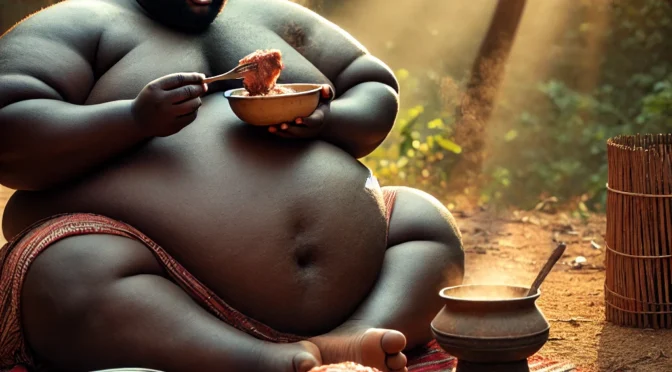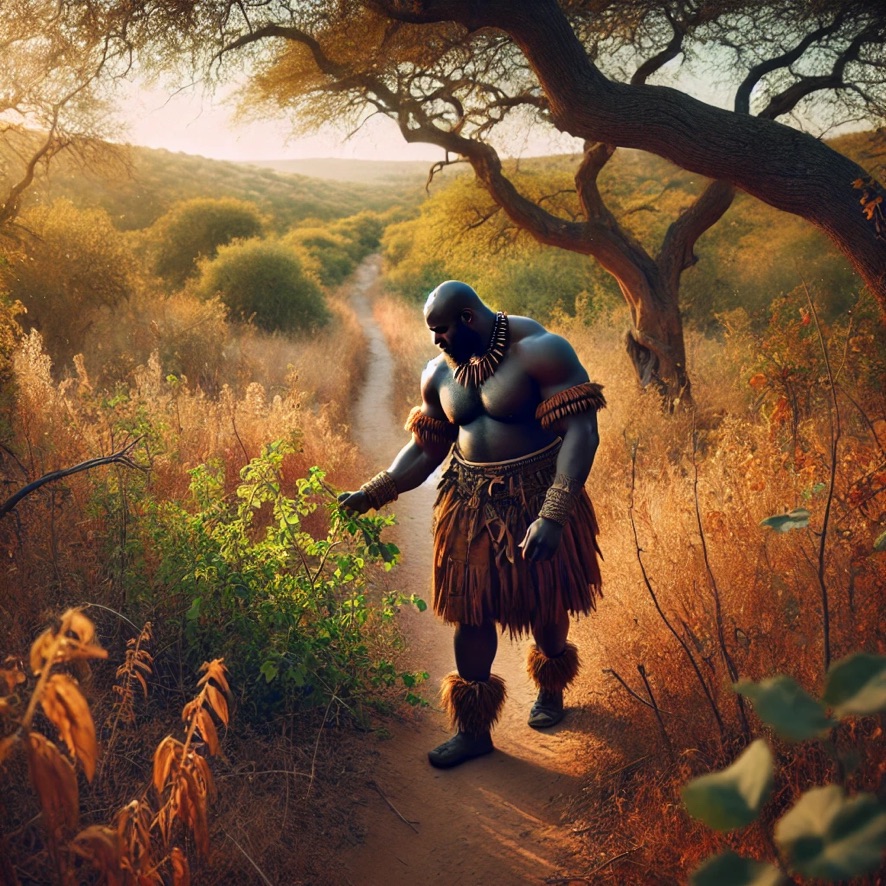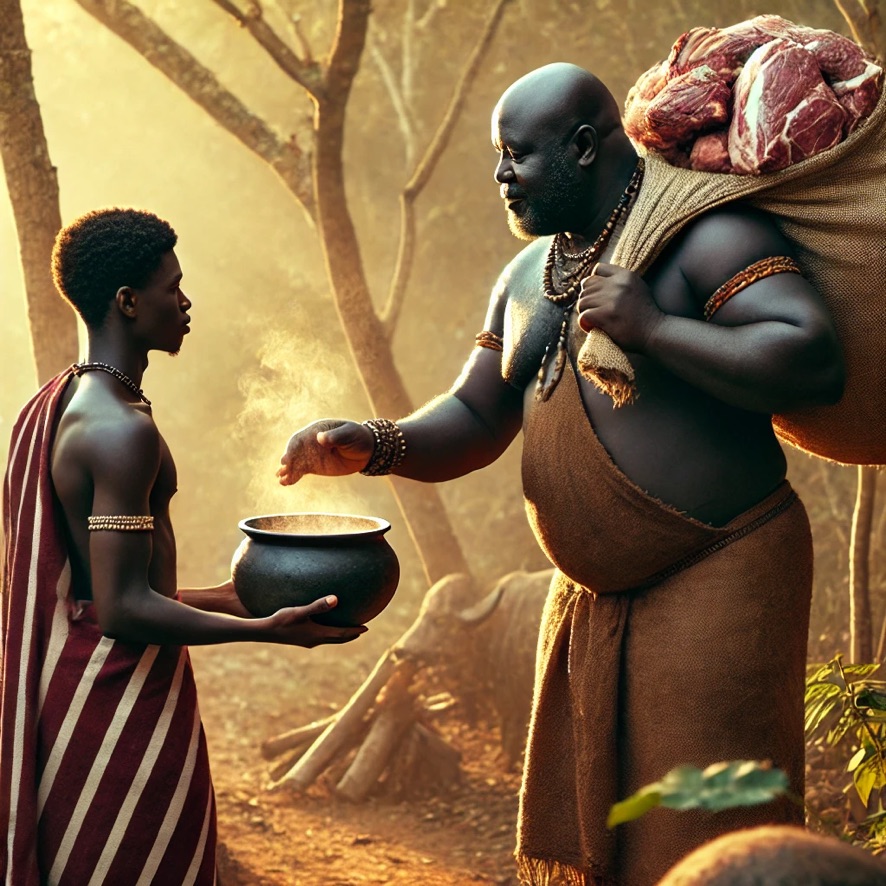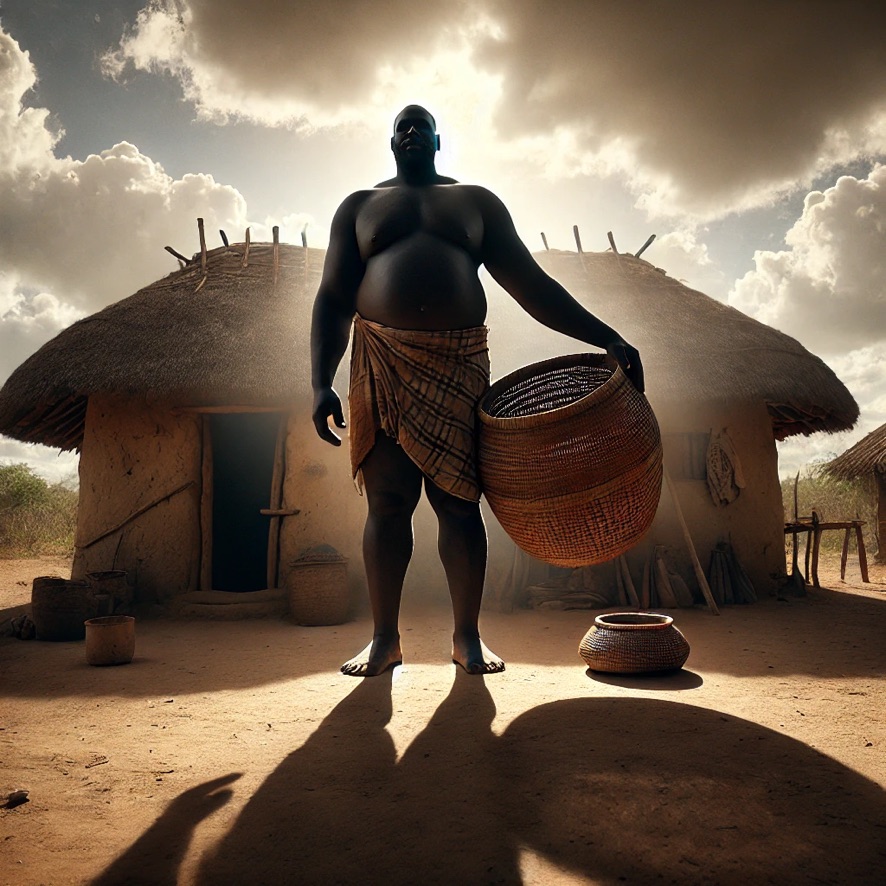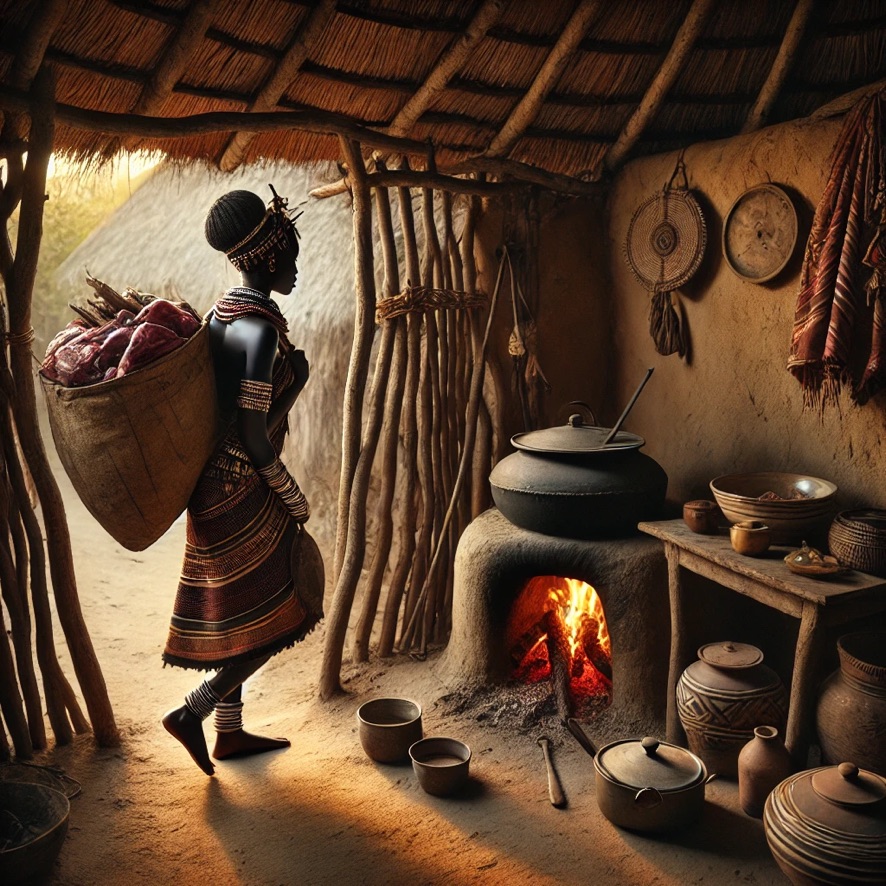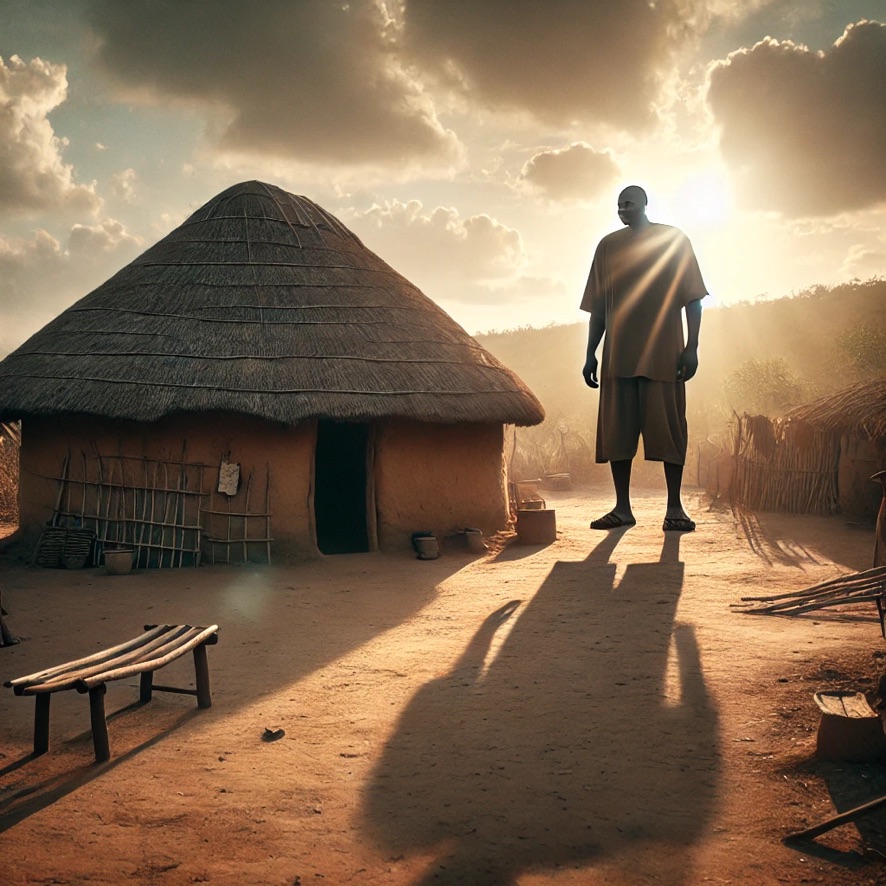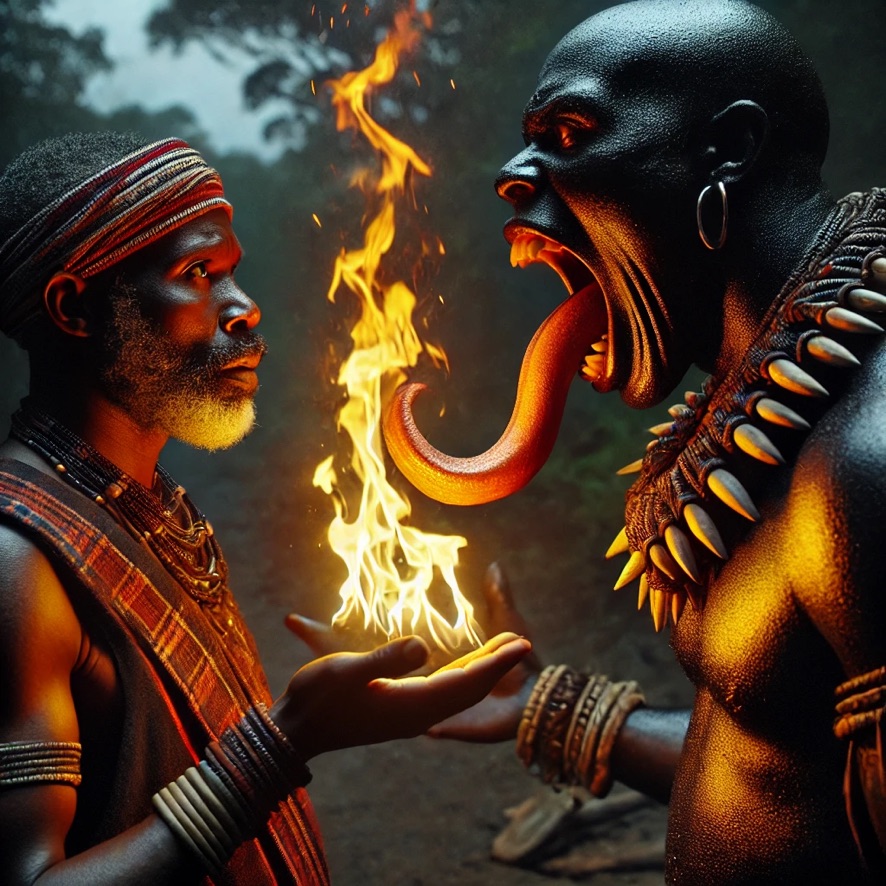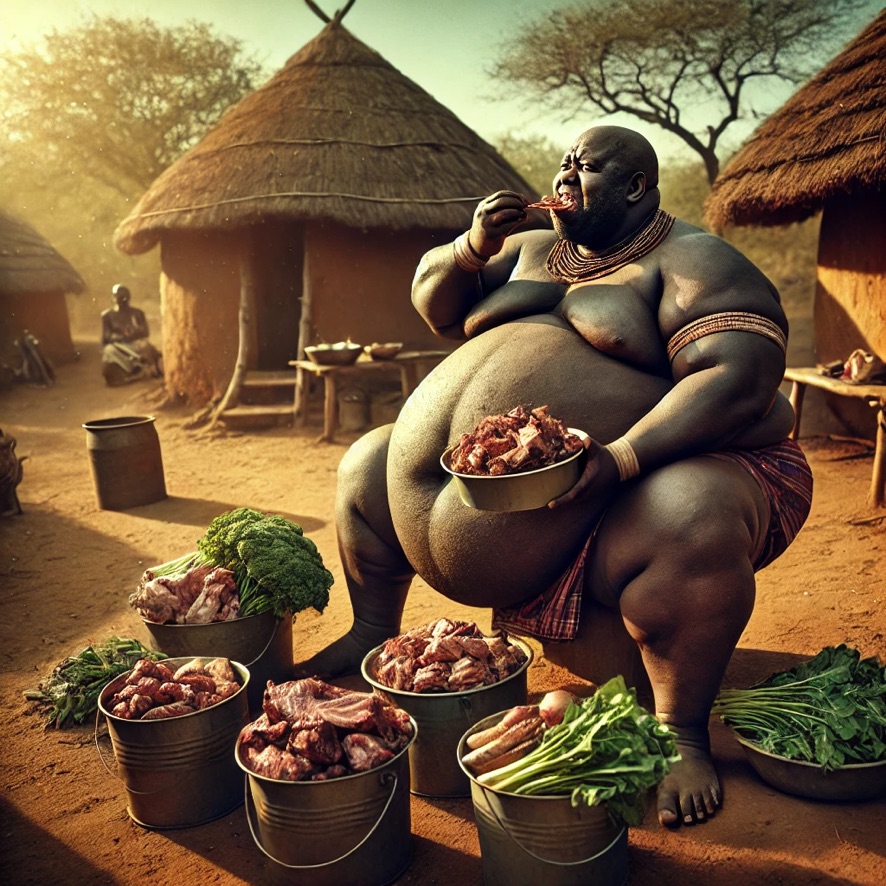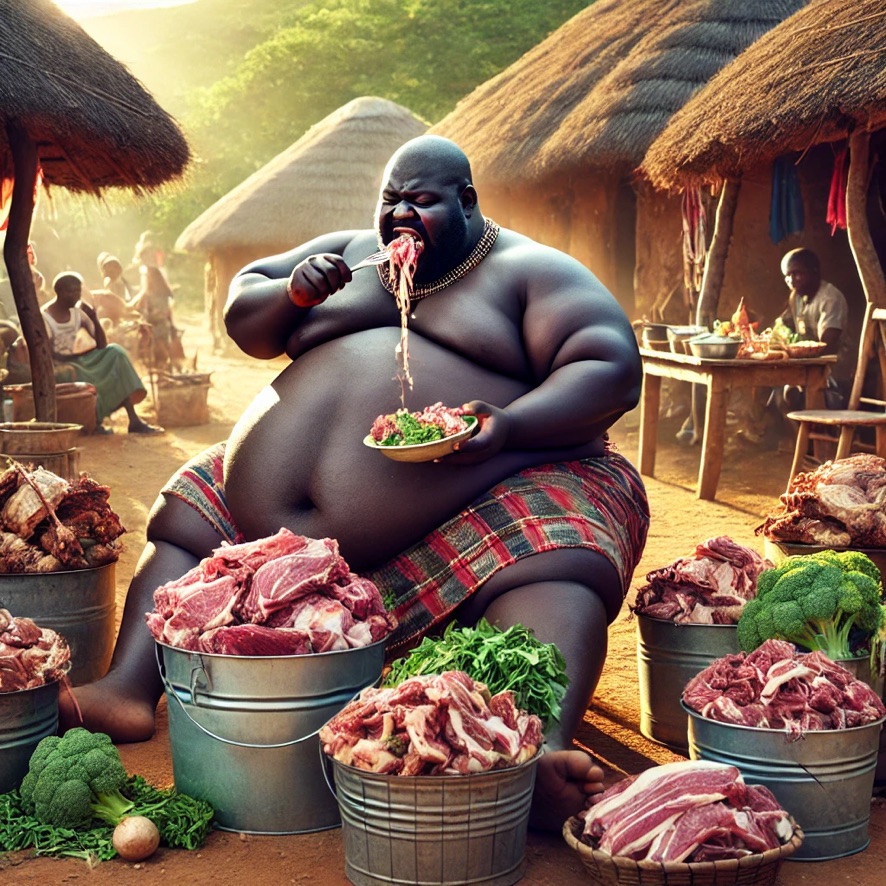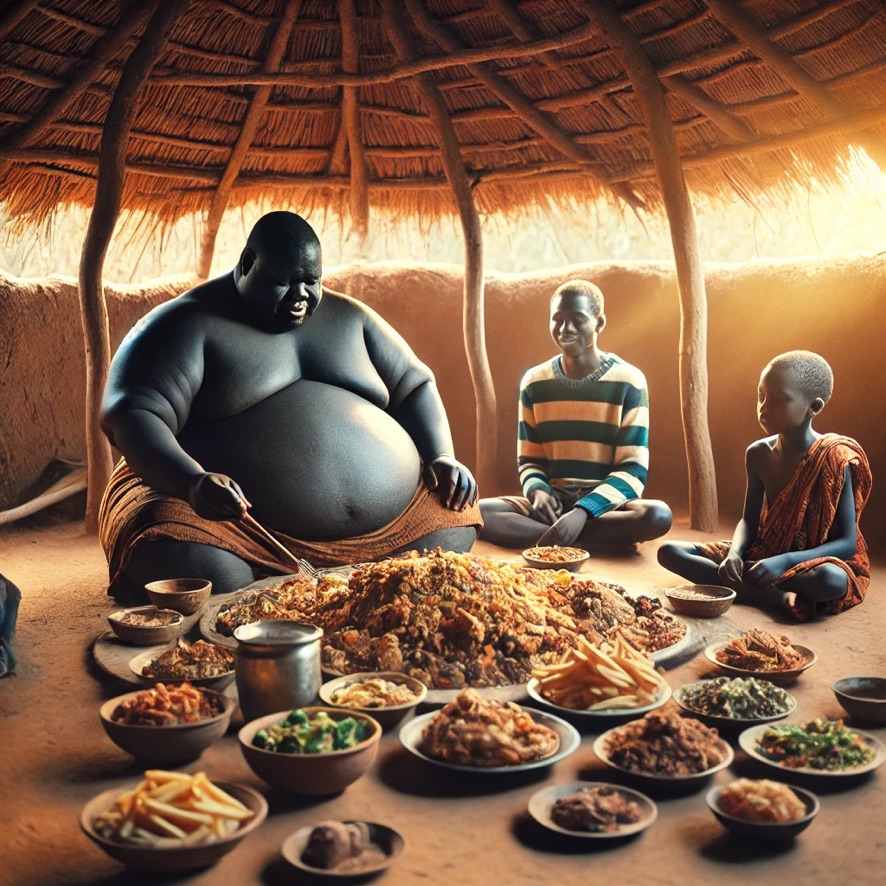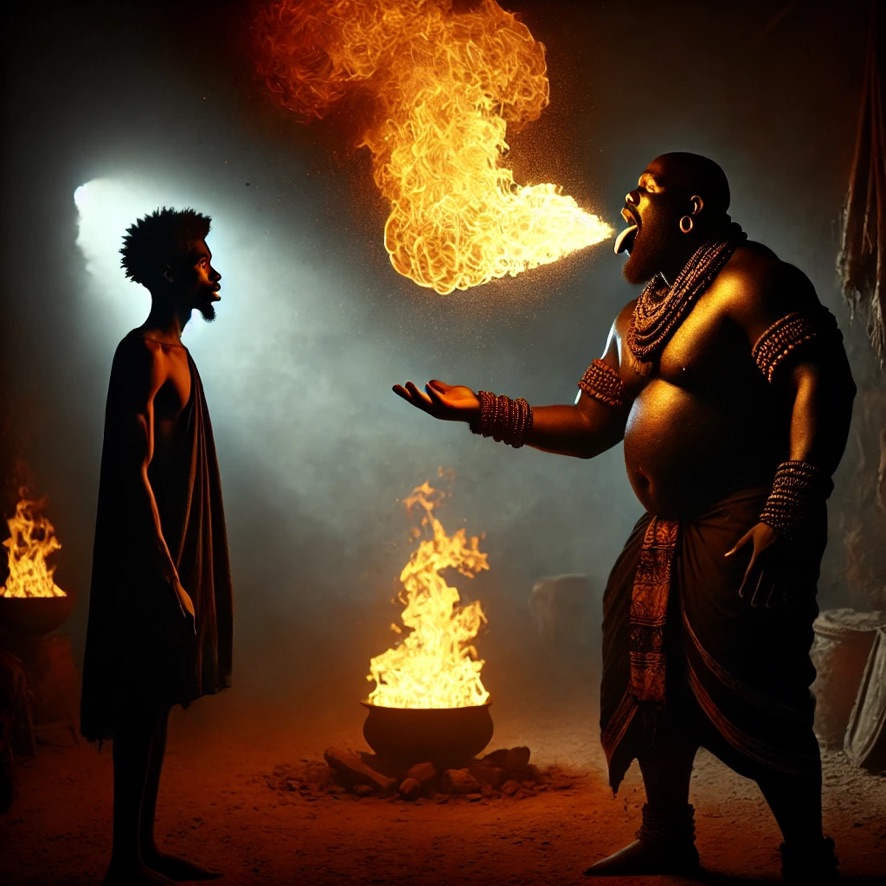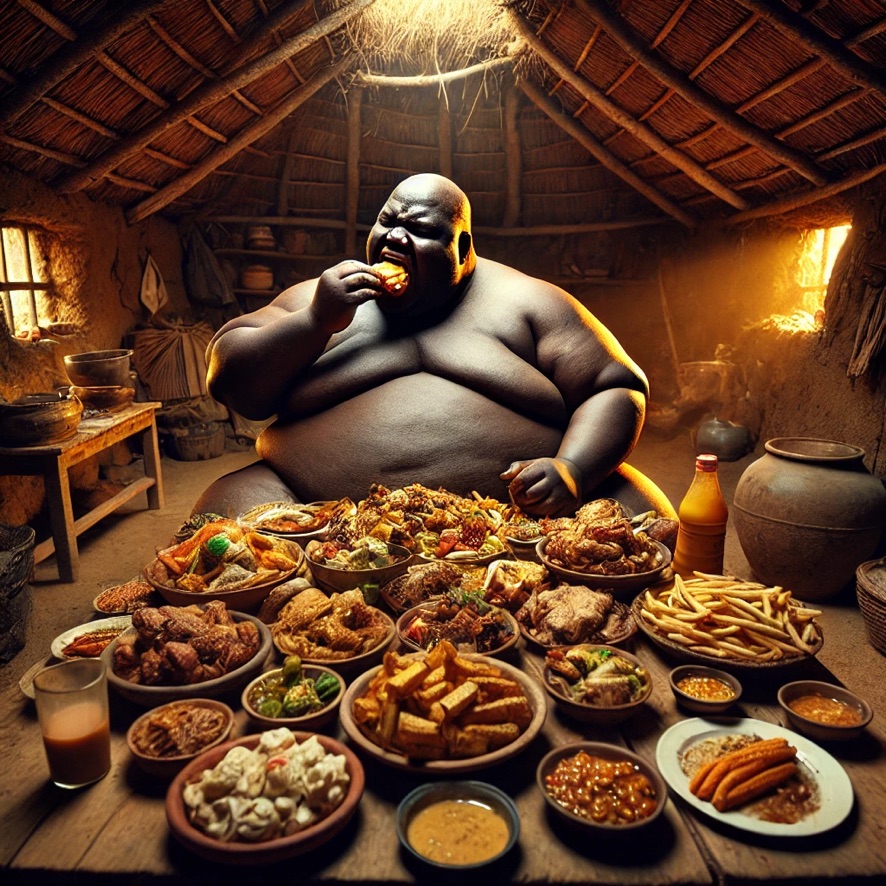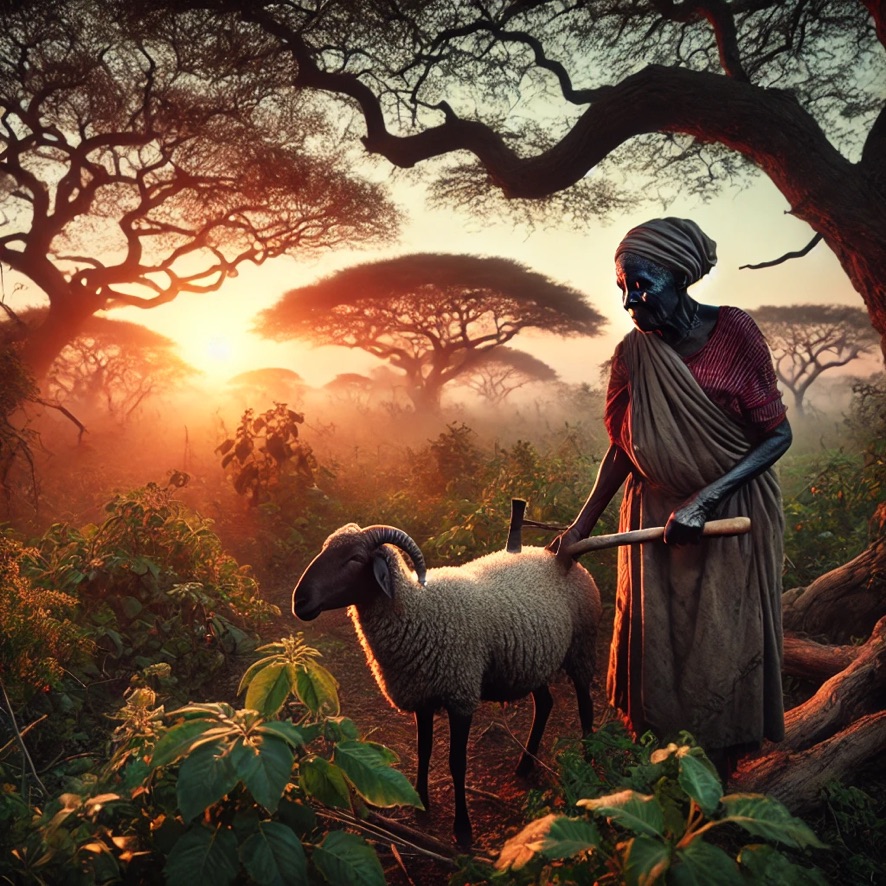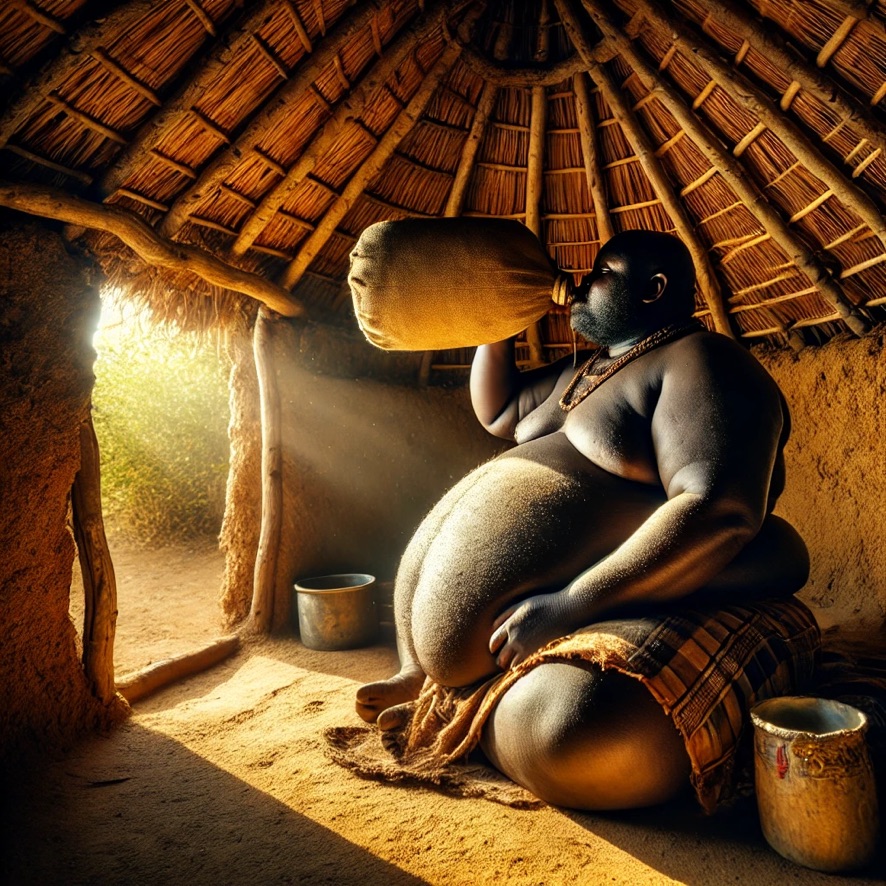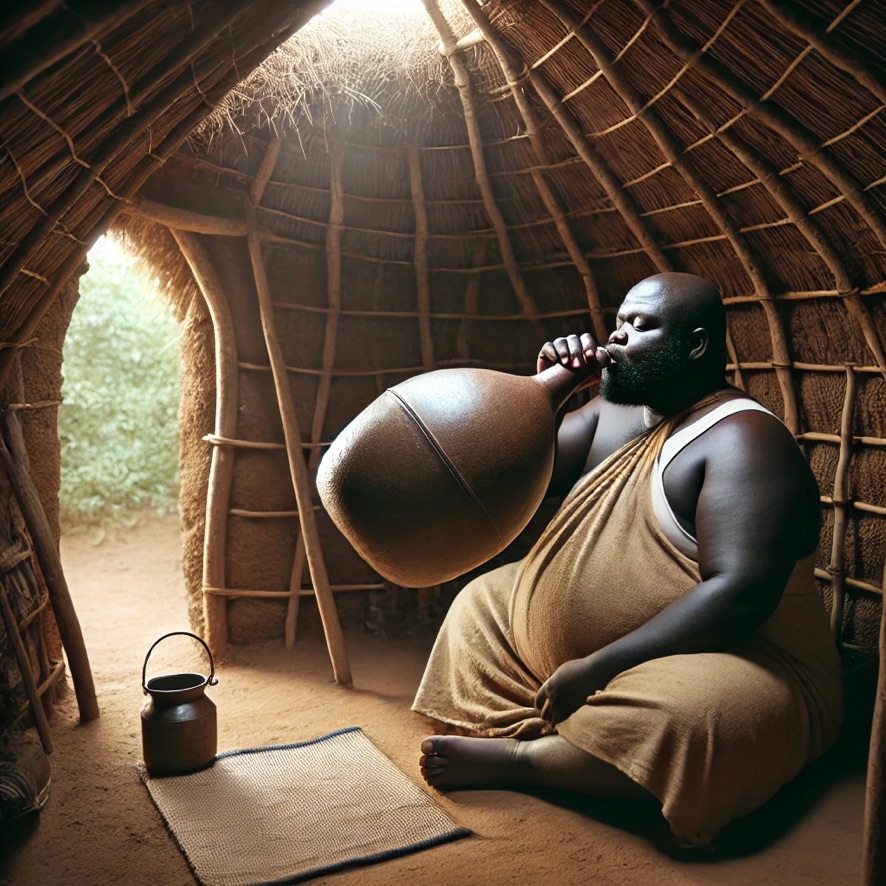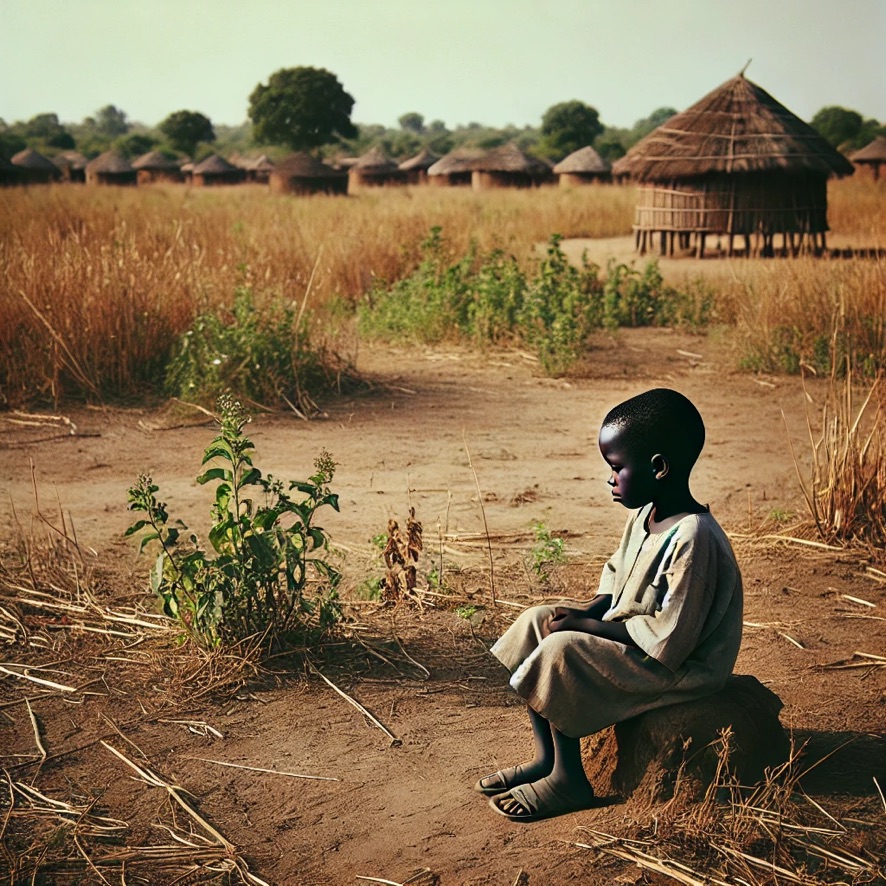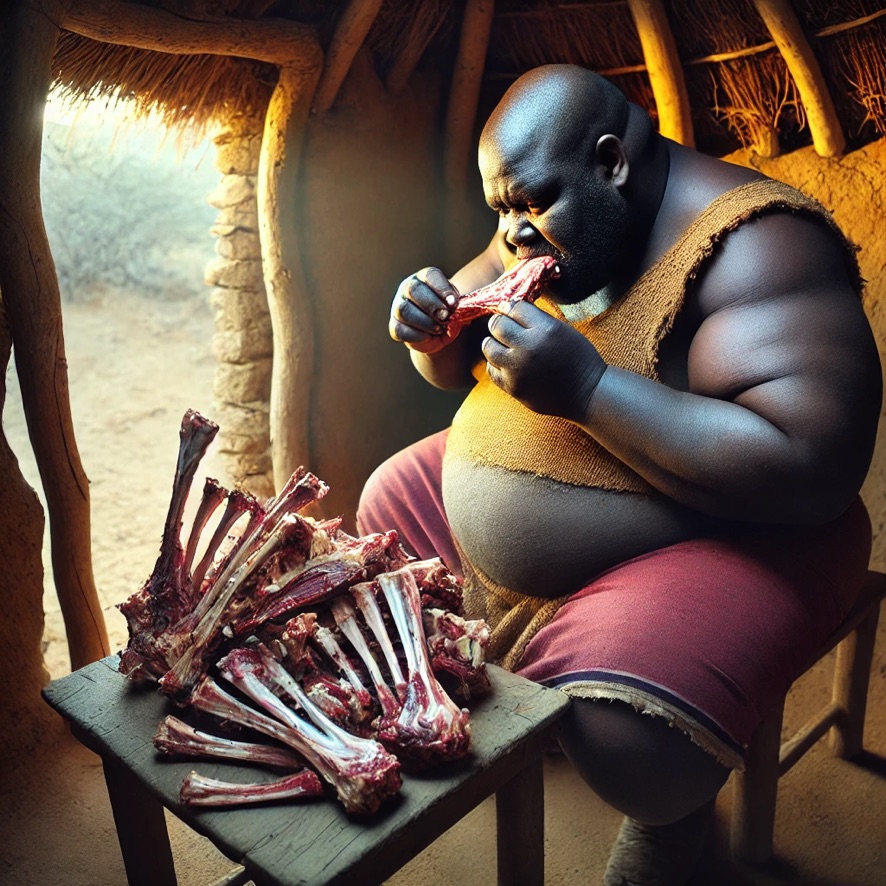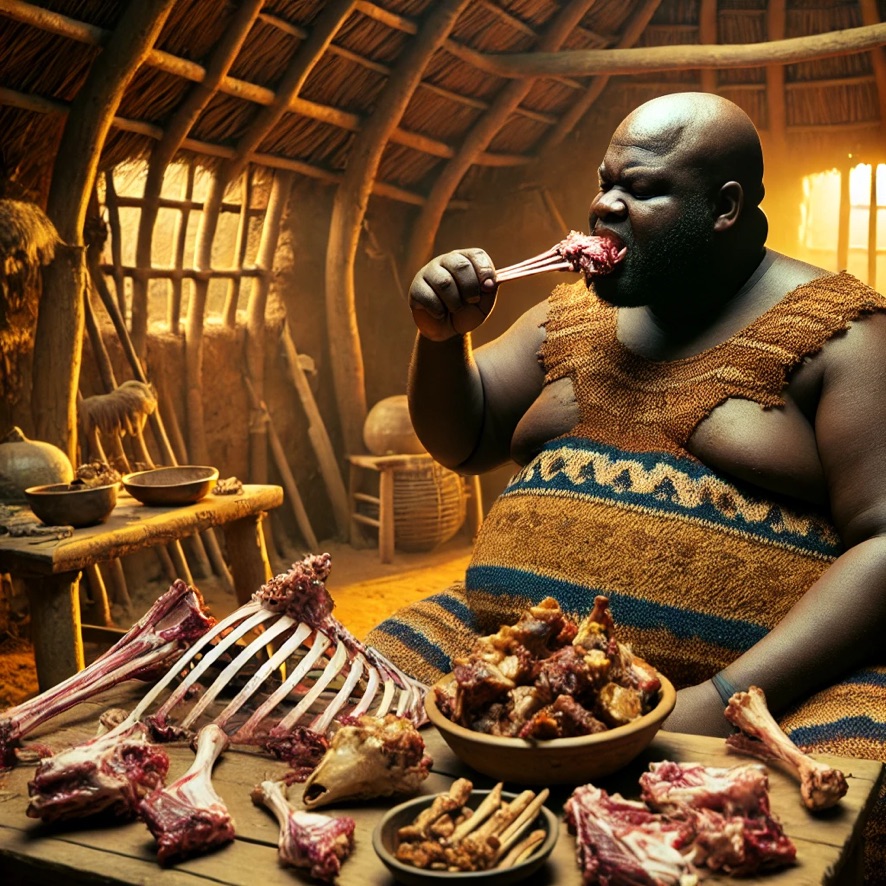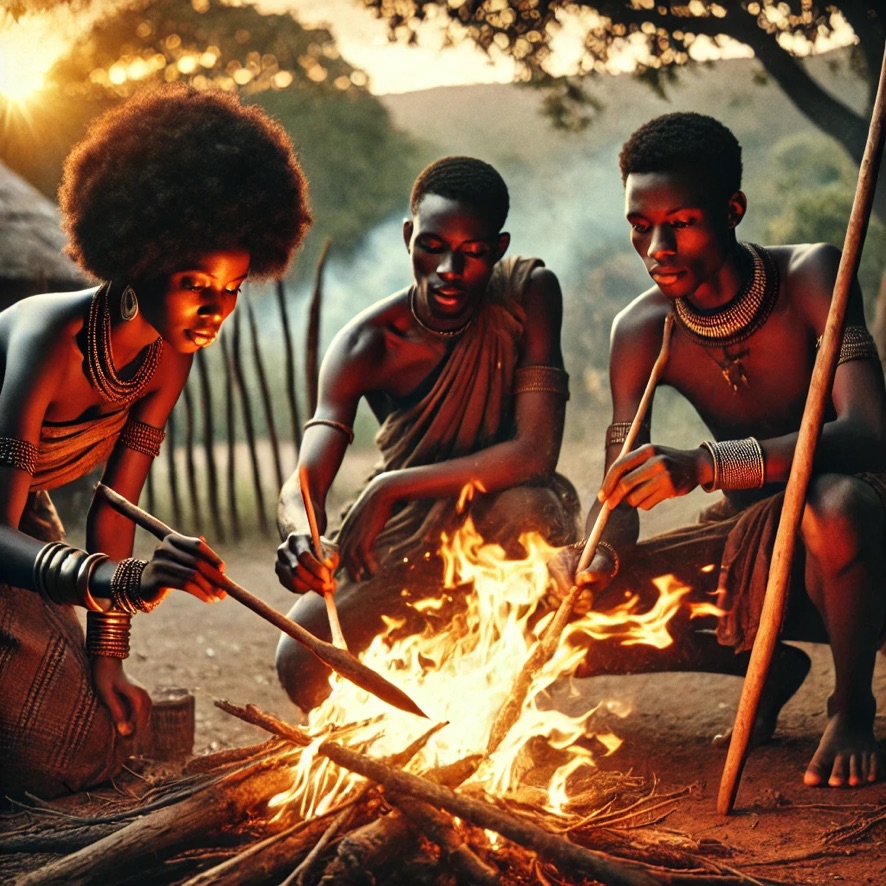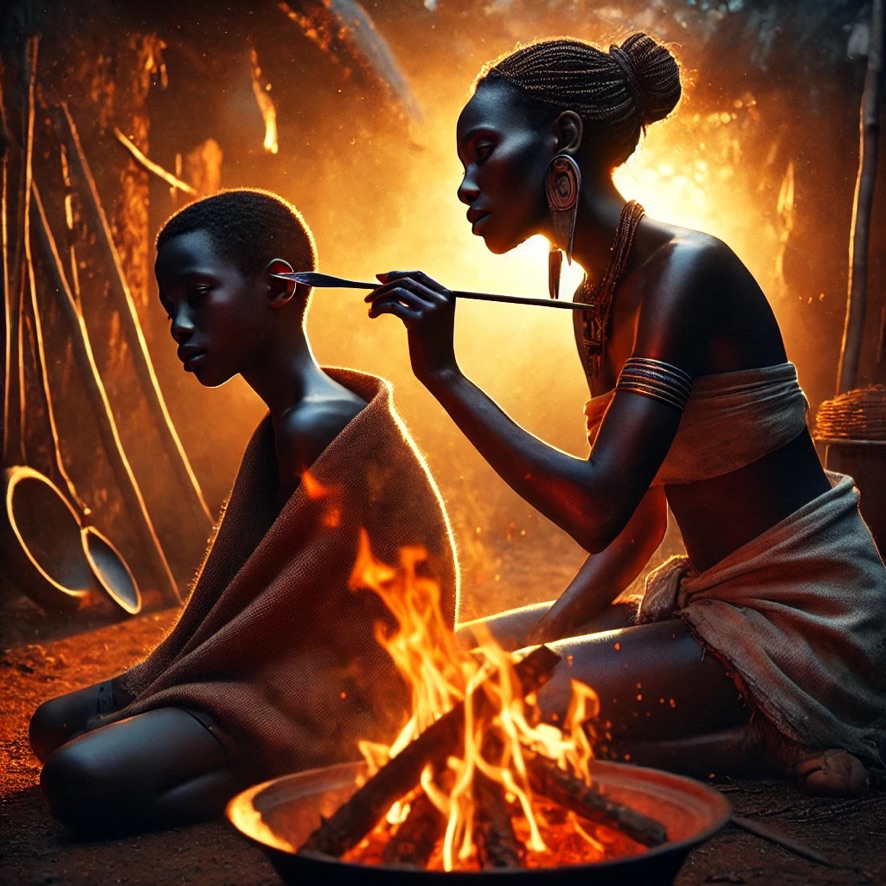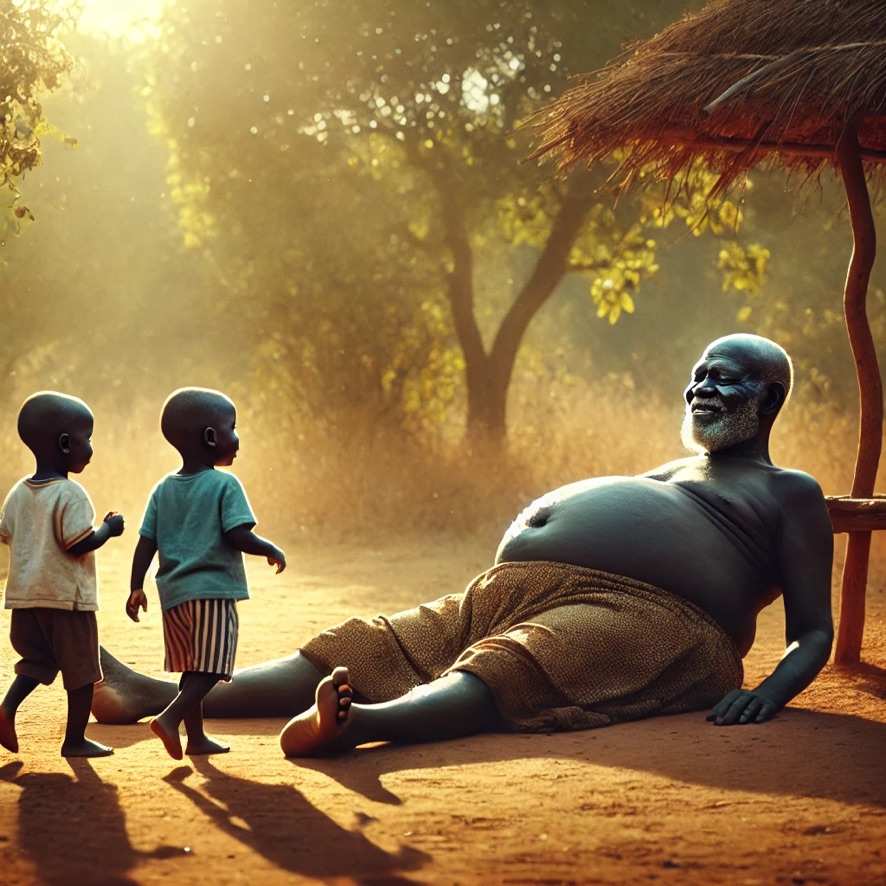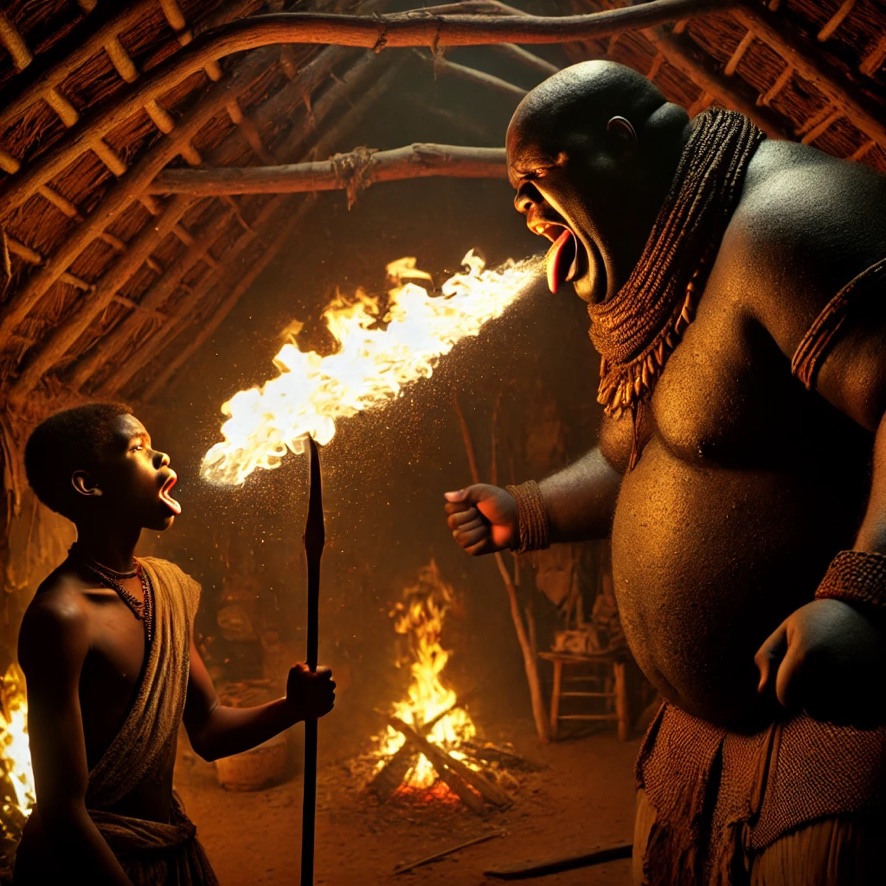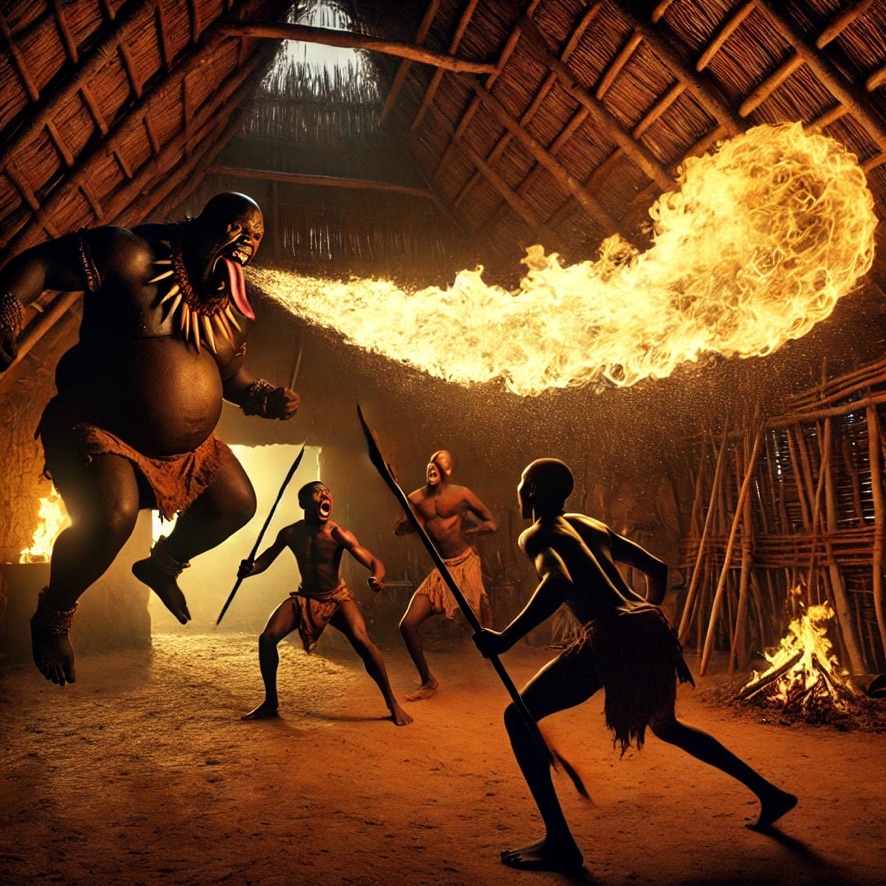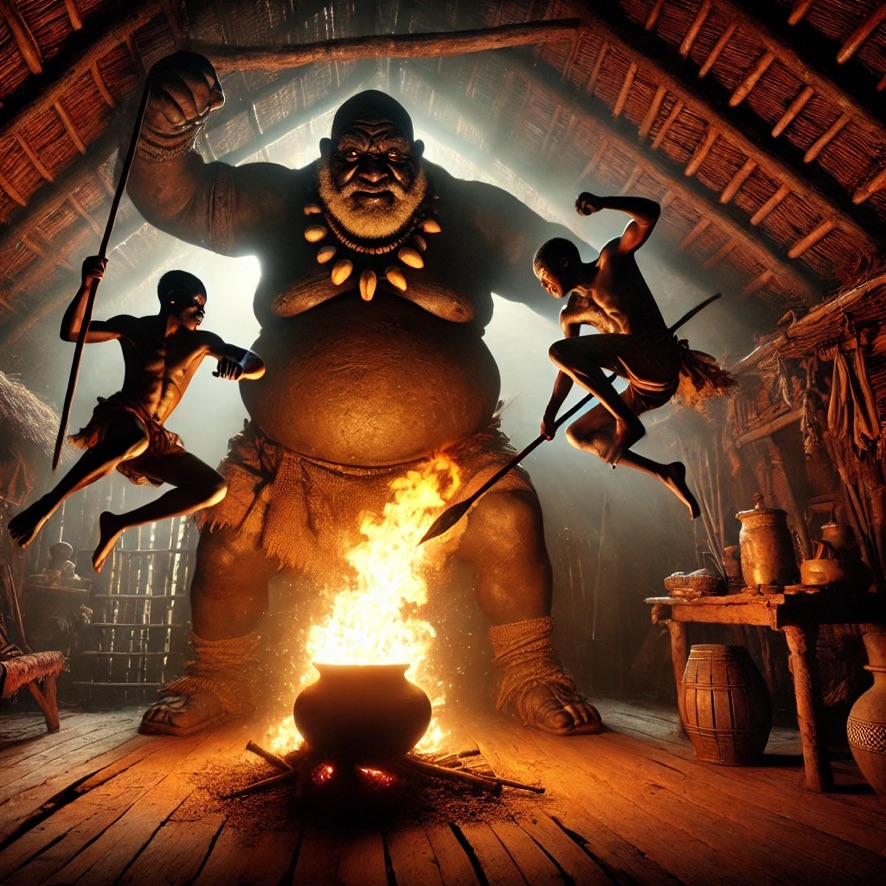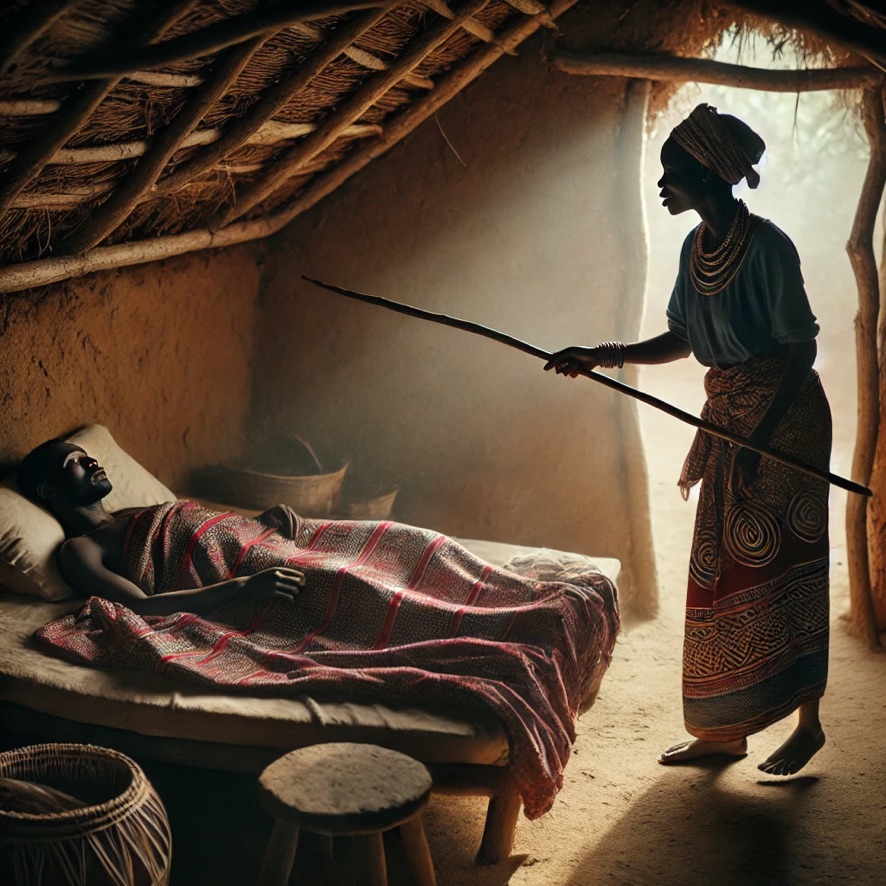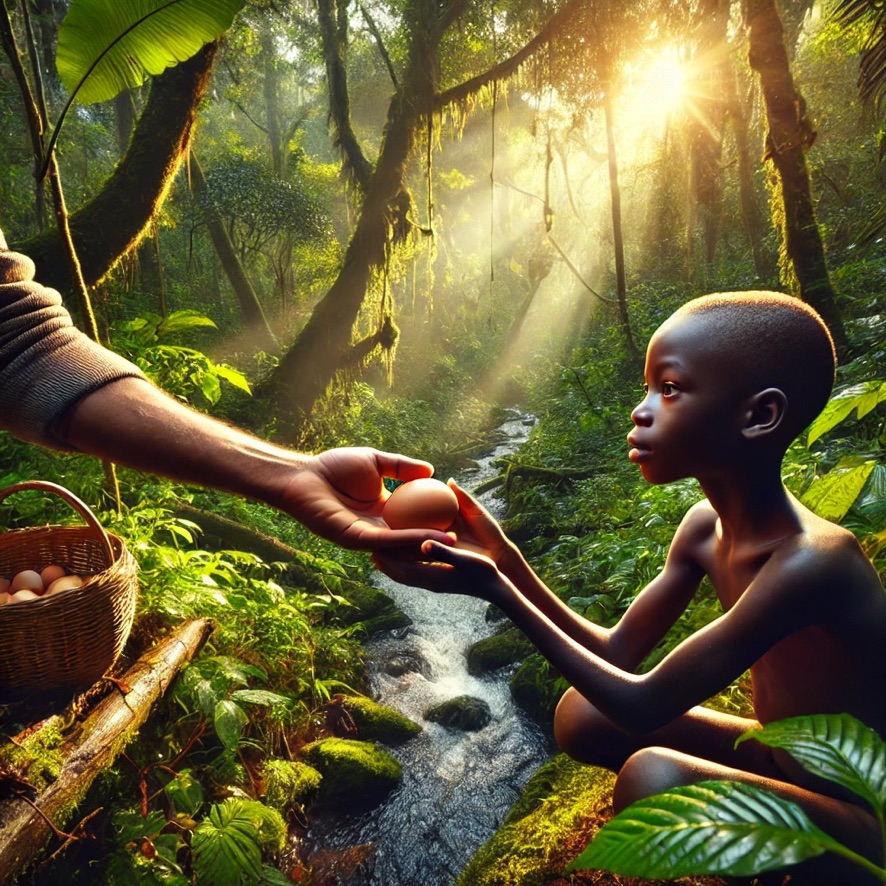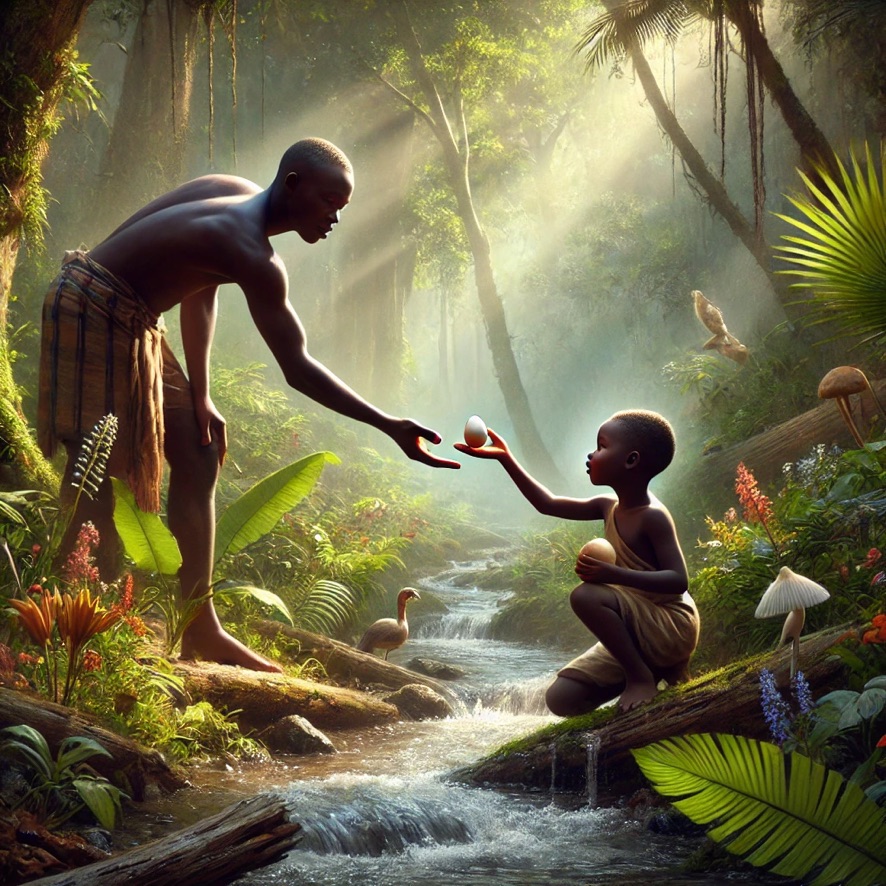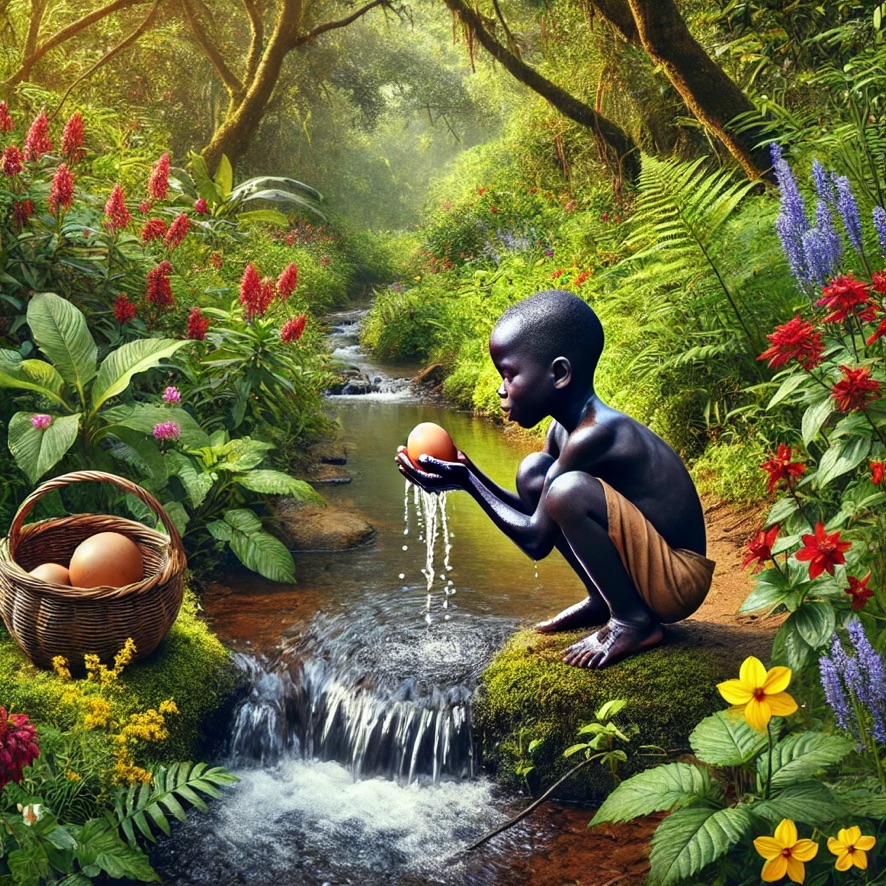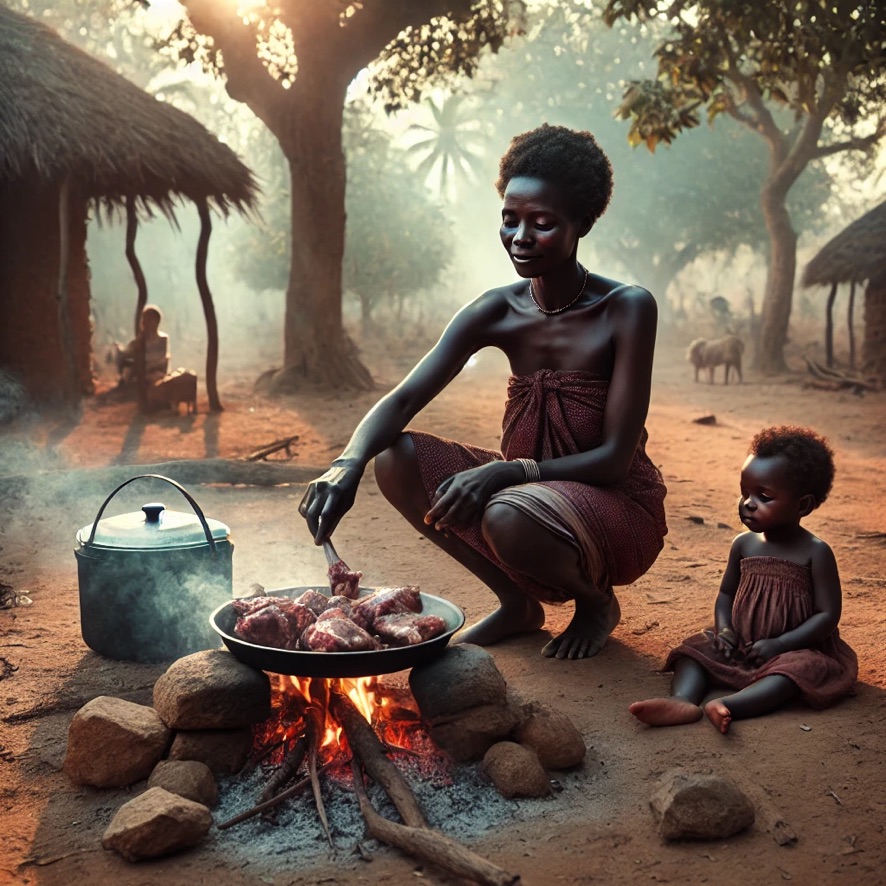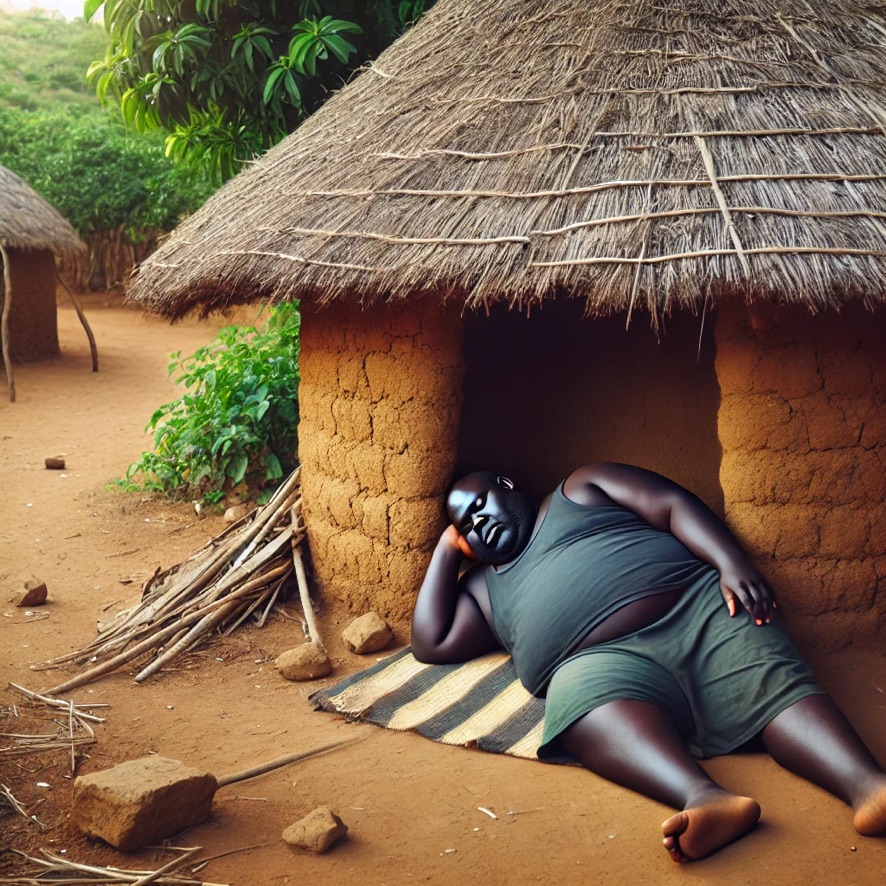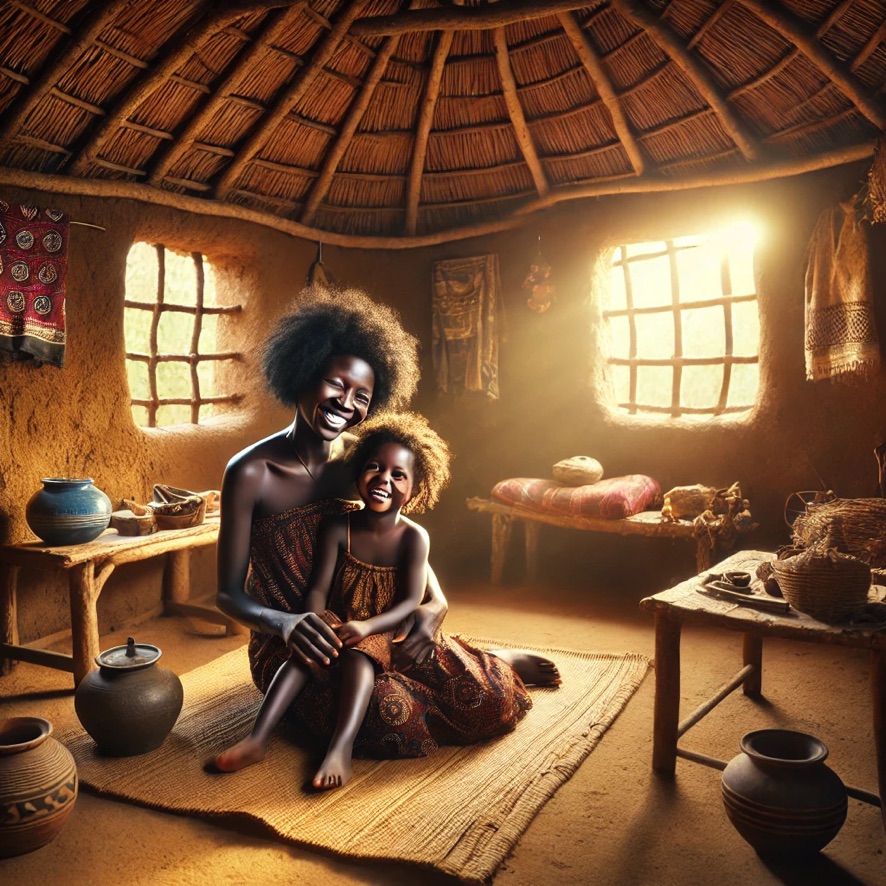ONCE ON A TIME, A king married the daughter of another king; he loved her very much. His other wives were troubled on account of his love for her. She became pregnant, and gave birth to a girl: the father loved her exceedingly. The child grew, and when she was a fine handsome little child, the other wives formed a plot against her; they said, “Since her father is not at home, let us go and cut fibre.” They told the children not to agree to carry the child. The mother called the little girl who nursed her child. She refused to carry her. The mother put her on her back, and went with her.

They cut fibre, and went on continually. It came to pass in one of the valleys they sat down and took snuff. The mother made a bundle of fibre, and gave it to the child: the child played with it. They set out again and cut fibre. They went on continually. the mother forgot the child. They went on continually cutting fibre; they tied it up in bundles, and carried it home.
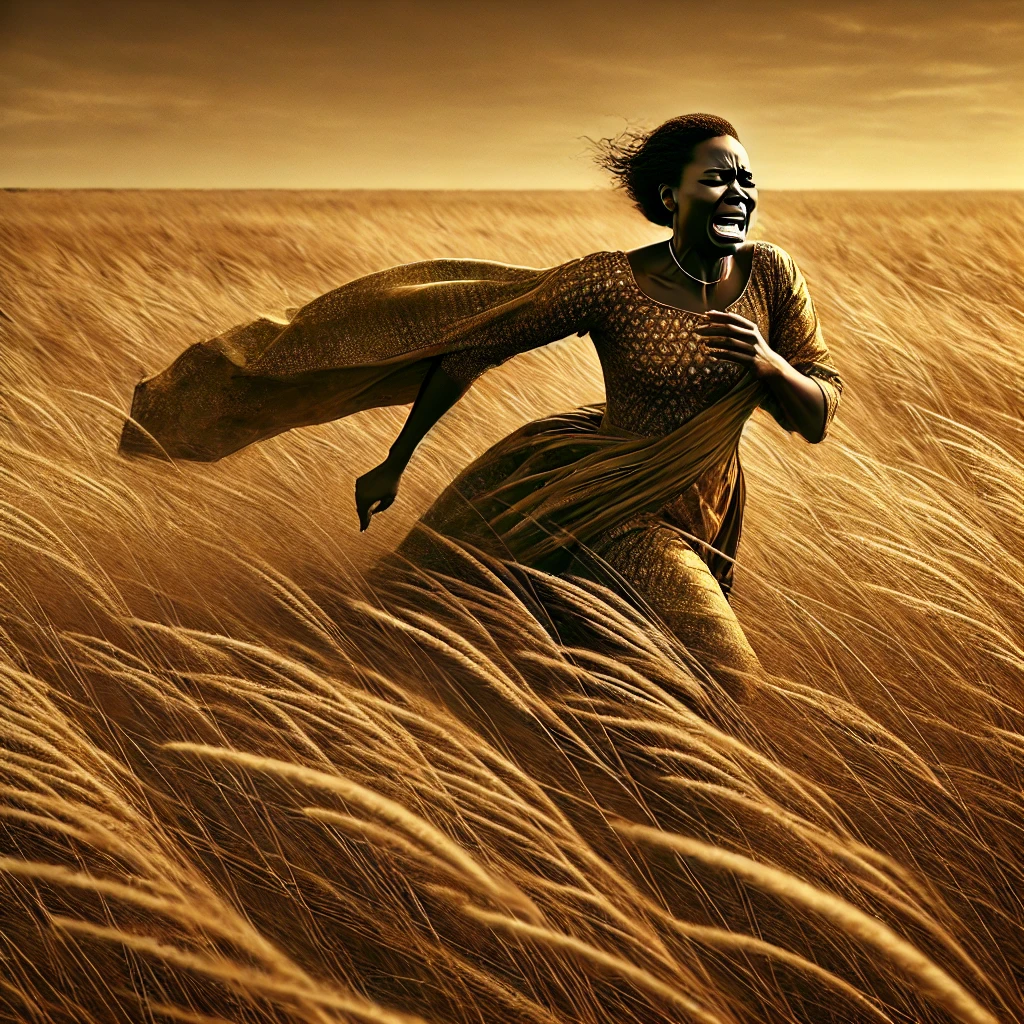
When they came home, they called the children’s nurses: they all came. But hers came without the child. She asked, “Where is my child?” They said, “you took her with you.” She was troubled, and cried, and ran to find her. She did not find her, and came back.
There was a great lamentation. The other wives said, “How is it now? We have destroyed the father’s darling. The pet wife is confounded.”
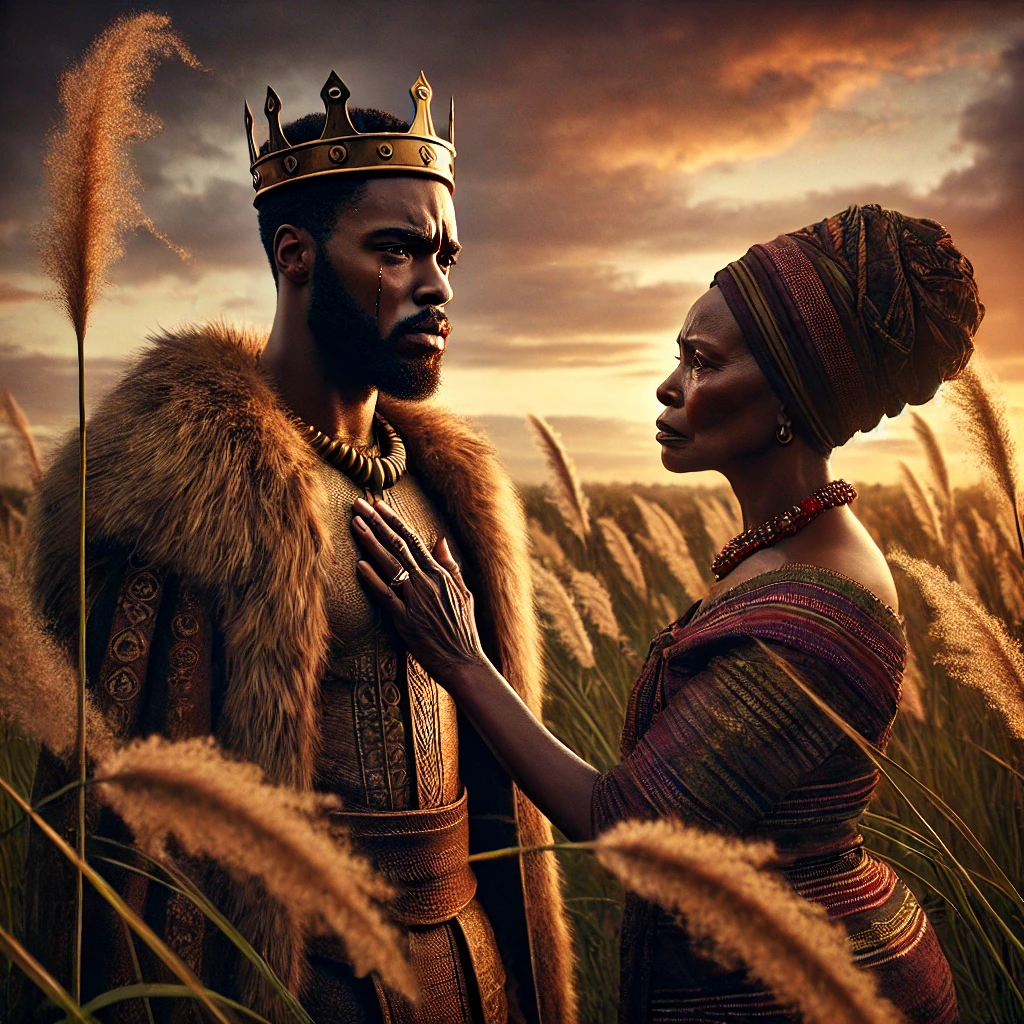
A messenger was sent to tell the father; it was said, “King, your child has been lost, while we were cutting fibre.” The father was greatly troubled.
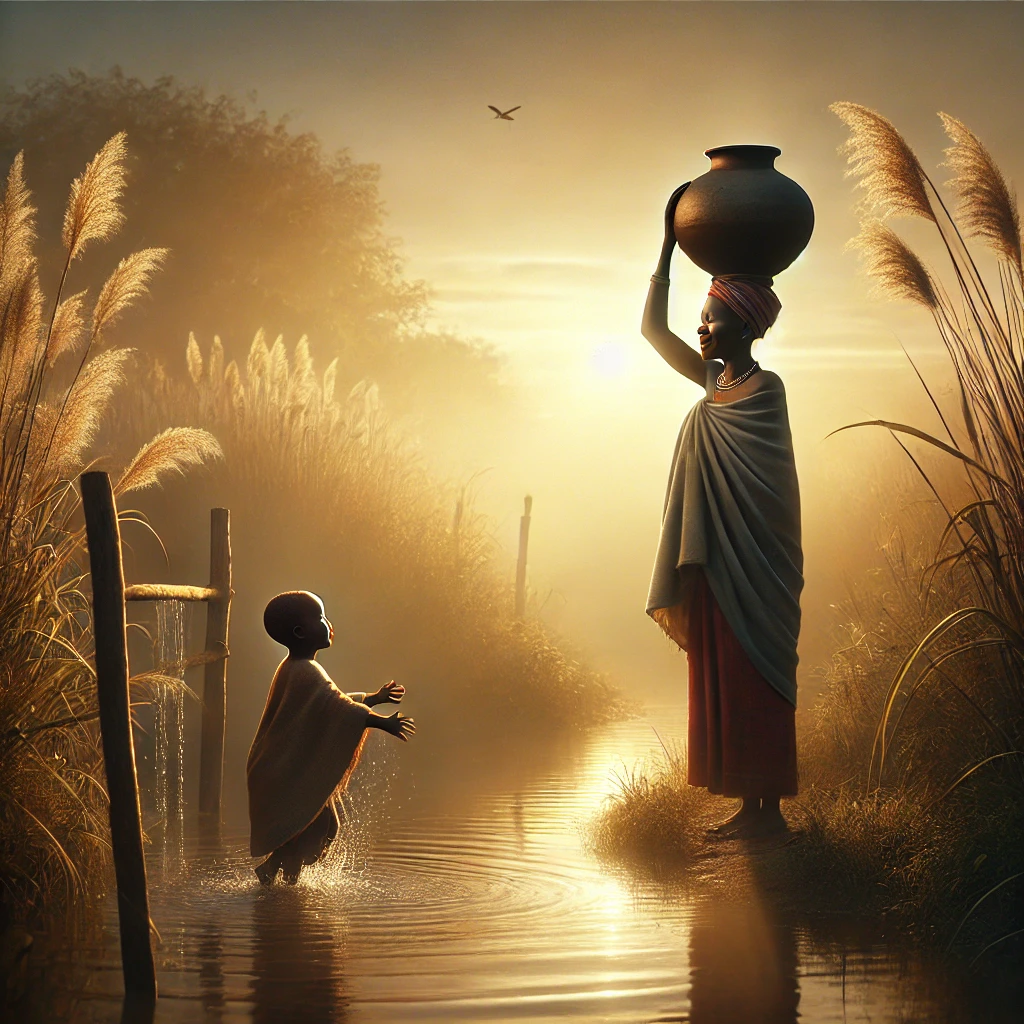
In the morning an old woman of the royal household of another nation went to fetch water: she heard the child playing; she heard something saying, “Ta, ta, ta.” She wondered and said, “Ah! what is this?” She went stealthily along, and found the child, sitting and playing. She went home, and left both her and the water-pot. She called the king’s chief wife, and said, “Come here.” The queen went out of the house. She said, “Let us go; there is something by the river which you will see.” The queen said, “Take her.” She said so with joy. The old woman took her. They came to the river. The queen said, “Wash she.” She washed her. The queen took her, and placed her on her back, and went home.
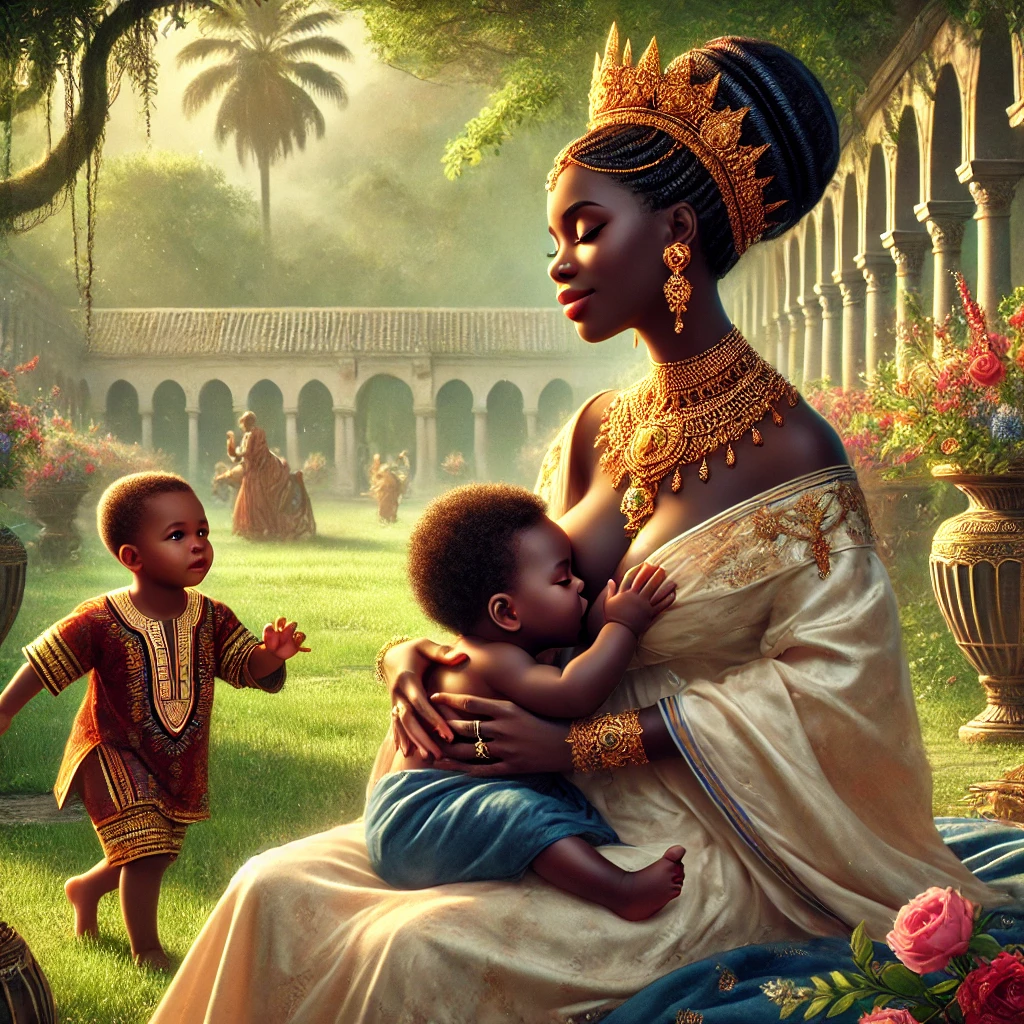
She suckled her, for she had given birth to a boy. The queen brought her up. She grew and the queen’s own child walked. She grew and became a great girl. She was appointed chief of the girls, when a great feast was made. Many cattle were slaughtered, and all the people rejoiced.
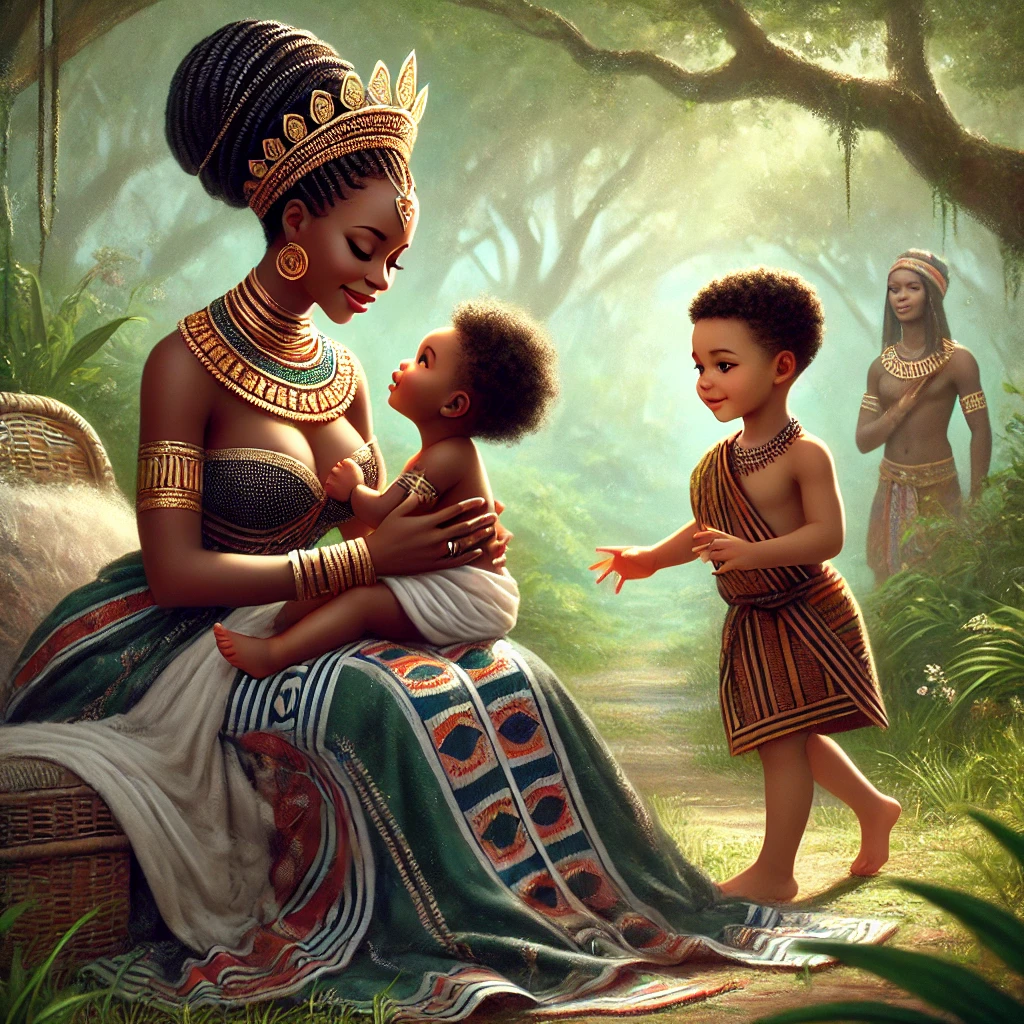
After that the chief men said to the boy, “Marry this girl.” The boy wondered, and aid, “O! what is the meaning of this? Is she not my sister? Did we not suck together at my mother’s breast?” They said, “No, she was found in a valley.” He denied, and said, “No, she is my sister.” The next morning they said, “It is proper you should take her to be your wife.” He refused, and was greatly troubled.
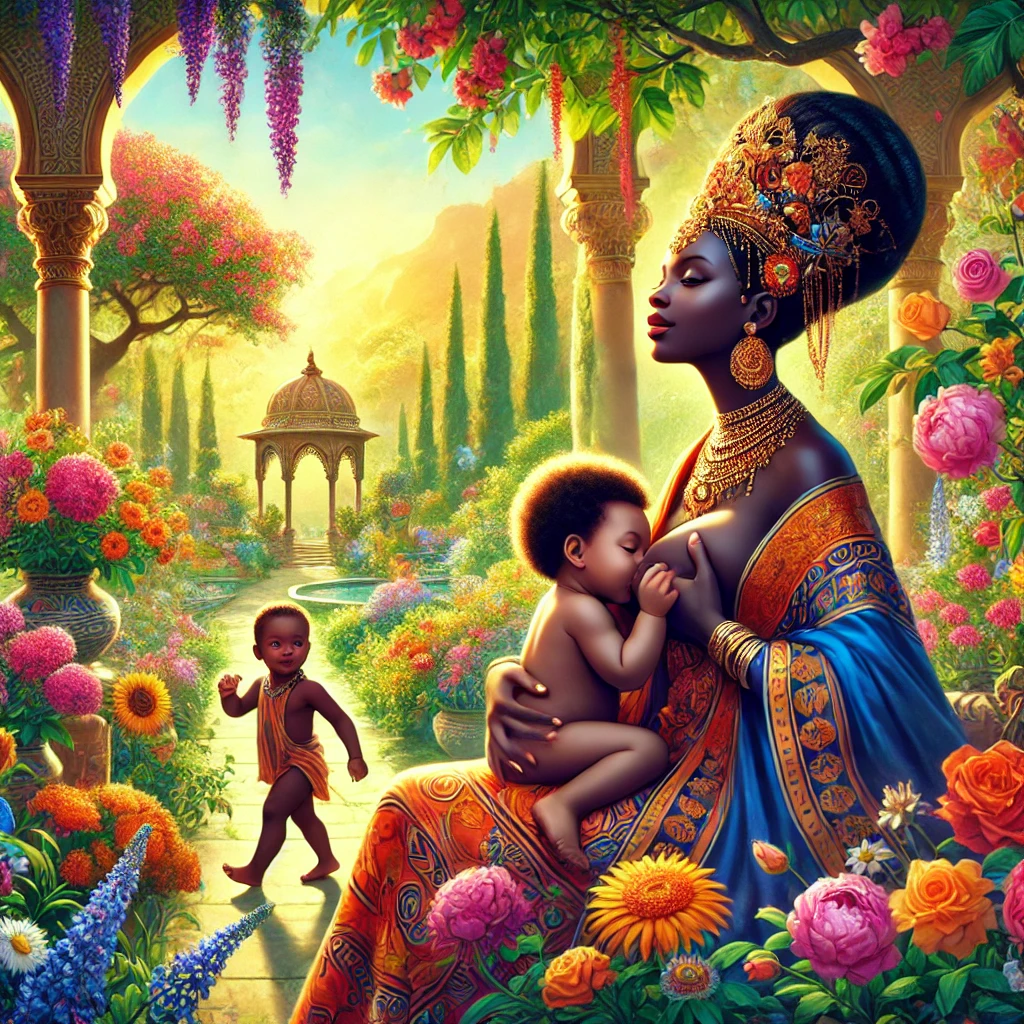
On another occasion an old woman said tot he girl, “Do you know? She answered, “What?” She said, “You are going to be married.”” She inquired, “To whom?” She said, “the young man of your own house.” She said, “O! what is the meaning of this? Is he not my brother?” The old woman said, “No, you were taken from a valley, and brought up by the queen.” She cried, being much troubled.
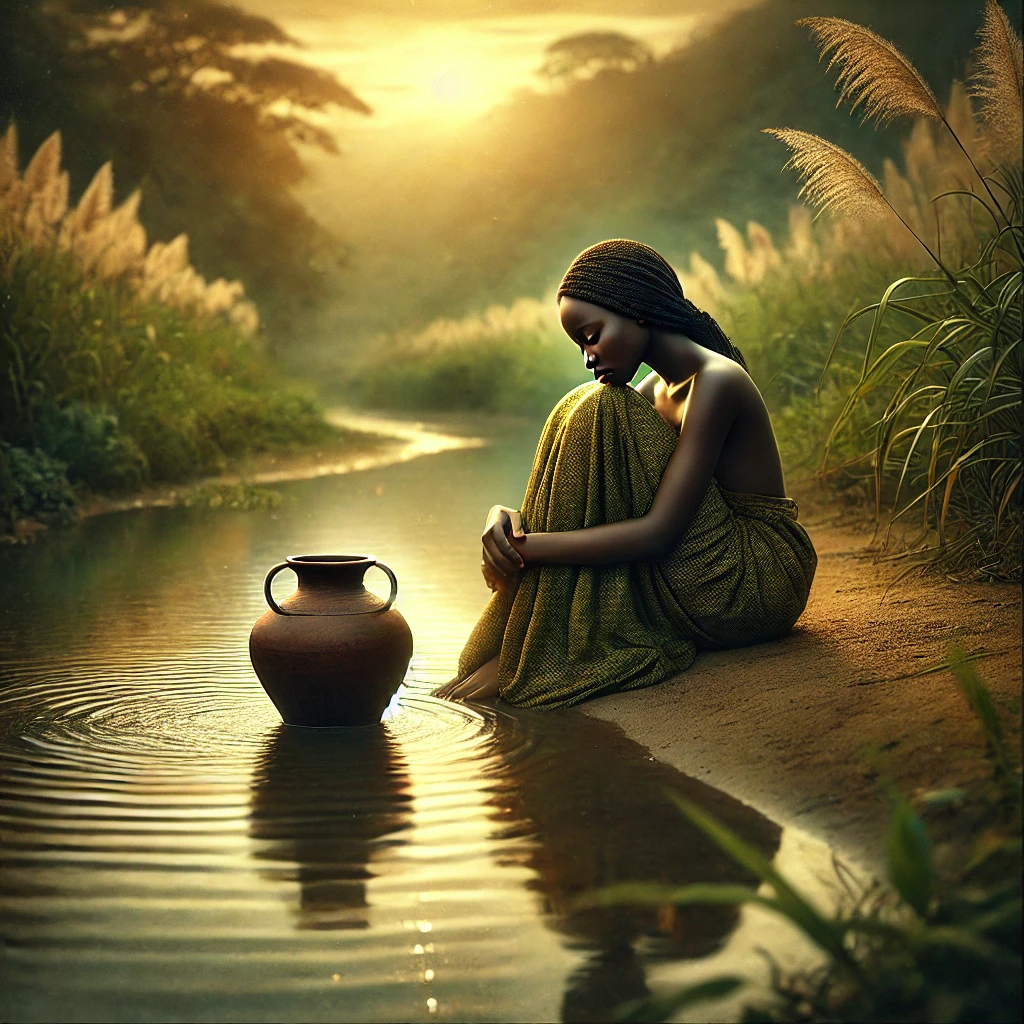
The girl took a water-pot, and water to the river, and sat down and wept. She filled the water-pot, and went home. She sat down in the house. Her mother gave her food; she did not like it, and refused. The mother asked, “What is it?” She said, “Nothing. There is a pain in my head.” So it was evening, and she went to lie down.

In the morning she awoke and took the water-pot, and went to the river; she sat down and wept. As she was crying, there came out a great frog, and said, “Why are you crying?” She said, “I am in trouble.” The frog said, “What is troubling you?” She replied, “It is said that I am to become the wife of my brother.” The frog said, “Go and take your brother things, which you love, and bring them here.”

She rose and took the water-pot, and went home. She took another pot, and fetched her things, and out them in the pot; she took her brass rod, and her ubenthle kilt, and a petticoat with a border of brass balls, and her fillet, and her brass, and her beads. She took these things, and went to the river, and threw them on the ground.
The frog inquired, saying, “Do you wish me to take you to your own people?” The child said, “Yes.” The frog took her things and sallowed them; he took her and swallowed her; and set out with her.
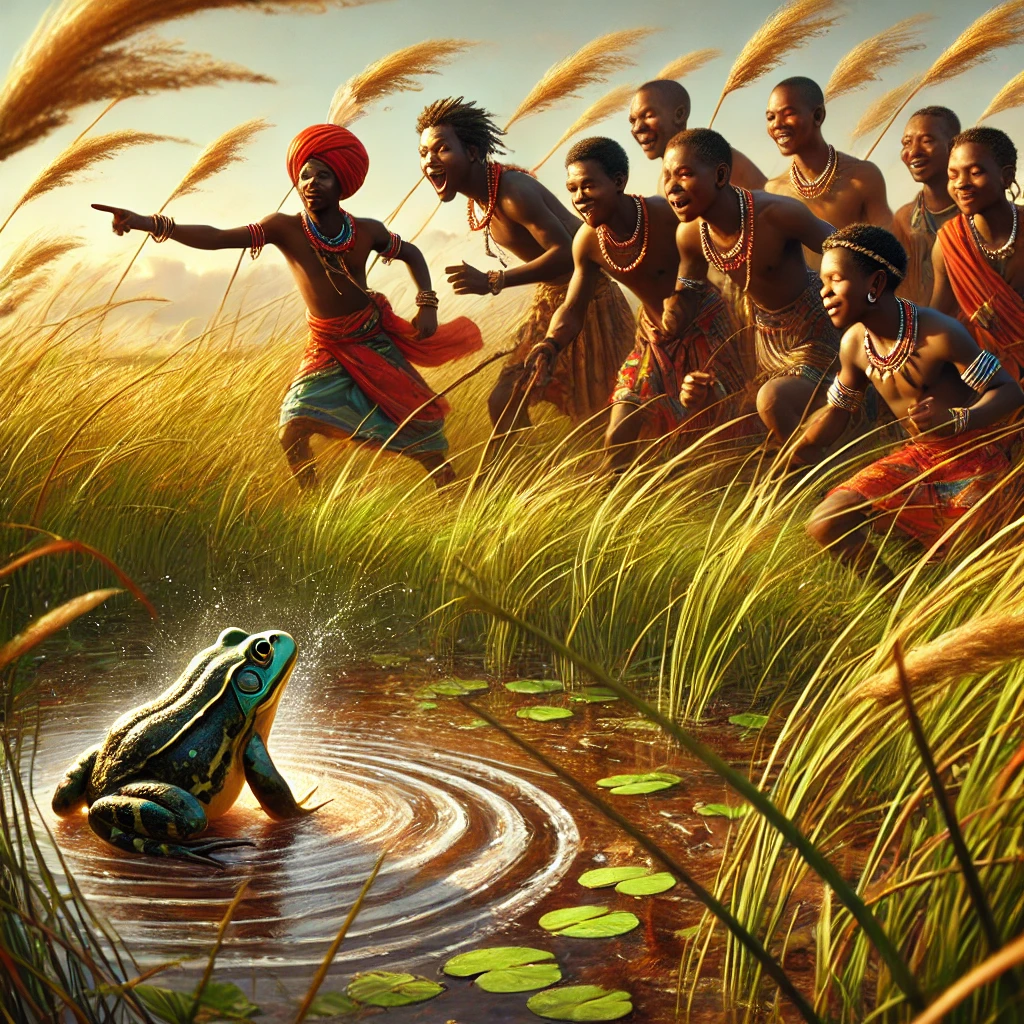
On the way he met with a string of young men: they saw the frog. The one in front said, “Just come and see: here is a very great frog.” The others said, “Let us kill him, and throw stones at him.” The frog said:
“I am but a frog; I will not be killed.
I am taking Umbhlubu to her own country.”
They left him. They said, “Hau! How is it that the frog speaks, making a prodigy? Let us leave him.” They passed on, and went their way.
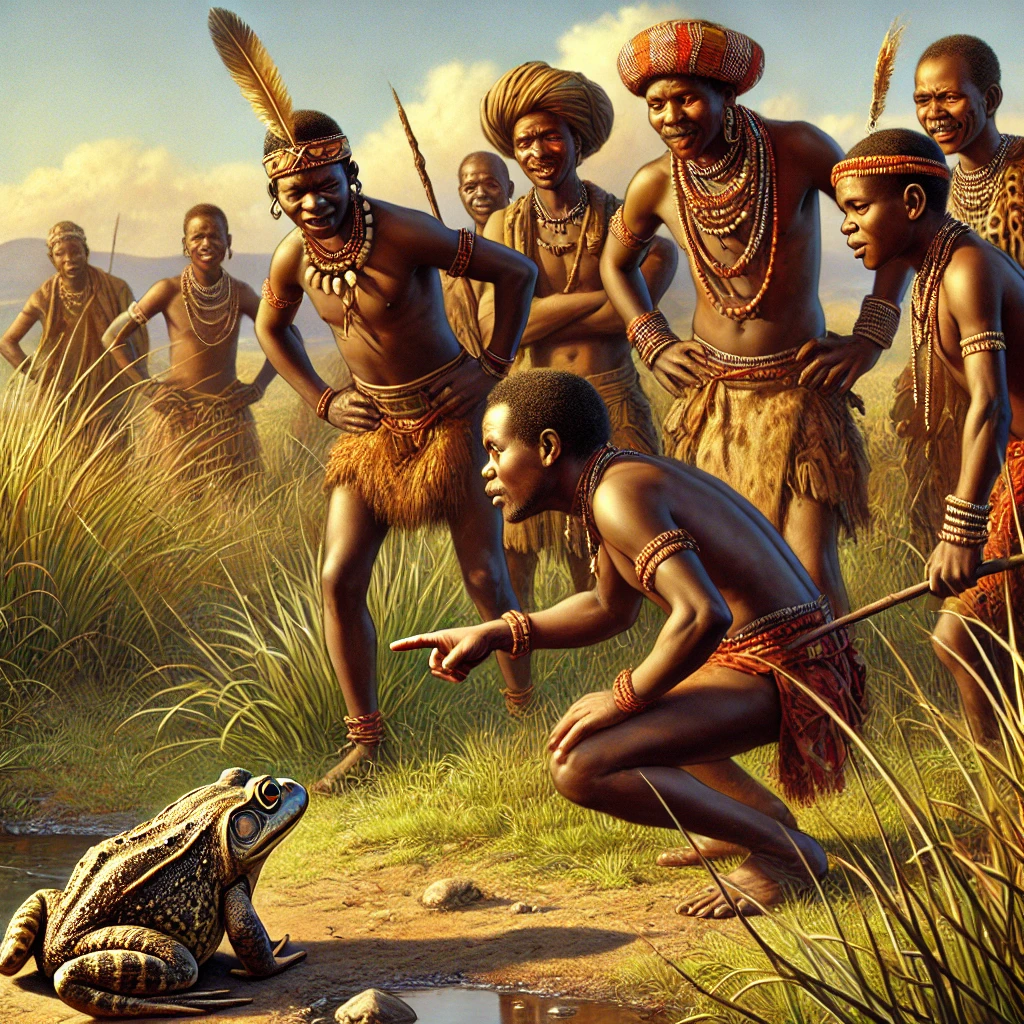
And so the frog too went on his way. Again he met with a string of men. The one in front said, “O, come and see a huge frog.” They said, “let us kill it.” The frog replied:
“I am but a frog; I will not be killed.
I am taking Umdhlubu to her own country.”
They passed on, and the frog went on his way.
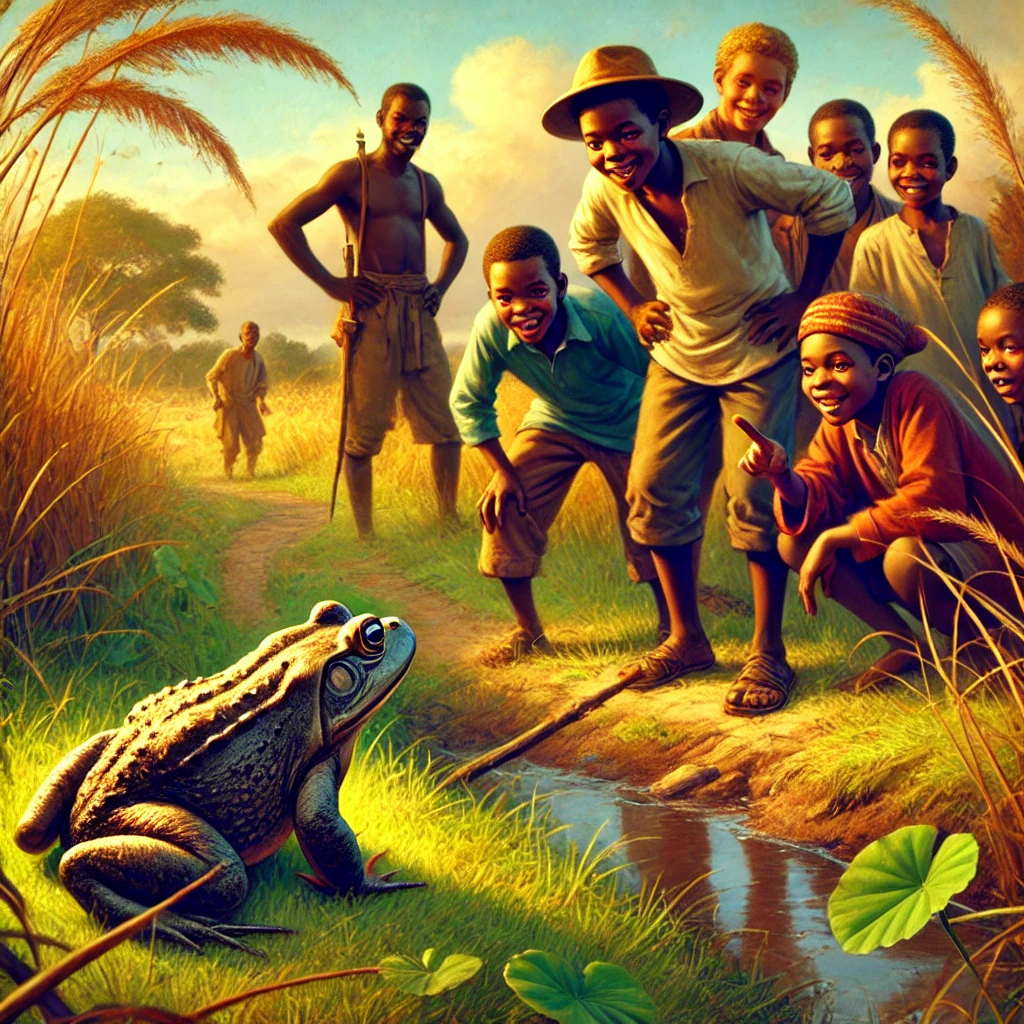
He fell in with some boys herding cattle: they saw him, and he was seen by a boy of the damsel’s father. He had said, “W au! By Umdhlubu the king’s child! Come and kill a great frog. Run and cut sharp sticks, that we may pierce him with them.” The frog said:
“I am but a frog; I will not be killed.
I am taking Umdhlubu to her own country.”
The boy wondered, and said, “O, sirs, do not let us kill him. He calls up painful emoptions. Leave him alone, that we may pass on.” They left him.
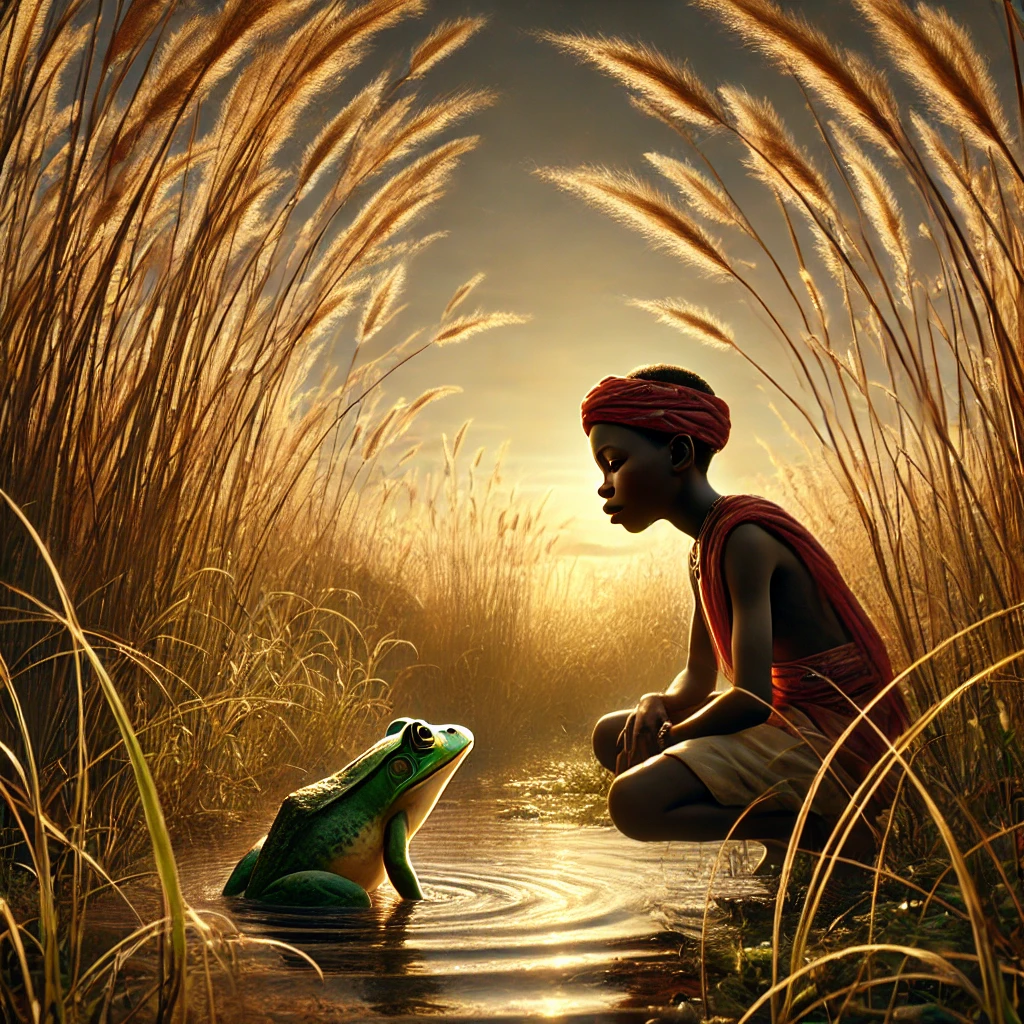
The frog went on his way and came to others. He was seen by the girl’s own brother: he said, “By Umdhlubu the king’s child! There is a very great frog. Let us beat it with stones and kill it.” The frog said:
“I am but a frog; I will not be killed.
I am taking Umdhlubu to her own country.”
He said, O, leave him alone. He speaks a fearful thing.”
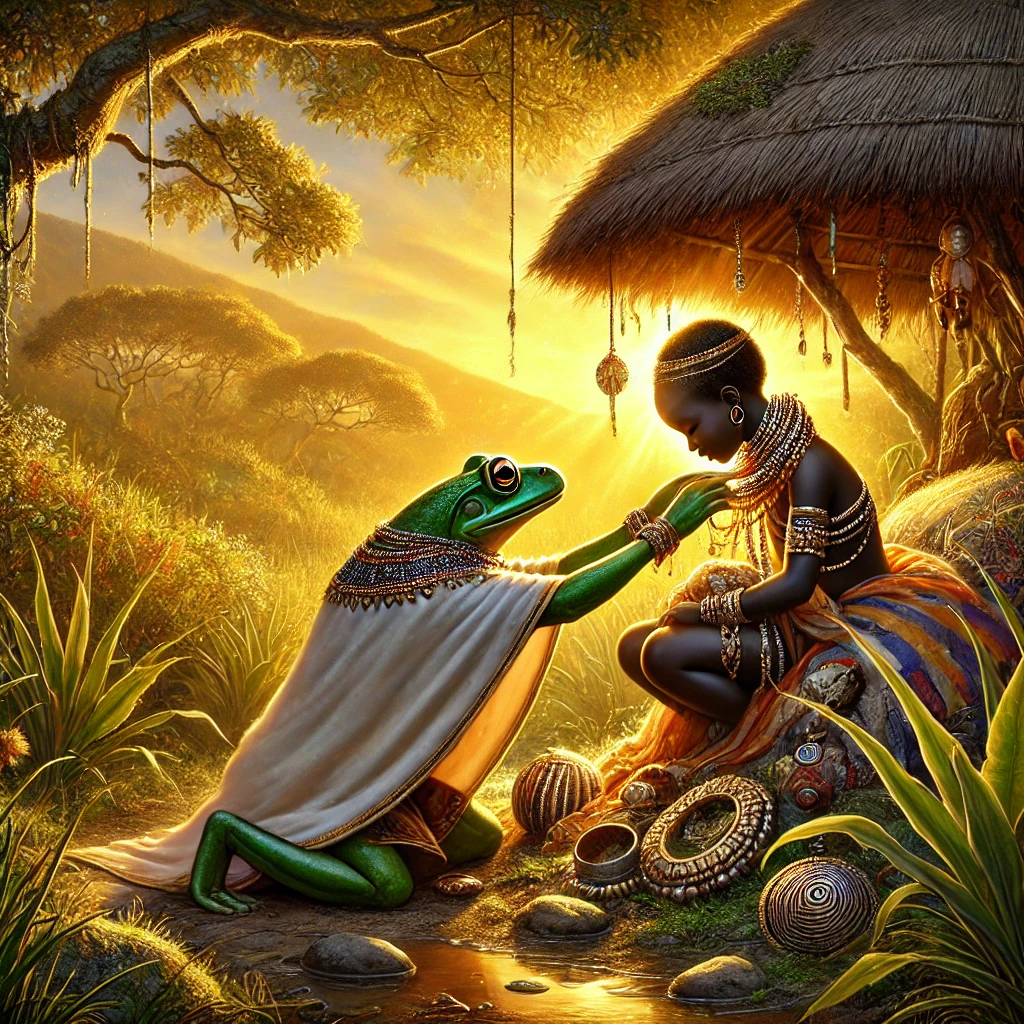
He went on and came near her home: he entered a bush below the kraal: he placed her on the ground with her things. He put her in order: he cleansed her with udonqa: he anointed her, and put on her ornaments.
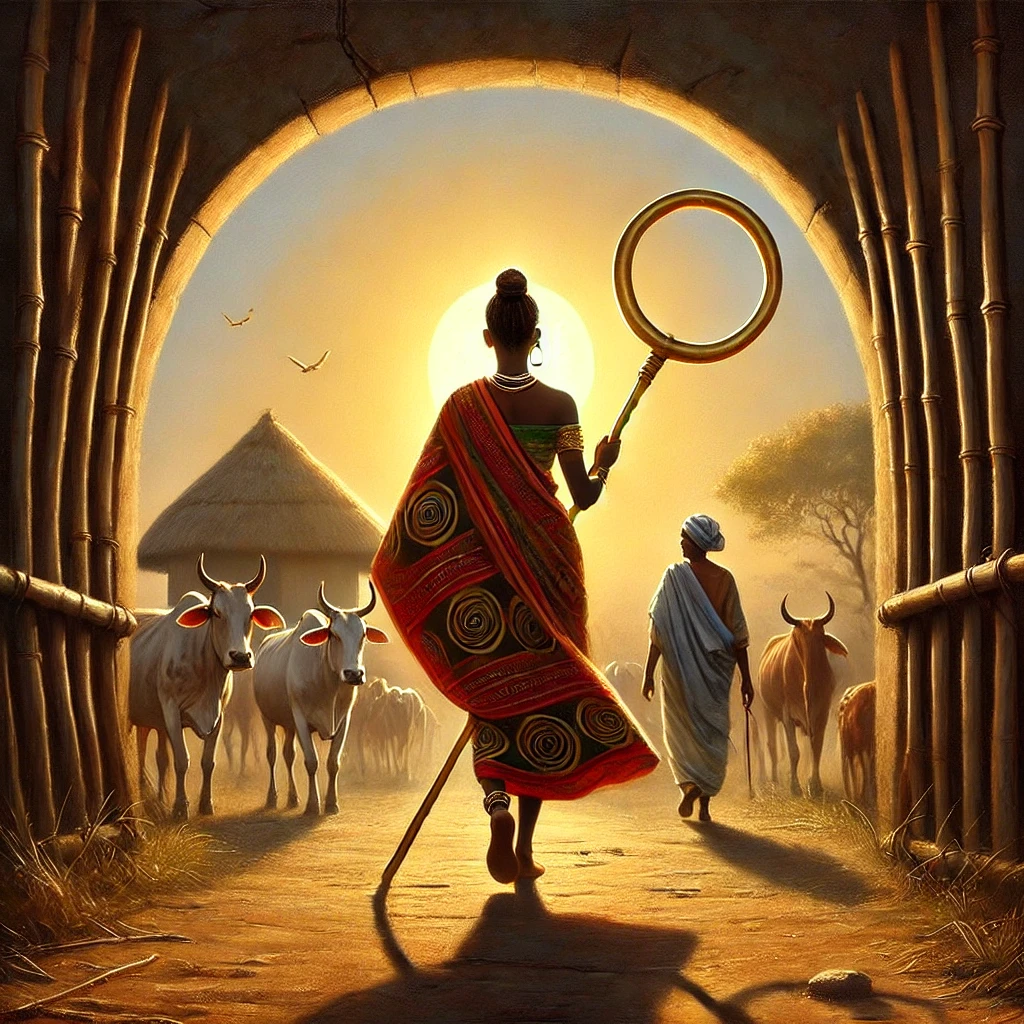
So she set out. She took her brass rod, and went and entered at the gateway, and she passed across the cattle enclosure: she went in the middle of it: she came to the opening, she went out, and entered the house of her mother. Her mother followed her into the house and said, “Where do you come from, damsel?” She said, “I am merely on a journey.” The mother said, “Tell me.” She said, “There is nothing, I am merely on a journey.” The mother said, “Women are satisfied who have such fine children as you. For my part, I am in trouble: my child was lost: I felt her in the valley: she died there.” The child answered, saying, “No; the queens made me forget her; they would not allow the nurse to carry her.” The girl said in answer, “No! there is no woman who can forget her own child.” She said, “No; it happened through my not being accustomed to carry a child; for she used to remain with the nurse.” Umdhlubu said, “Yes, you did it because you did not love me.” She began to look very earnestly at her; she saw that it was her child.
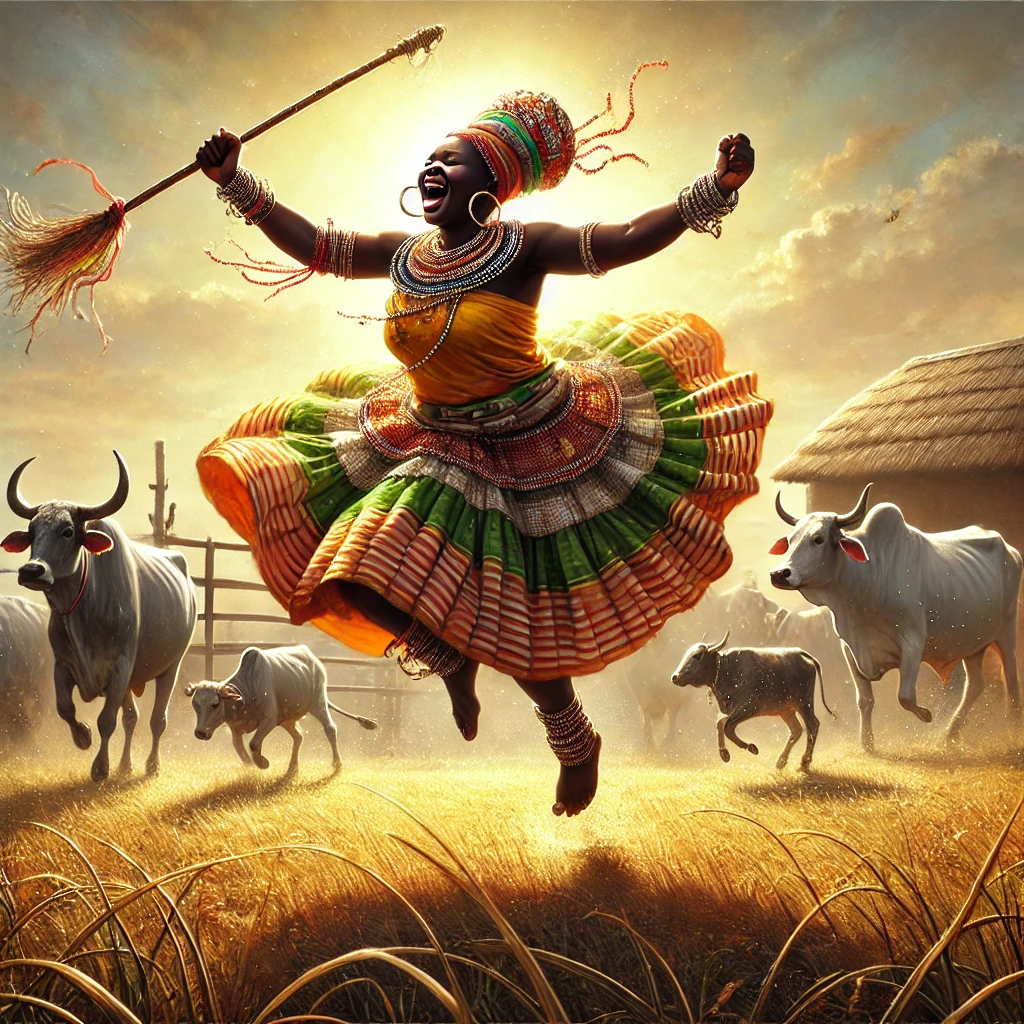
When she saw her she rejoiced. She praised with the praise-giving names of her child. The mother took her role, and girded her herself; she took her head-ornament, and put it on her head; she took her petticoat, and put it on; she took her staff, and went out; she leaped for joy, and halala’d; she went into the cattle-pen; she played leaping about with joy. The people wondered and said, “What has happened to Untombinde today? Why does she rejoice so much? Since the time her first-born died, she has never rejoiced, but has constantly been in sorrow.”
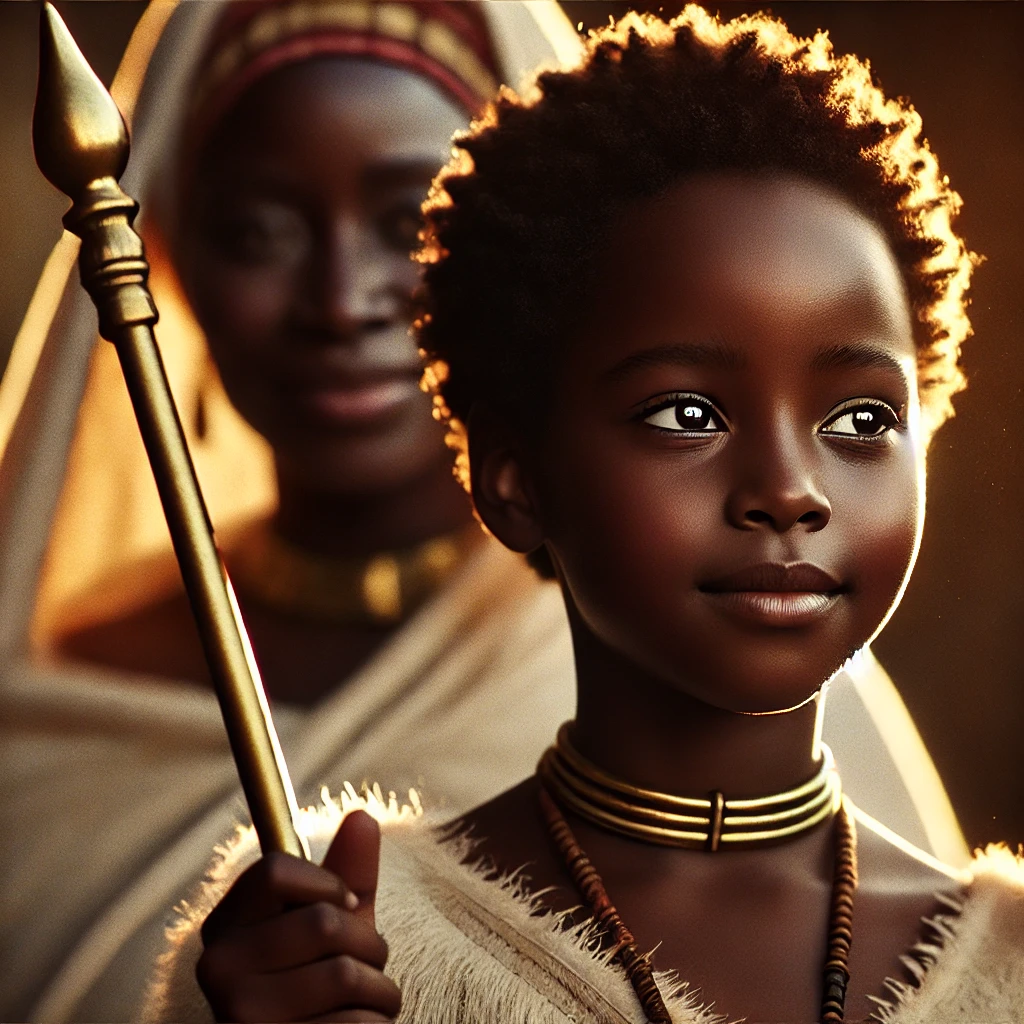
One from her side went out, and said, “Just let me go and see what is in the house? Why do I hear the queen praising with the praise-giving names of her dead child? So she went, and entered the house, and saw the girl. She went out, and shouted aloud, and gave thanks.
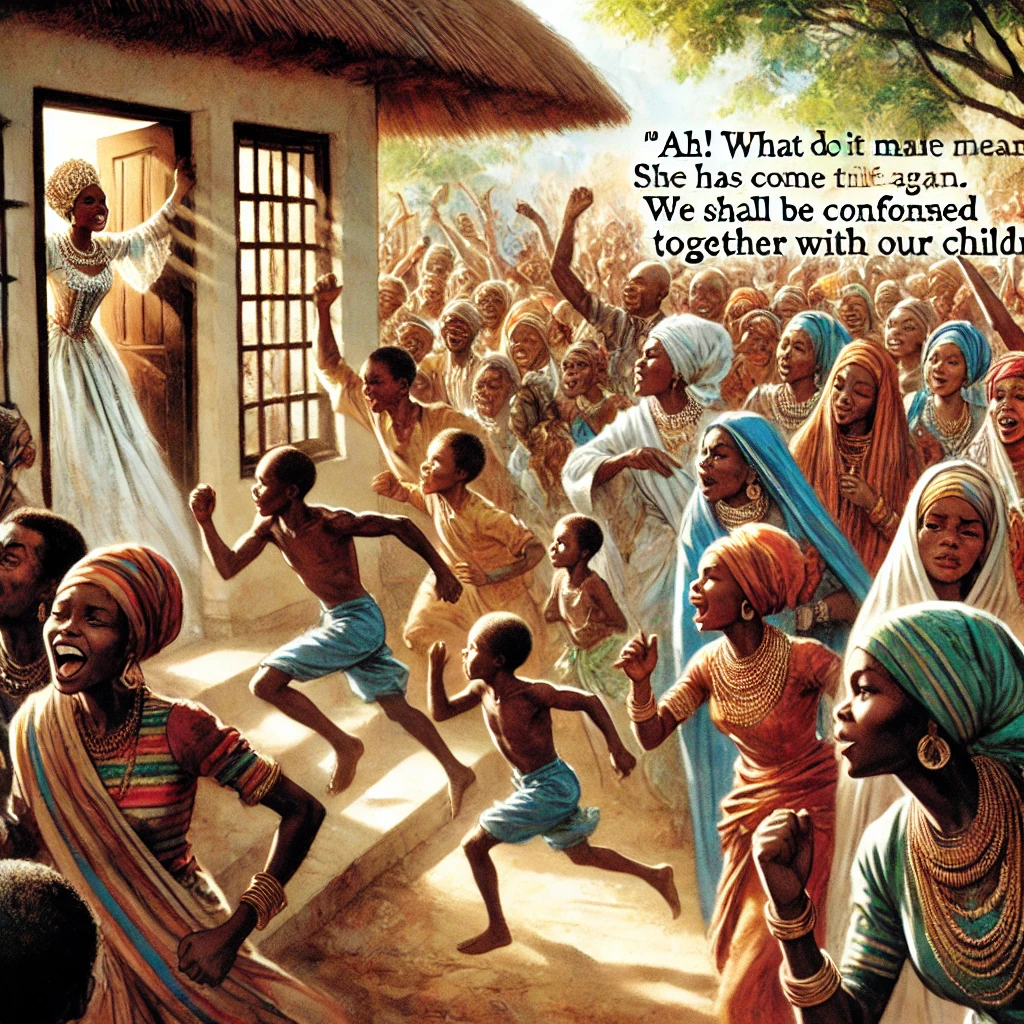
All the people went out. They ran to the house, hurrying to get there first. They crowded each other together at the doorway. They saw the child. All the people on her side rejoiced. All the others were troubled, and the queens of the other side said, “Ah! What does it mean? For we thought we had already killed this child. She has come to life again. We shall be confounded together with out children. The supremacy of our children is coming to an end.”
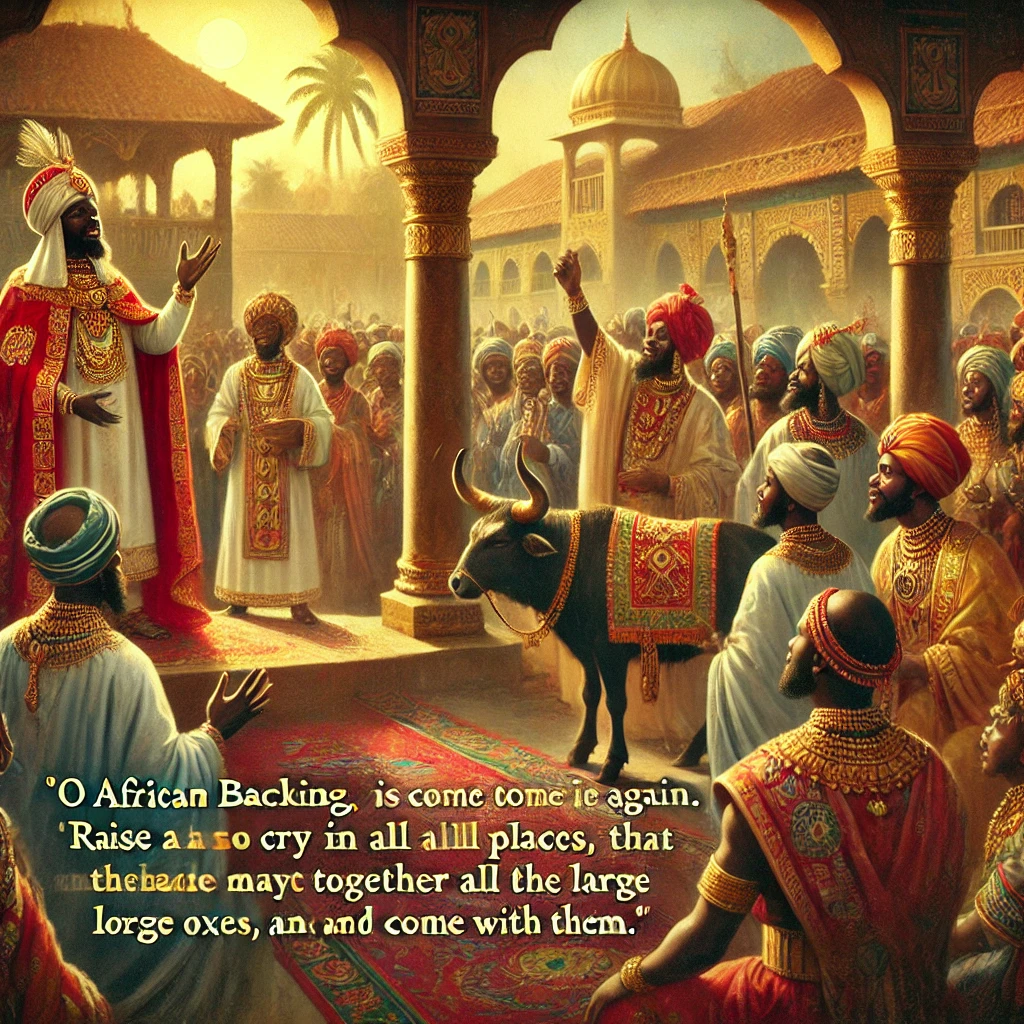
A messenger set out and went to her father; he arrived and said, “O king, your child that was dead is come to life again.” The king said, “Hau! Are you mad? Which is that child?” The messenger said, “Umdhlubu.” The father said, “Whence comes she?” He said, “I do not know, O king.” The father said, “If it is not she, I will kill you. If it is she, run, raise a cry in all places, that the people may bring together all the large oxen, and come with them.”
He went and raised a cry, and said, “The princess has come. Make haste with the oxen.” The men asked, “Which princess?” He replied, “Umdhlubu, the child of the king, who was dead.”
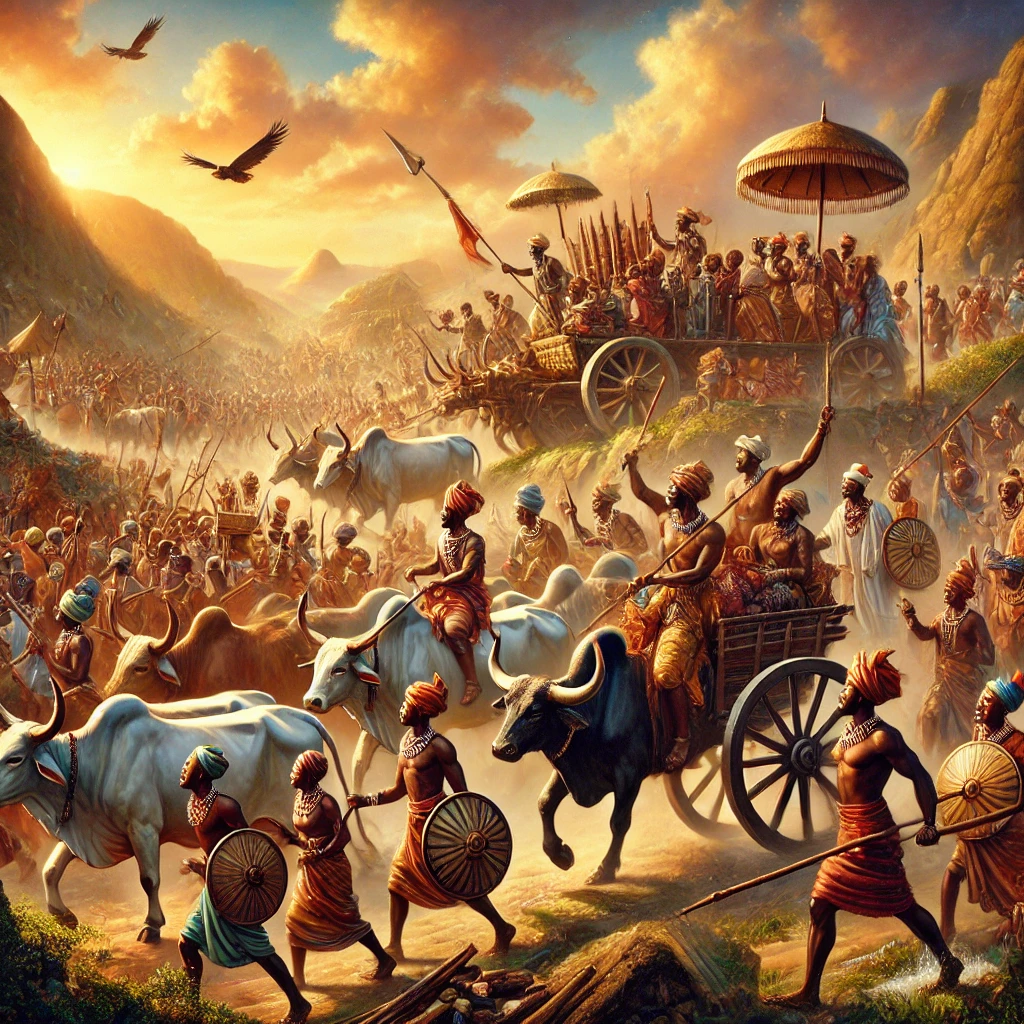
They rejoice; they took their shields; they took the oxen, and drove them; they took also their presents to gladden the princess; for she had risen from death; they found her when they no longer expected it. They came; they slaughtered many cattle, even in the paths, in order that the old men and the old women and the sick might eat, who were not able to reach the home where the princess was.
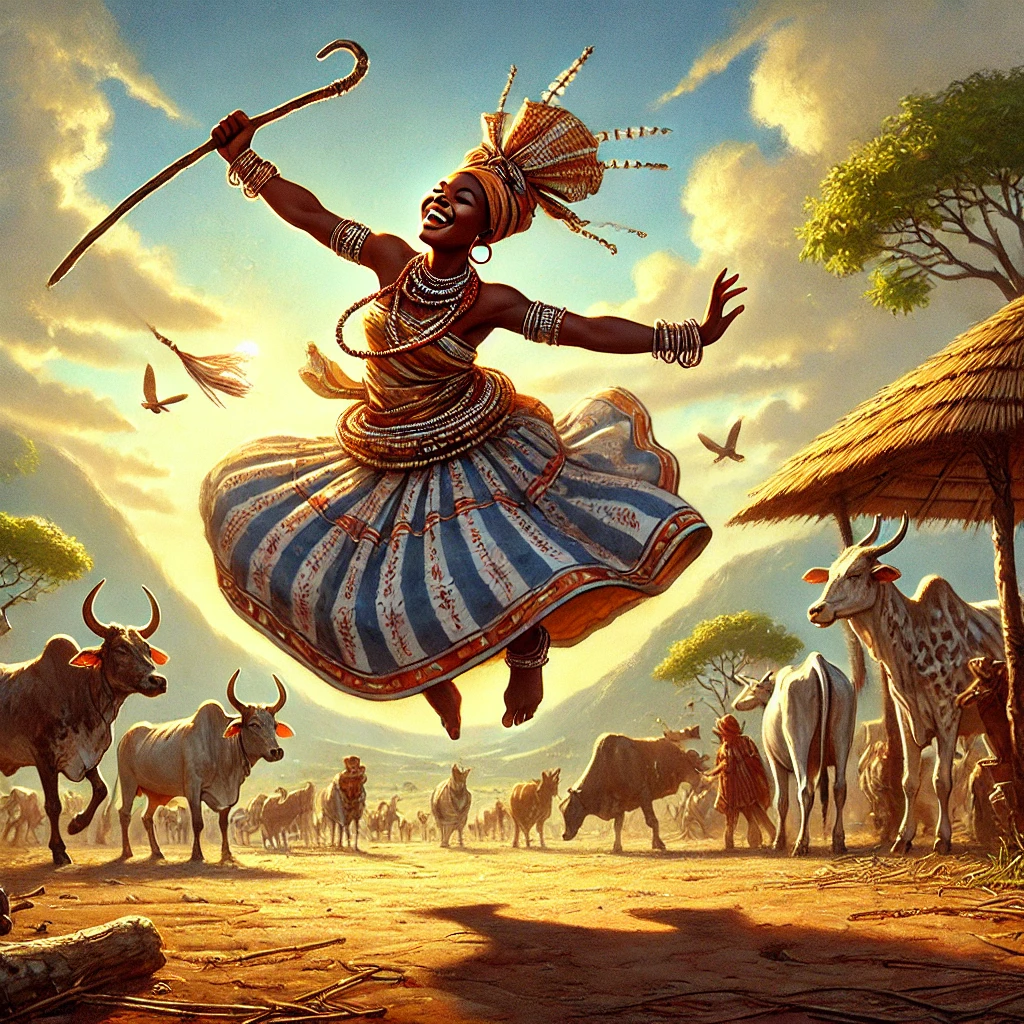
The father came and said, “Come out, my child, that I may see you.” She did not answer. He slaughtered twenty oxen. She made her appearance at the doorway, and stood still. He slaughtered thirty; she came out. The father said, “Go into the cattle-kraal; let us go to dance for you, for our great joy; for I used to say, you are already dead, but in fact you are still alive.” She stood still. Again he slaughtered forty oxen. Then she went, and entered into the kraal.
They danced for her very much. But the other side of the kraal did not rejoice; it did not dance together with the children and queens of that side. They left off dancing.
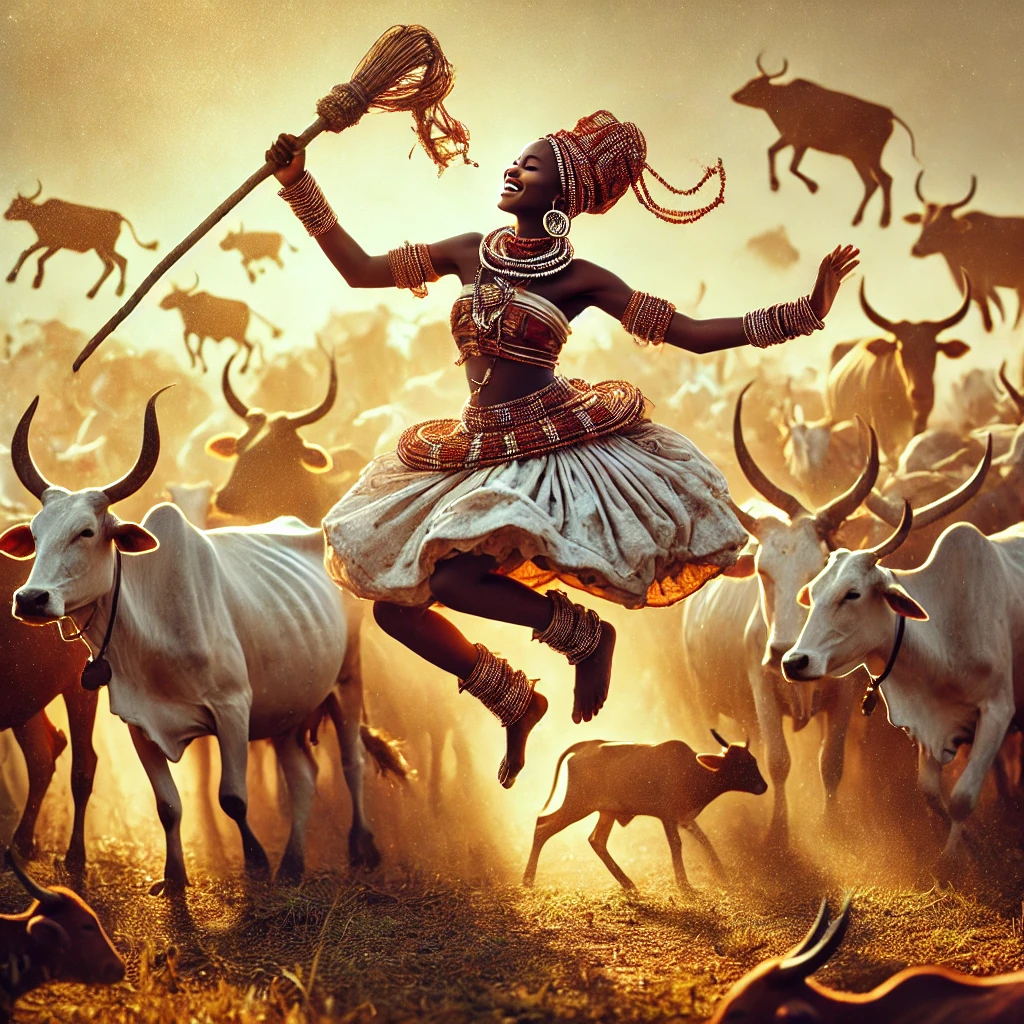
The father went with her into the house, and sat down with her. He said, “Let a fat young ox be taken, that we may eat and rejoice, for she was dead, and had risen from the death.”
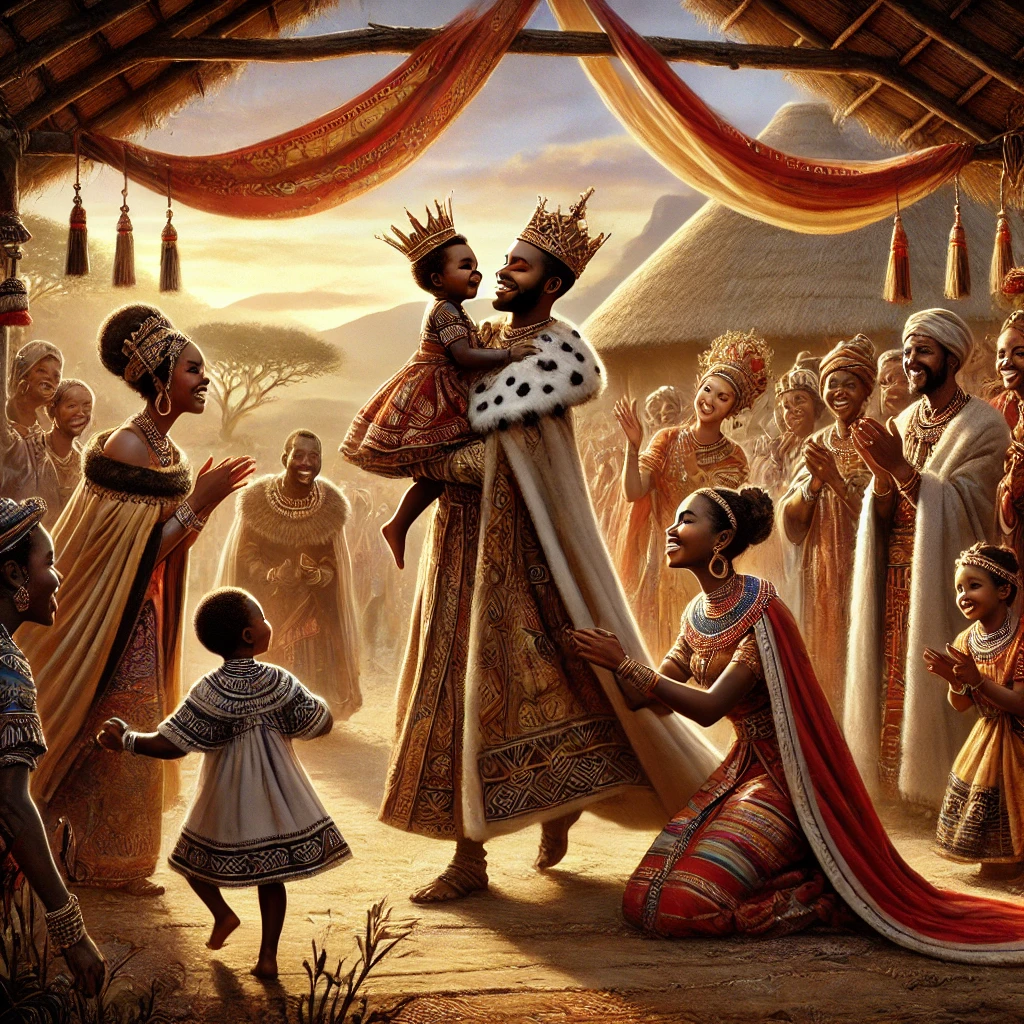
So All the people rejoiced. The child returned to her royal position. Her father did right, royally; he returned to his former habits, and loved at that kraal, for he had ceased to be there much, because he remembered his child which had hied. Her mother and the children of her house rejoiced together.
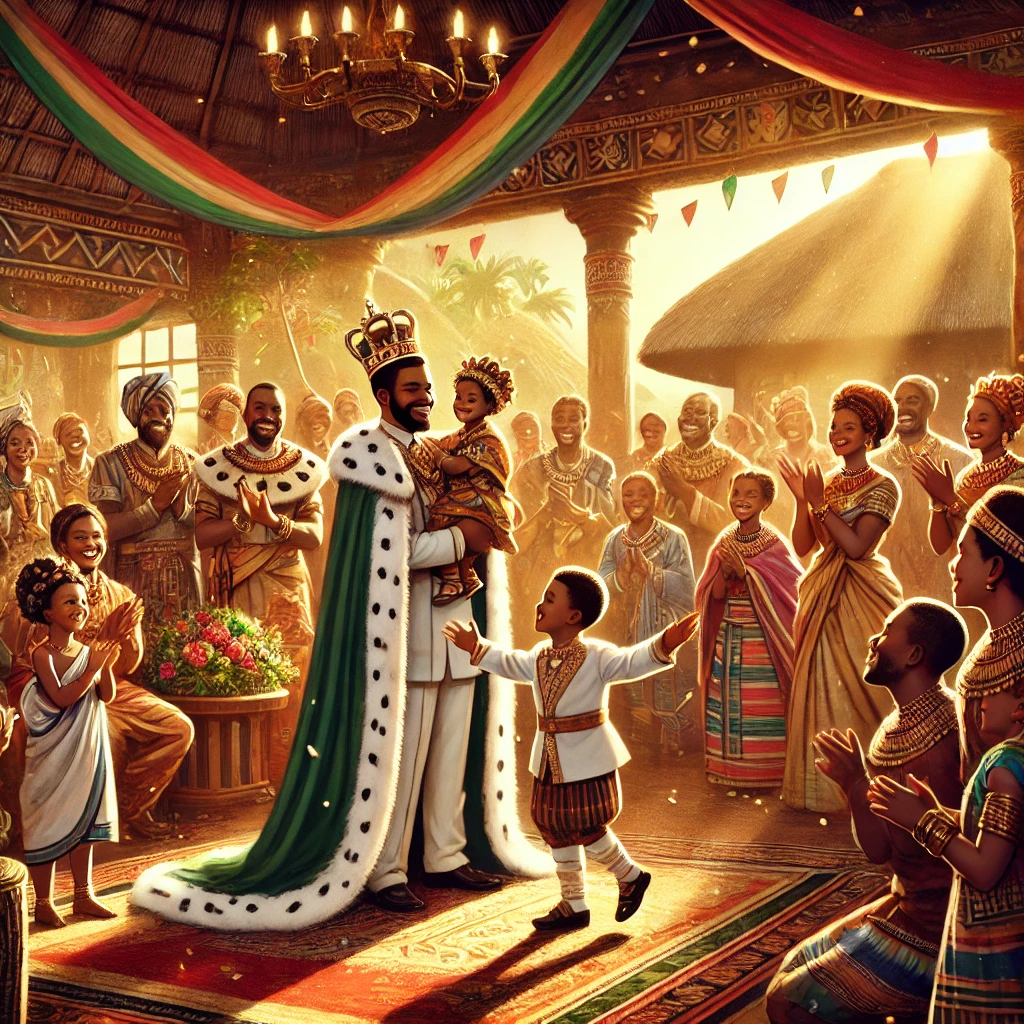
Her father asked her, “How did you come here?” The child said, “I was brought by a frog.” The father said, “Where is he?” The child replied, “He is yonder in the bush.” The father said, “Let oven be taken, that he may be danced for, and come up to our home.” So they went and danced for him.
They brought him home. They brought him into the house and gave him ,meat, and ate. The king inquired, “What do you wish that I should give you as a reward?” He said, “I wish some black hornless cattle.” He took many cattle and people, and said, “Go with him.” So they went and came to his country.
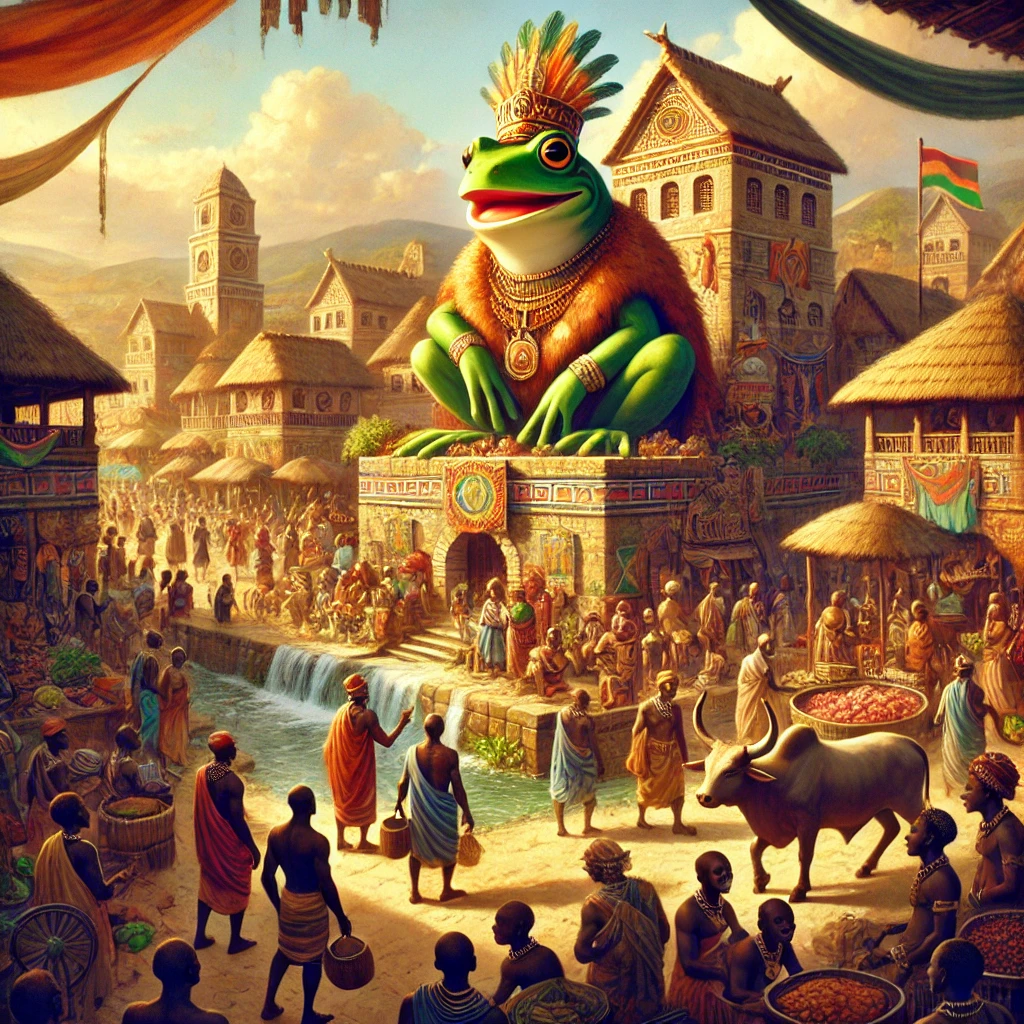
The frog built a great town, and became a great chief. He slaughtered cattle continually; and men came to ask for meat. They inquired, “What is your chief who built this town?” They said, Uselesele.” They inquired, “Whence did he obtain so large a town as this?” They said, “He got it because he brought out princess to the king; so he gave him cattle and men.” They answered, saying, “Are you then the people of Uselesele?” They said, “Yes. Do not speak disrespectfully of him; he will kill you, for he is a great chief.”
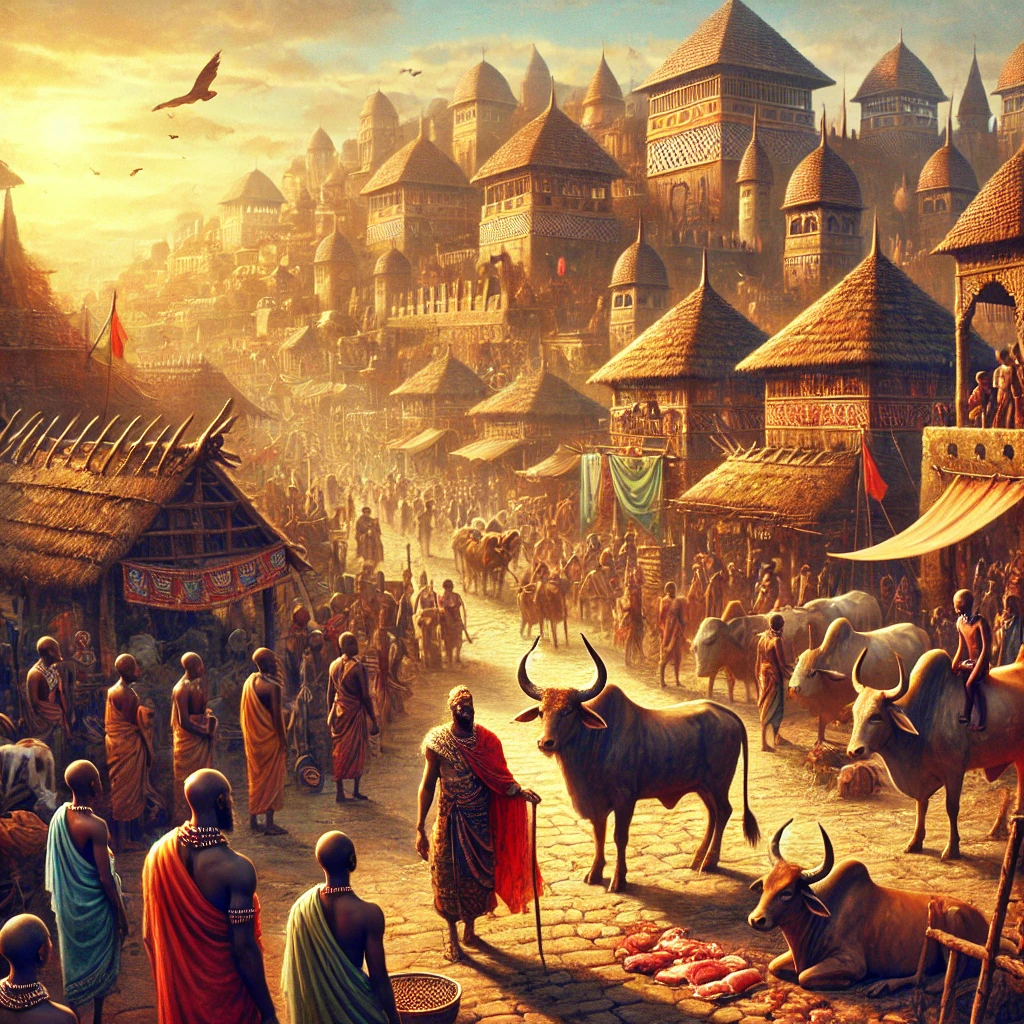
Uselesele took many people under his protection. They revoked from their chiefs through seeing the abundance of food at Uselesele’s. So Uselesele reigned and become a king.
Unkosi-yasenthla heard it said, “Unkosi-yasenzansi has a beautiful daughter, named Umdhlubu.” He said to his people, “Go and see what kind of damsel it is.” They went, and came to Unkosi-yasenzansi, and said, “King, we have seen sent by Unkosi-yasnthla, that we might select a beautiful damsel from among your children.”
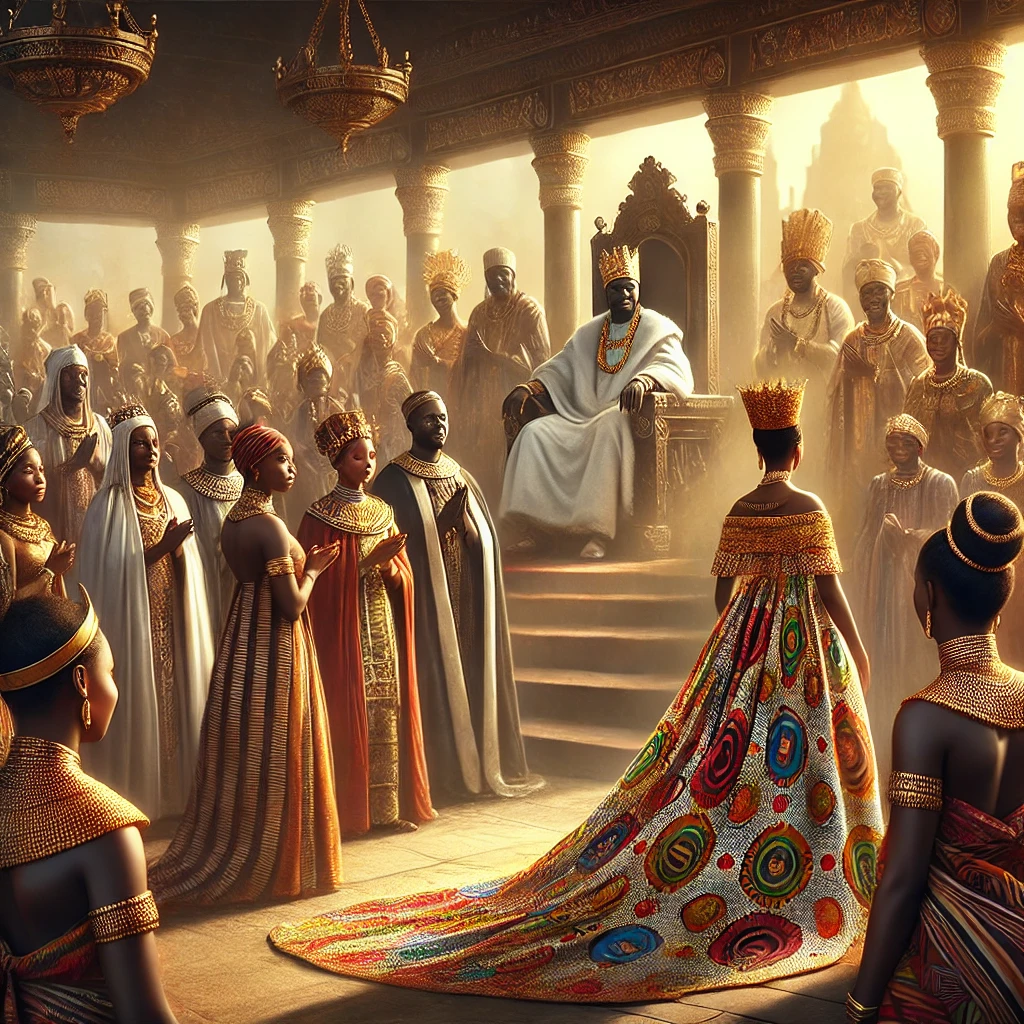
He summoned them, and they came. At length they saw only one damsel which excelled all the others in beauty. For they remembered, that if a king has sent people to go and choose a beautiful damsel, it is proper that they should look very earnestly; for those people are the king’s eyes, because he trusts them. They look earnestly, that they may not be reproved when the damsel is brought home. When they see she is ugly, not like aa damsel which has been chosen for a king, they find great fault, saying, “Why have you disgraced the king by choosing an ugly thing for him?” The honor of those men is ended; they are removed from their honorable office, because they are not trustworthy. therefore they chose Umdhlubu for her beauty’s sake, saying, “It is she only who is fit to be the king’s queen above all the others.”
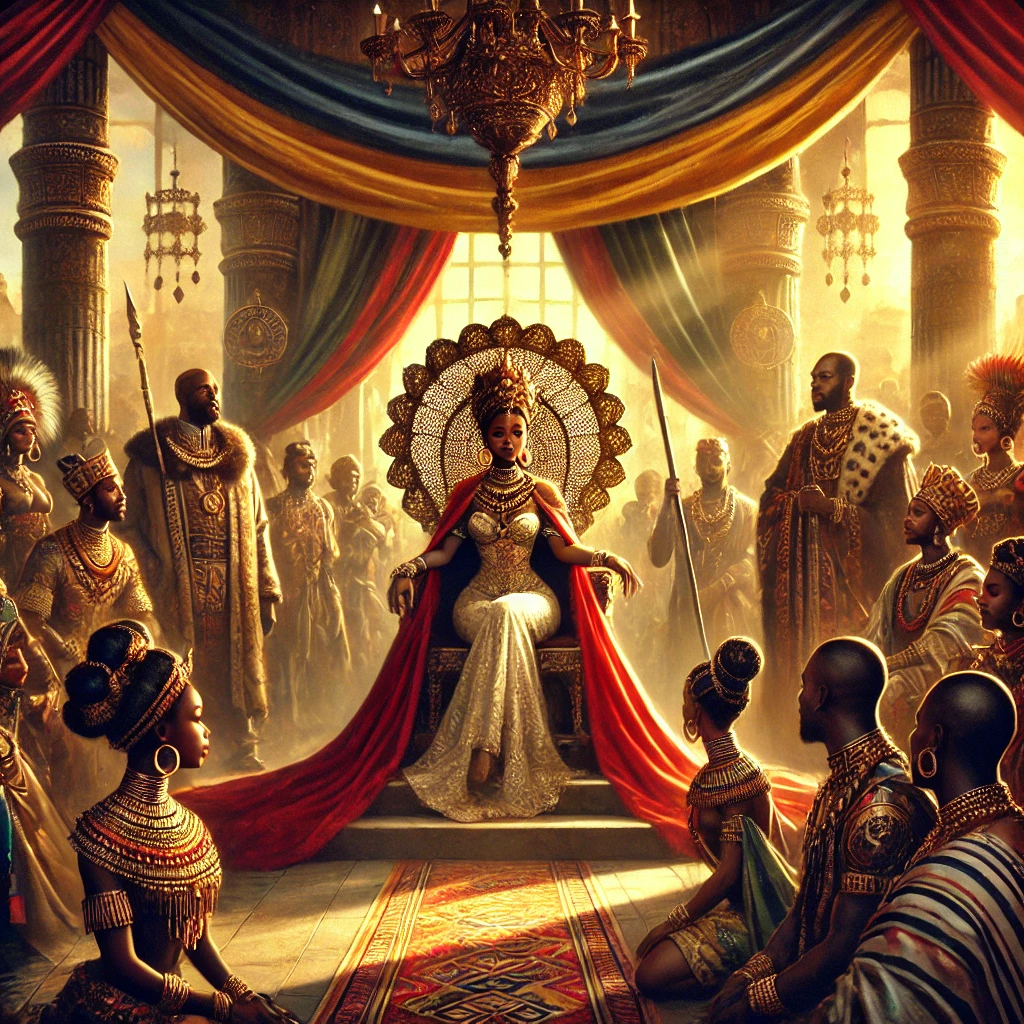
Therefore those who were left were ashamed; and their mothers were ashamed; and their brothers were ashamed. There was rejoicing in the house of Umdhlubu. The joy began with Umdhlubu, who was conspicuous for beauty among many other damsels and in the eyes of them all, for it was said, “There is a beautiful woman indeed!” Her mother rejoiced in her heart, saying, “I did well when I gave birth to my child!” And the children of her house were exalted, although their mother had been long ago exalted by the king, through being loved. there, then, was the hatred which increased towards that house of Umdhlubu, as her mother also was loved very much by the father of Umdhlubu. There was a very great hatred in the hearts of the other queens, on account of the beauty of Umdhlubu, which was admired by the king of another people above all their own children. They were ashamed for ever.
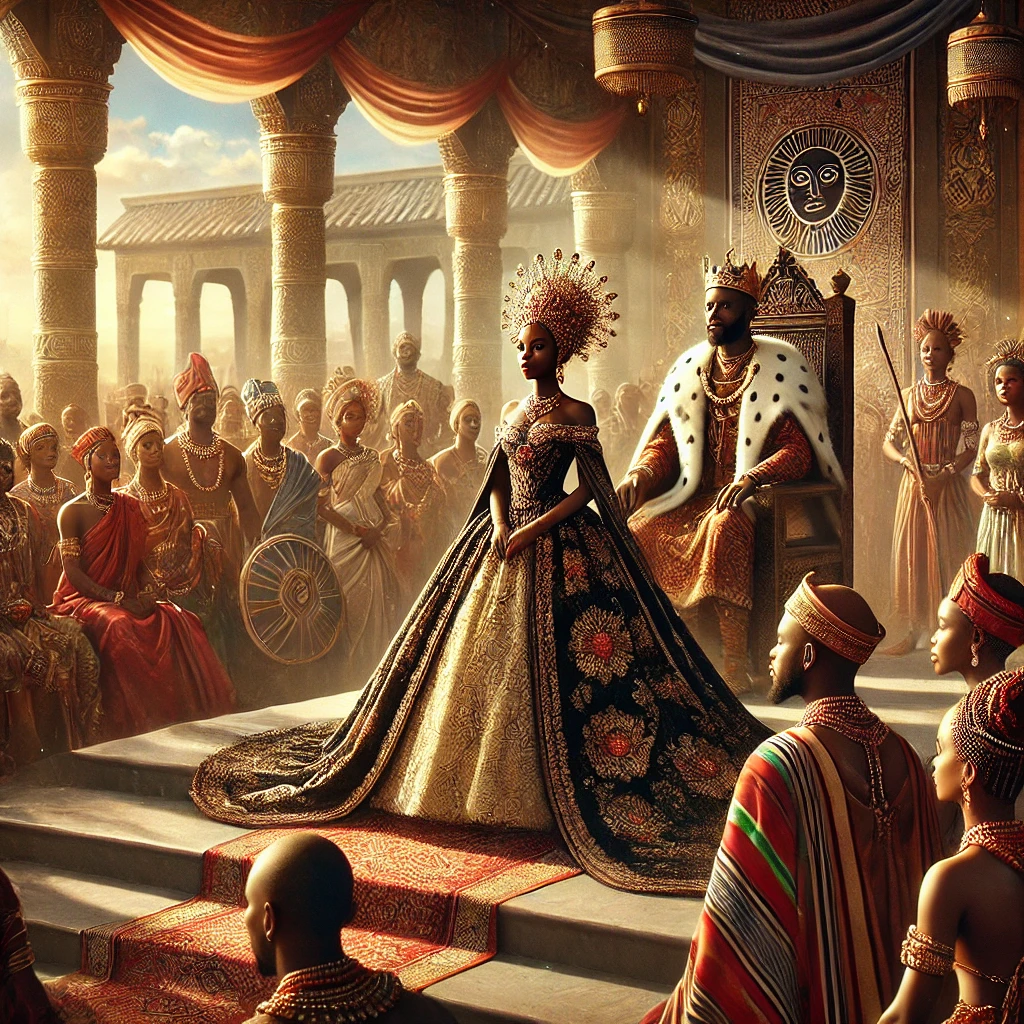
So they looked, and chose Umdhlubu. They departed to tell the king. They arrived home, and said, “King, we have seen the beautiful damsel; her name is Umdhlubu.” The king said, “Aye; it is well. We must set out and go thither, and take a thousand head of cattle. ” So they set out.
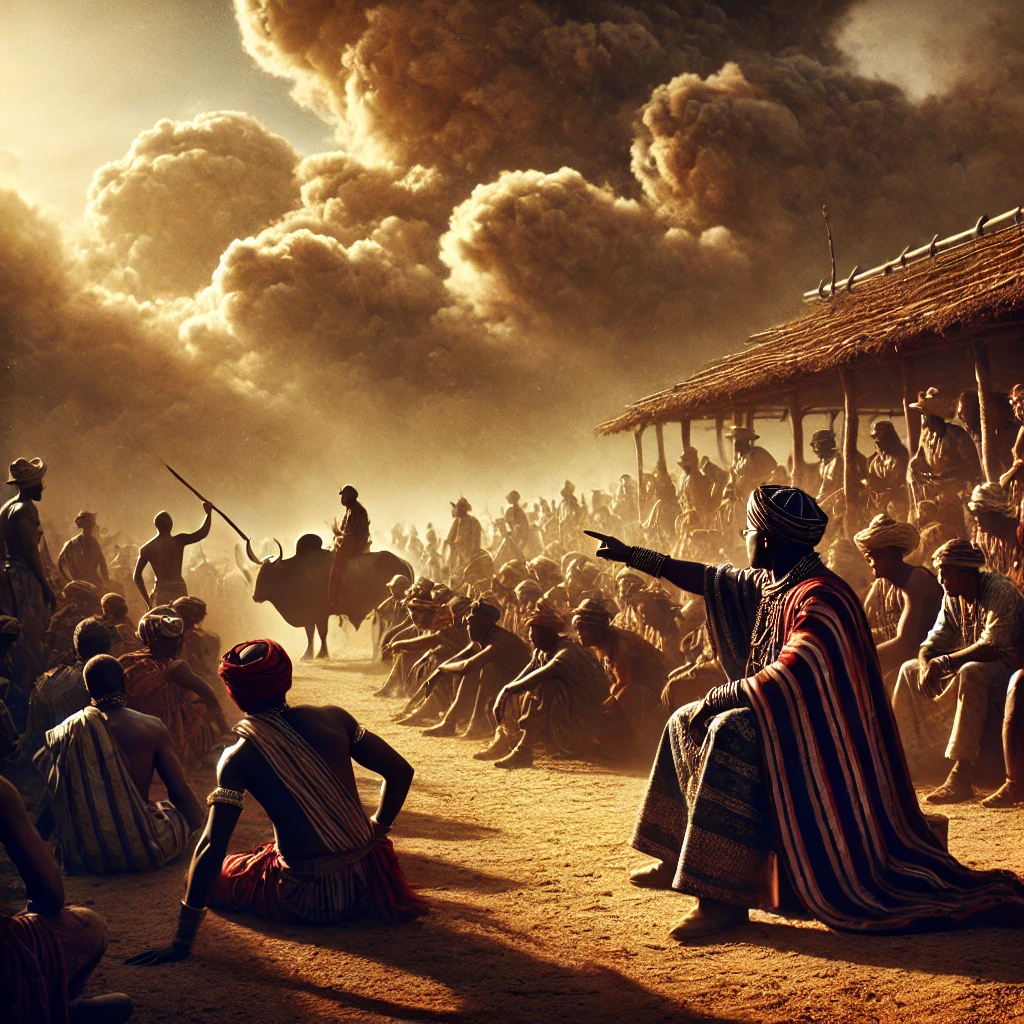
Unkosi-yasenzansi, as he was sitting in the shade within the cattle-pen with his people, said, “What is that yonder? There is a great dust which rises to heaven.” They were afraid. He said to his soldiers, “get ready to fight, for we do not know what is coming.” After that the cattle appeared coming with the king and his people. Unkosi-yasenzansi went to meet them.
But the chief said, “I am Unkosi-yasenthla; I come to see Umdhlubu. Then they all went to her house. When they arrived, they asked her to have Umdhlubu given them. Her father rejoiced when he heard that.
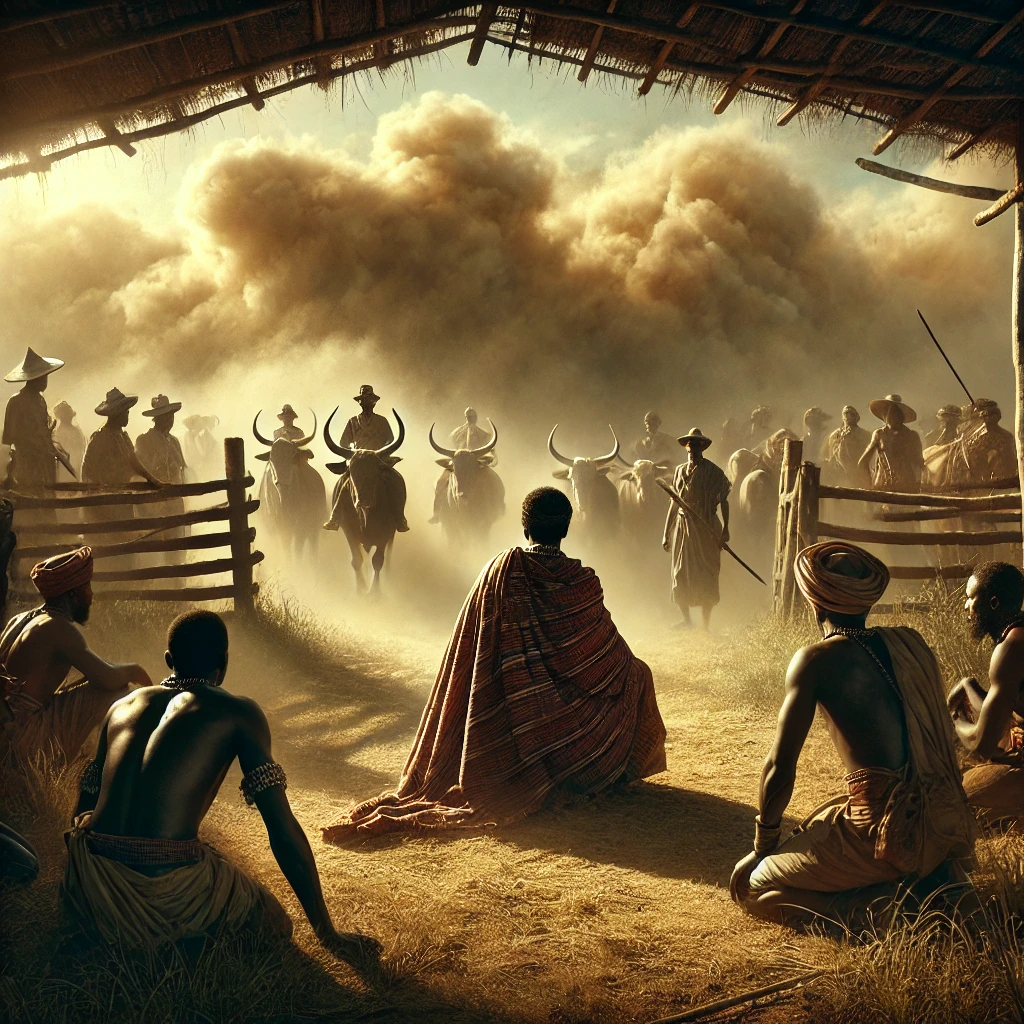
They had cattle slaughtered for them. They spoke with the father. Unkosi-yasenthla said, “I come to you, Unkosi-yansenzansi, I being desirous of taking your daughter; if you assent, it is well. I come with a thousand cattle.” The father assented, saying, “It is well.”
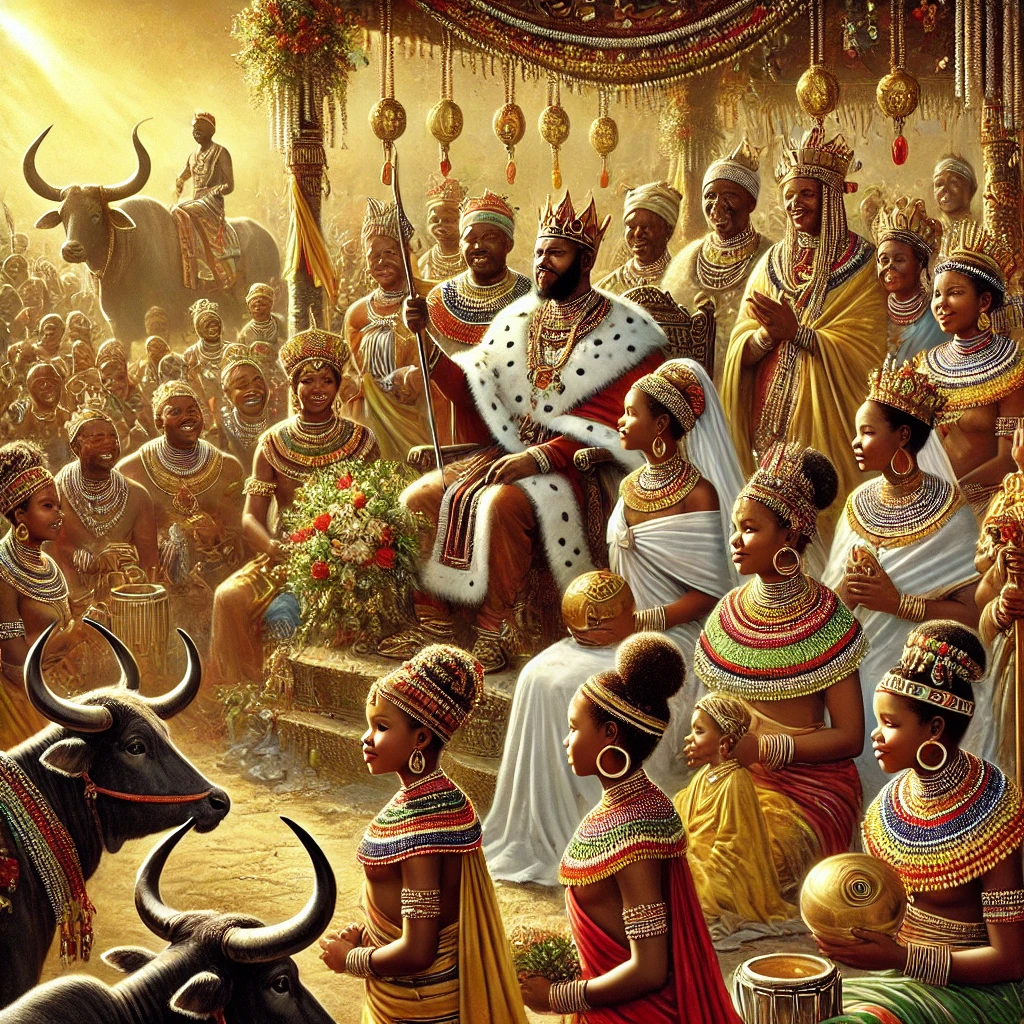
He assembled all the girls, and all the men, the young men with head-rings, and the youth; he set apart men for the purpose of working for Umdhlubu. He took out brass and beads for her marriage, and five hundred oxen, and said, “Now it is right. Set out with her. There is an officer for the purpose of conducting the wedding ceremonies.”
So they all went with him, and reached the king’s home. As they were coming into sight, a great cry was raised, and the people appeared in all directions, shouting, “The quee n of Unkosi-yasenthla has come.” They rejoiced.
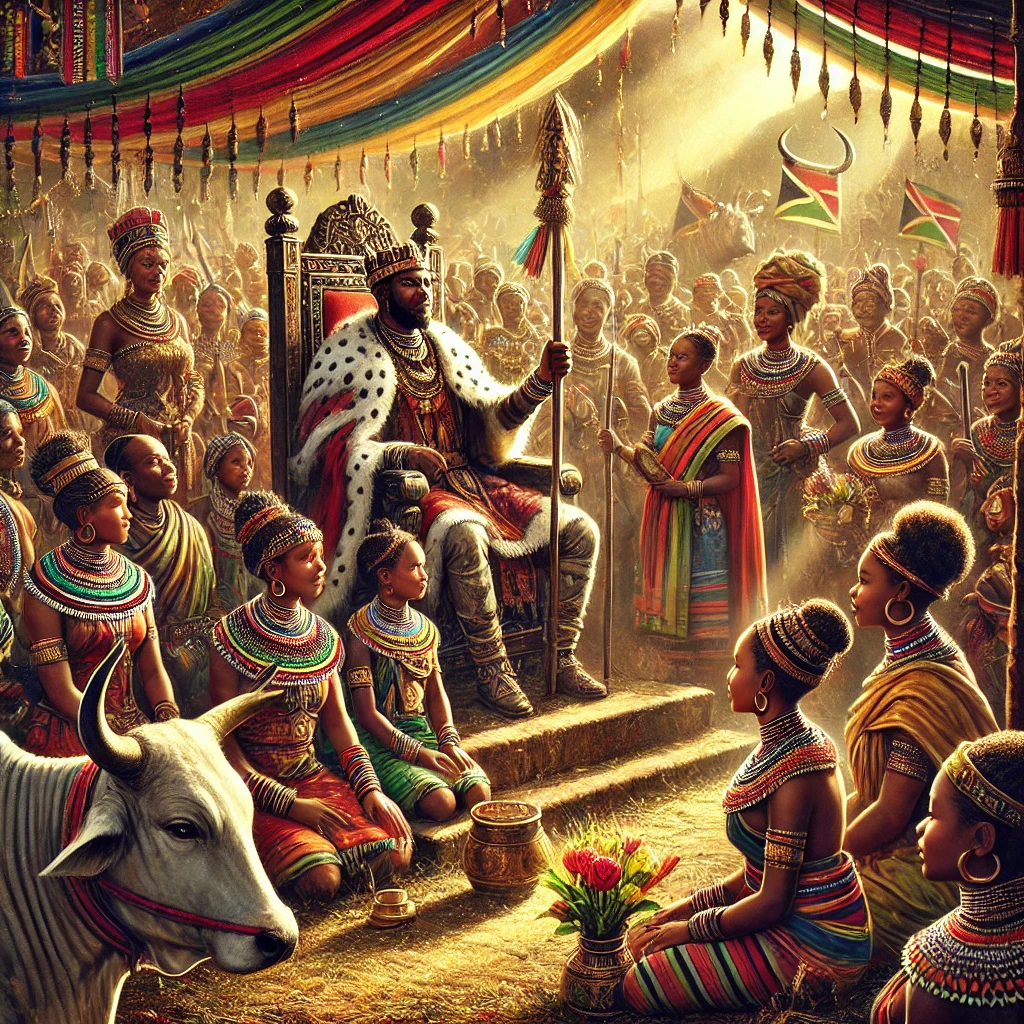
They retired to rest. In the morning, when the sun had risen, and it was hot, the damsels went out with the young men and youths, and went into the bush; they sat down there. When the time for dancing arrived, they danced; they fetched the damsel from the bush; she went to the kraal to dance.

So they ended the dance. She took brass, and placed it before her father, and prayed, saying, “Sire, take care of me forever, for now I am in thy hand, preserve me.”
The whole marriage party sat down. They danced for them. They ended the dance. In the morning the damsel had ten bullocks killed and they ate and rejoiced.
The officer of the ceremony said, “Sire, we now wish to set out to return home, for the work is done.”
The king took five hundred head of cattle, and sent them as a present to his mother. The men returned home.

And the damsels remained. Umdhlubu’s father had said that they were not to return, but stay with her, and work for her; and many people, both male and female, remained there to build her town.
The king said, “Now build the town of the queen, where she may live with her people.”
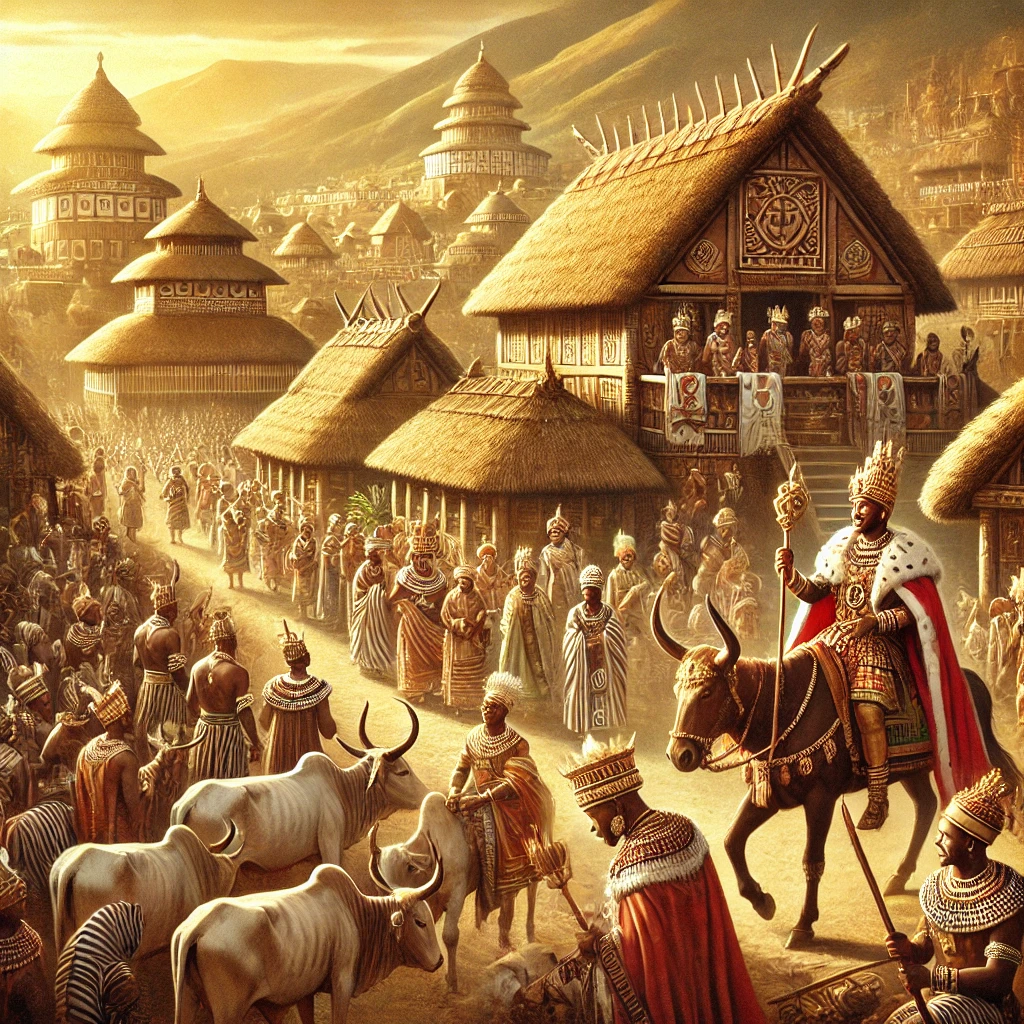
So the town was built and completed. The king visited it; many cattle were killed, that the soldiers might eat, and complete the queen’s town. The king also went to live there at the new town. Thus he took Umdhlubu to be his wife.
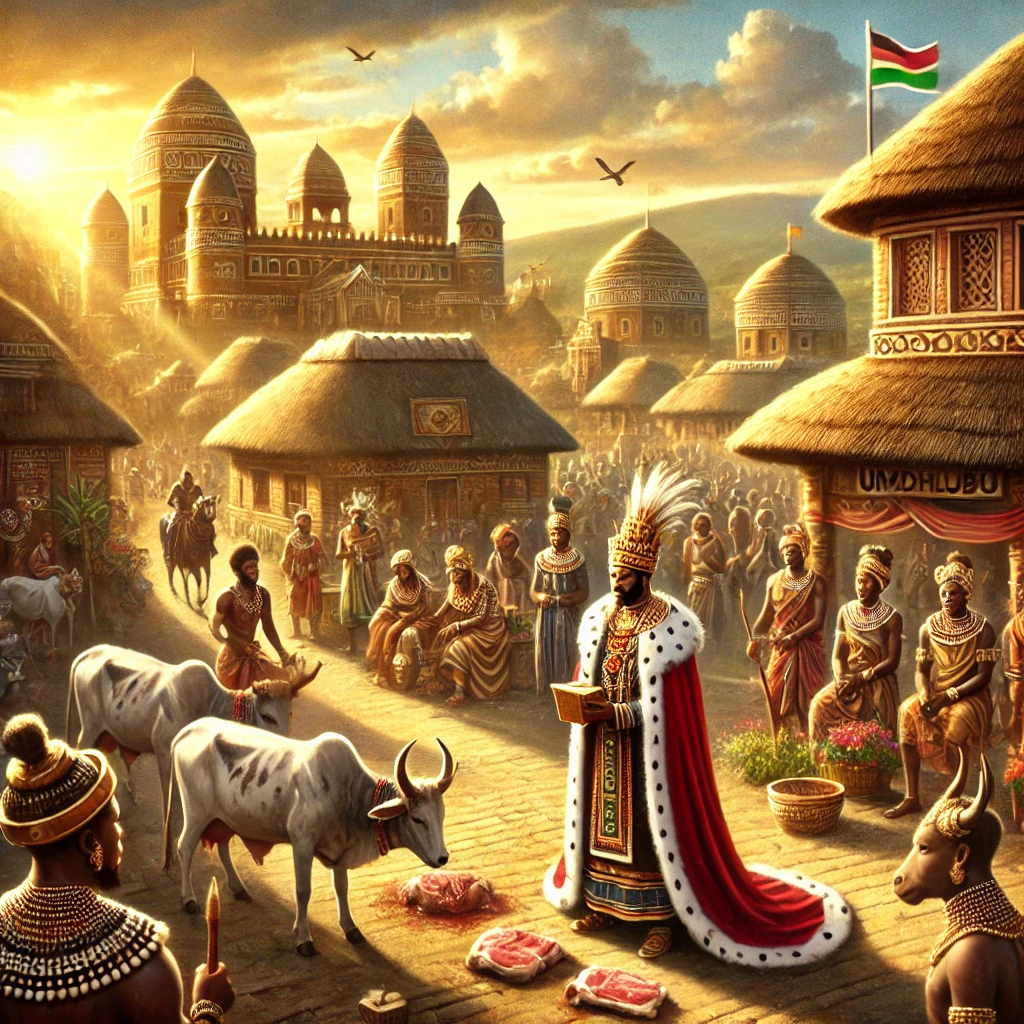
The people of Umdhlubu’s father reached their home, and said, “O king, we have done all things very well. There are cattle for Umdhlubu’s mother; they are given to her by her son. He told us to give his respects to both his father and mother.”
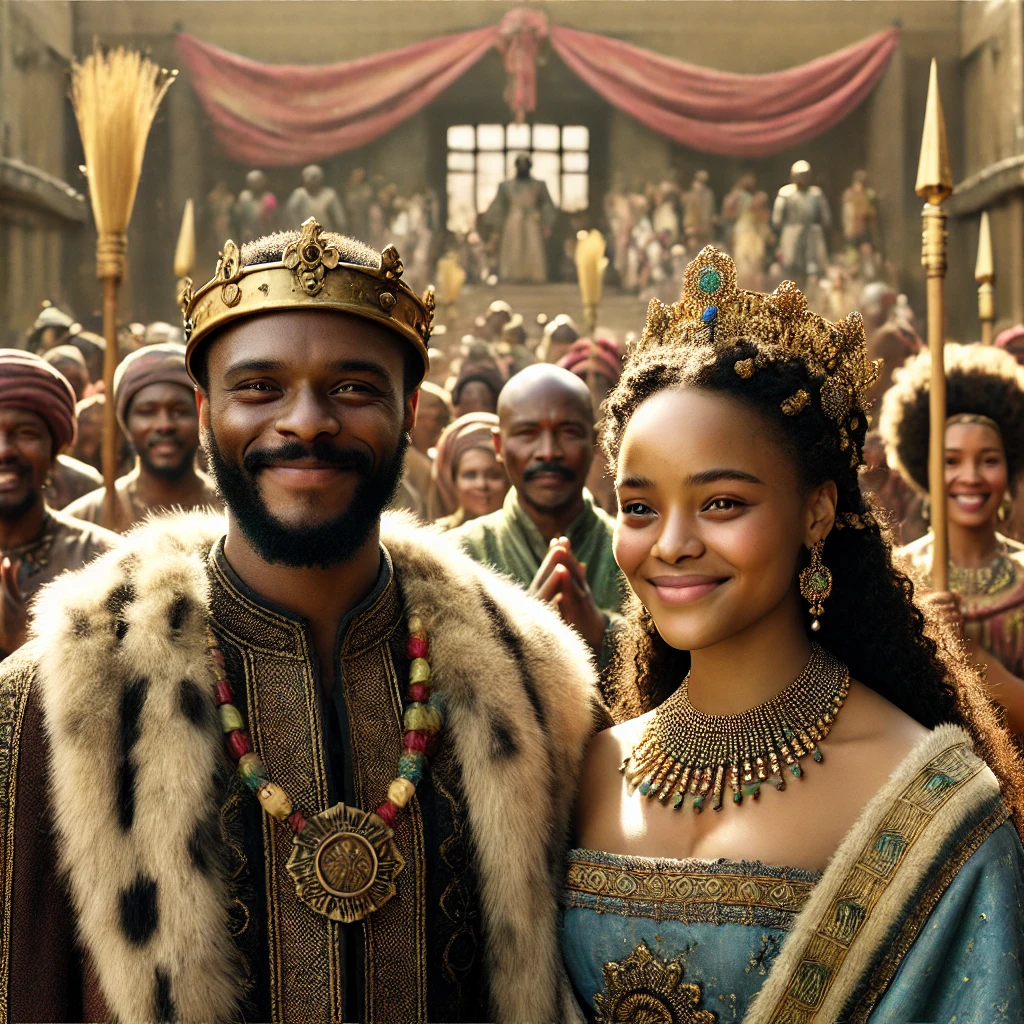
So all lived together in peace.
[ ZULU ]
